Metaphorum - Manchester UK

After a couple of weeks at home I'm ready to traverse the reality graph once again; I've been figuring out my next token and from a number of options presenting themselves I decide I'd best be of service heading to Metaphorum in the UK.
Sadly this means missing Playdrive and Let Me Think, the latter of which I'd already turned down due to budget but the former, held in the Commons Hub Austria, was really calling out! I'd have loved that one as all work and no play makes Josh a dull boy; you know it, I know it and damn playing with Laurence and seeing some old friends again would have been incredible!
Despite all this I head to Manchester to learn from the Stafford Beer transmission and those following his lineage; I honestly don't know what I'm in for but colleges from H3uni.org are attending and it seems like the important schelling point; John Hicks is presenting on designing for accessibility and Ian Kendrick is part of the organising team. Before I get too far ahead of myself - here's the Programme.
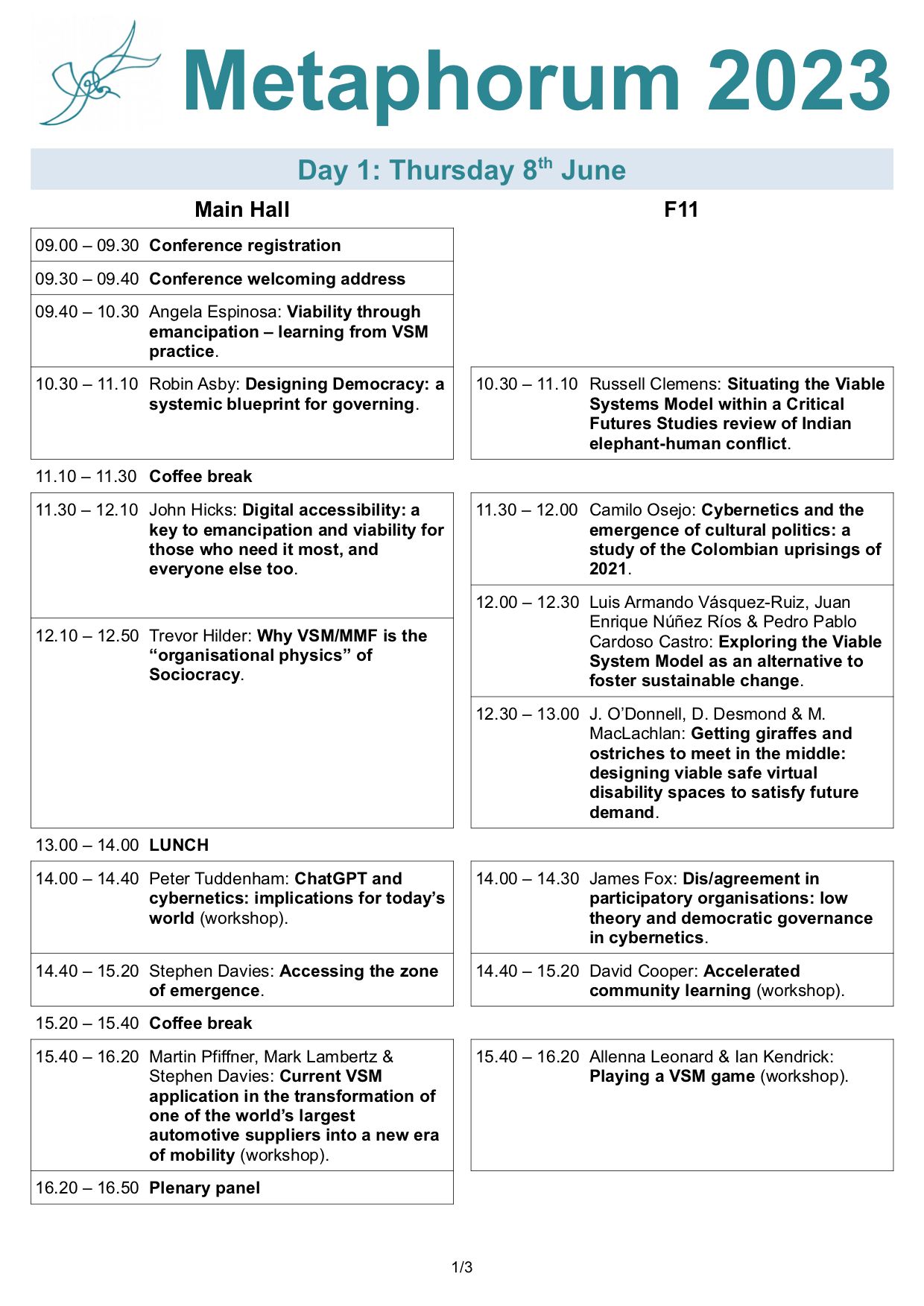
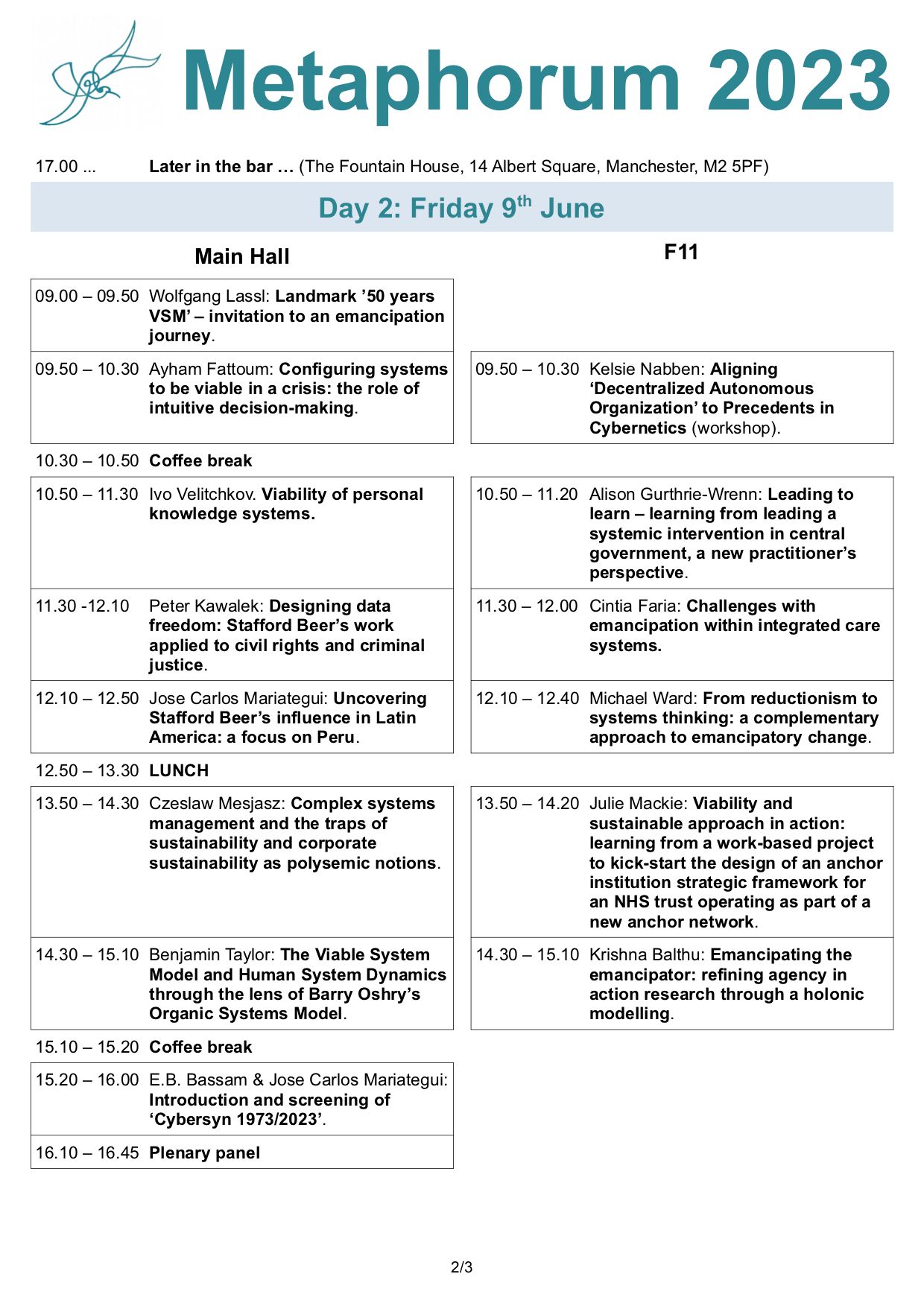
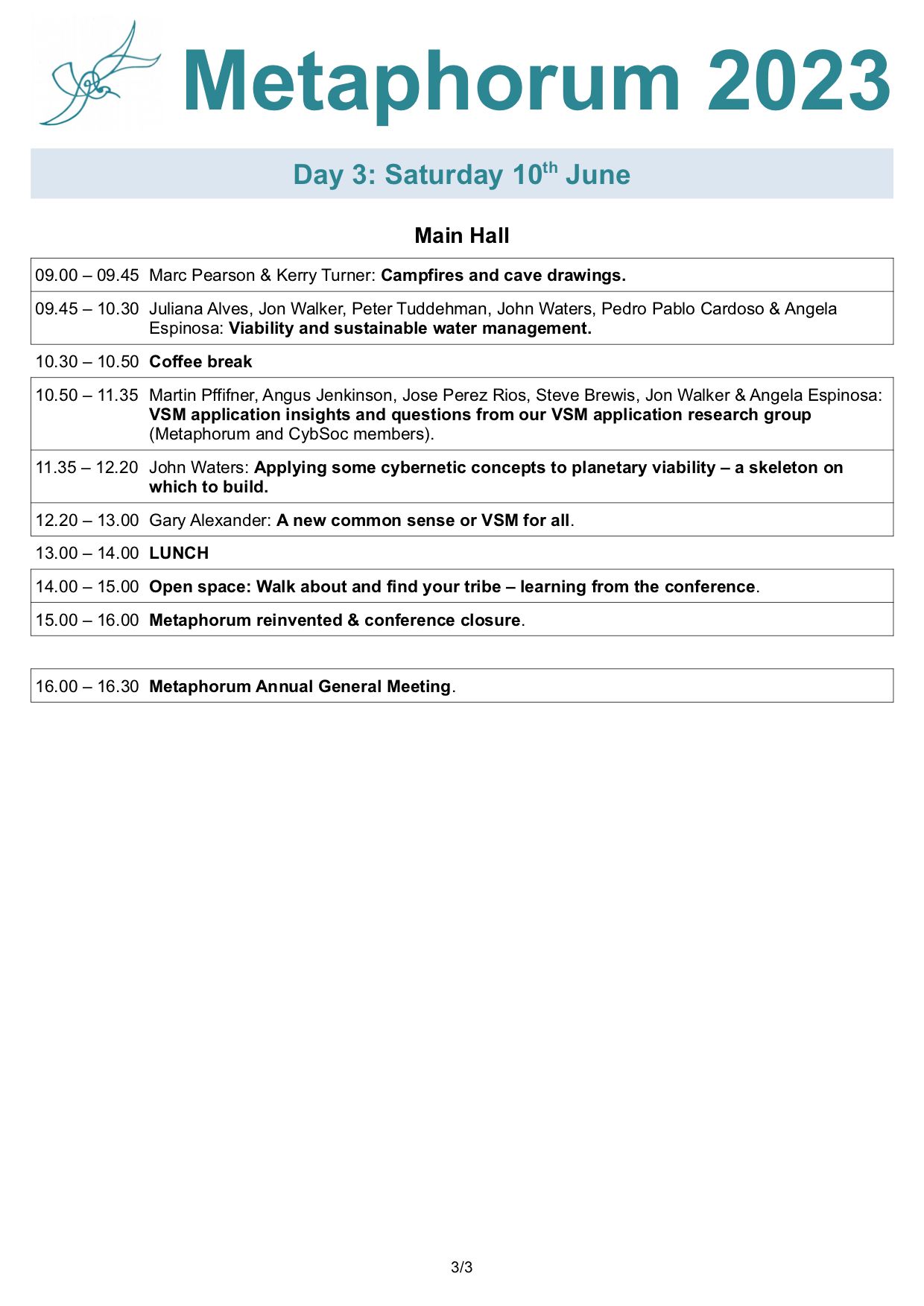
DAY 1
Arriving on time for the first days kick off I receive a friendly greeting at the front desk from Ian and John who further introduce me to Jon Walker, a lovely older gent working on the organising committee with Ian.
Within minutes of my arrival though the conference is starting with the welcome address, followed by Angela Espinosa's presentation "Viability through emancipation – learning from VSM practice."
This exposition highlighted her VSM work within grassroots organisations and for me served as decent aspirational target since she'd helped numerous organisations reform and refine their practices to become reduce their overheads.
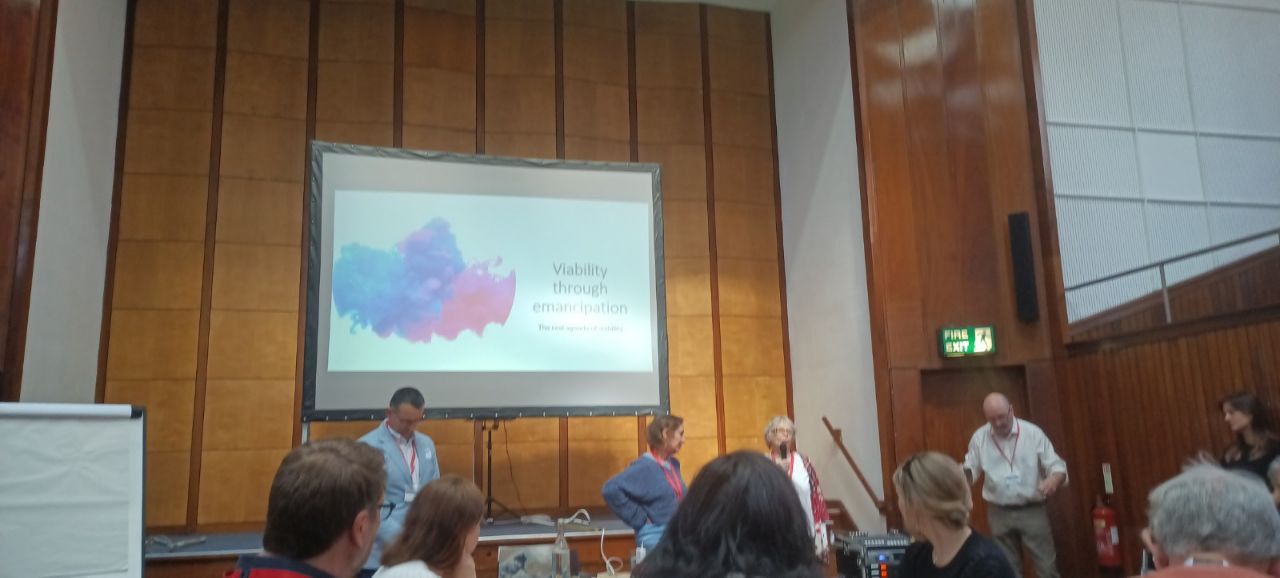
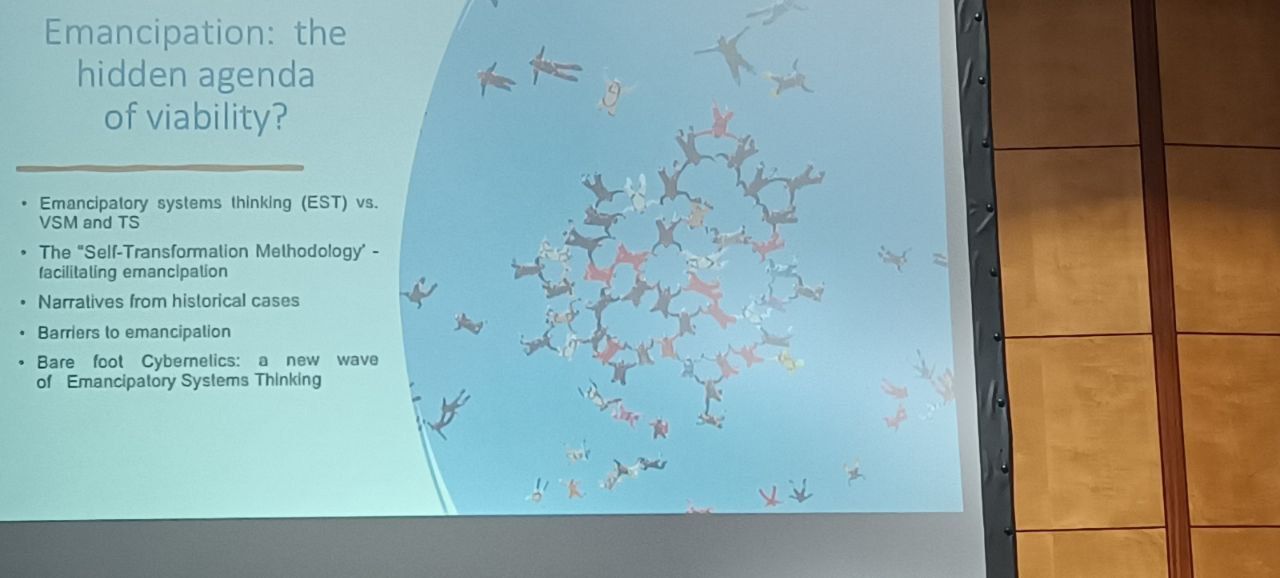
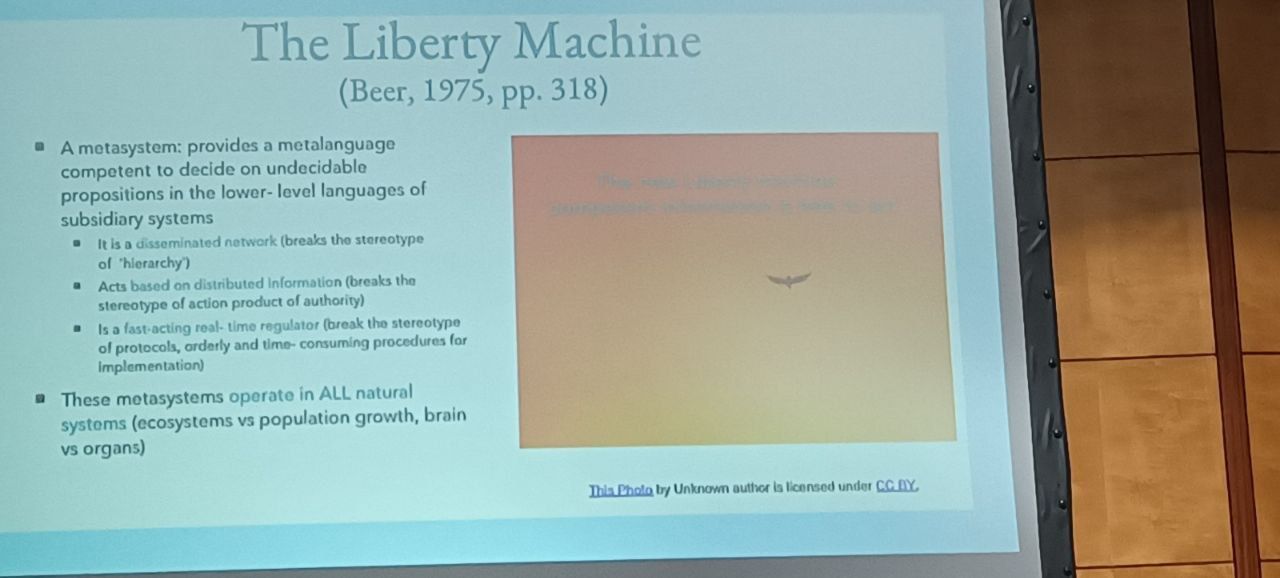

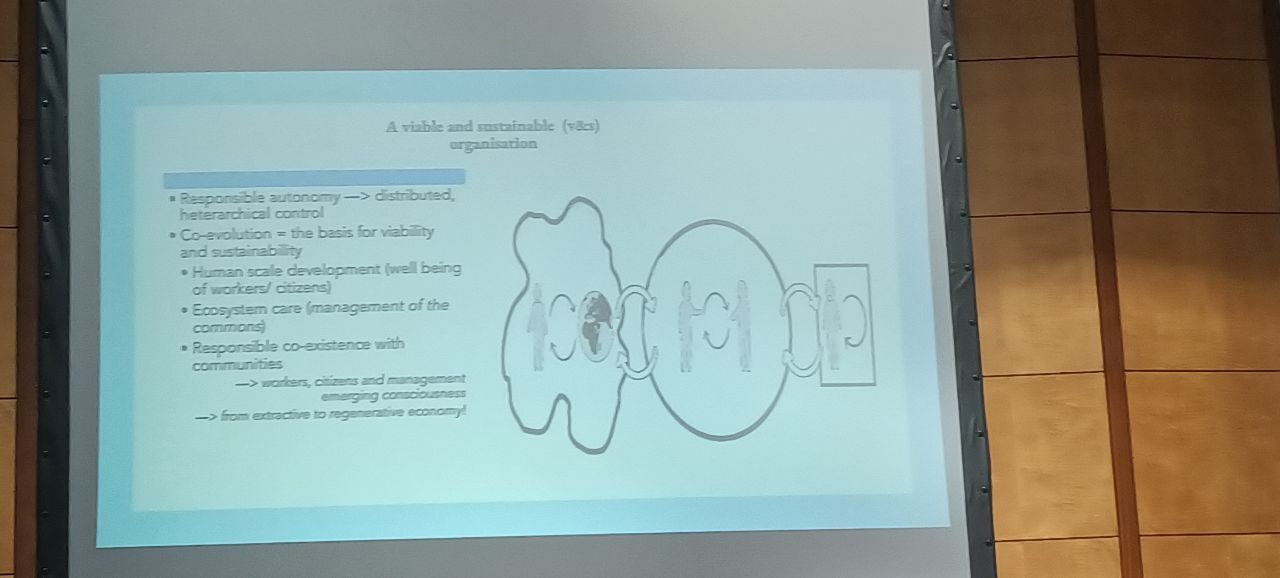
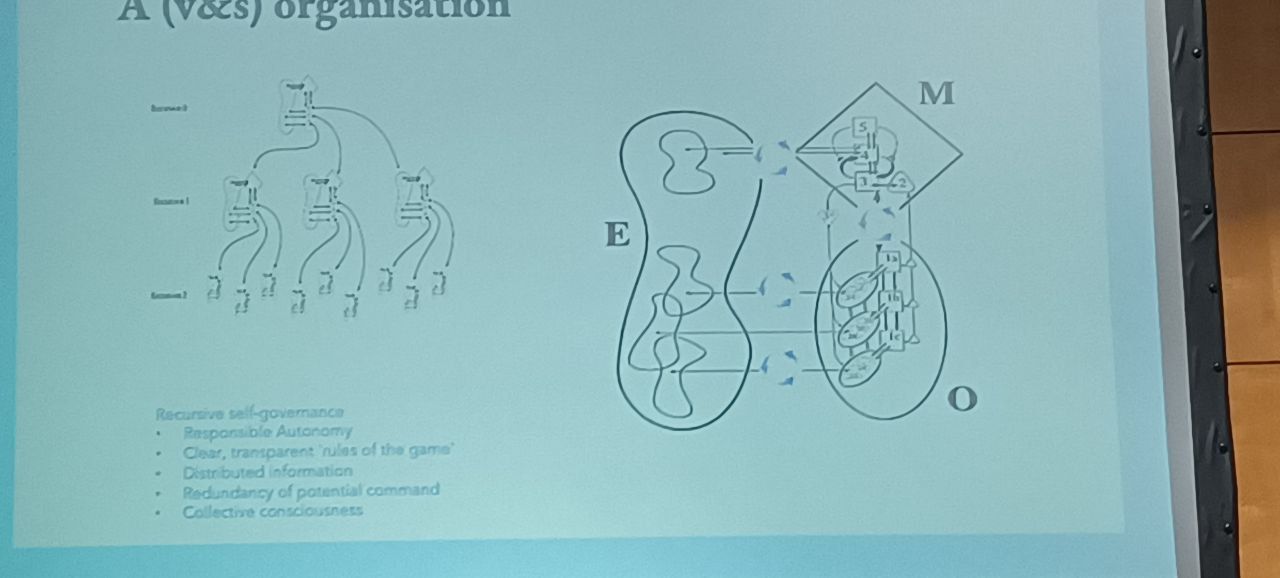
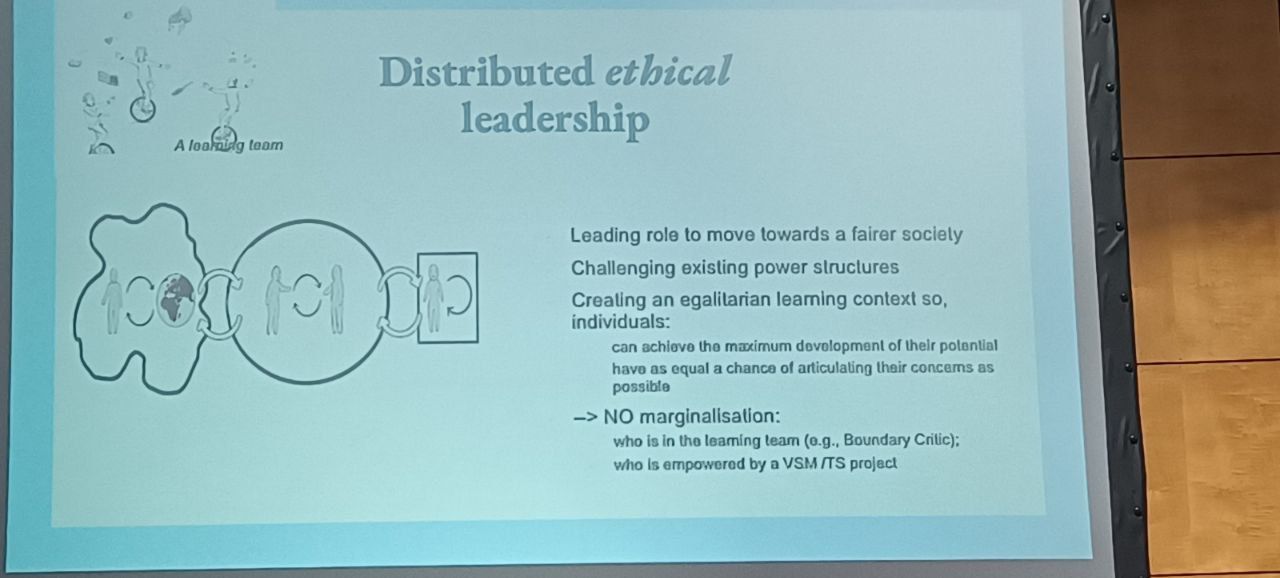
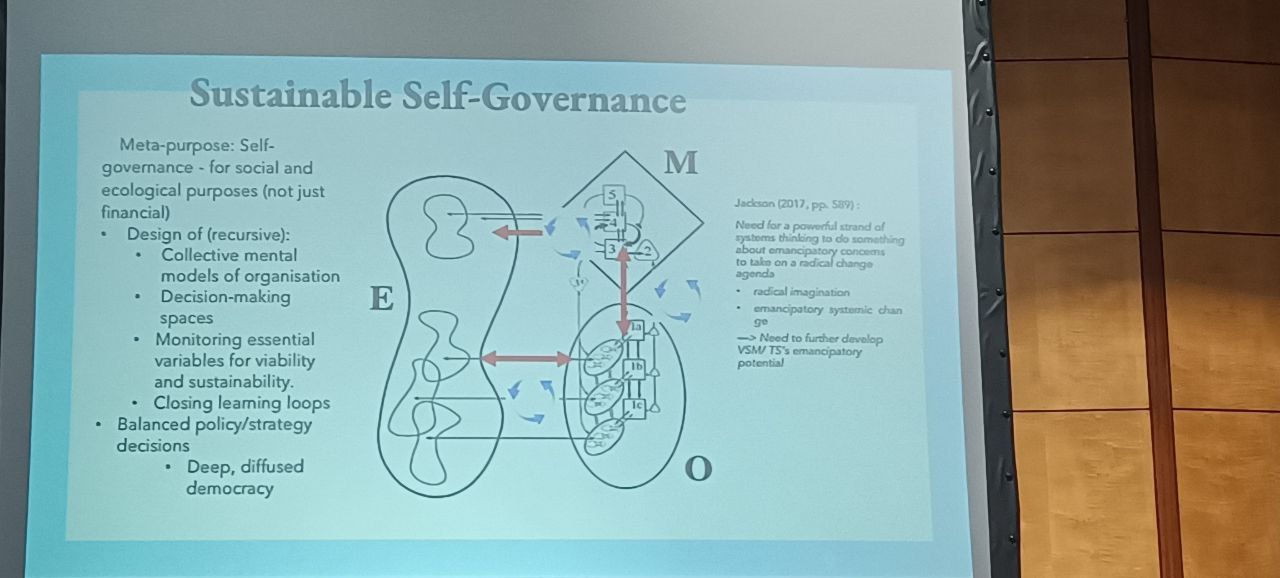
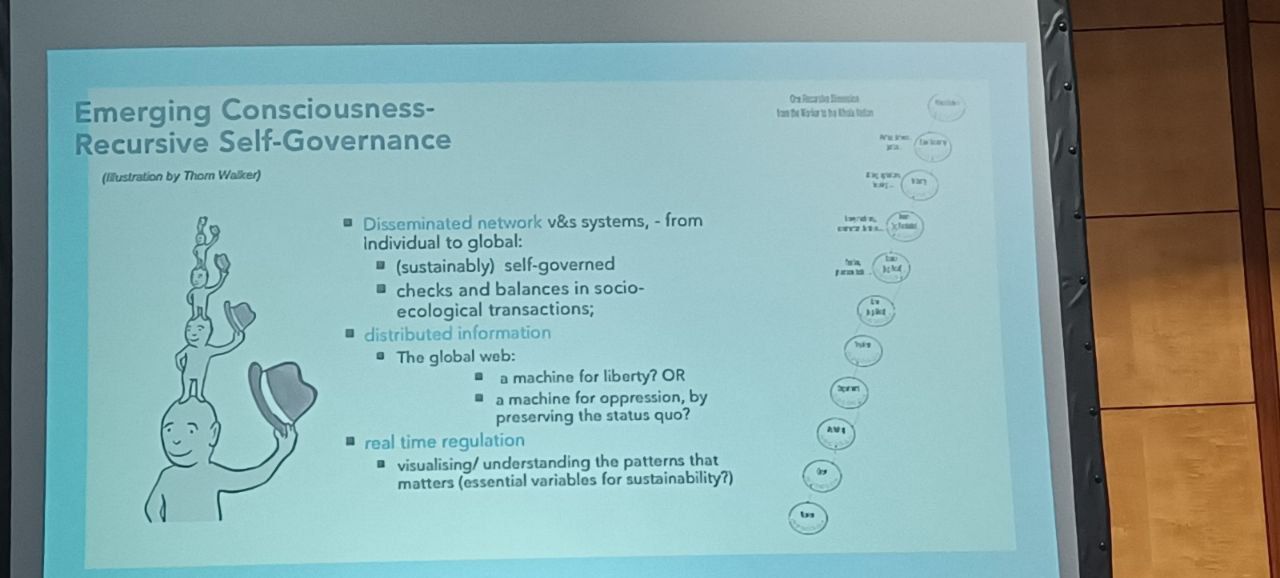
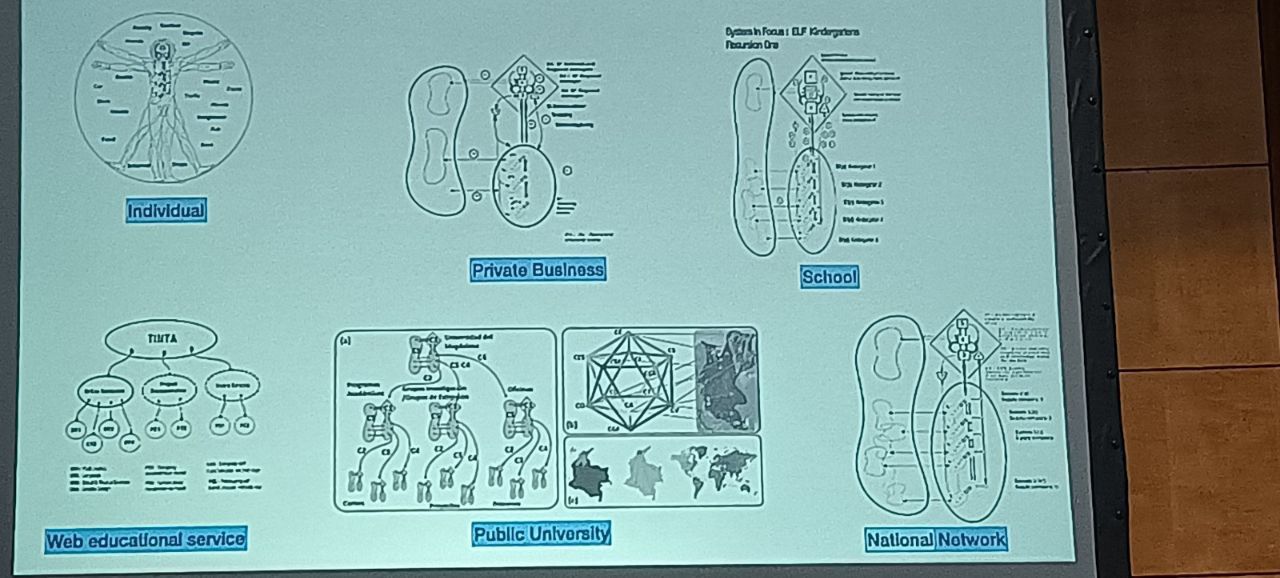
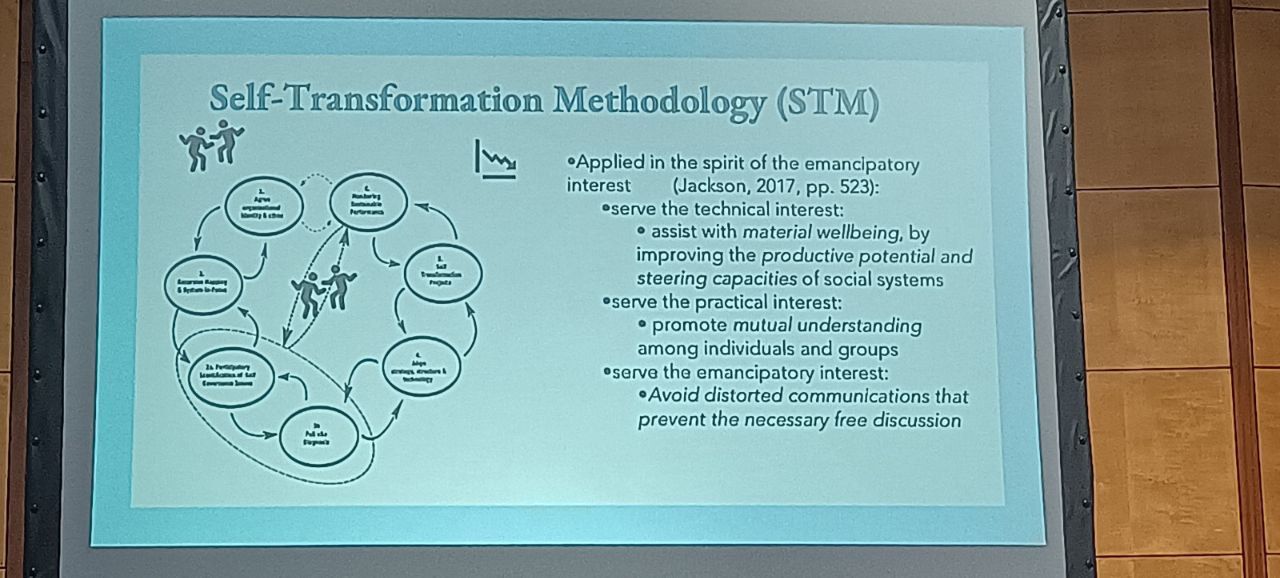
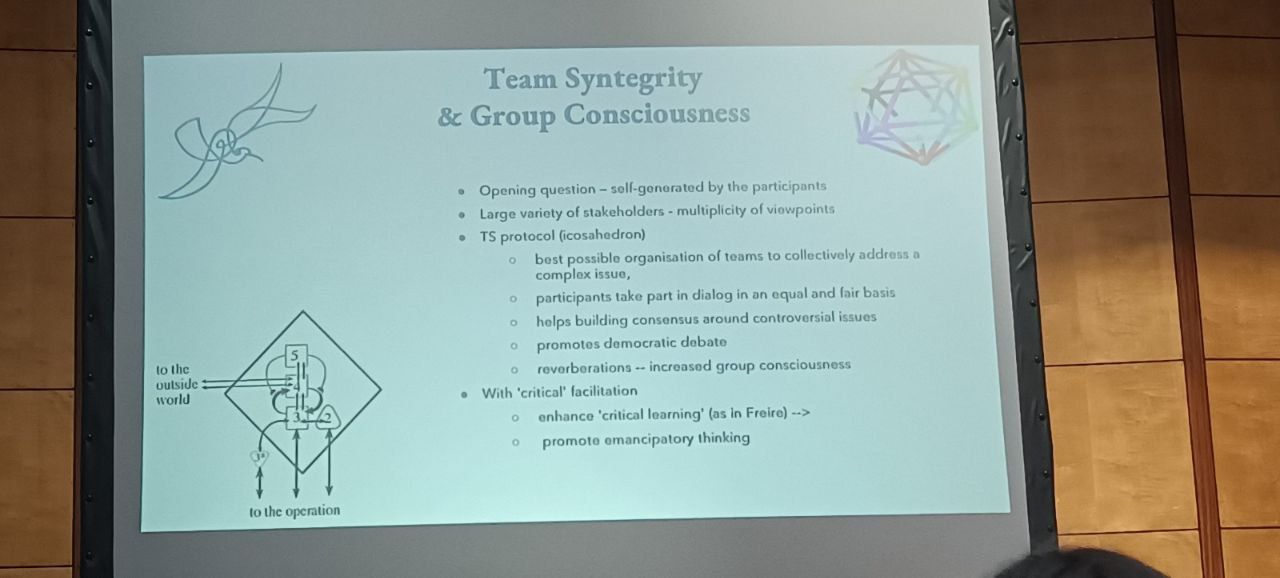
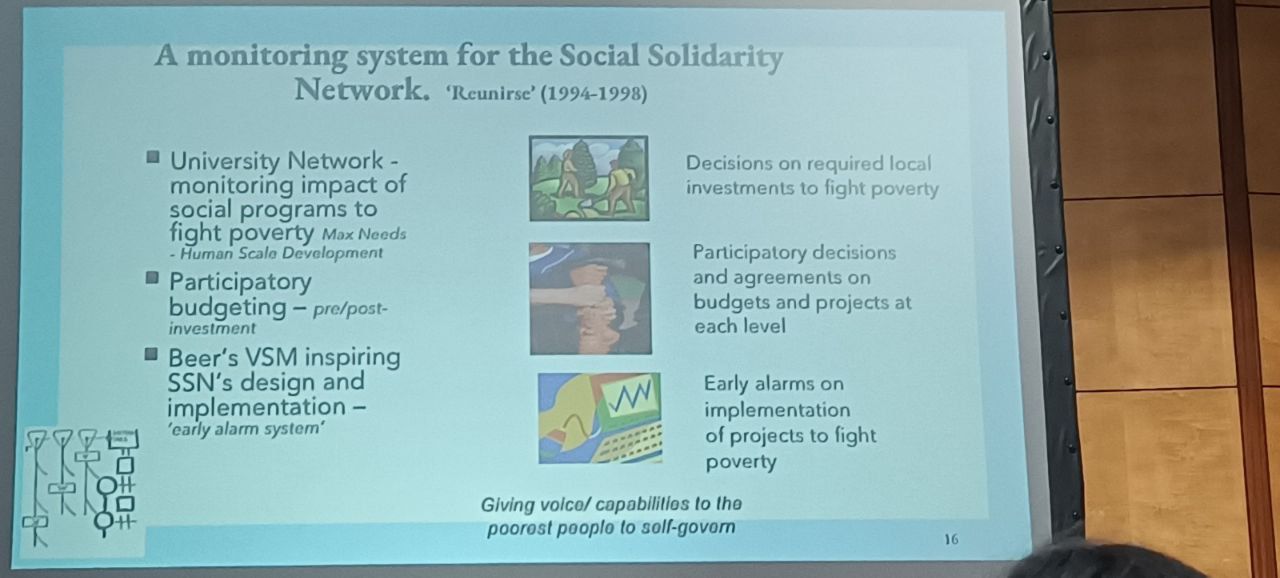

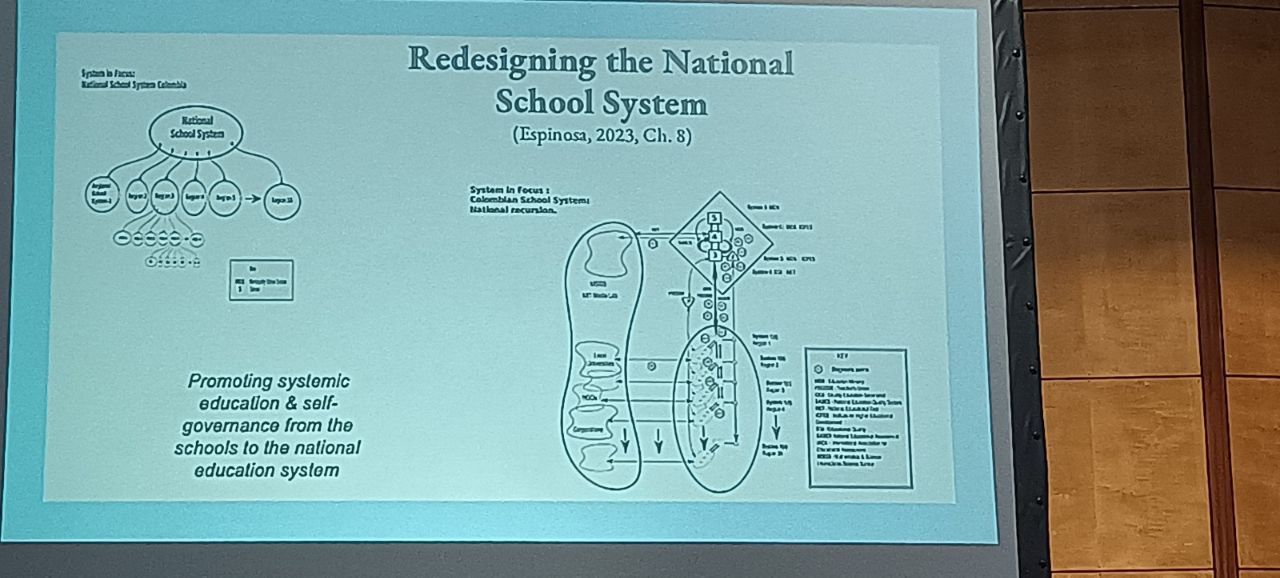
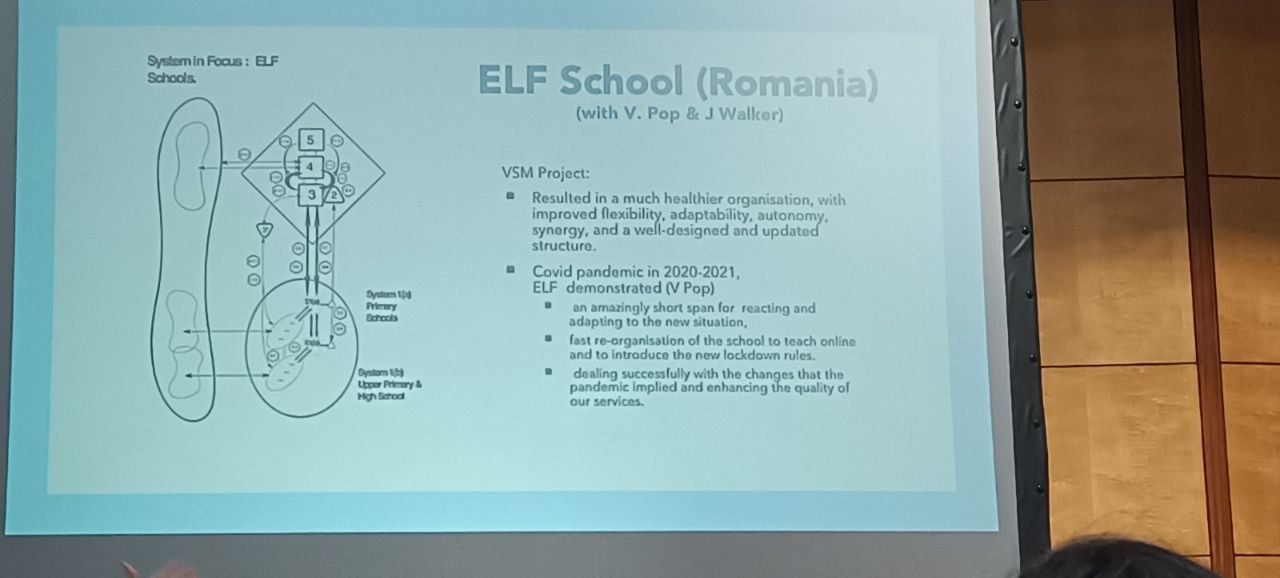
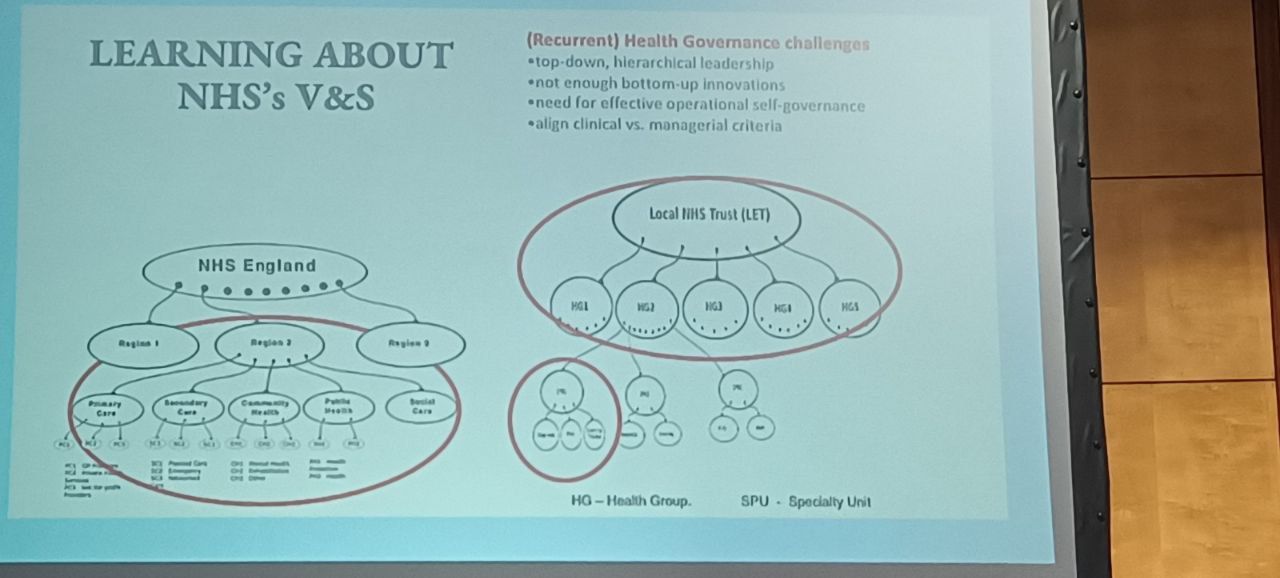
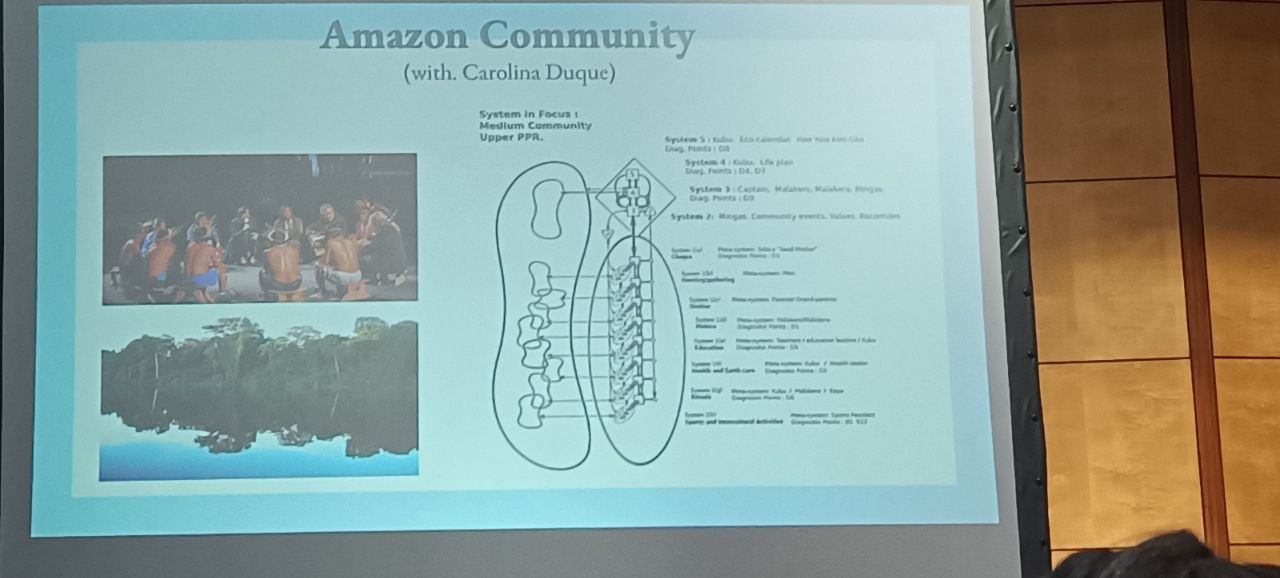
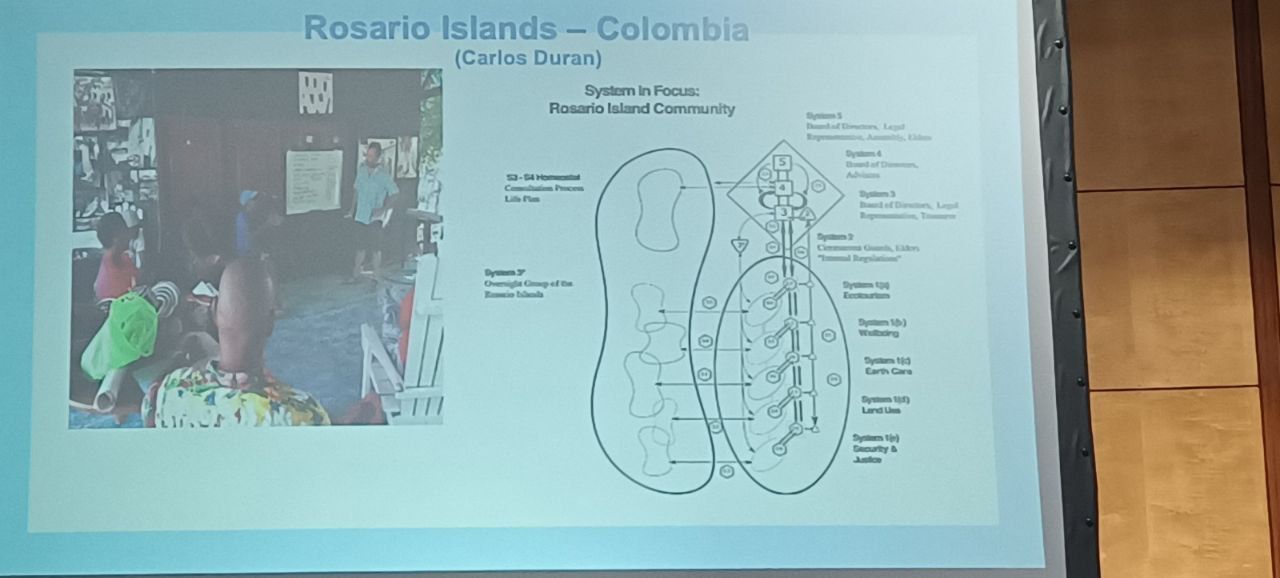
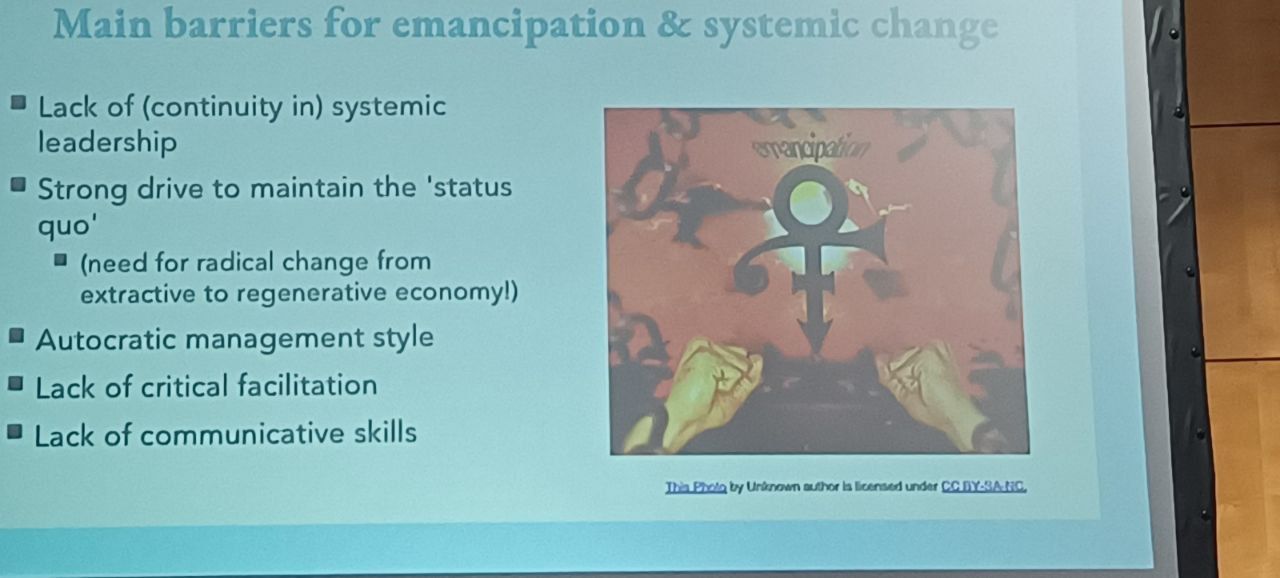

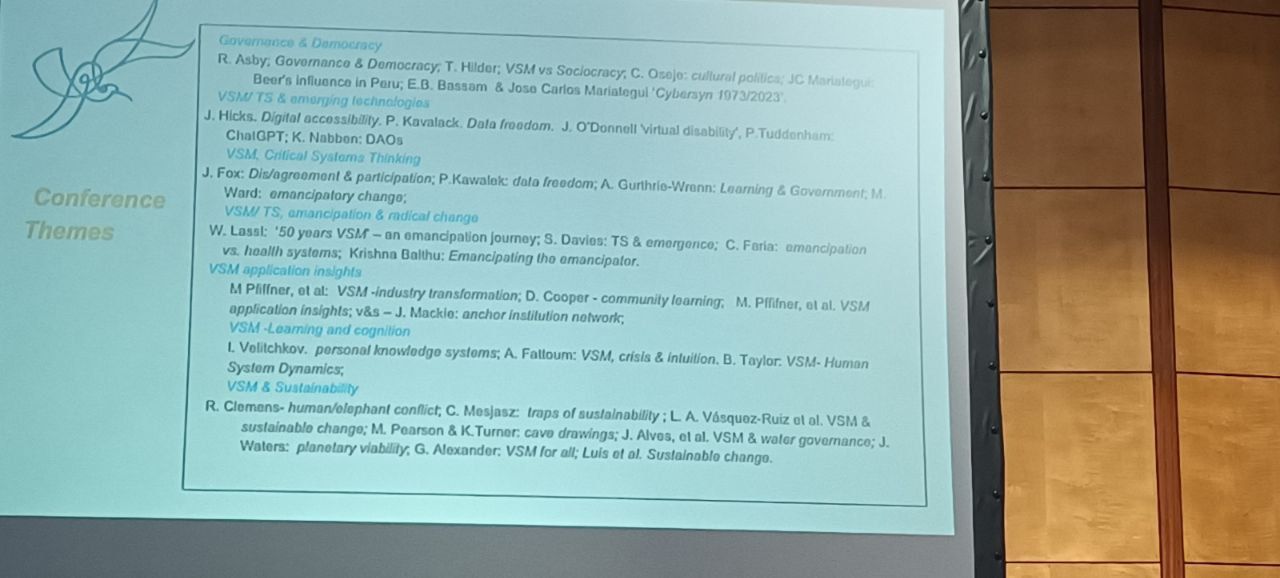
After this you can see the programme bifurcated into two tracks running in different rooms and I chose to stay in the main hall with Robin Asby who was talking on "Designing Democracy; a systemic blueprint for governing". This was a fine presentation on the core tenants of the Viable Systems Model and how we can look at government and nation states through such a lens.
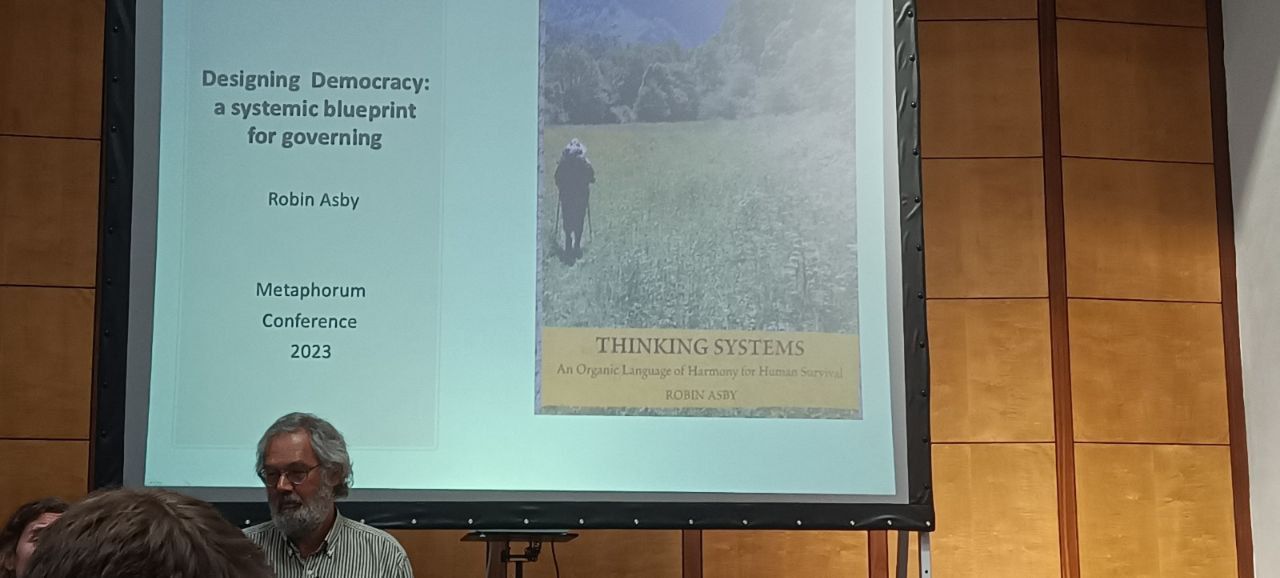

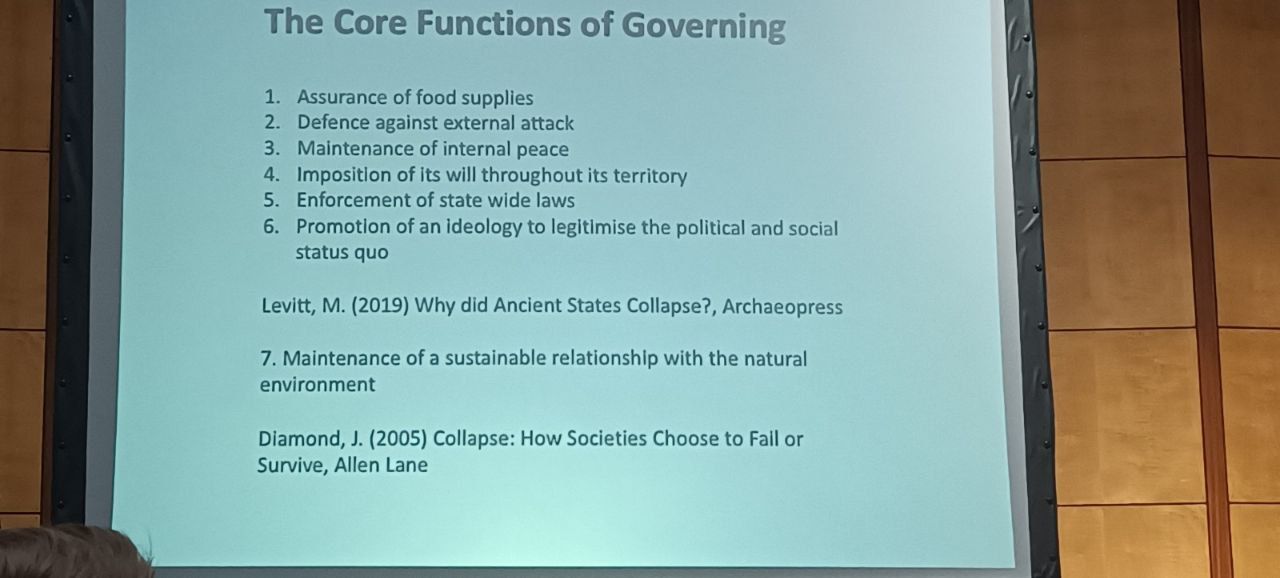
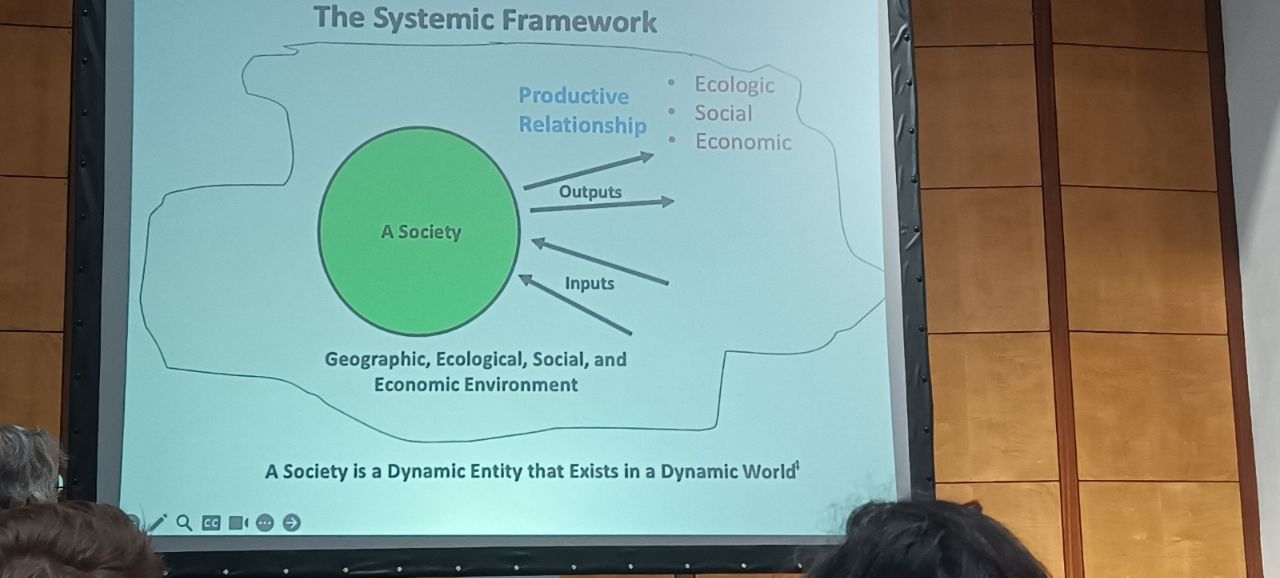
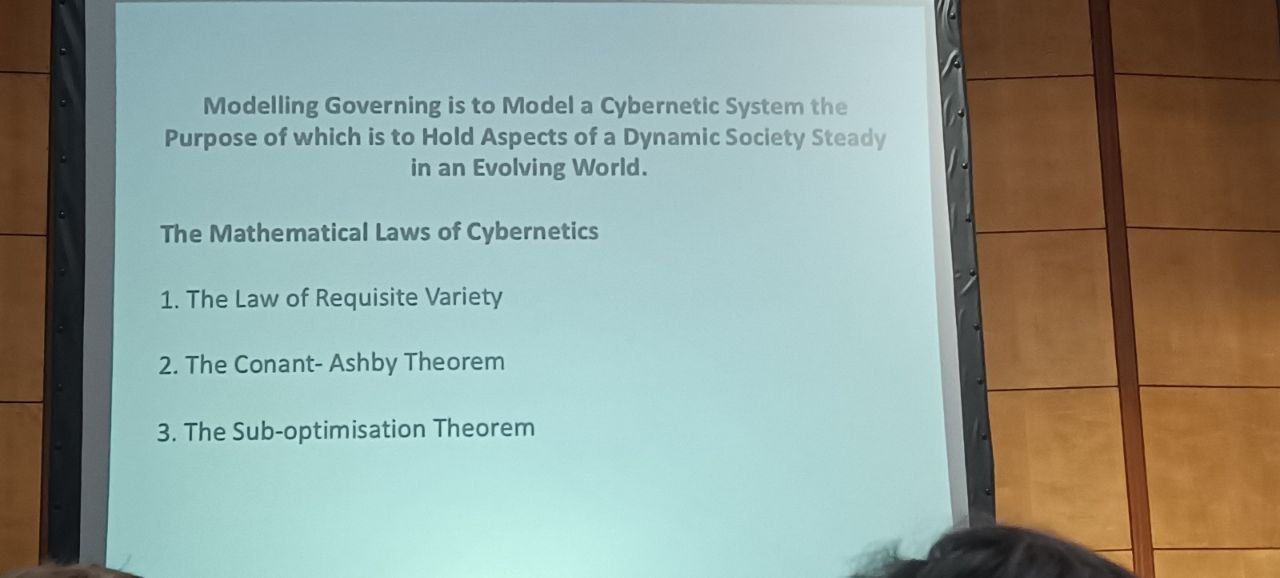
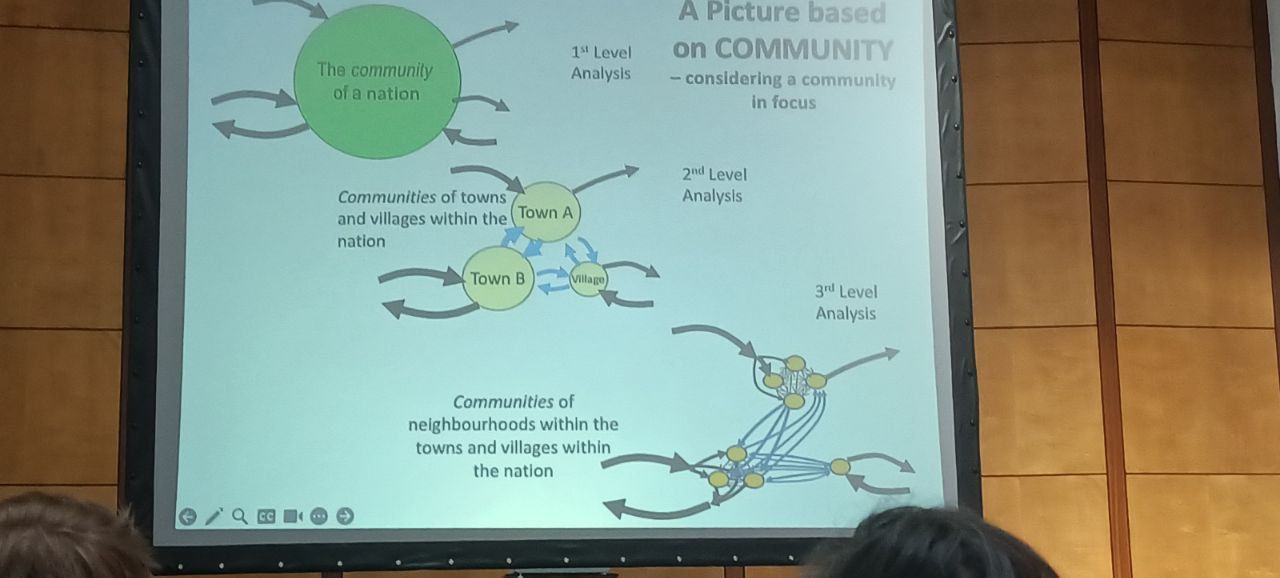
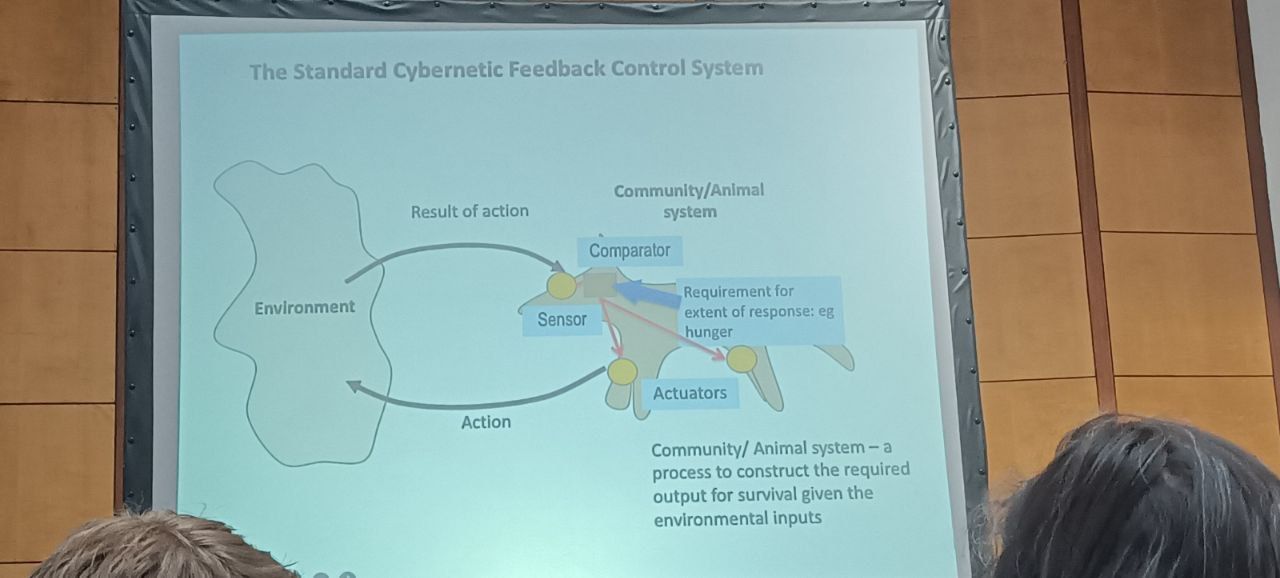

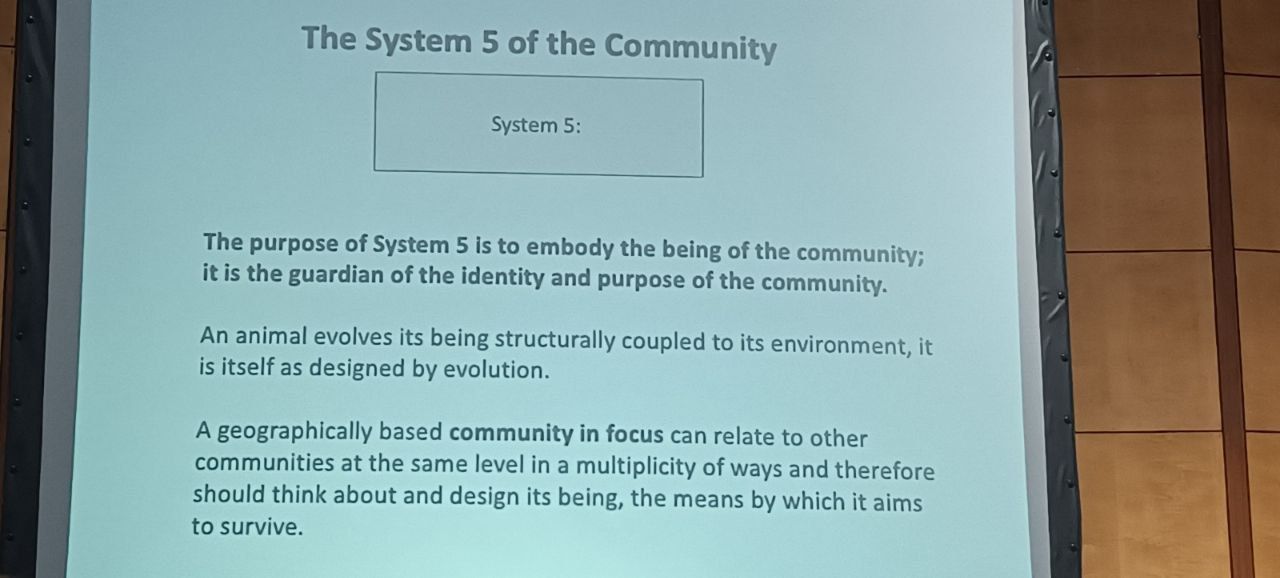
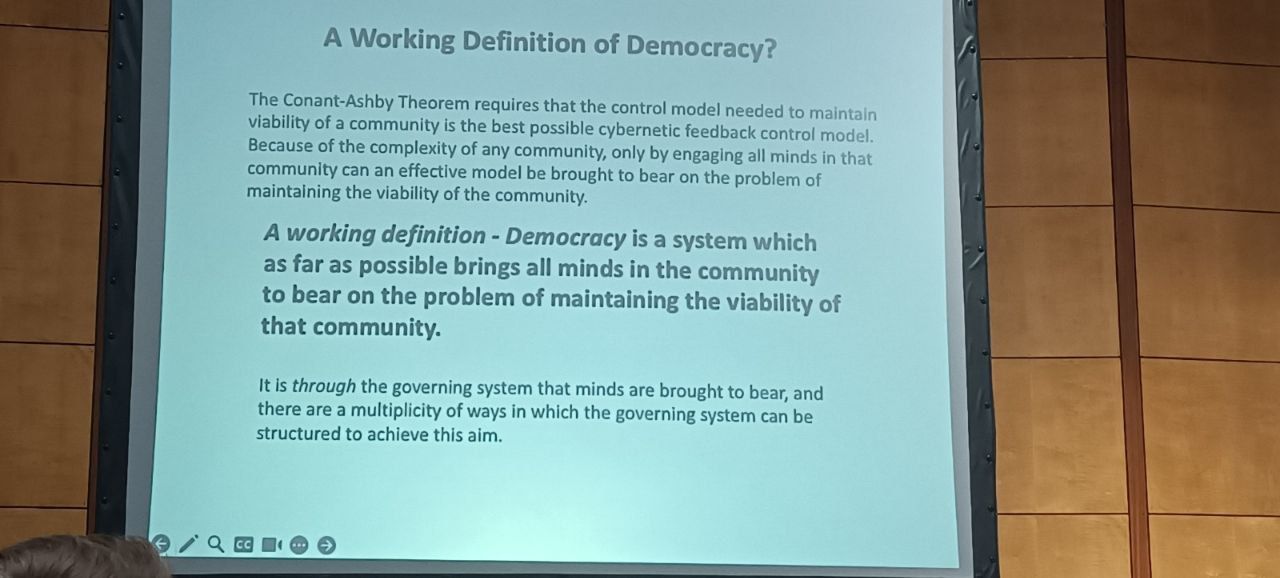
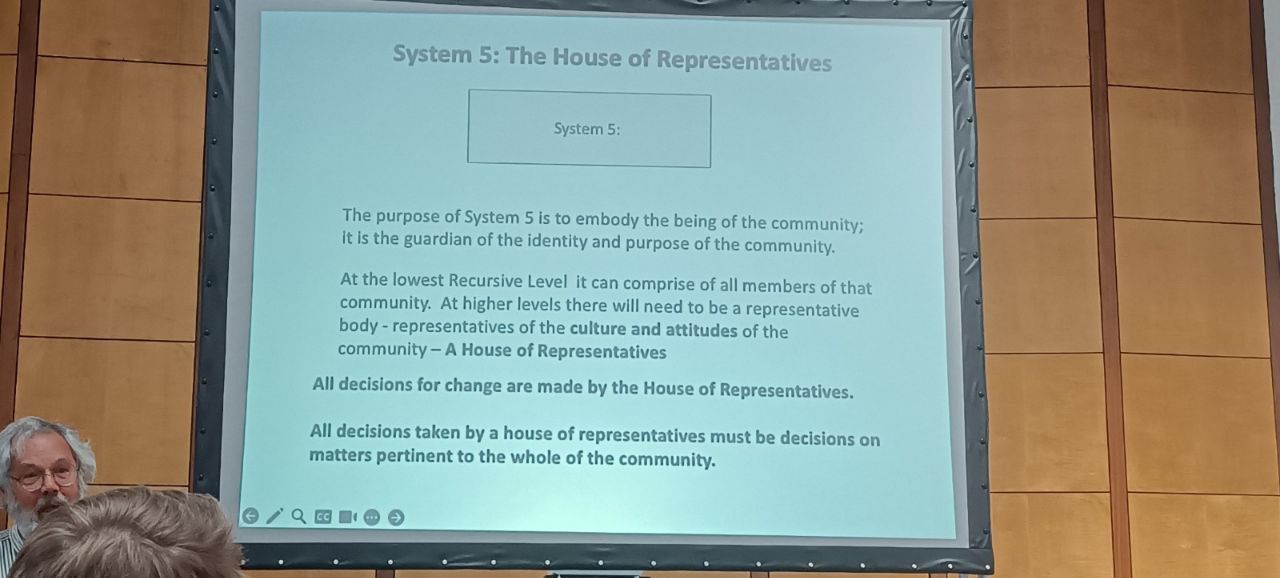
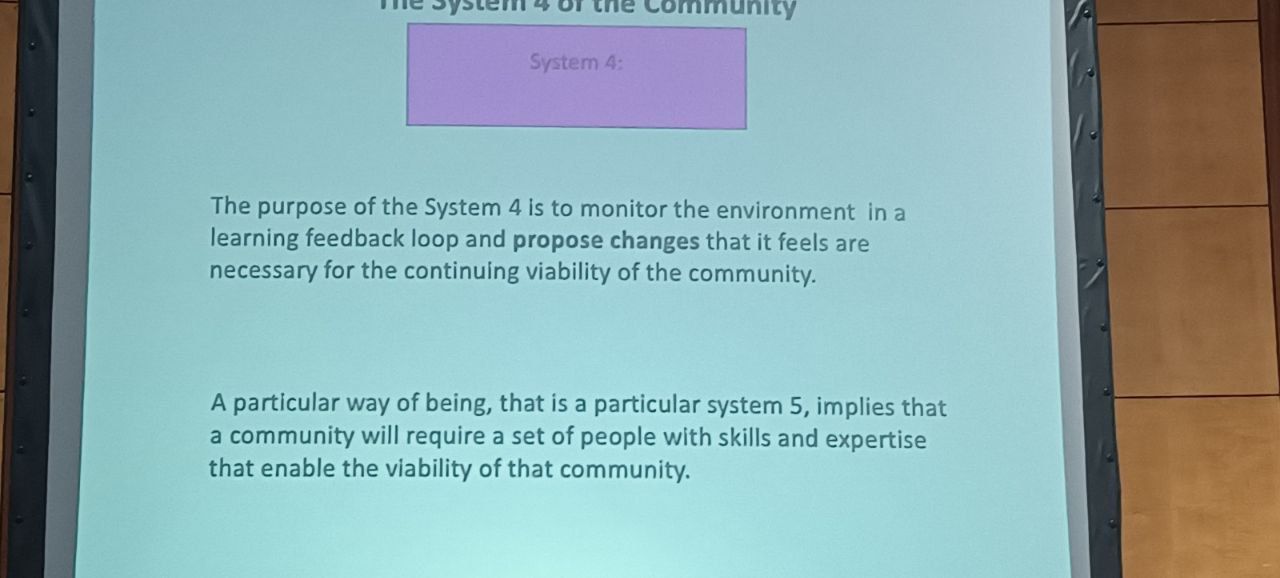
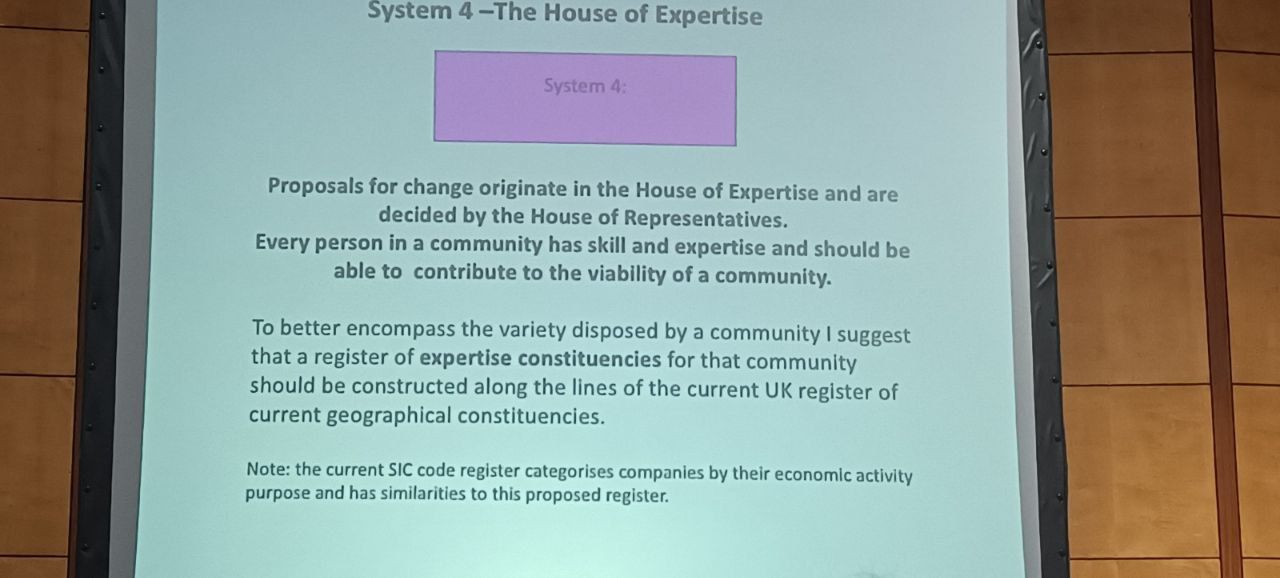
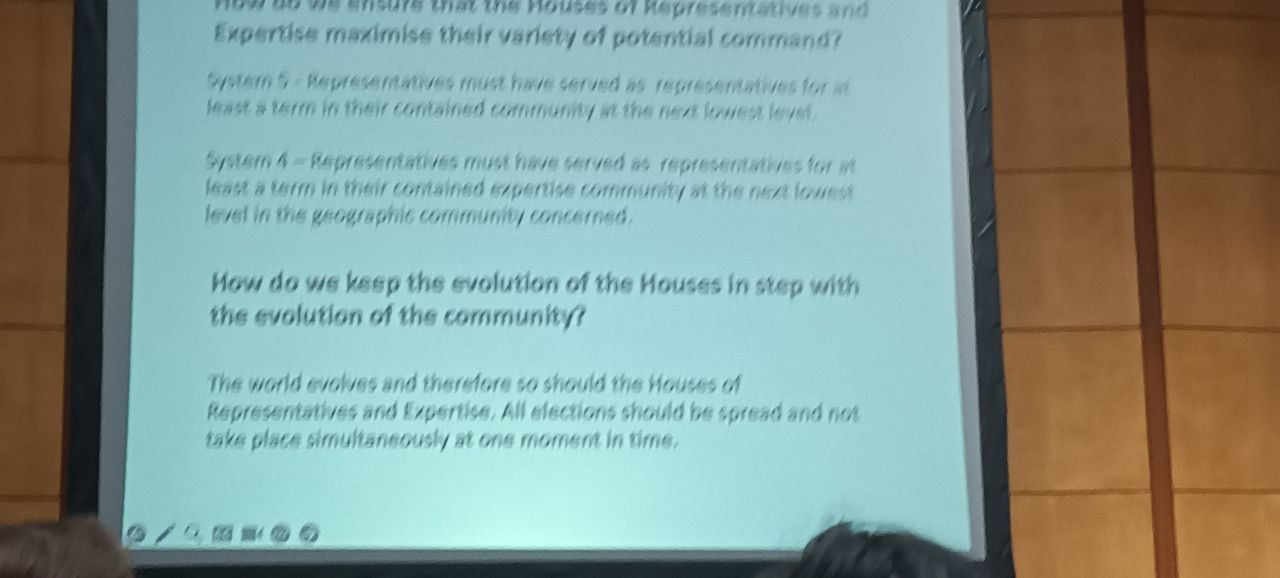
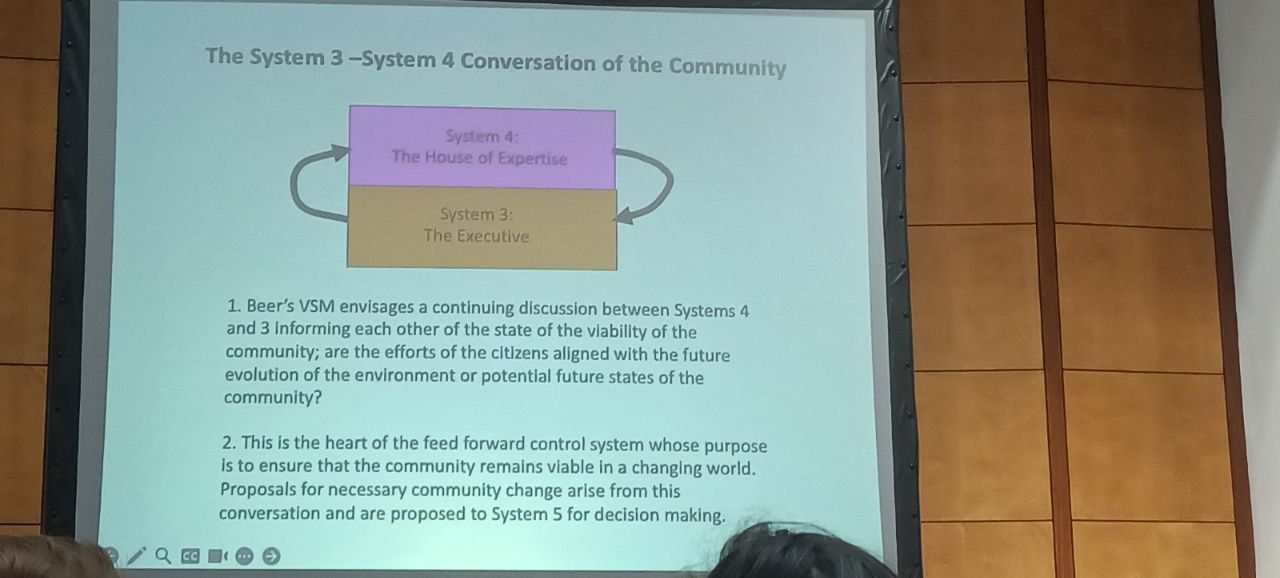
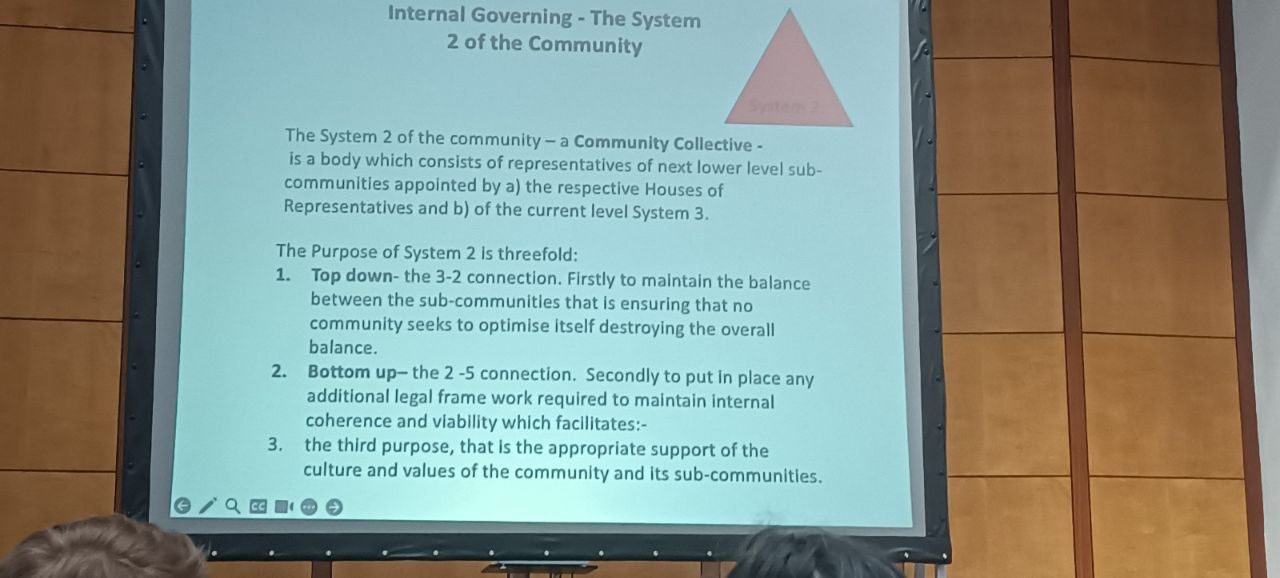
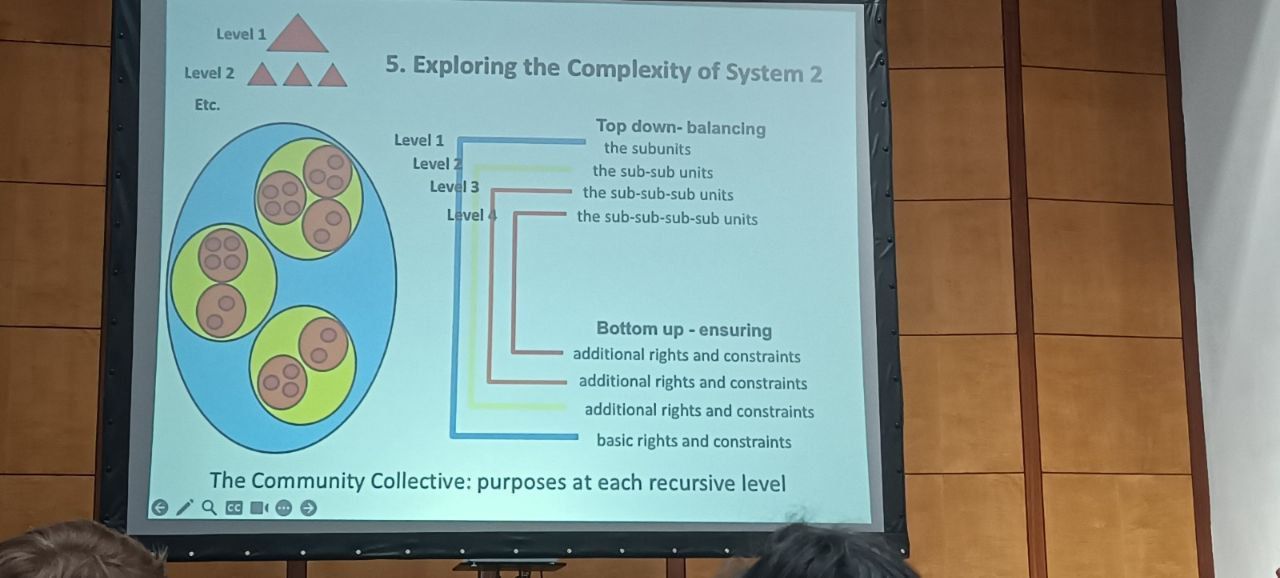

After a break for sandwiches, I decide to stay on in the main room for Johns presentation on accessibility. The key points made here was that without paying attention to accessibility a large part of the environment is excluded, which in turn limits internal variety also. Slides below.
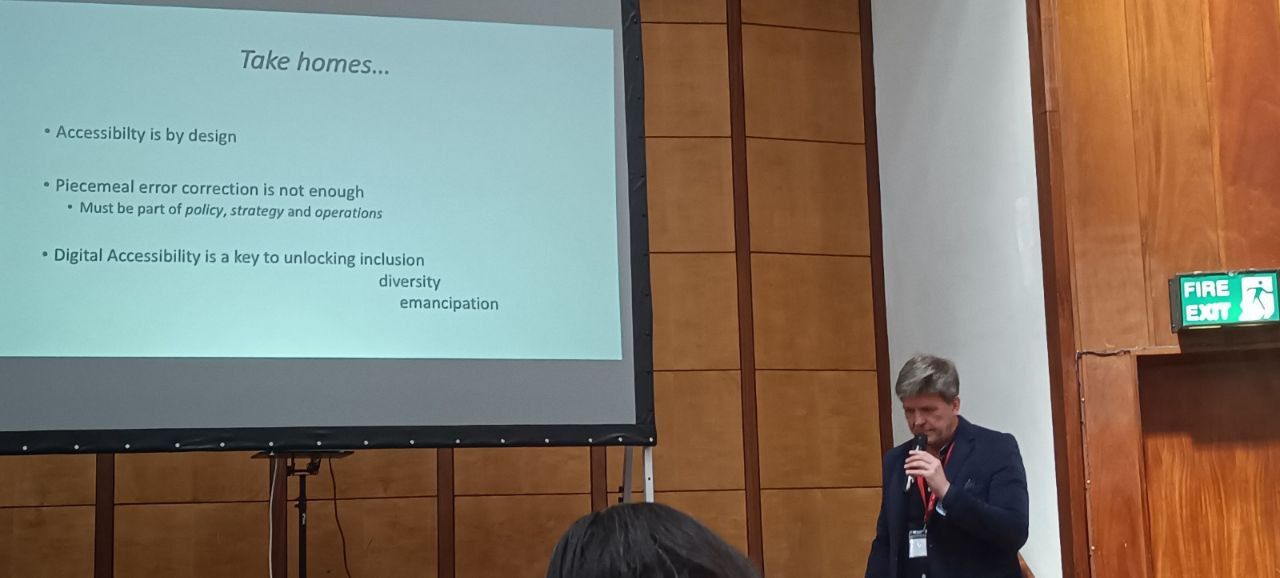
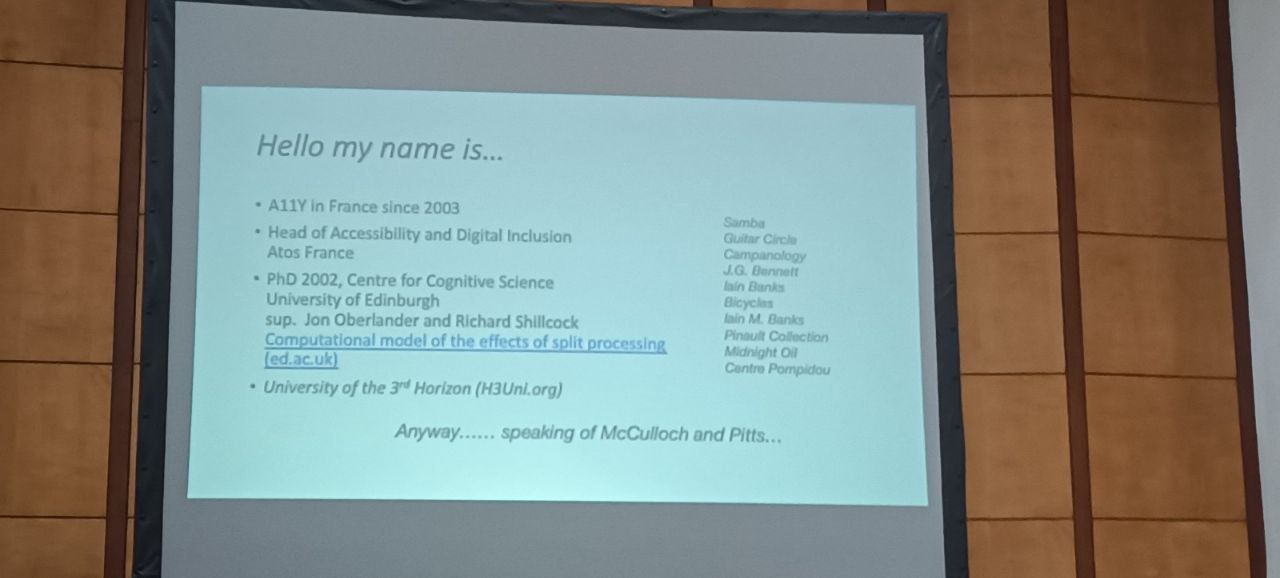
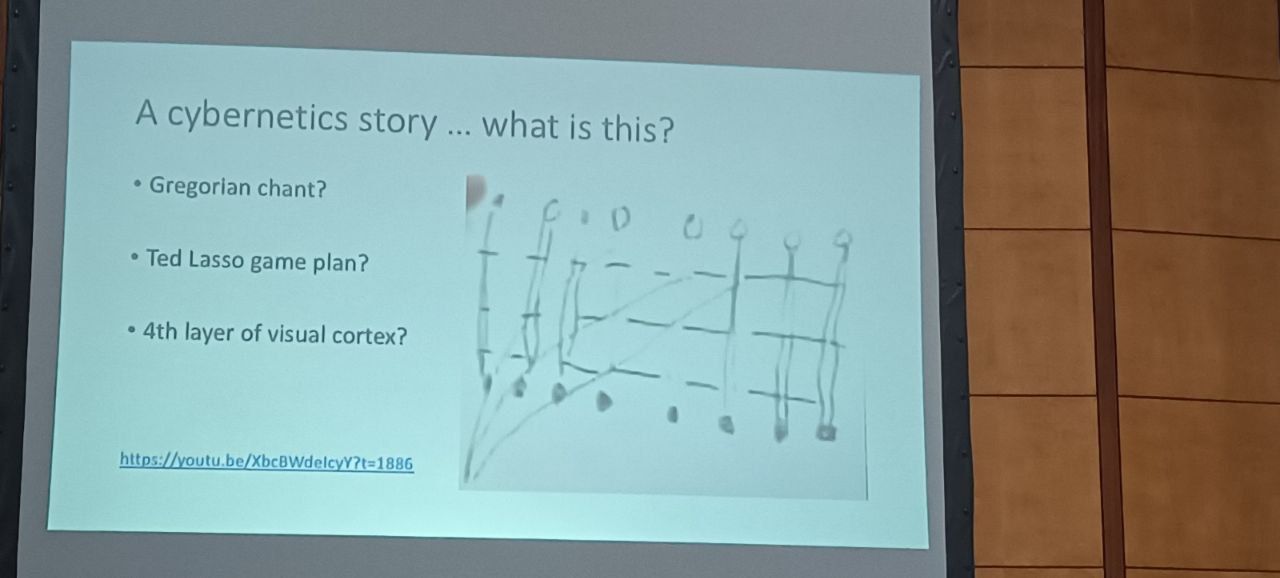
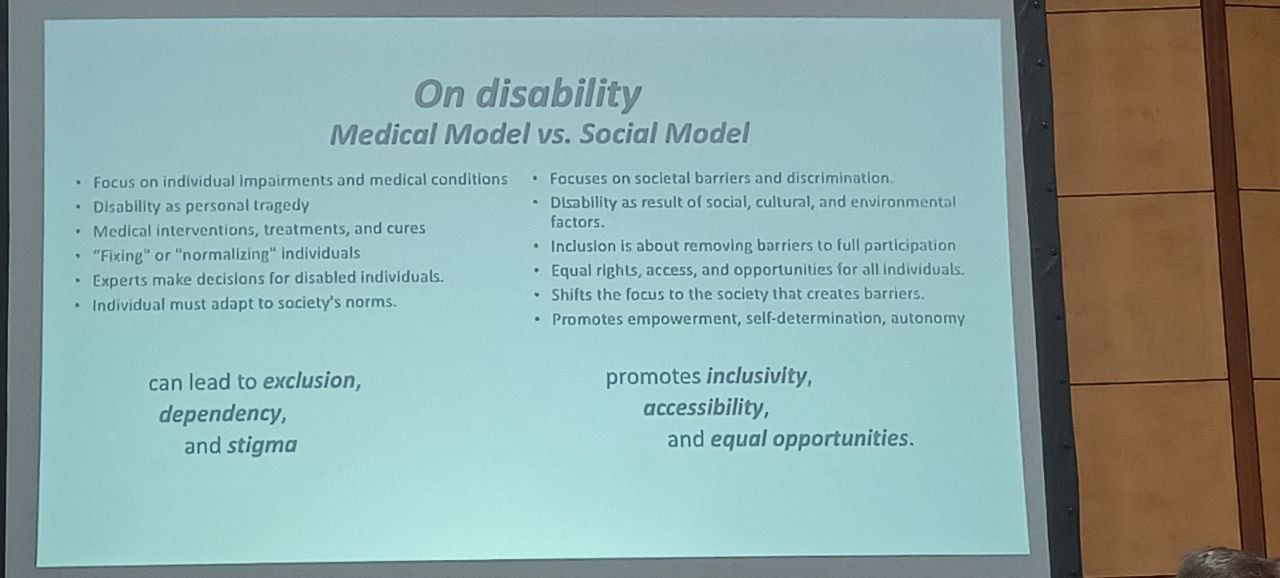
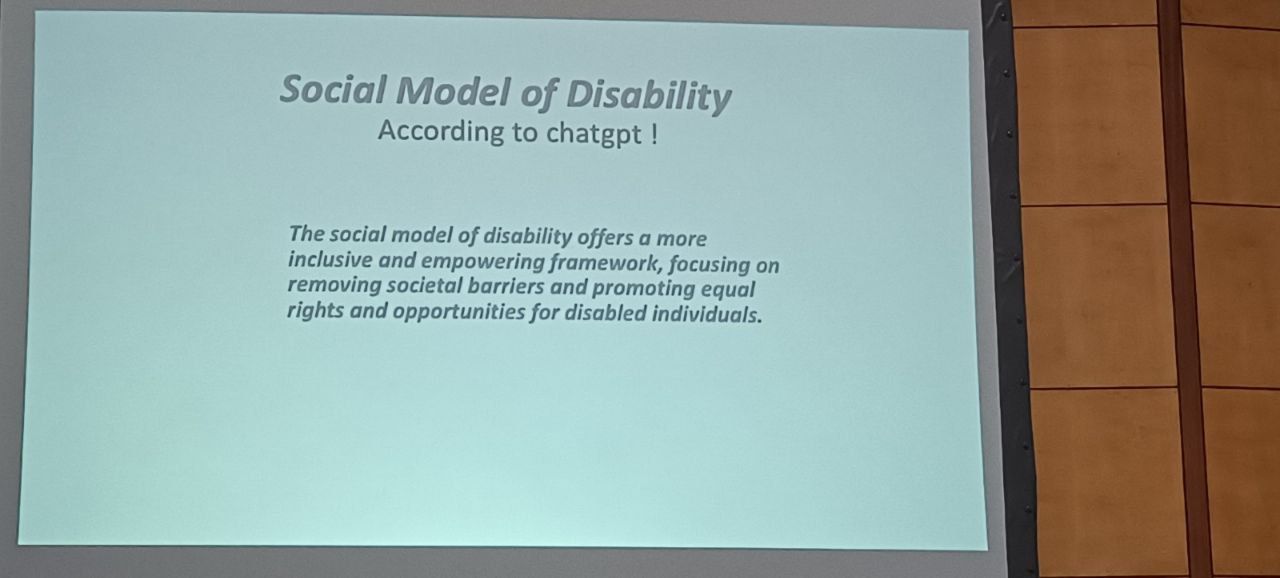
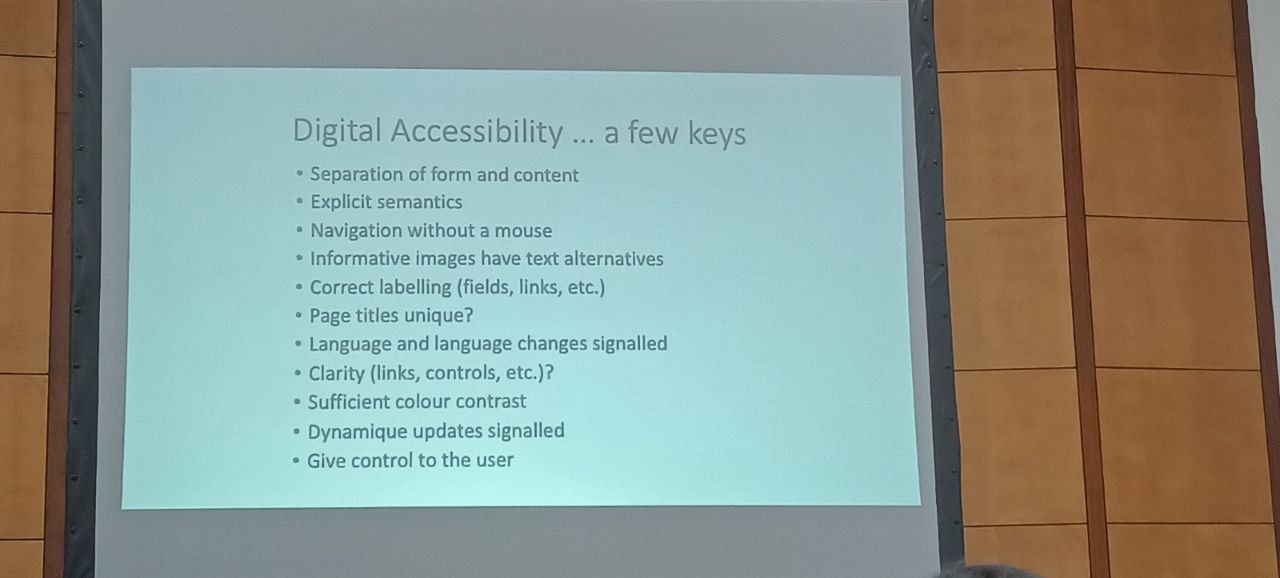
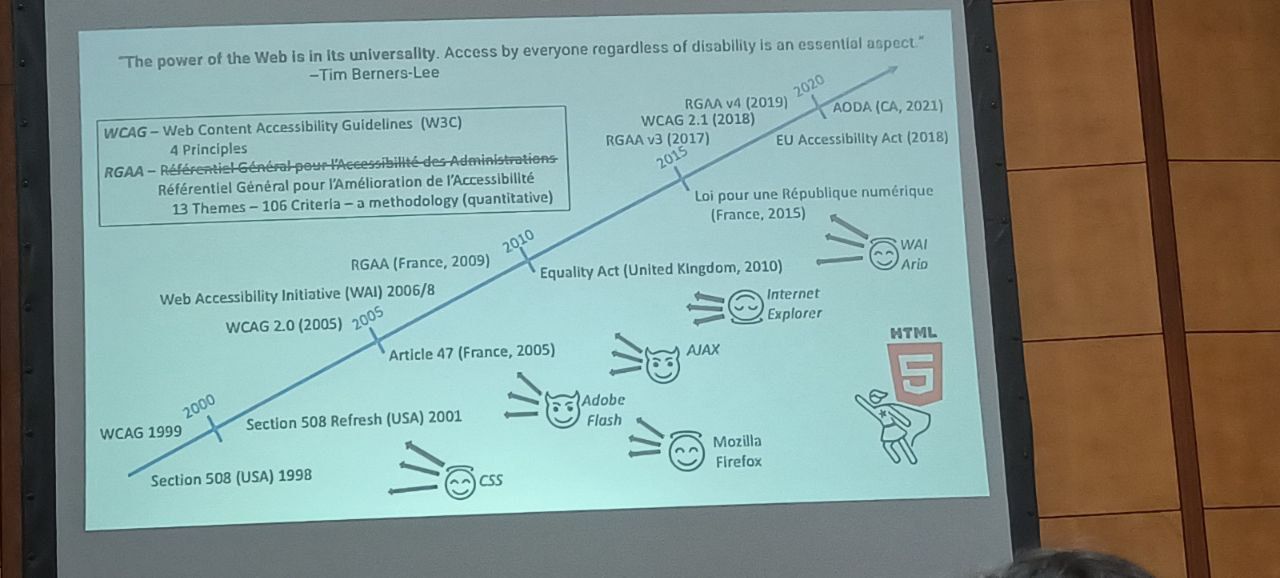
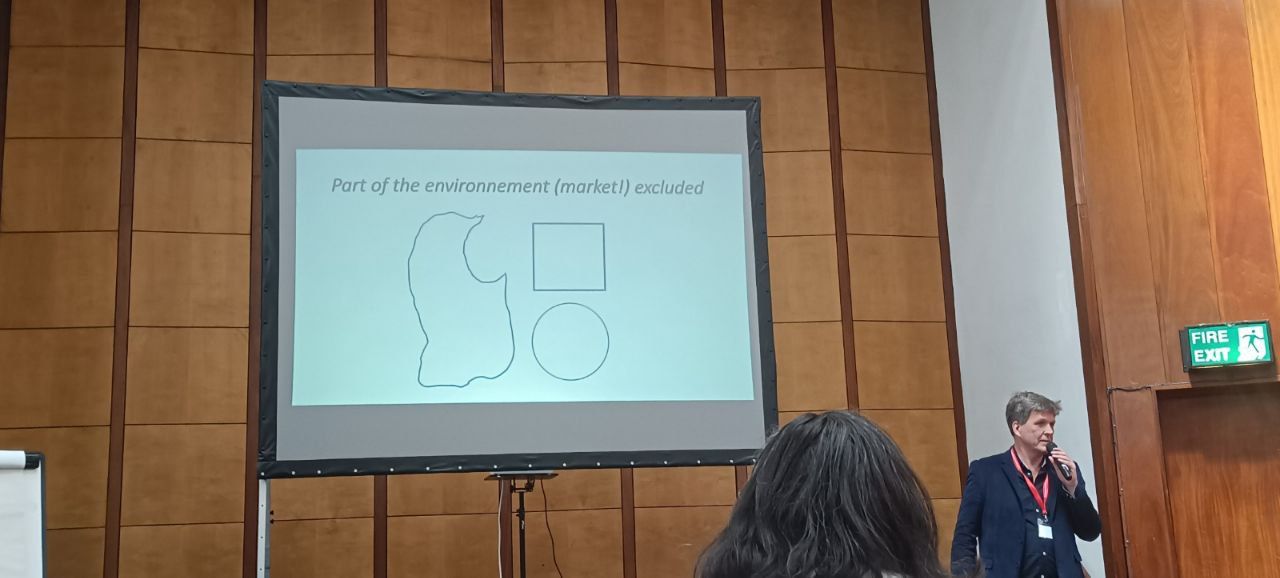
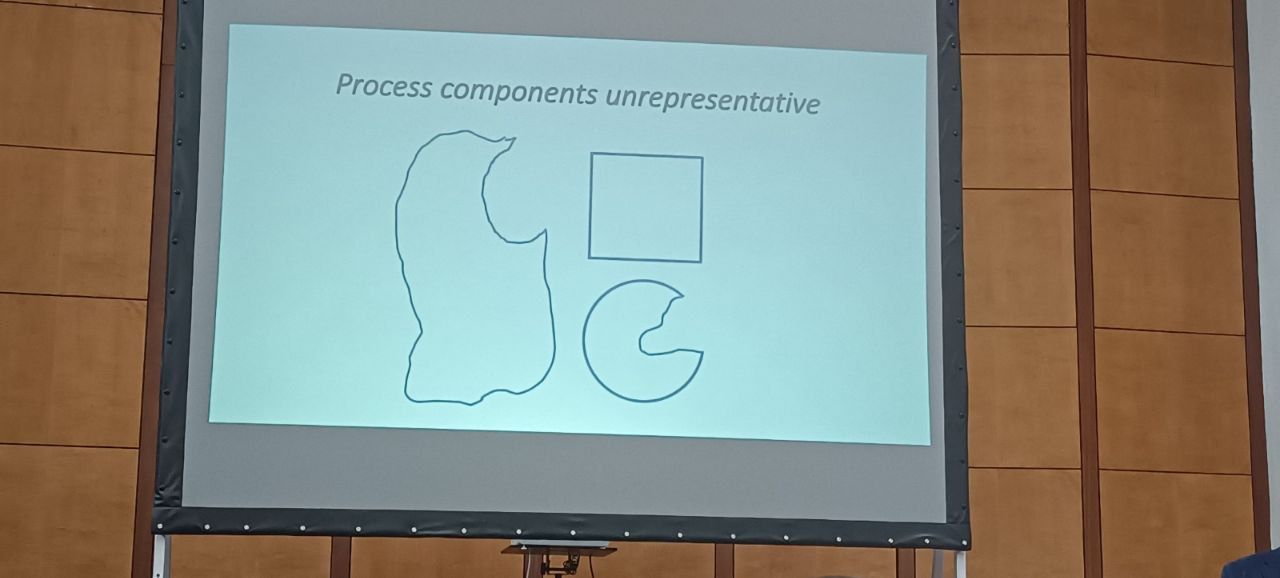
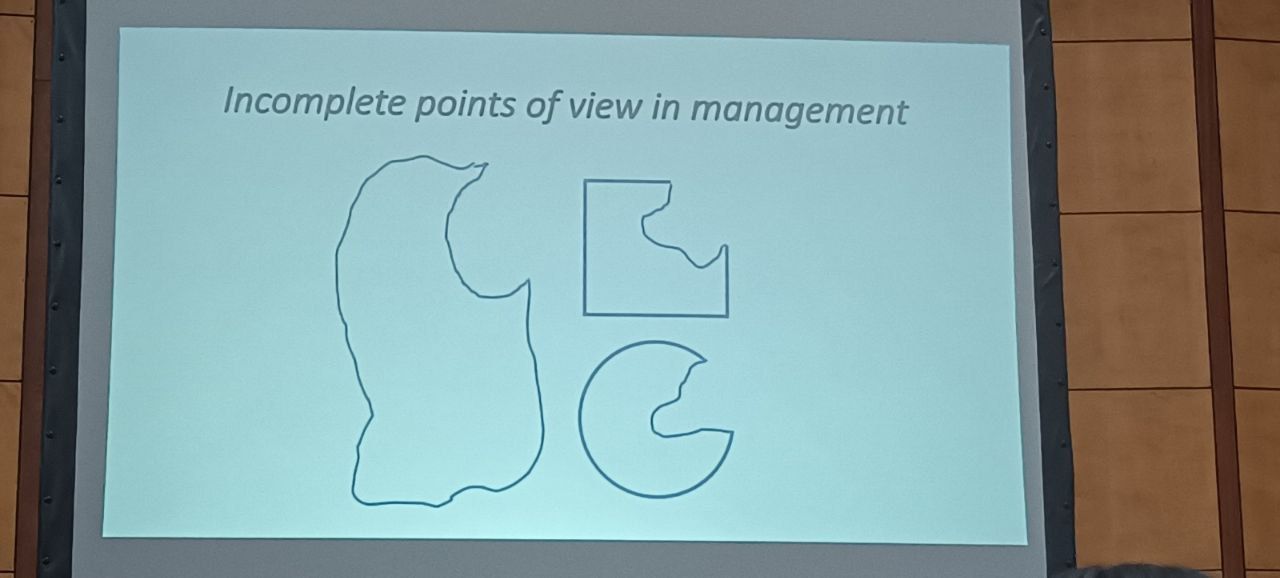
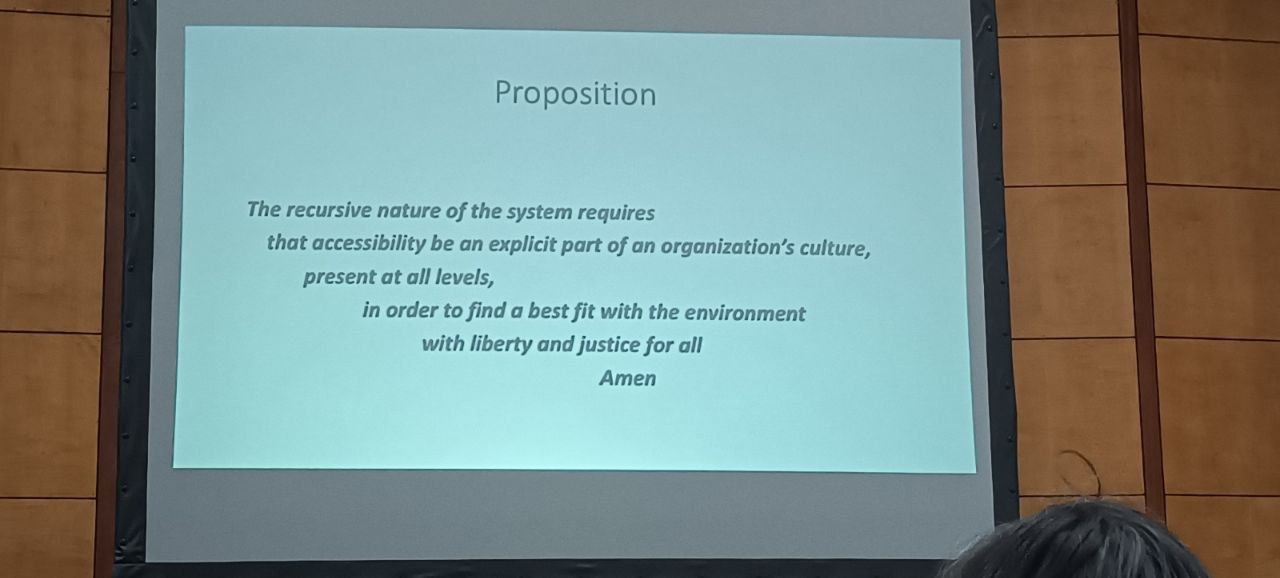
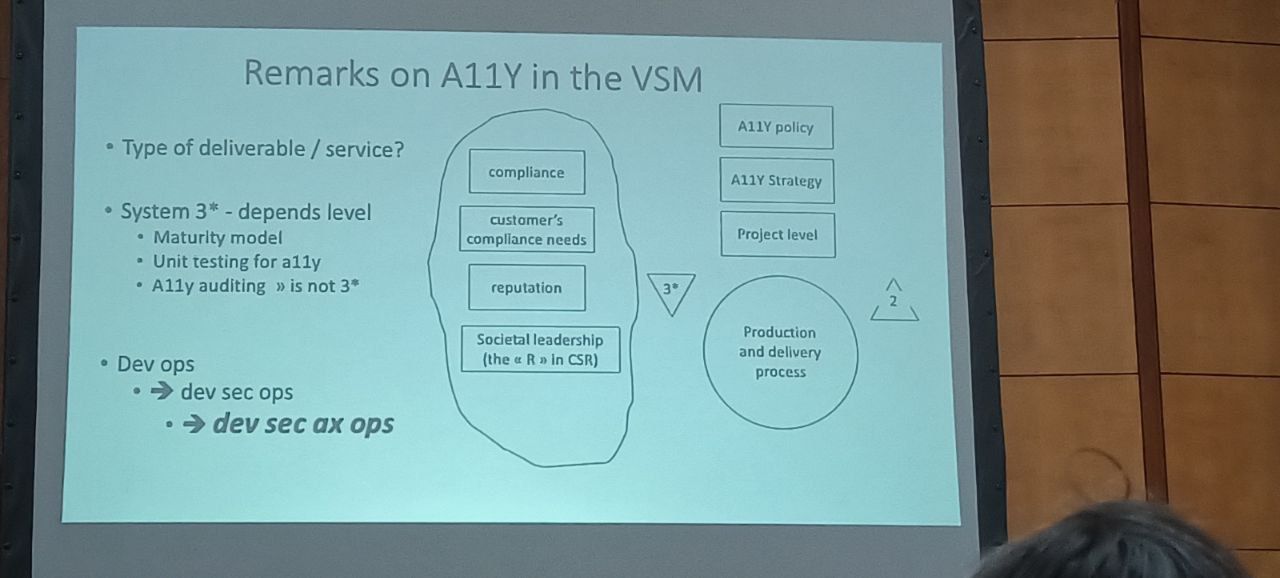
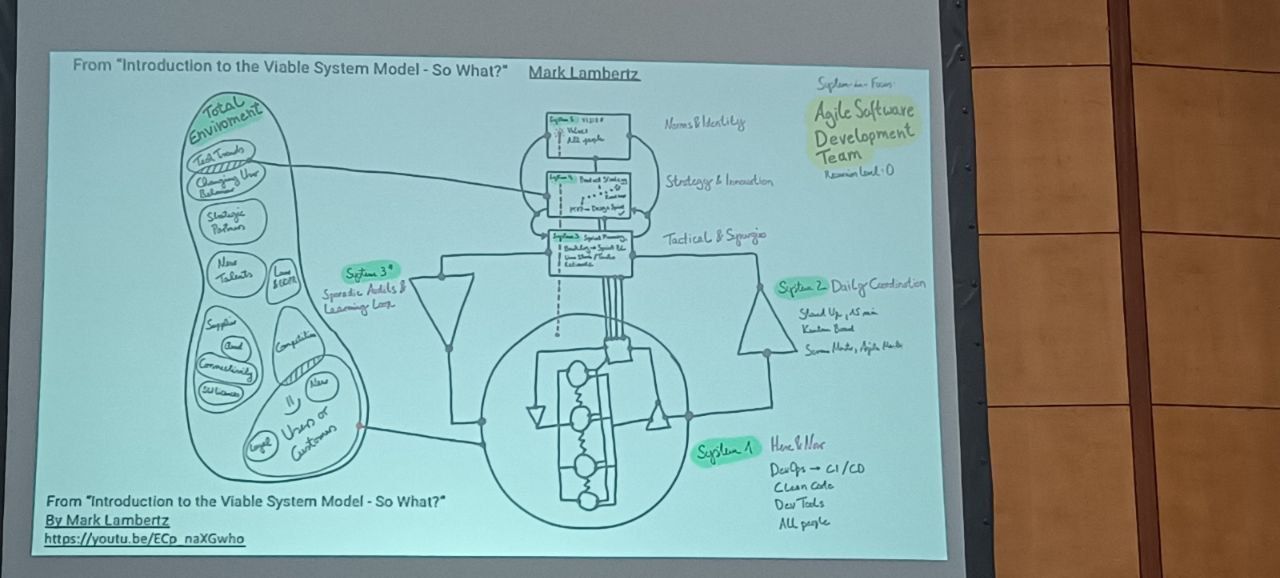
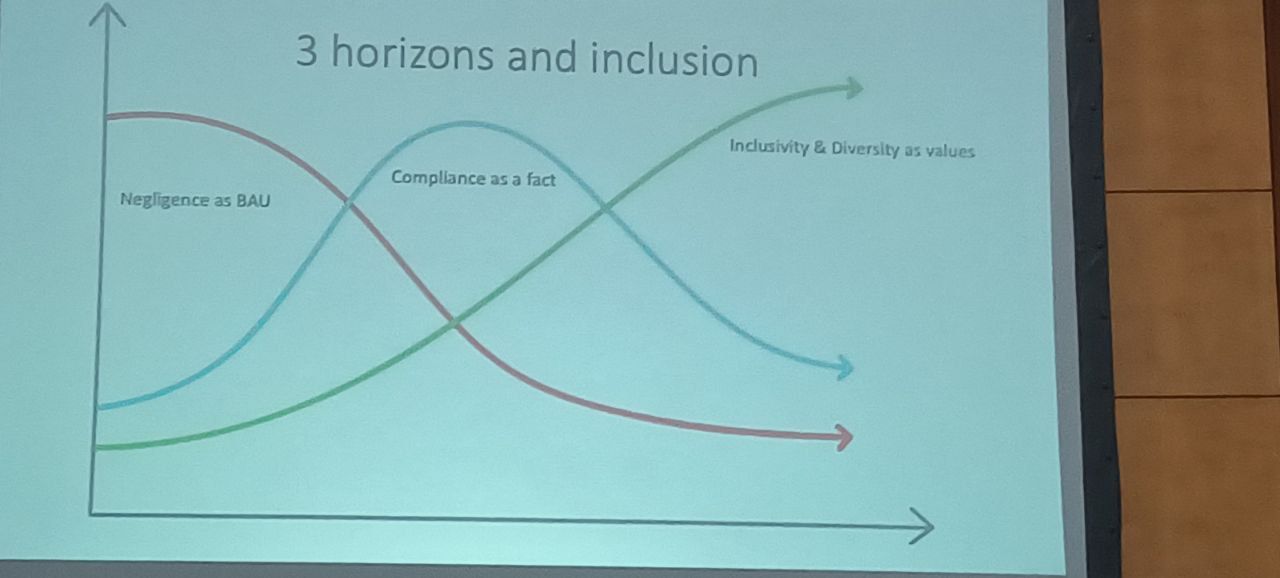
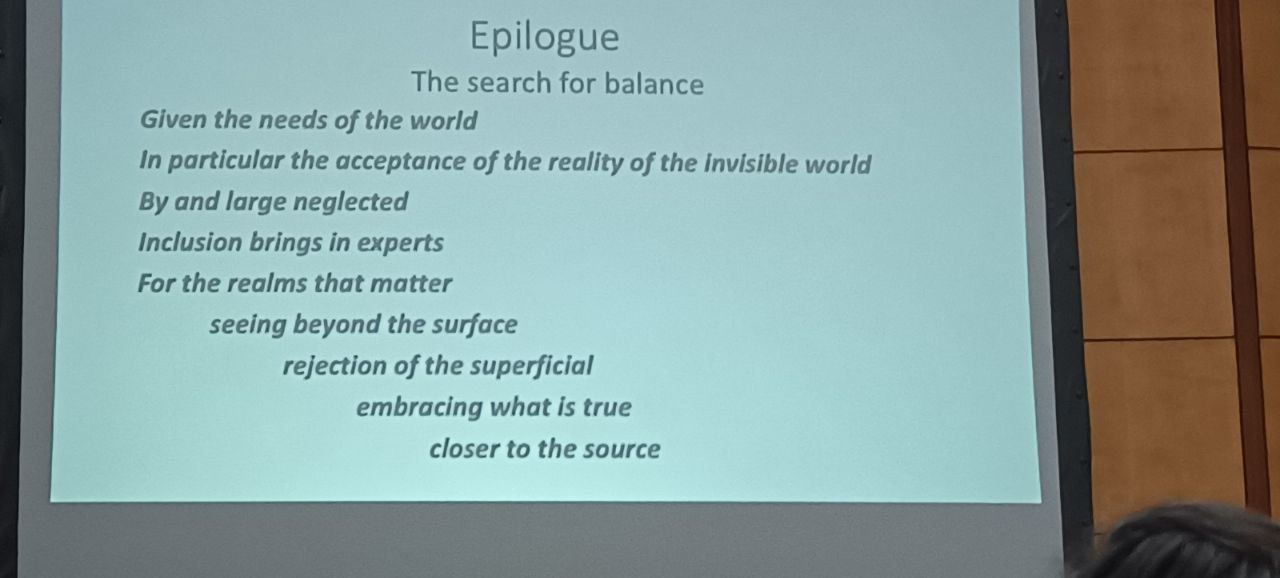
Following Johns lead was Trevor Hilder with a presentation on "Why the VSM is the organisational physics of sociocracy". Having become a director on the board of equal care coop (mission circle) he realised that the underlying principals which enable Sociocracy to function are those of a VSM. Through such a pentadic lens Trevor was also able to map the coops existential structure to its implicit essence; or what he called "the moral modalities framework" - interesting!
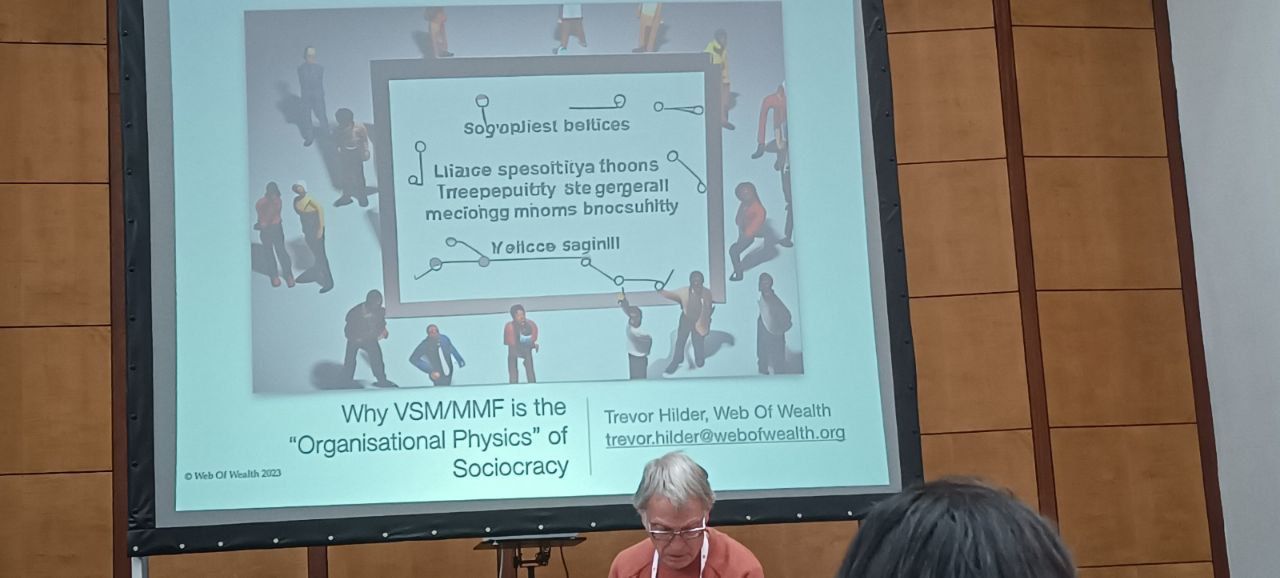
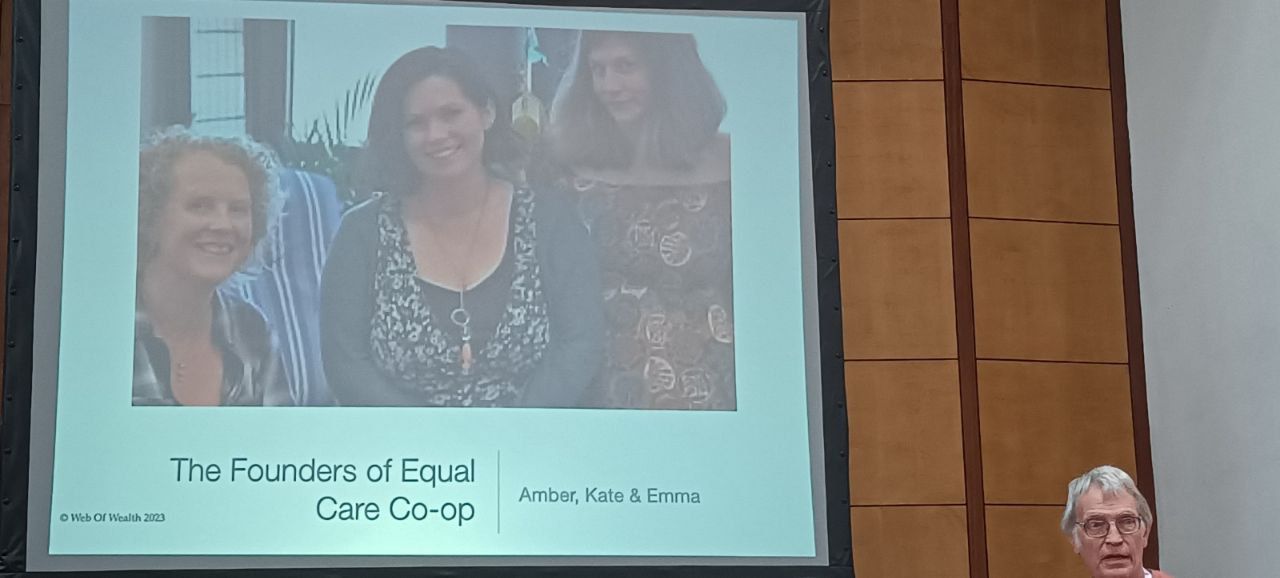
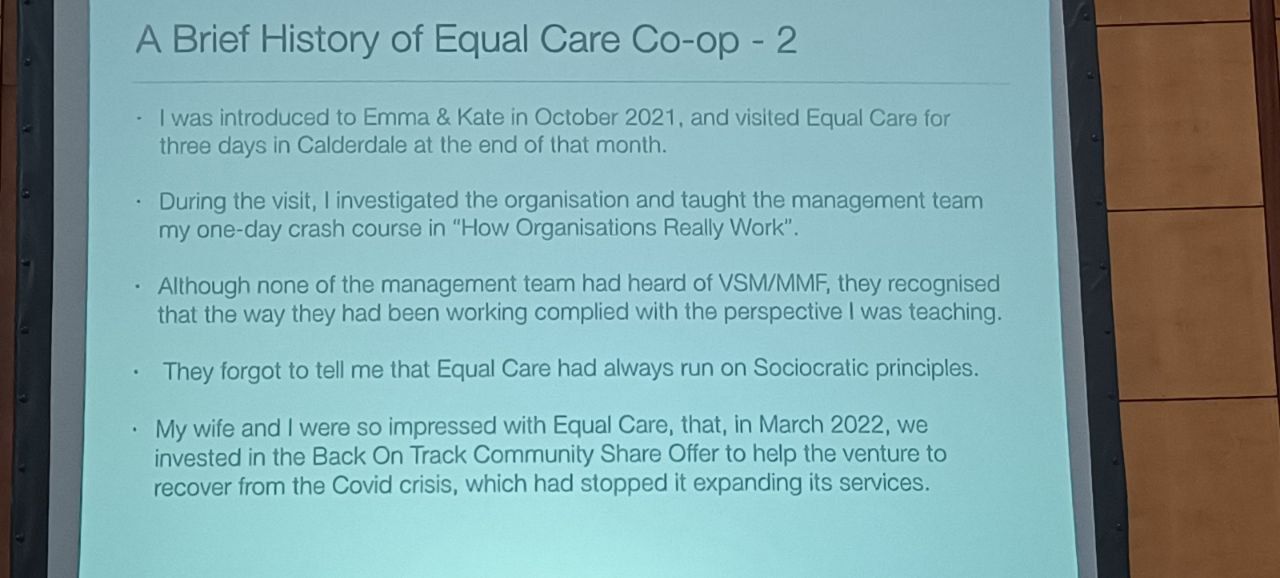
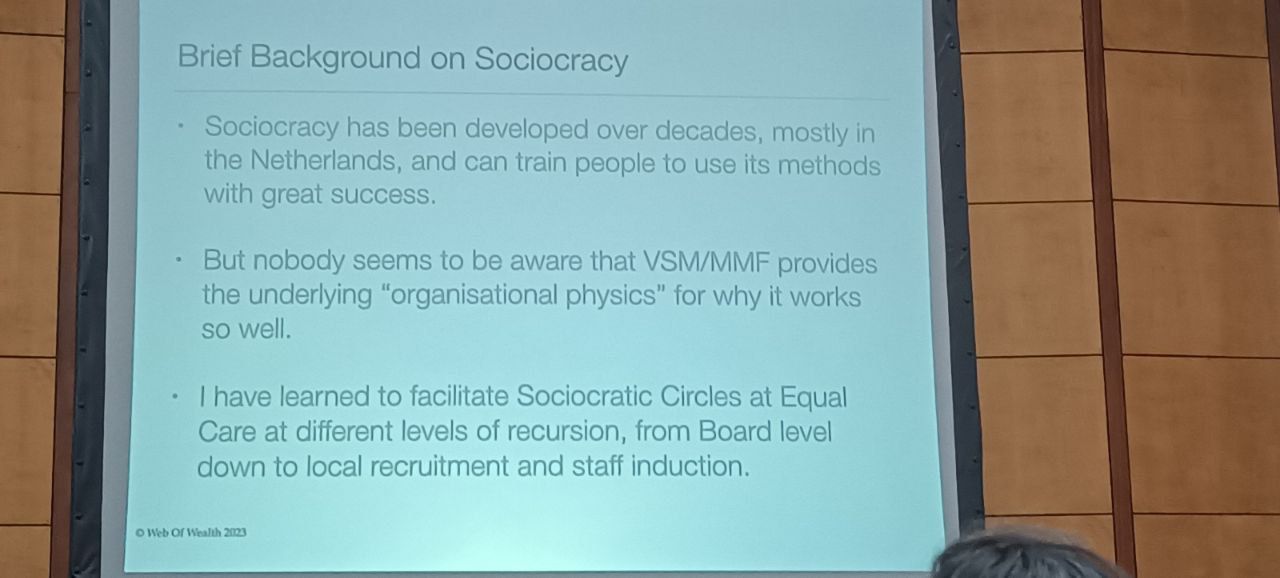
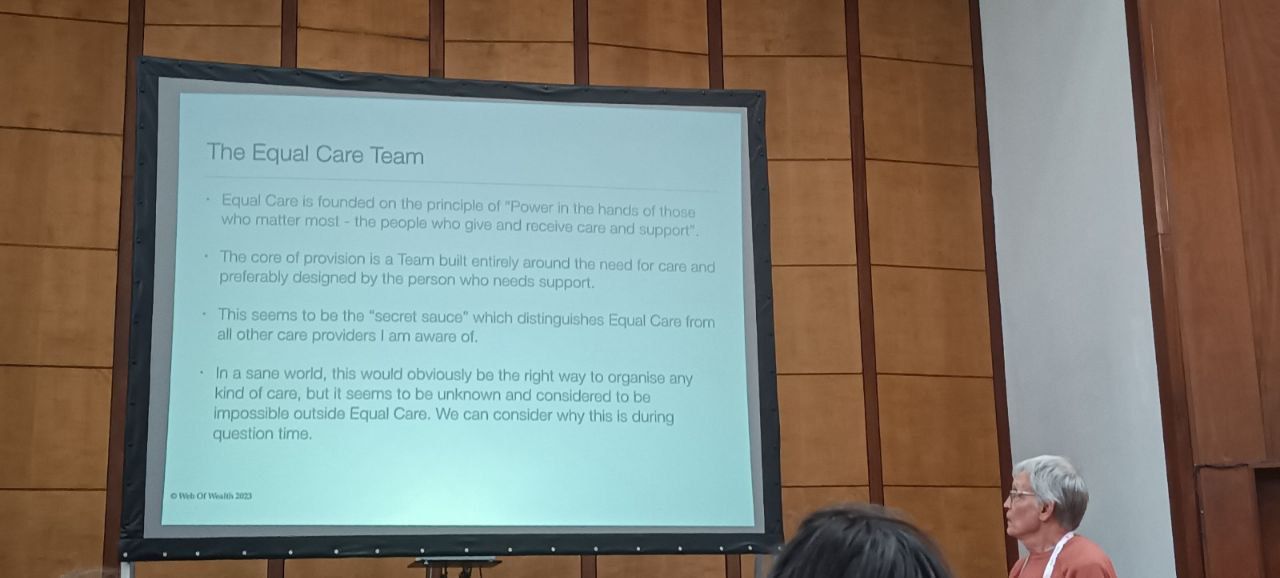
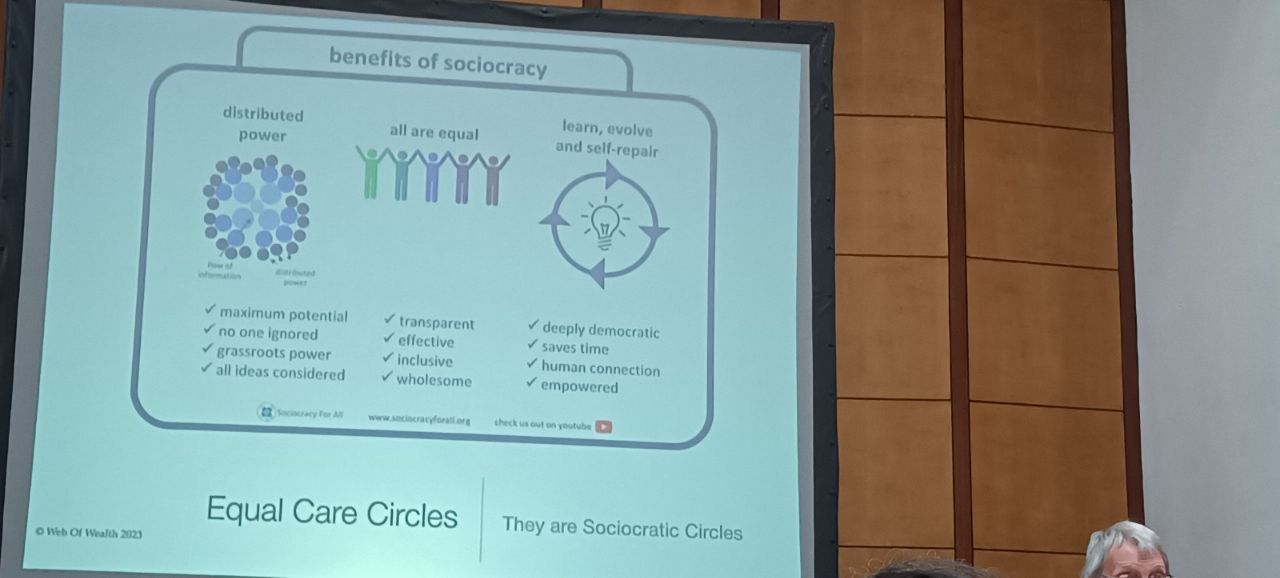
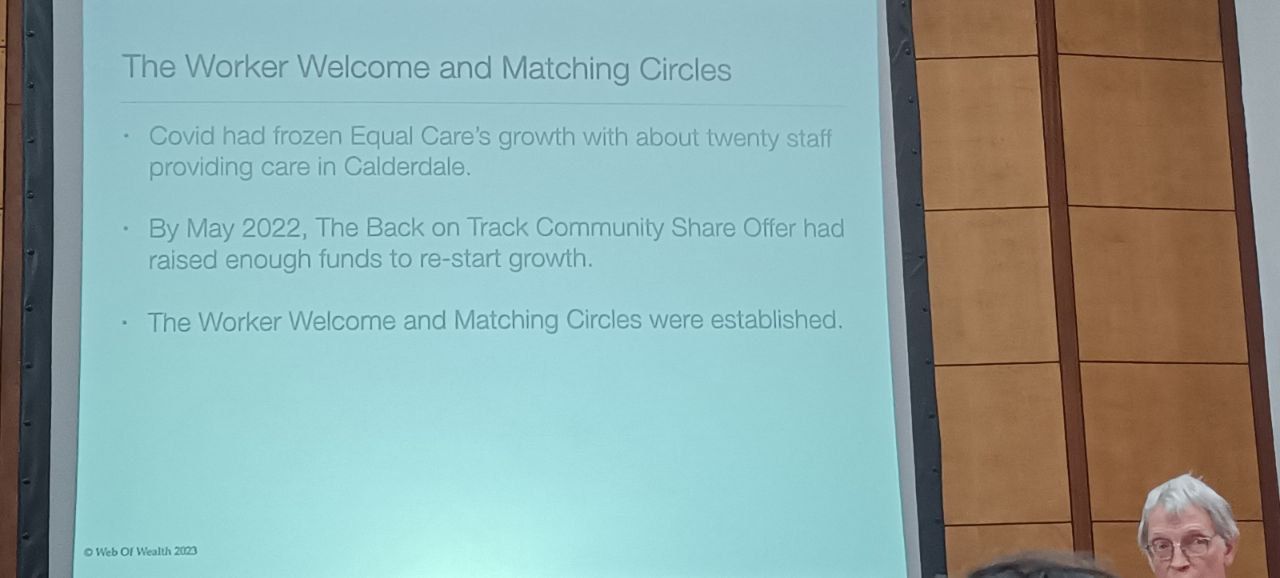
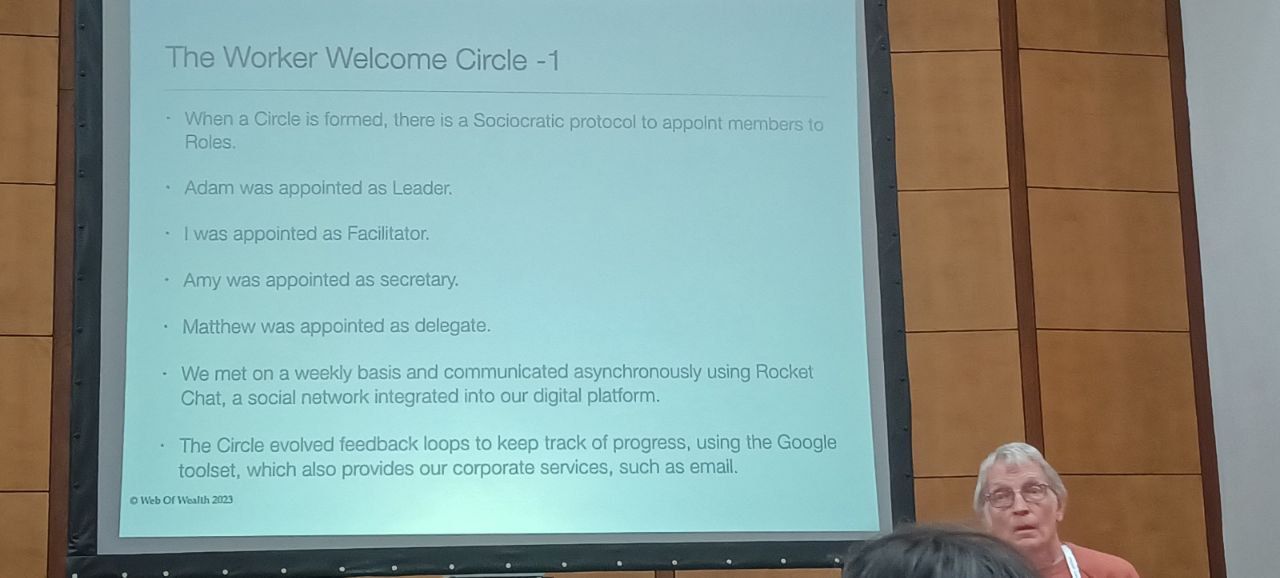
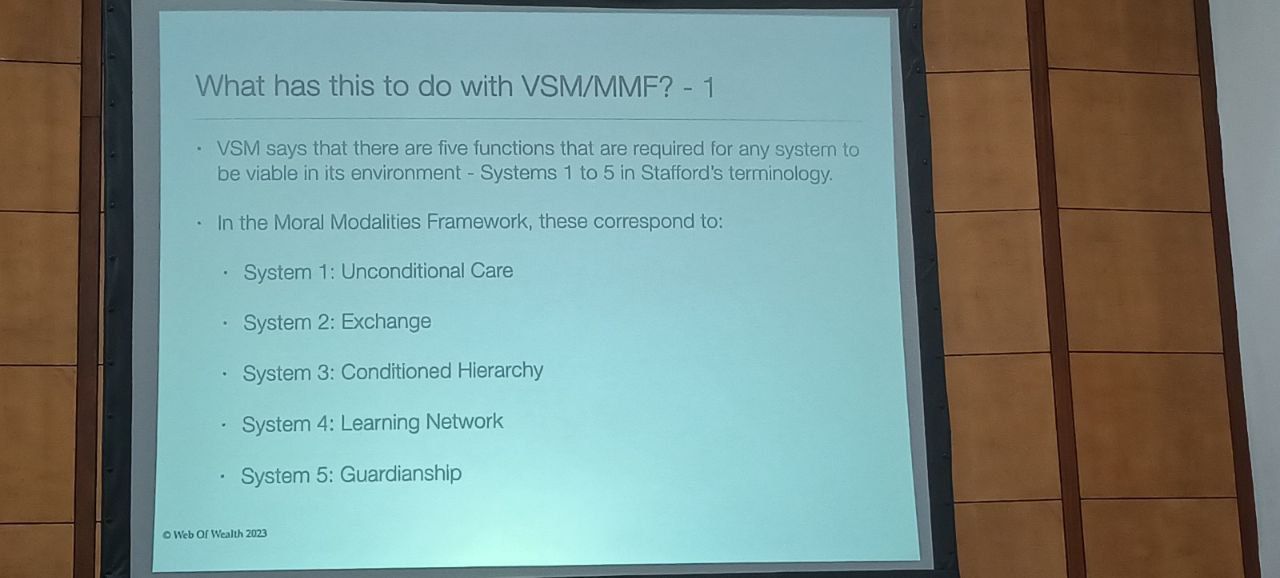
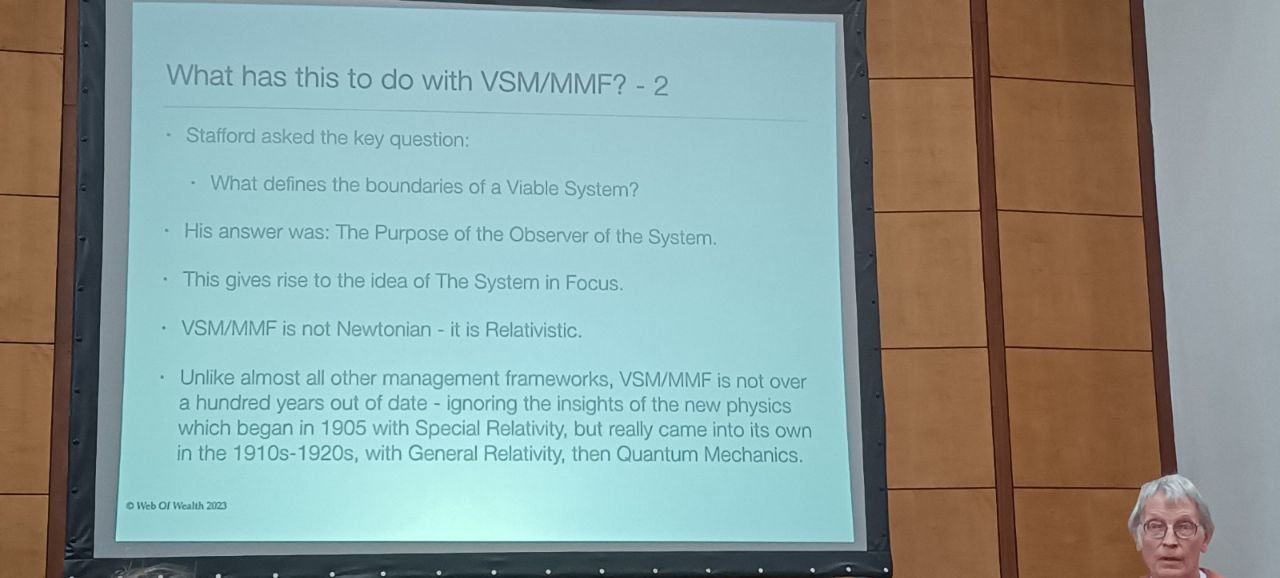
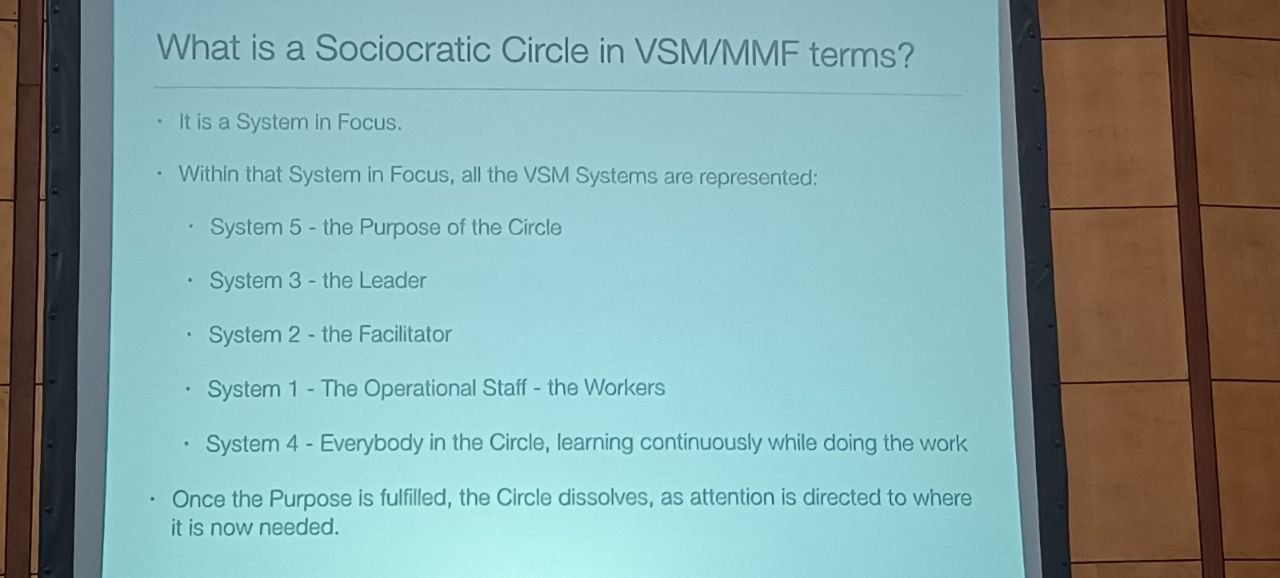
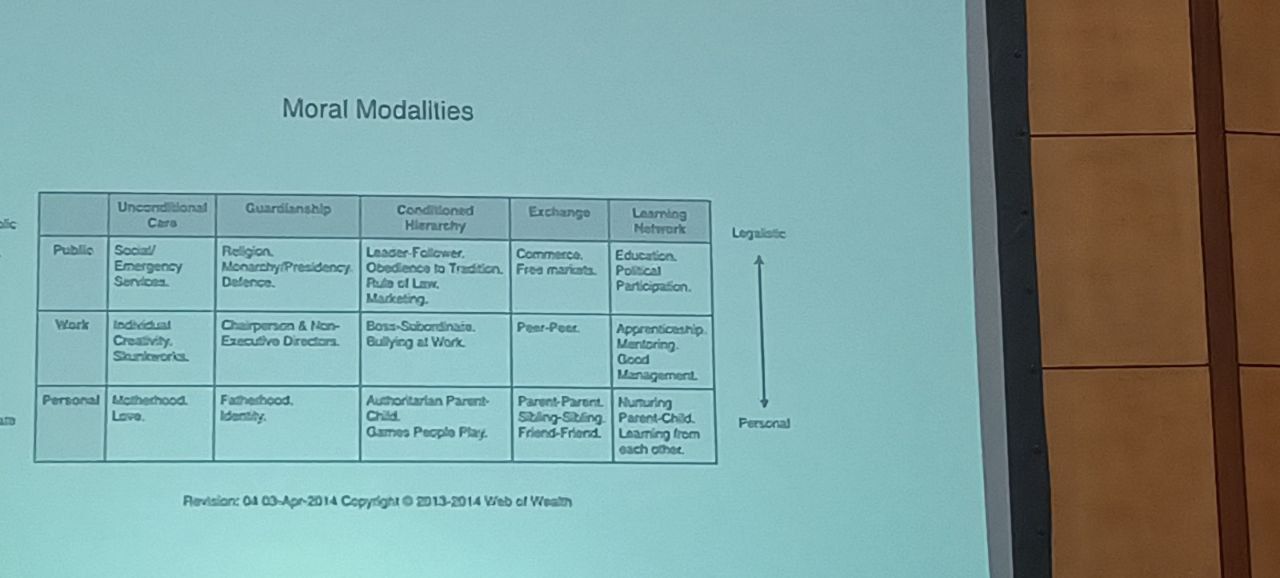
After another break chatting with some of the younger participants, we're drawn back inside. I make a deal with John to attend the workshop of dissent upstairs with Joe who I was just chatting with, while he attends the GPT workshop in the main hall. For whatever reason my feet rather quickly lead me back down to the man hall; I guess it's because I've learnt plenty about dissent in the last years and while Joes PhD work is bound to illuminate some blind spots my inner geek really just wants to make LLM go brrrrr so I head down to the AI crowd to see whats shaking.
Our table is beautifully diverse; John Hicks is holding accessibility in mind, Benjamin Taylor is thinking about technology, Joan O'Donnell with LLMs for trauma response and critical debriefings - and myself as ad hoc facilitator / note taker (aka guy with markers doing the framing). This was a fine old amble across conceptual space that seemed to coalesce to some degree on paper:
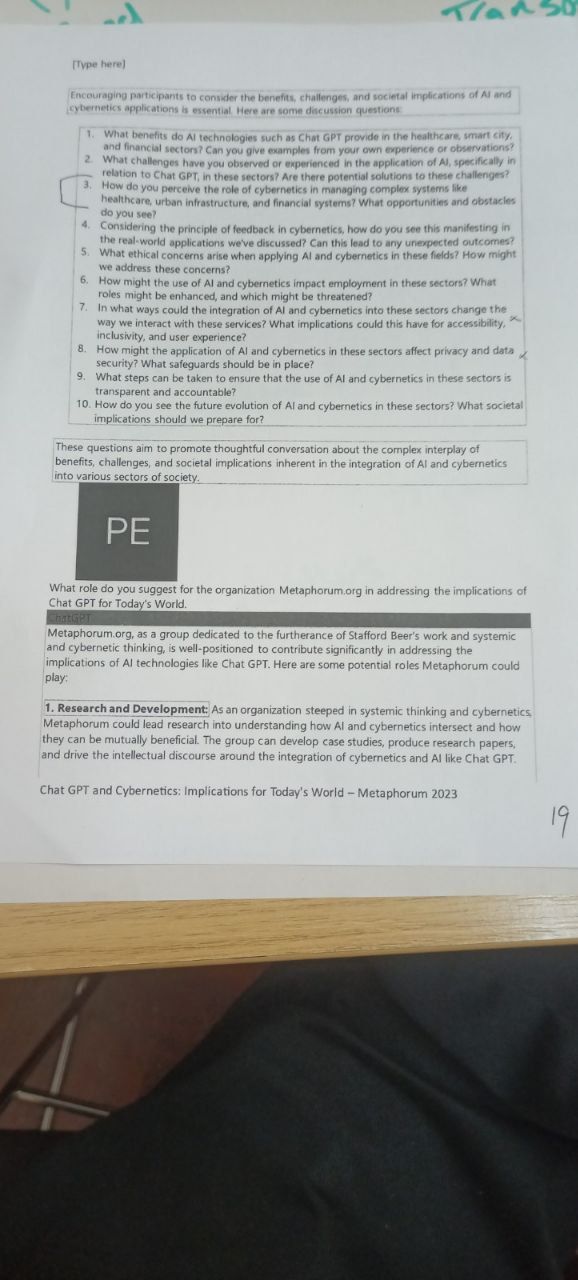
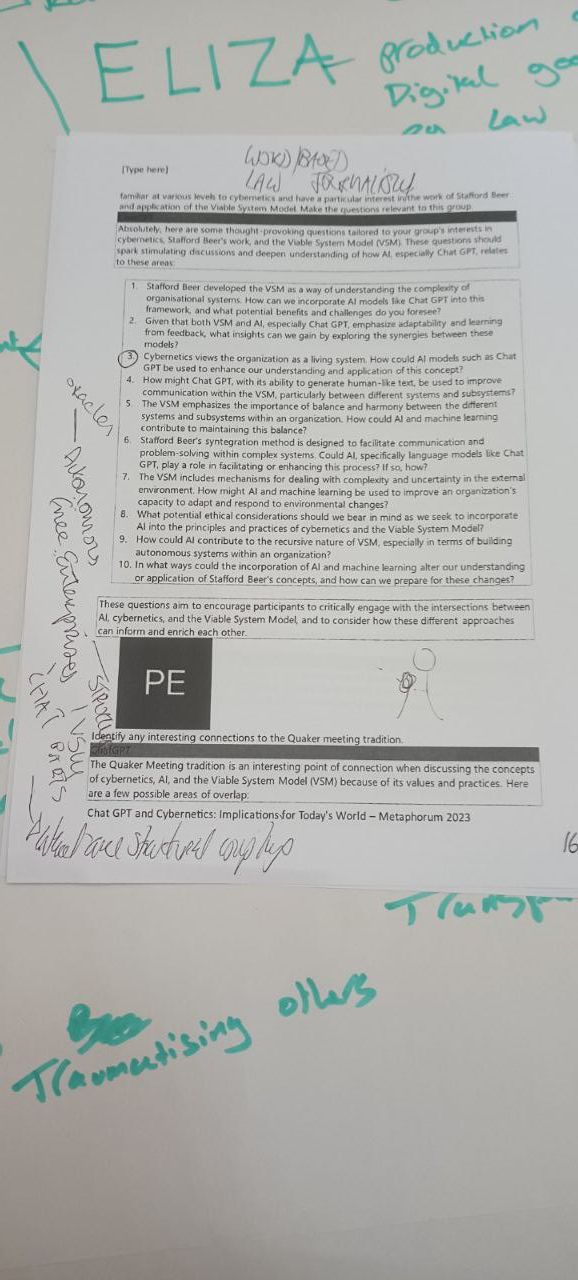
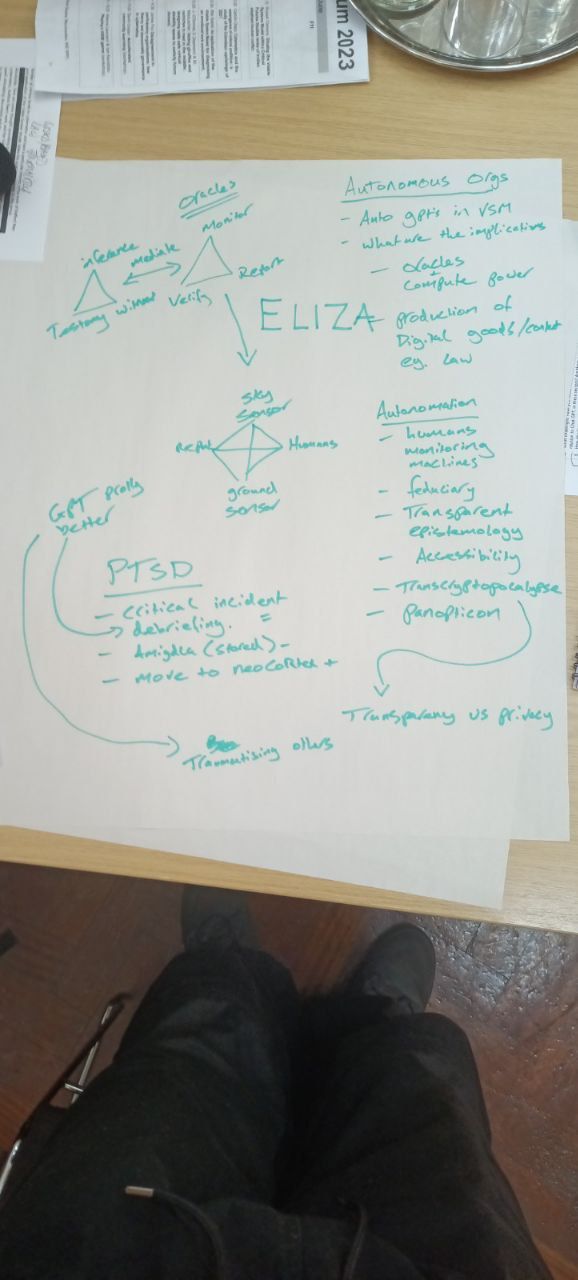
Next up in the main room was a presentation that was probably most adjacent to the enrichment of my own interests; Stephen Davies on "accessing the zone of emergence" - where he shared many specific and relevant insights from running syntegreations. My fire lights up on this jam and gets me enthusiastic as I realise when orthogonally mapped that this is an applied form of John Bennetts Systematics; which I can use to specify all kinds of protocols with directed intentionality! Phew!
When designing for emergence of new levels of social cooperation at scale these are the conditions (according to team syntegrity)
Convene a set of agents that agree to a bounded domain and set of rules.
- Infoset/participants are engaged based on interests or knowledge relevant to the opening question; the focal point of convening or agent selection.
- Participants drive topic space / agenda development. Members, critics and observers have specific rules of engagement throughout team meeting.
- Process of task activities is prescribed; both for agenda setting and meetings.
Agents must experience working across three levels of recursion simultaneously.
- Each person arrives in their own personal identity. They receive team identity and engagement paths through the meeting
- Each person is a member of two teams. They act as a critic in two meetings, a critic in another two and observer in four. Role overlapping is critical for info sharing and feedback loops.
- Teams return to plenary session at key points in the day to anchor the group identity at full scale.
Agents must work in a continuous process with a minimum of three iterations in rapid succession
- Field setting and grounding in the current realities of the agents. "What is"
- Focused on possible futures and generates options for consideration grounded in realities of iteration one. "We could"
- Focused on preferred futures and teams generate a priority set of preferred or recommended actions based on the possibilities generated in round two. "We should"
Sourced from slides presented at Metaphorum Manchester by Transformation By Design. Thank you for sharing Stafford Beers work with such syntegrity.
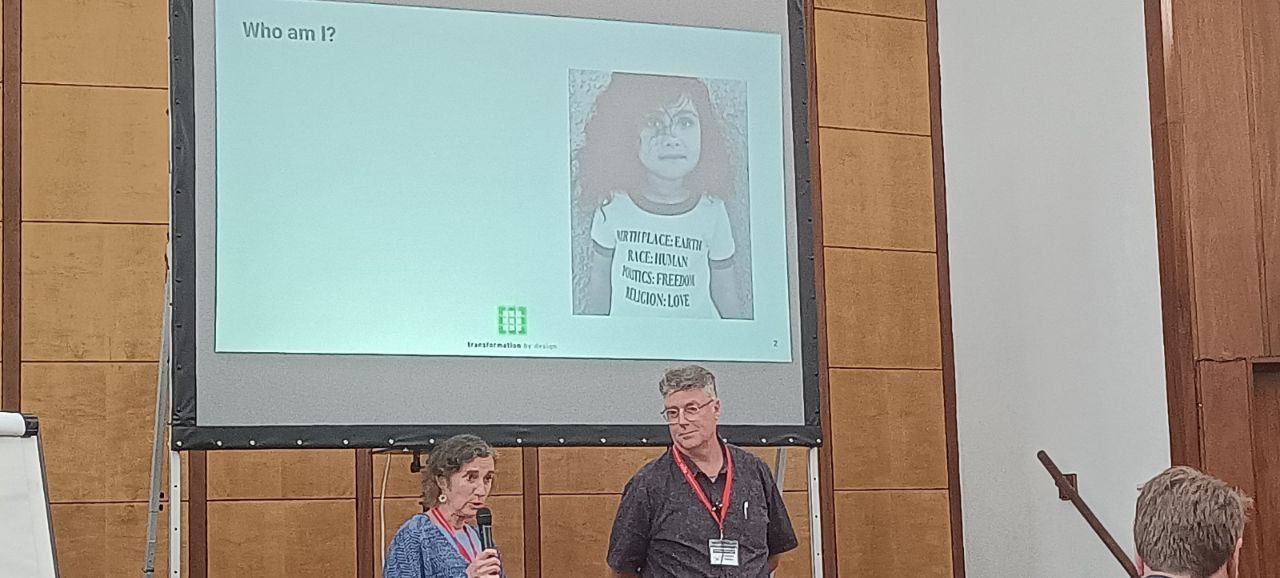
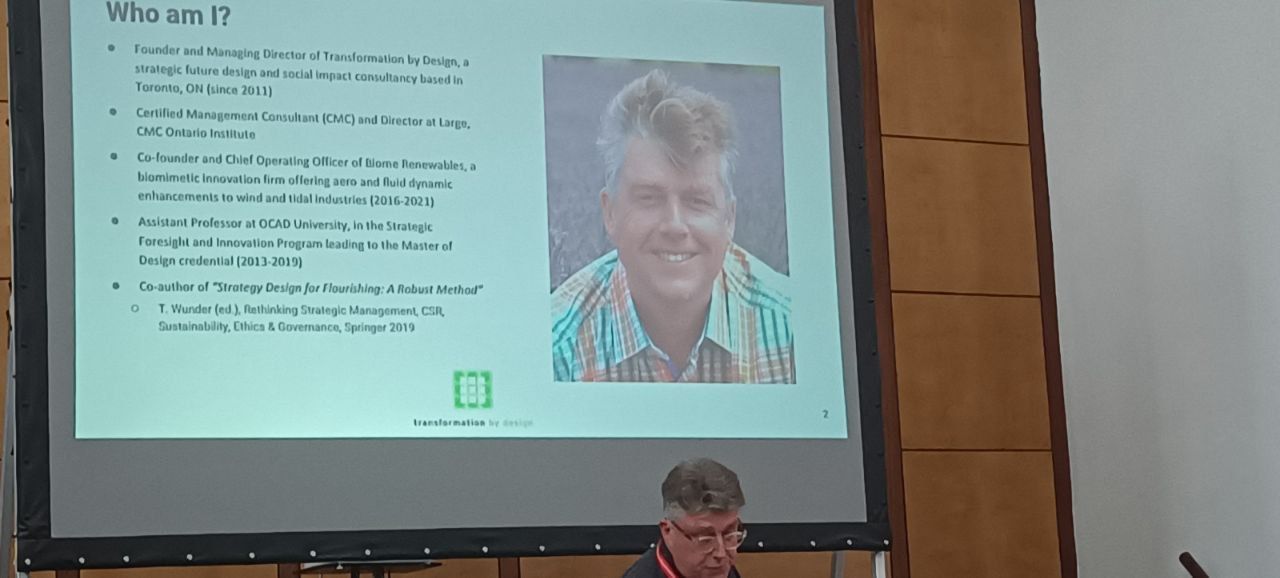
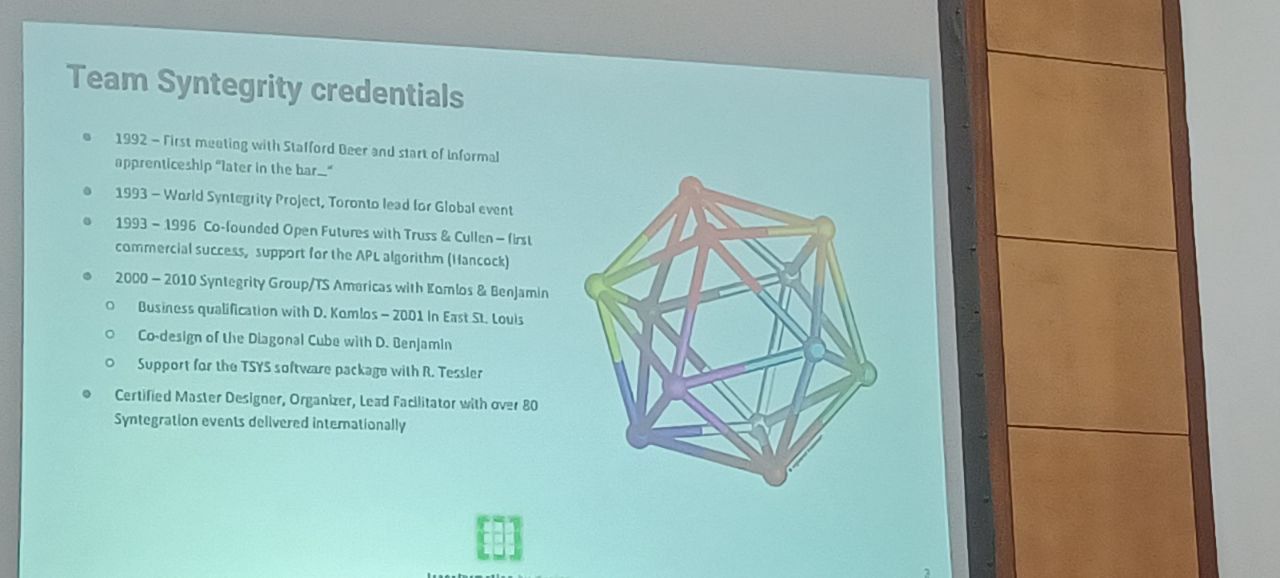

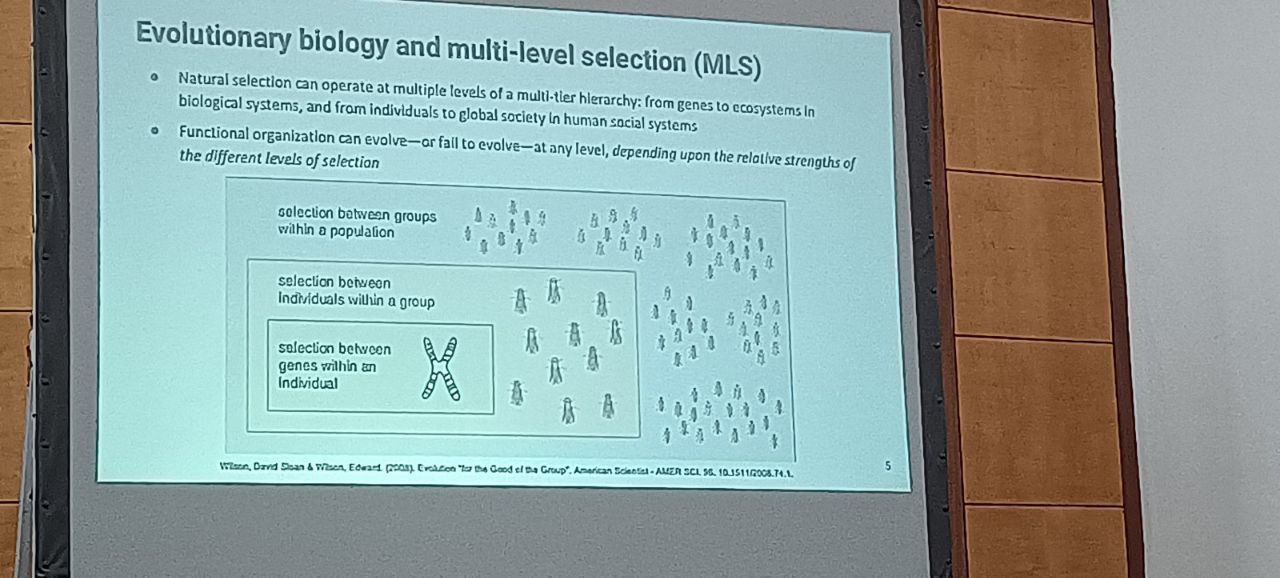
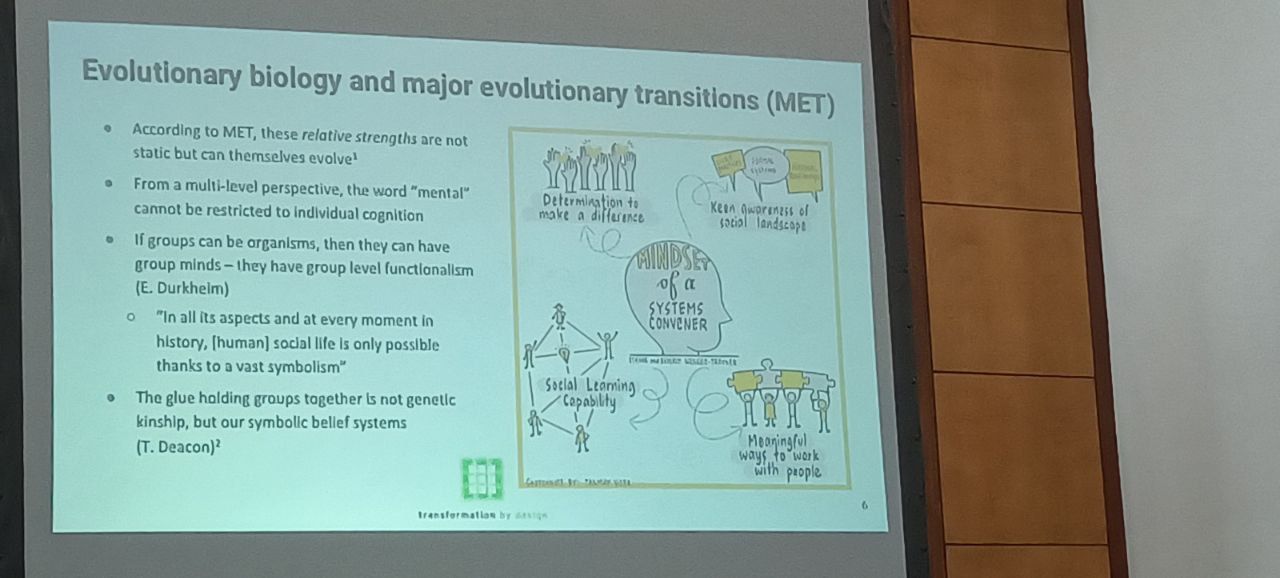
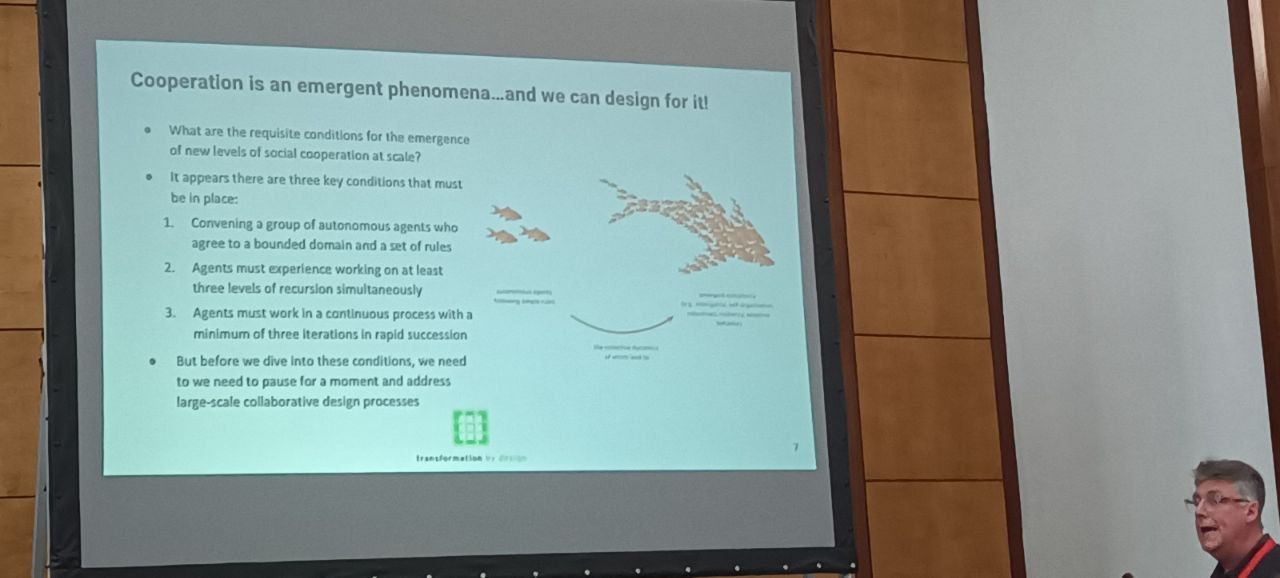
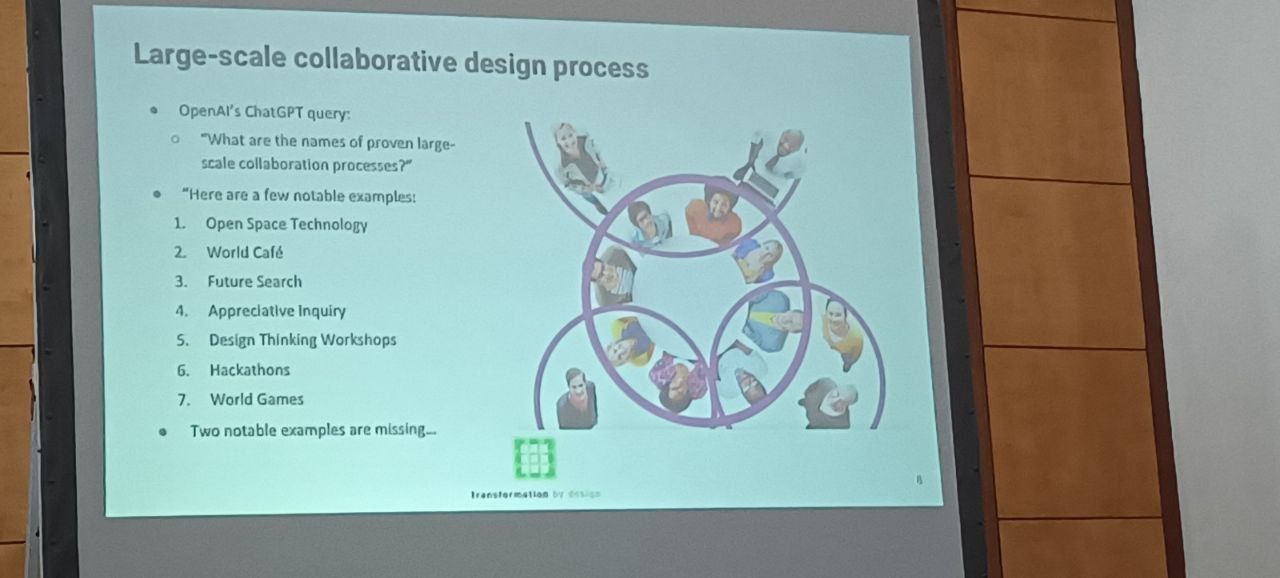
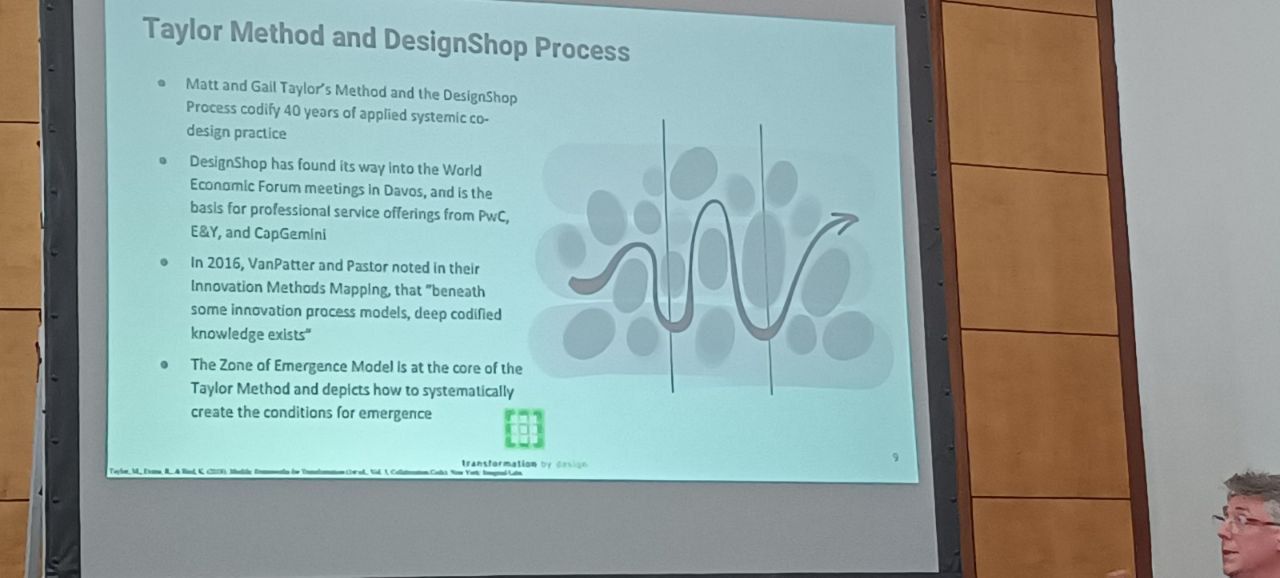
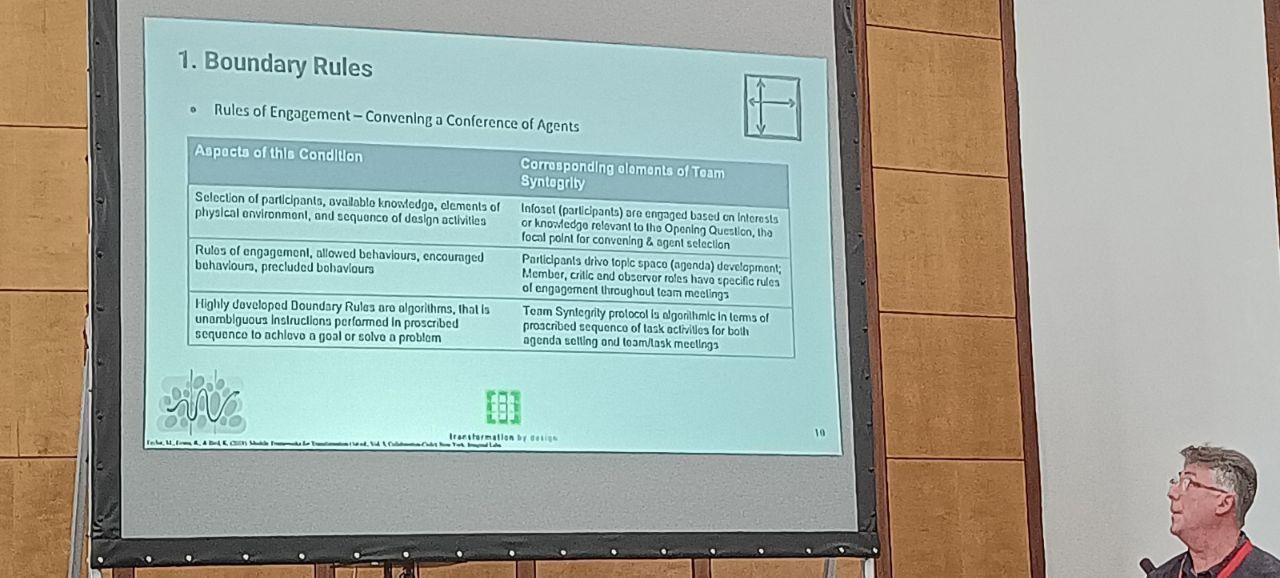
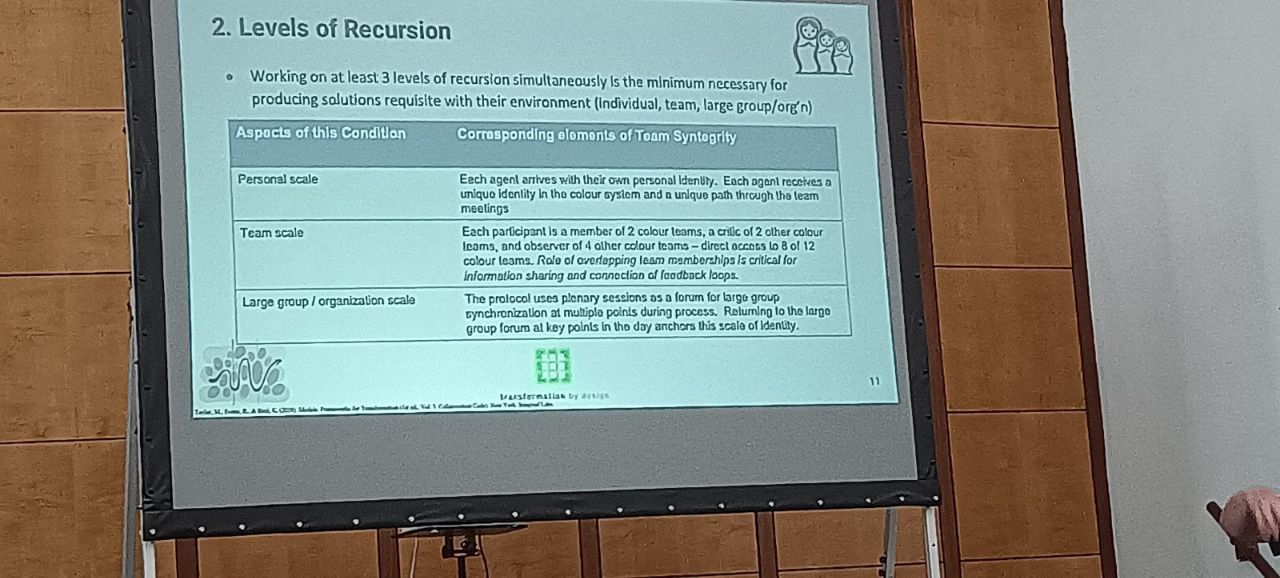
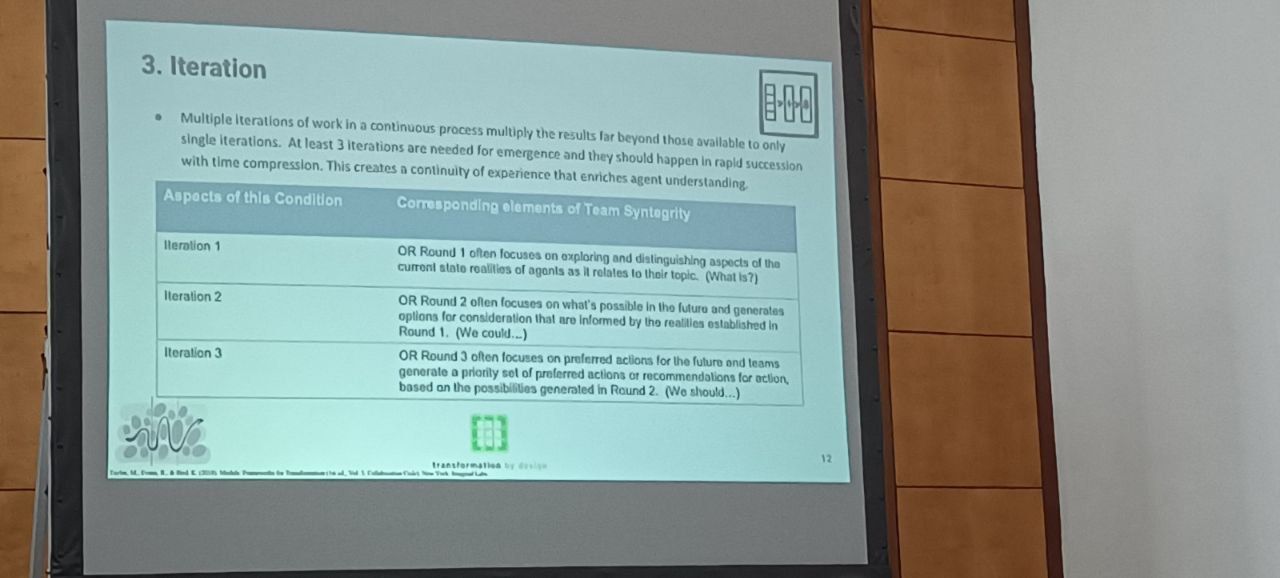
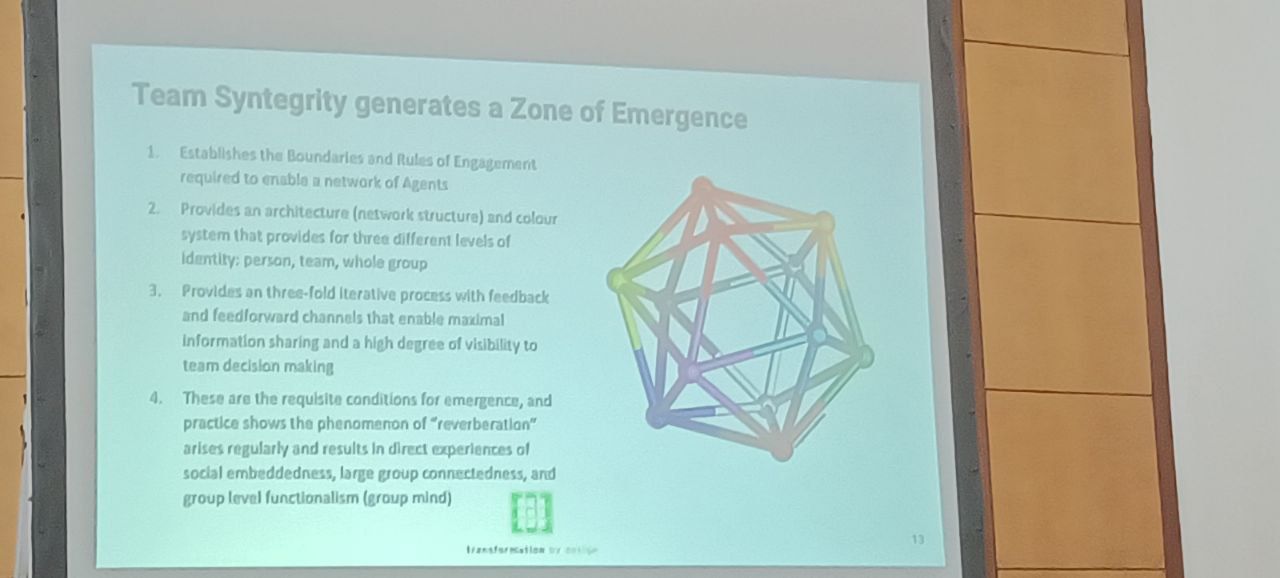
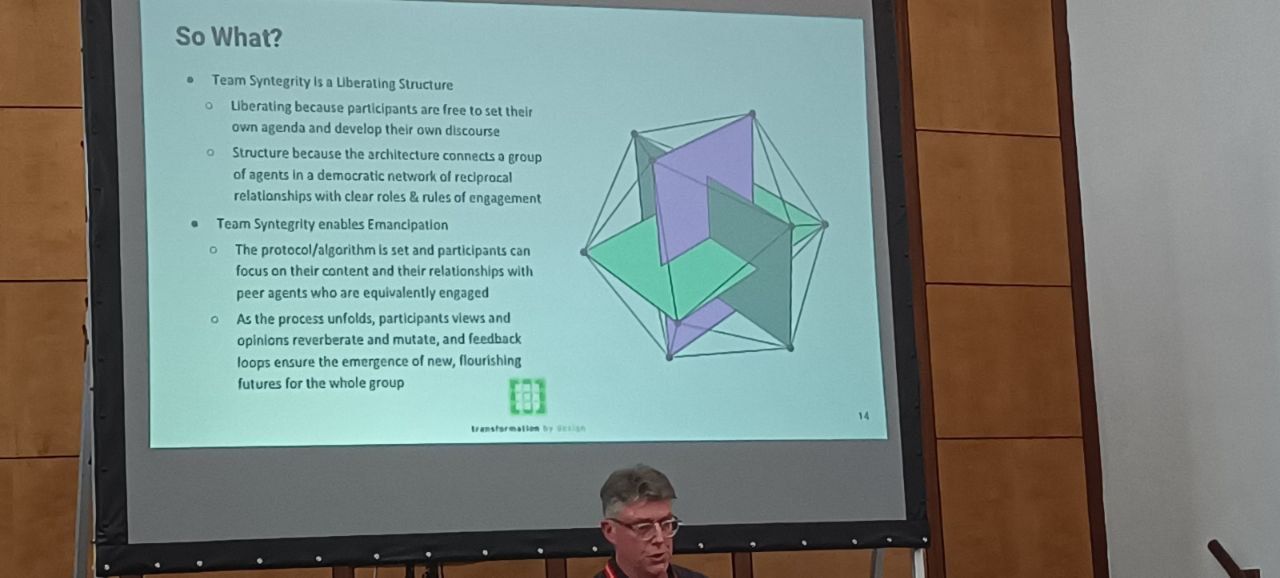
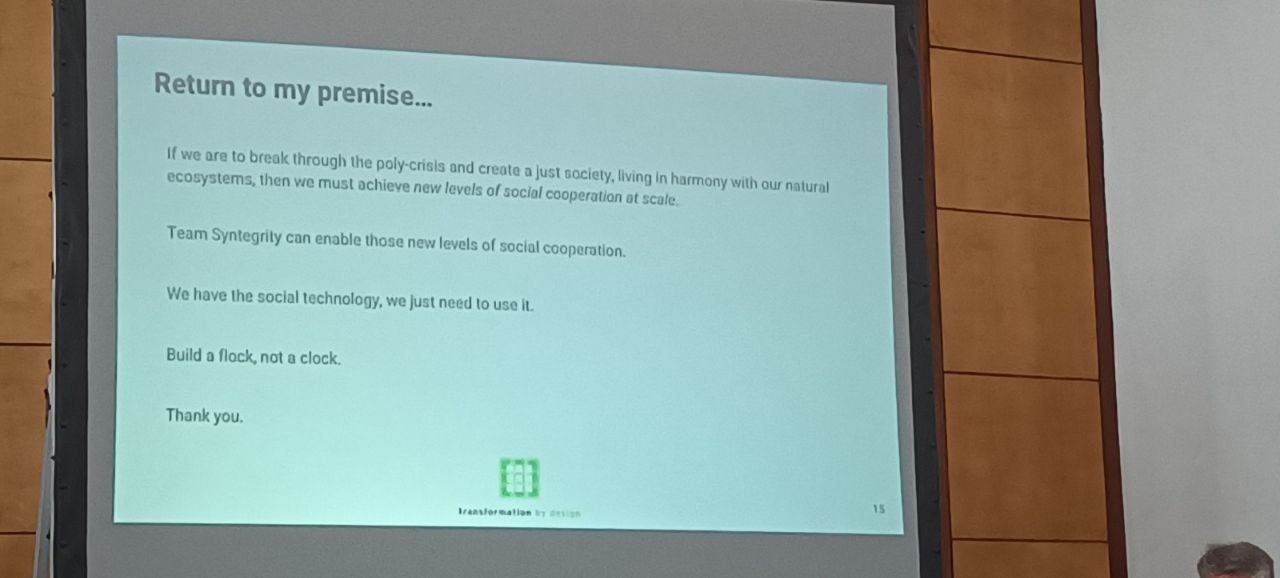
As this session ends I head upstairs to Ian and Alleannas workshop to participate in the VSM game they've organised. Groups are sat at different tables and tasked with a scenario where three sisters are managing a family business. Each group represents a system 'tier' and must coordinate with other tables based on their role. It's pretty tough to get a grasp on this transitional object as there is a lot of information and I've not yet memorised the VSM but the games a rather illuminating scenario none the less!
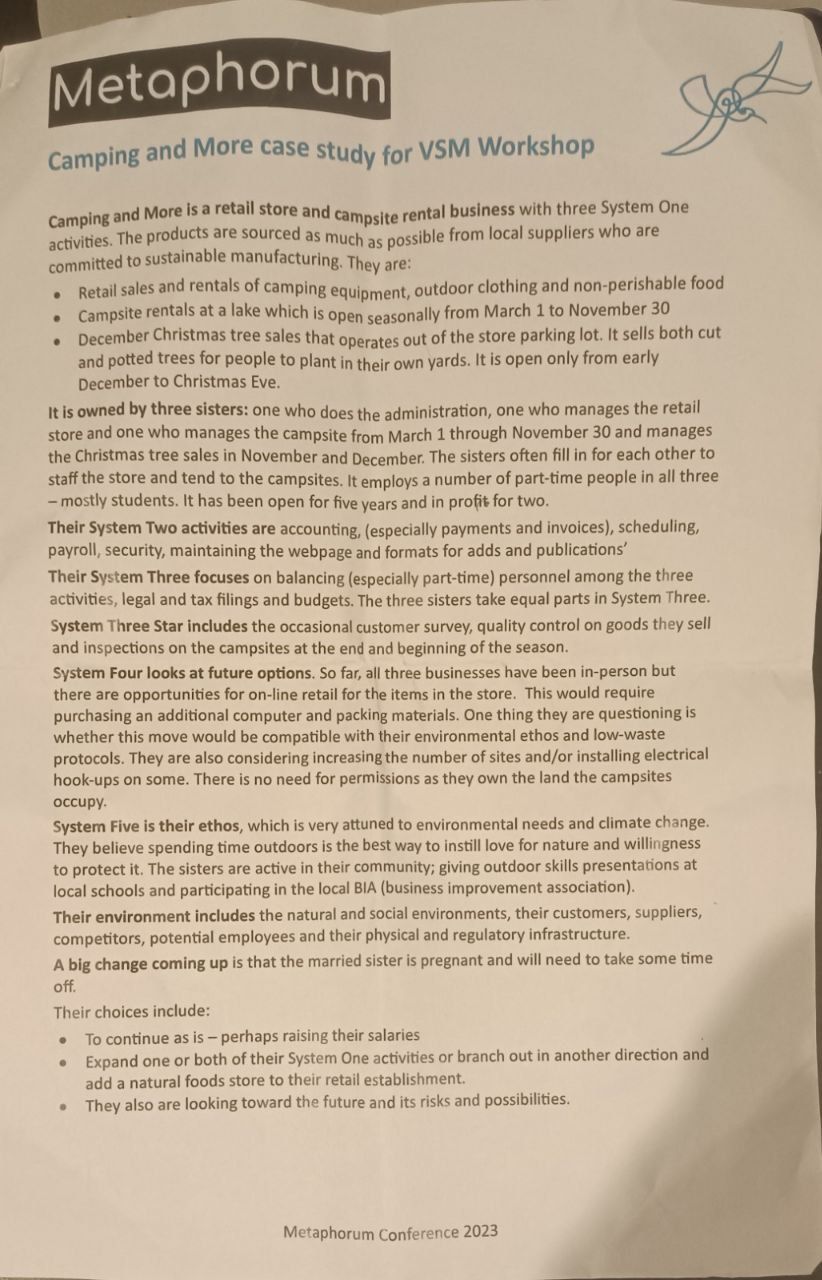
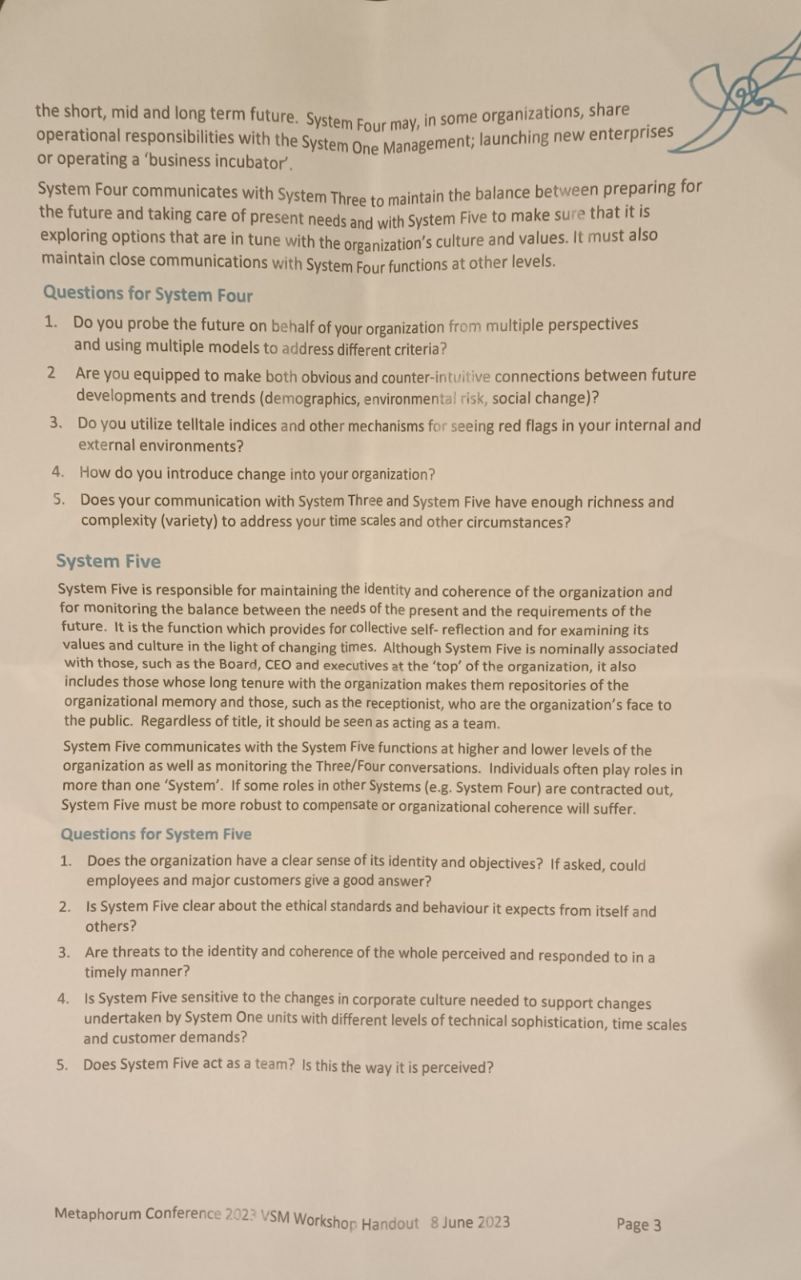
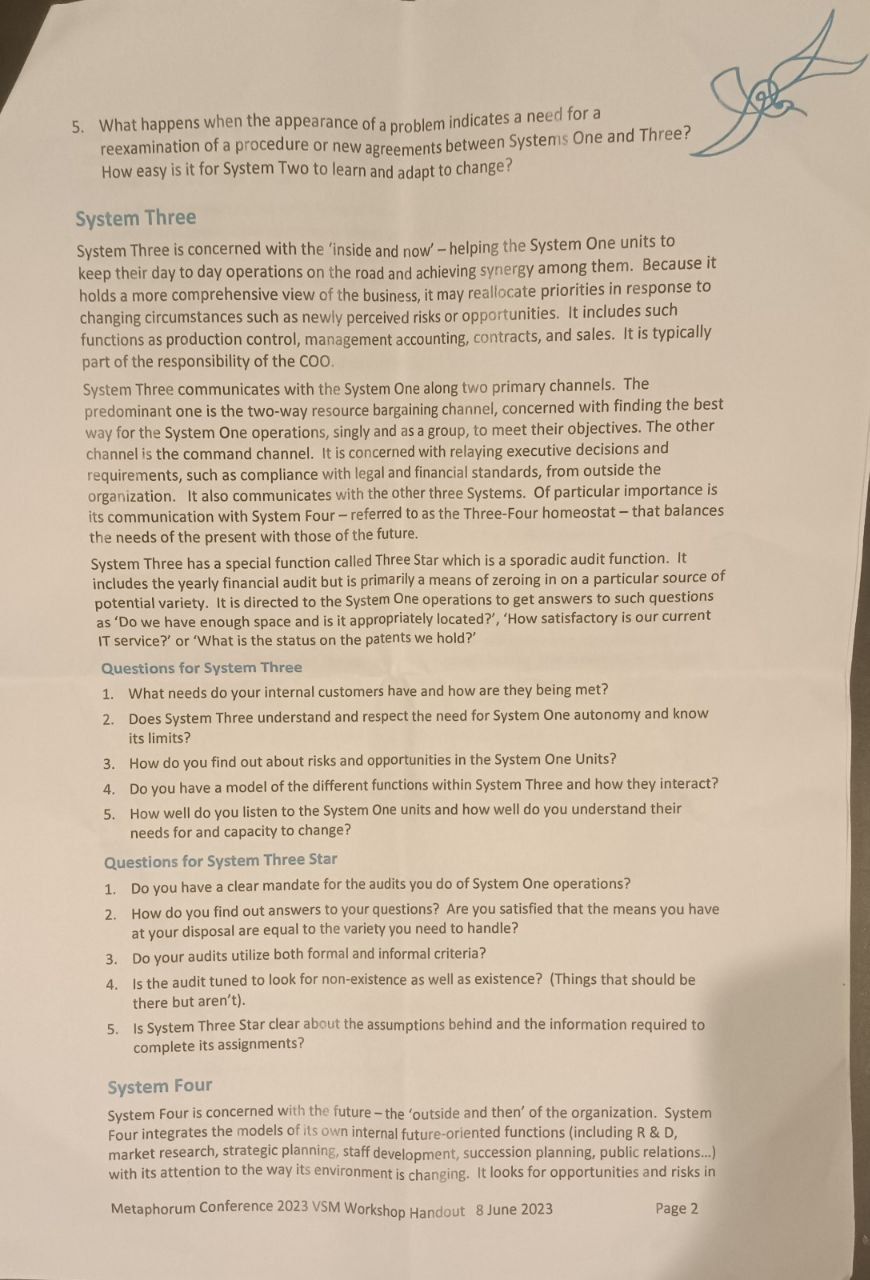
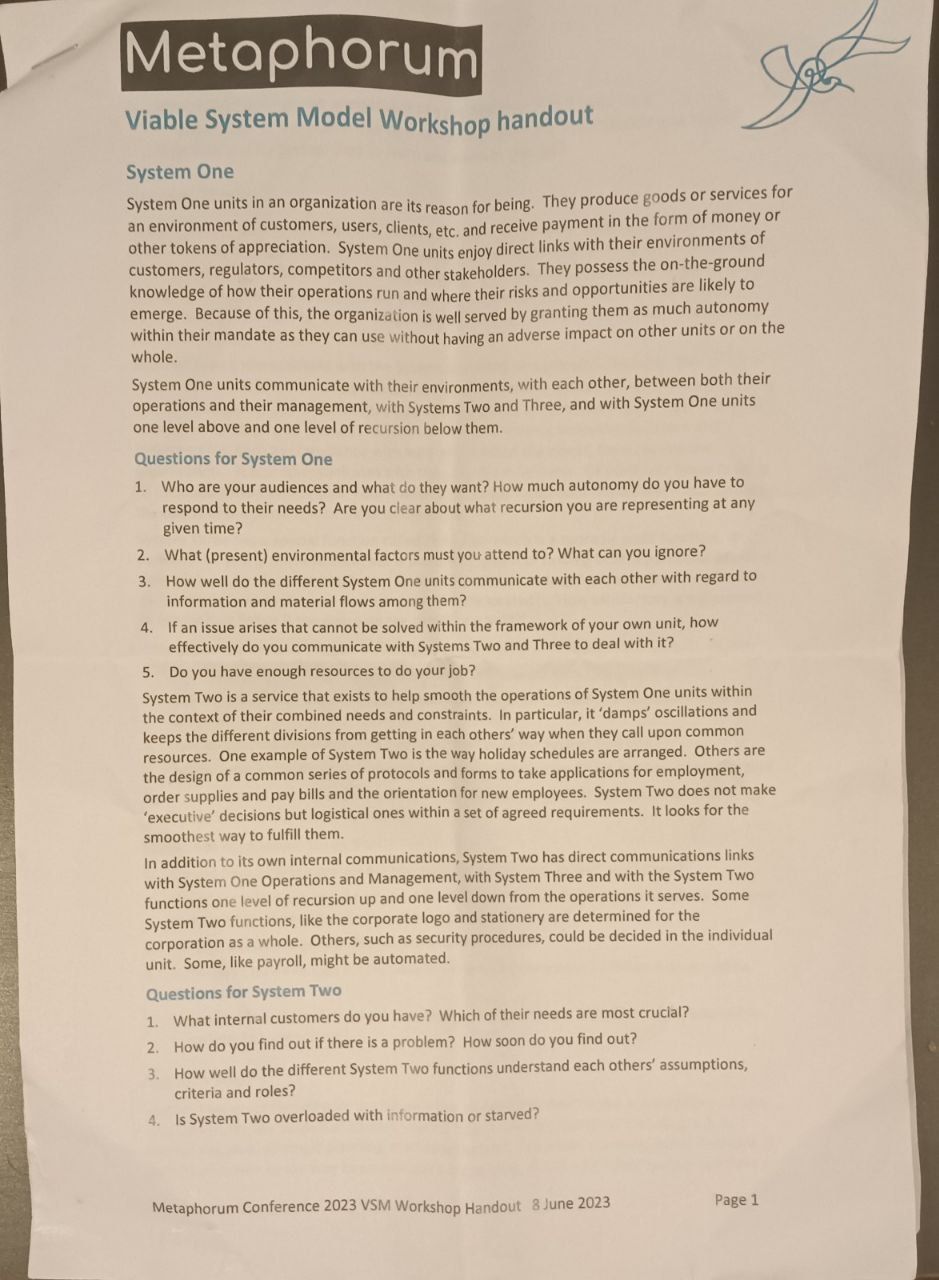
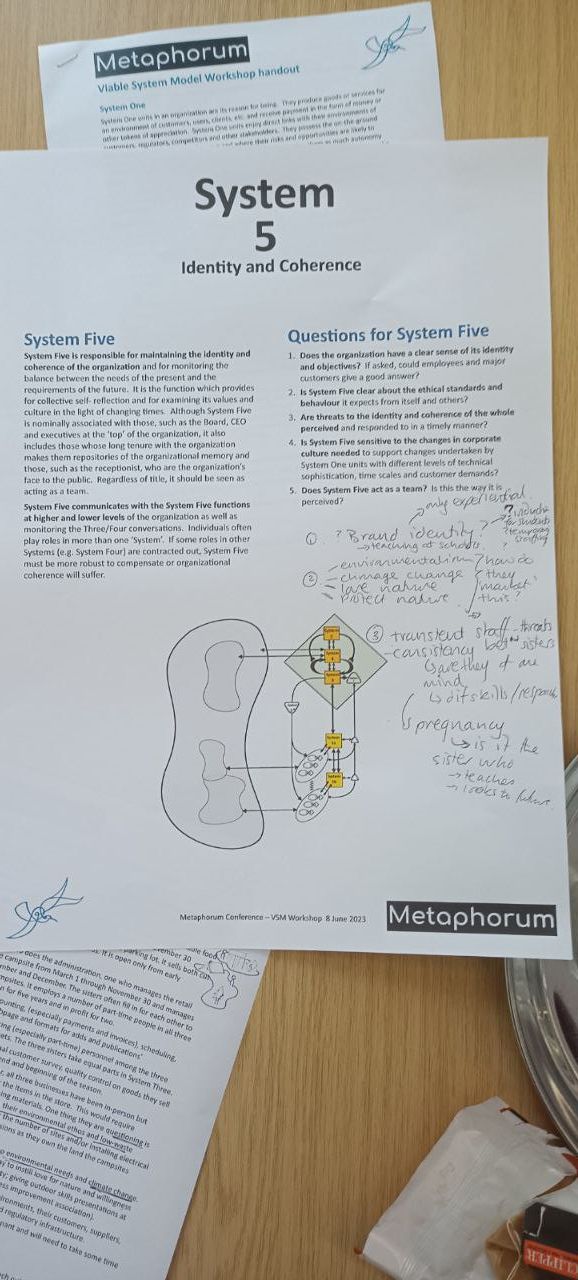
At this point in the day its time to hit the pub, which is where I learn about the history of the LETS (Local Exchange, Trading, System) space from John Waters; a veteran for the softwhere sphere and VSM spaces. It was pretty interesting to work through his logic regarding forms of money and values as I've swam in similar waters and even encountered many of the folks he's worked with in the years gone by.
After a lively discussion on this topic I ended up joining Mark Labertz for a VSM learning journey. As it turns out, different folk have preferences towards subsystems and Marks was apparently the often forgotten system 3* star; it's reflective capacity.
While I've not got a massively wide background on the VSM model - it would seem from experience that my favourite part of the system is the algadonic channels... (I love growing through life and stress, contract owners and licences, my heart bursts through my chest, I'm rescued!)
Most attendees at the pub head to a restaurant together as I decide to head back to my hostel for a sleepless night considering the possibilities that Stephens presentation unlocked in my head regarding systematics...
DAY 2
The next day I make it into the conference hall a little late missing the morning sessions... Damn, I missed Kelsies workshop on aligning DAOs to precidents in cybernetics... that would have been fun. I make it into Ivo Velitchkov's presention on "viability of personal knowledge management systems" instead which is centred around the history of Zettlekasten and how to implement a viable 'second brain' style system. As an avid PKMs user I'm pretty familiar with the history but the presentation reminds me to retune my interface and suggests I should expand my system with new lenses (currently I'm just using a basic triad as my filing structure but other geometries might also work well!)
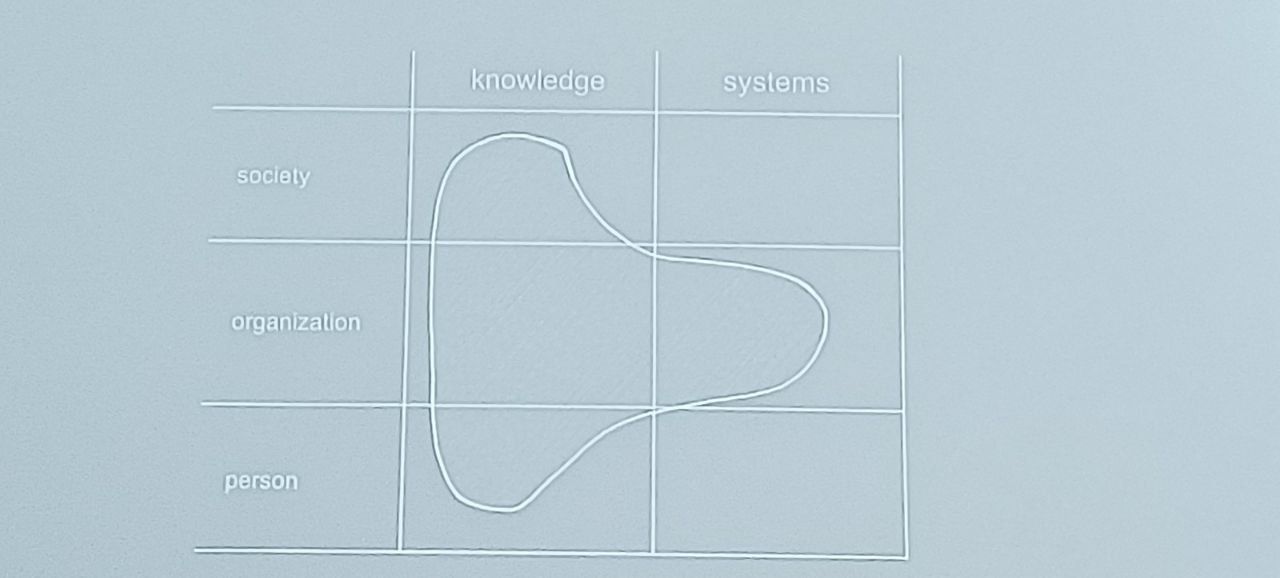
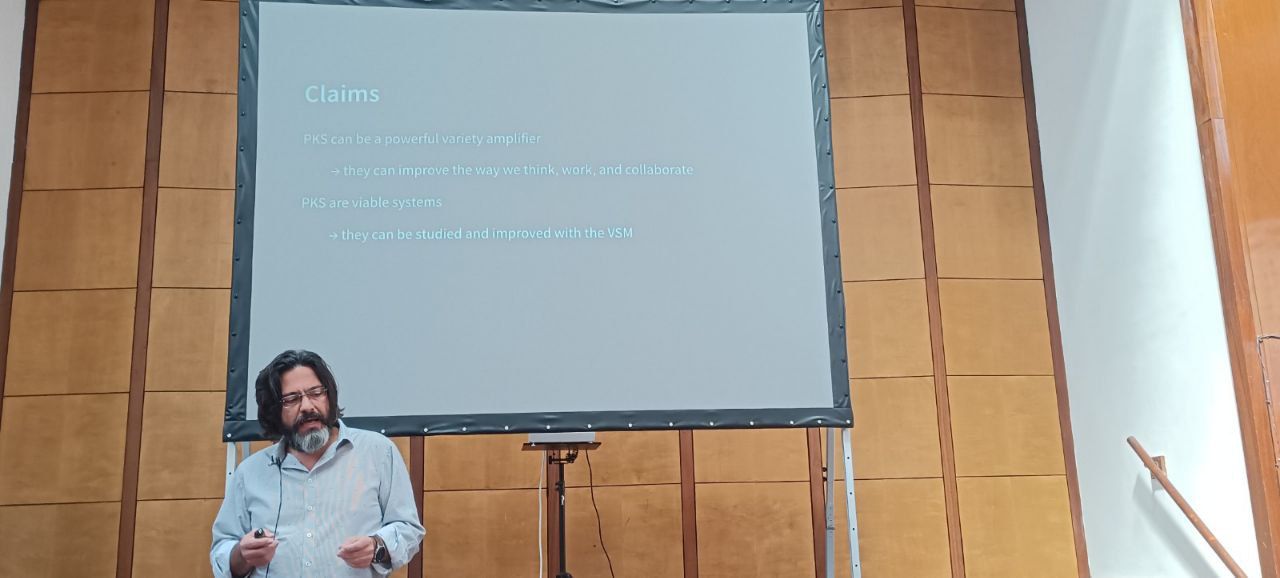
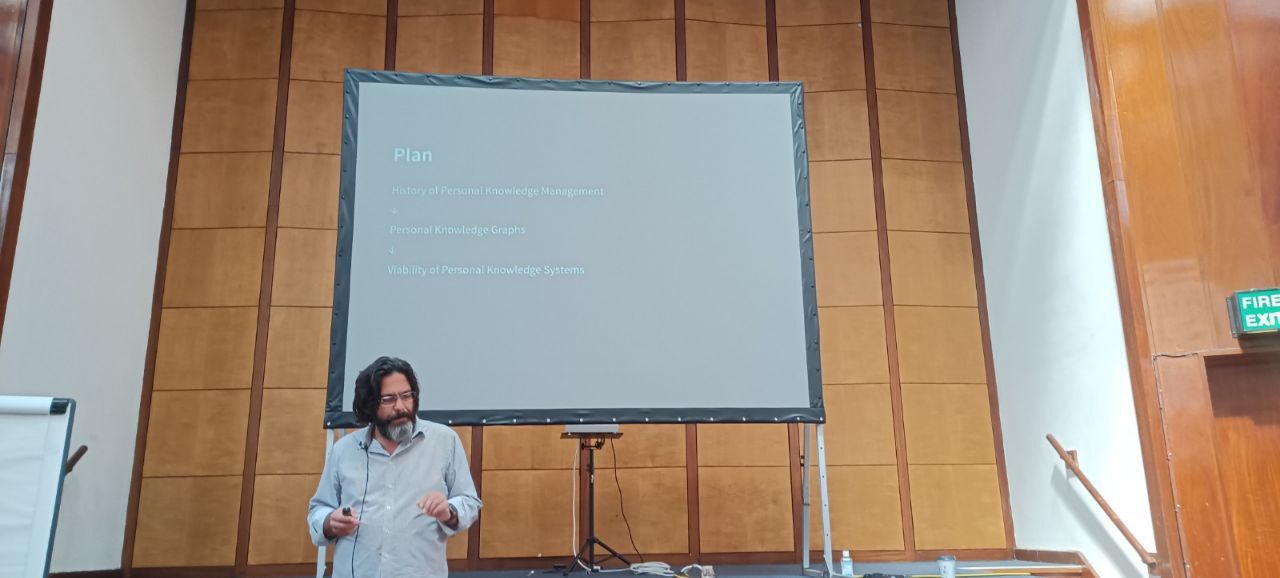
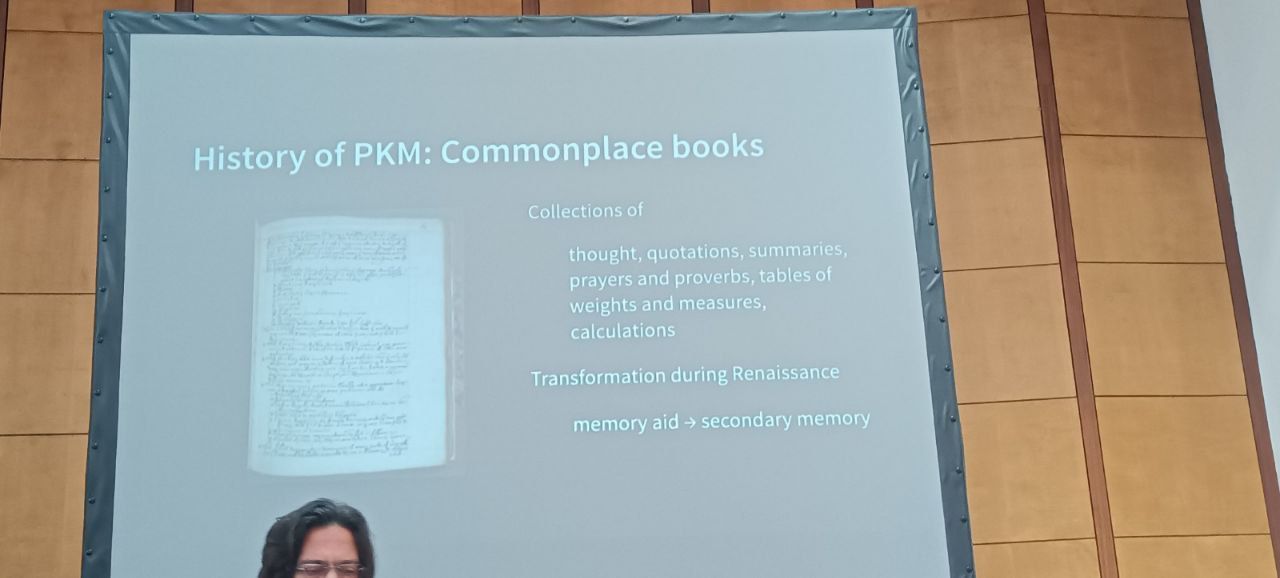

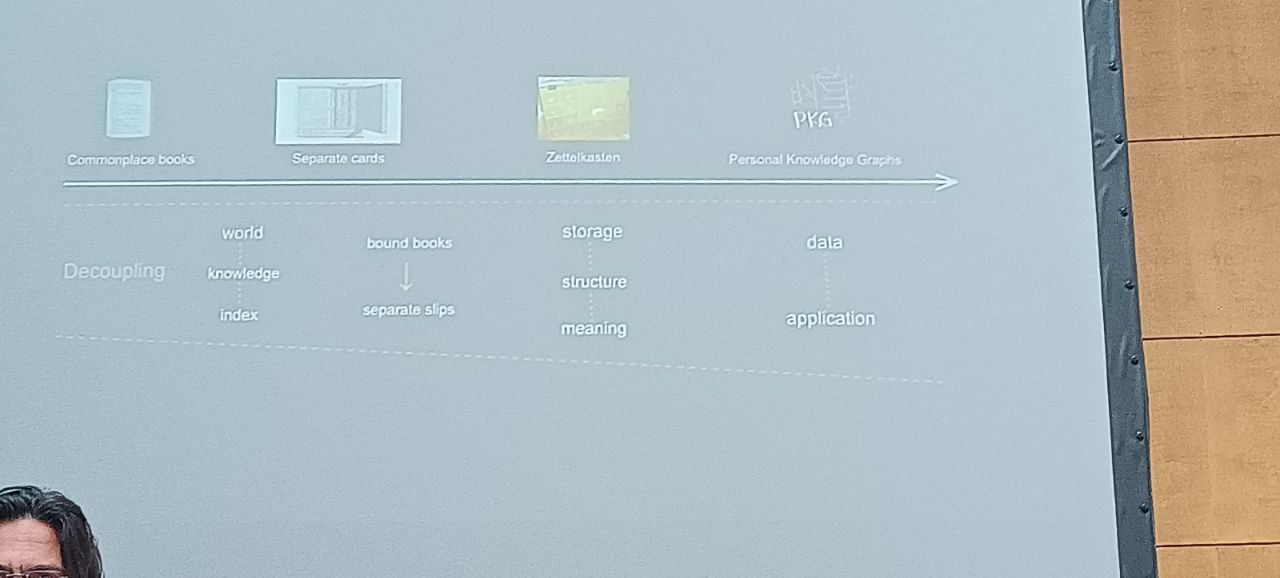
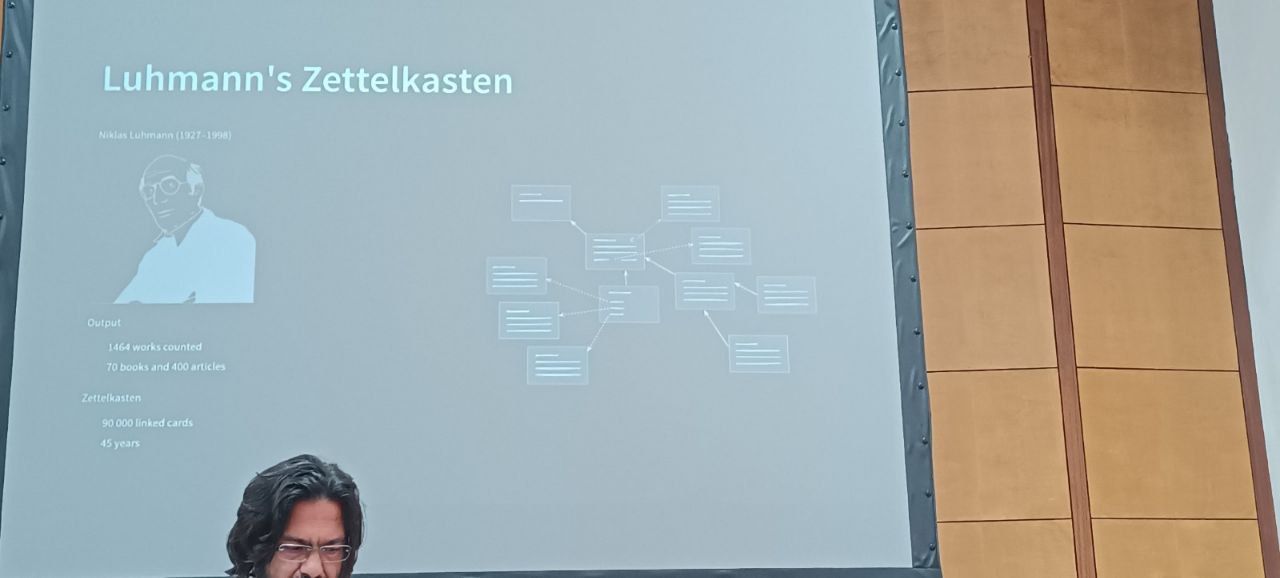
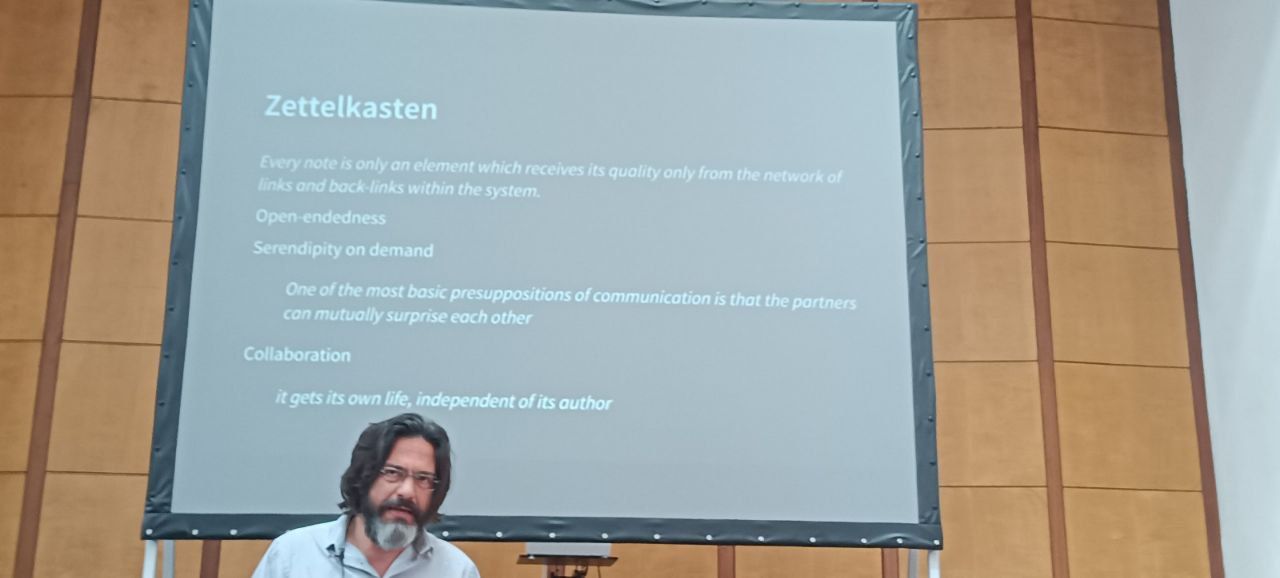
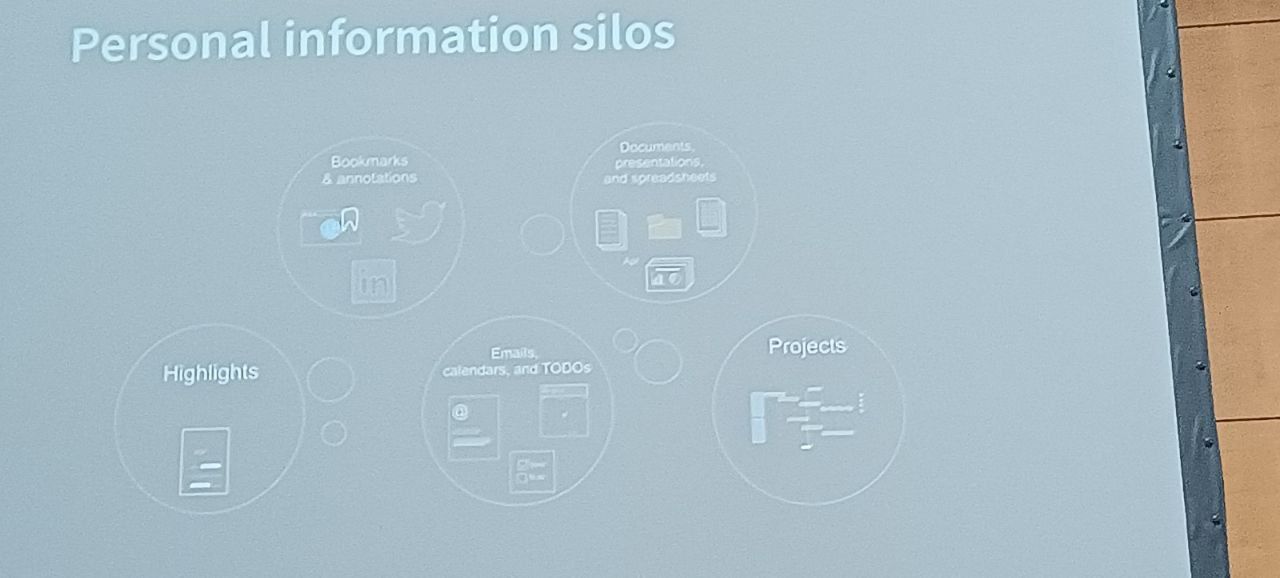
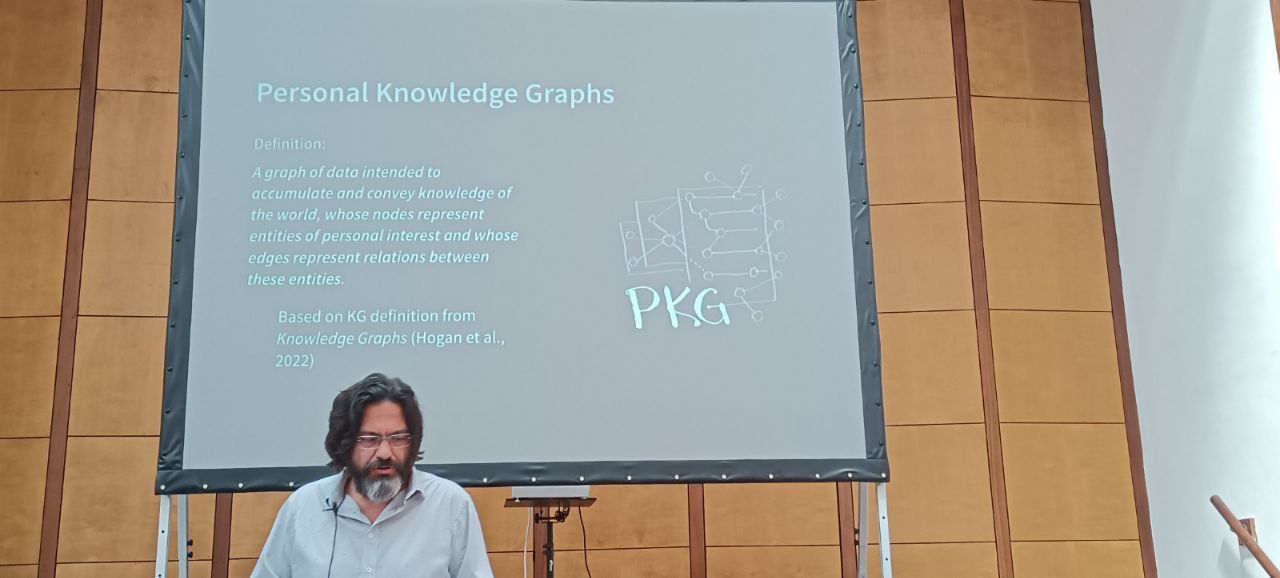
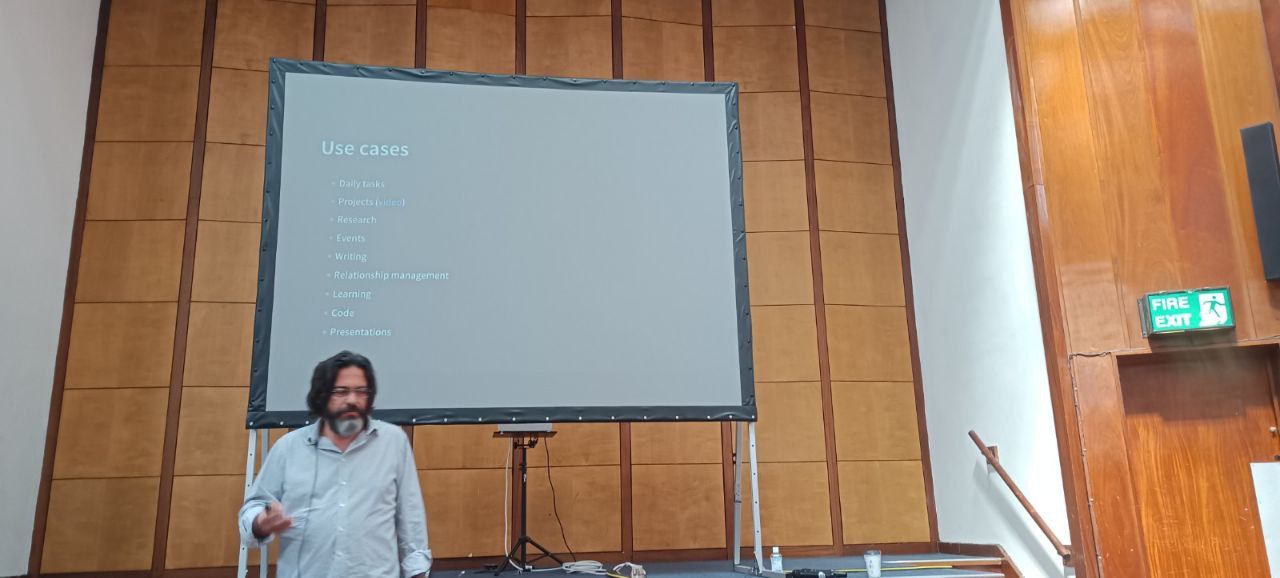
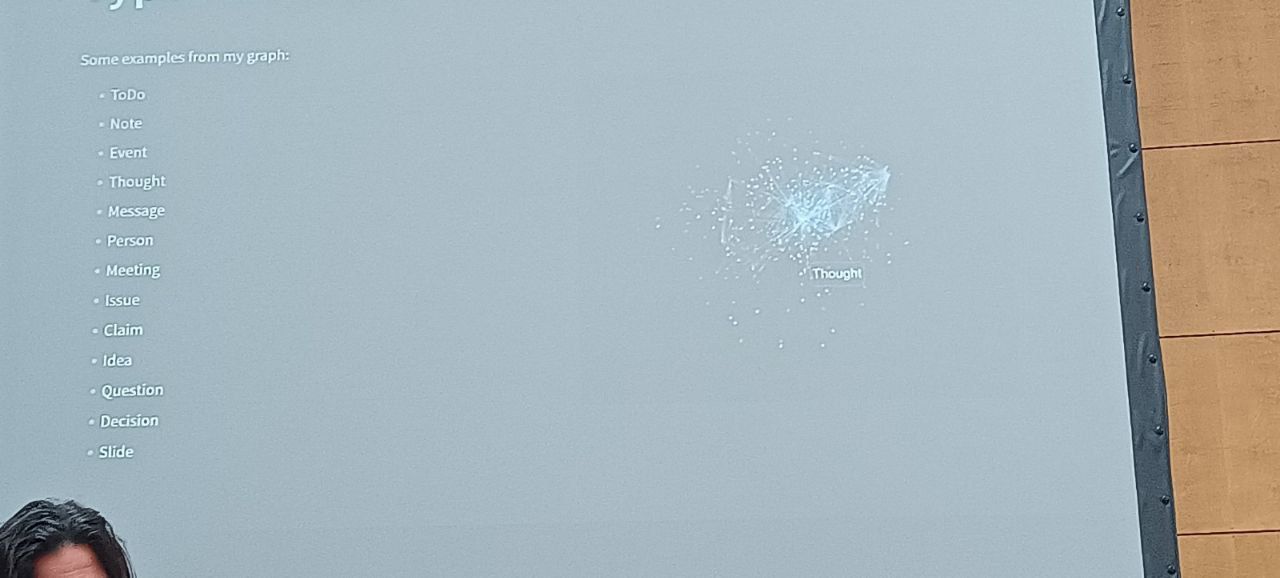
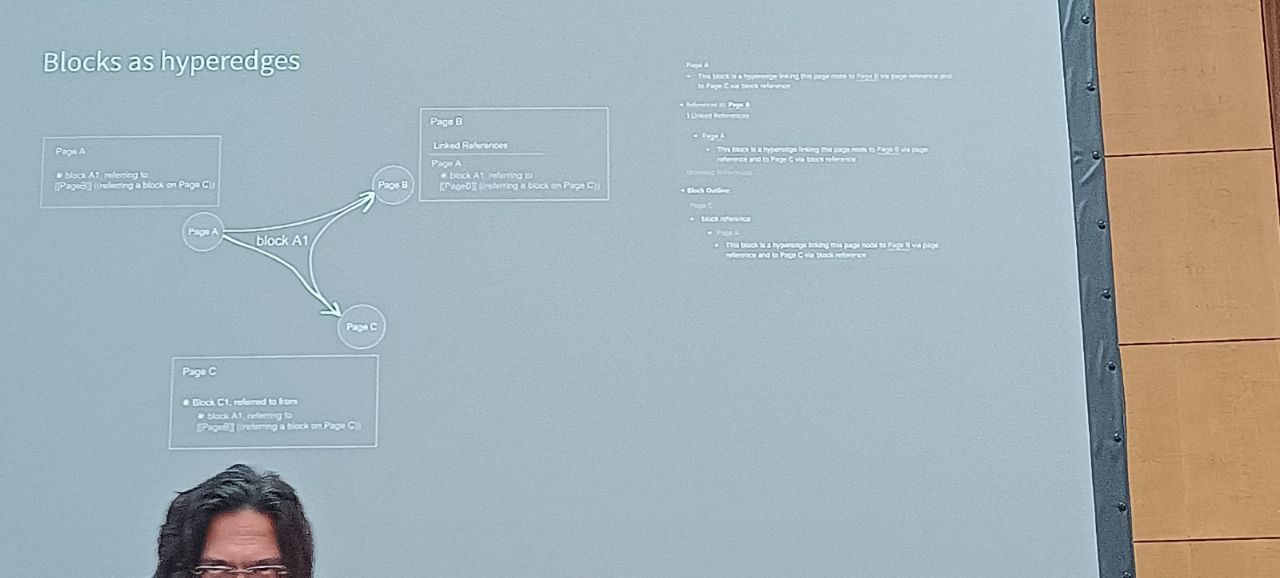
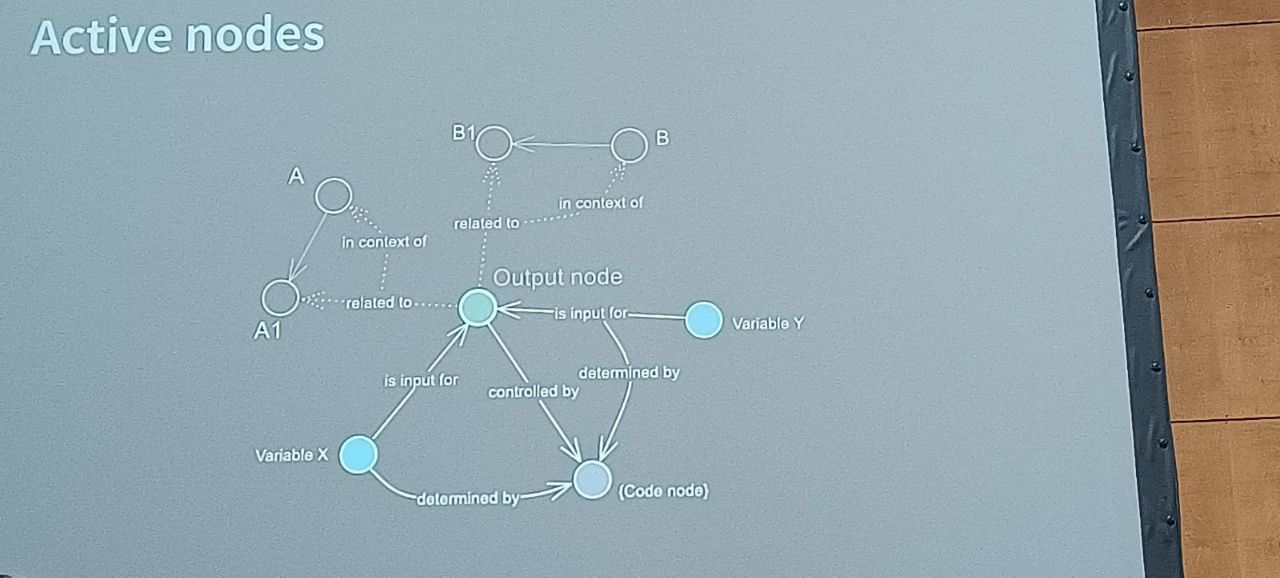
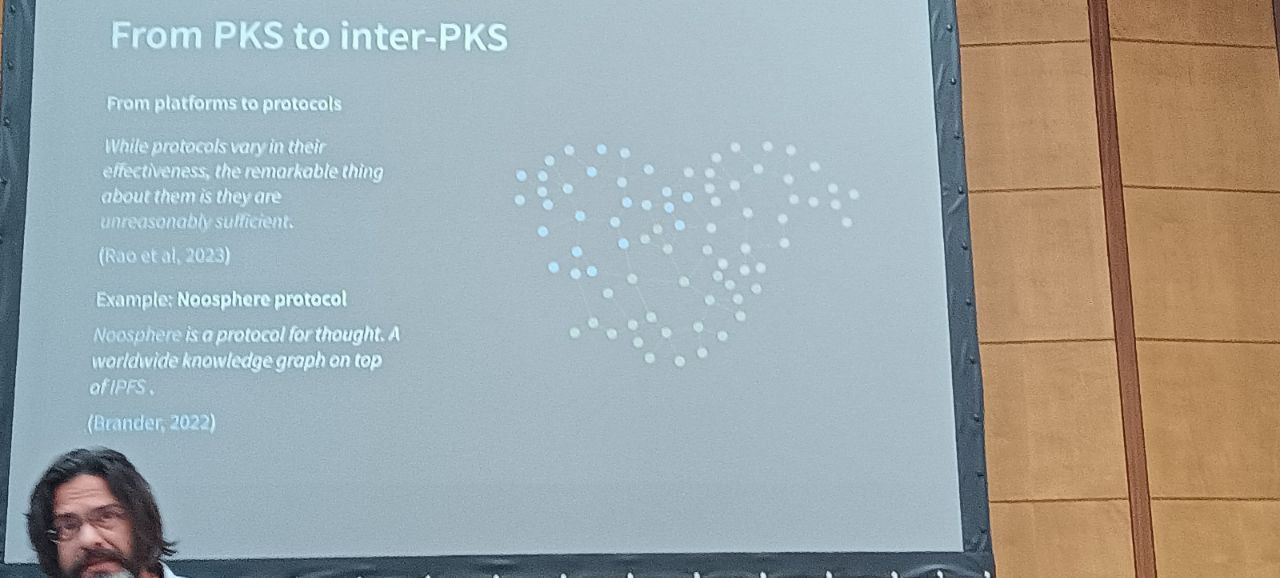
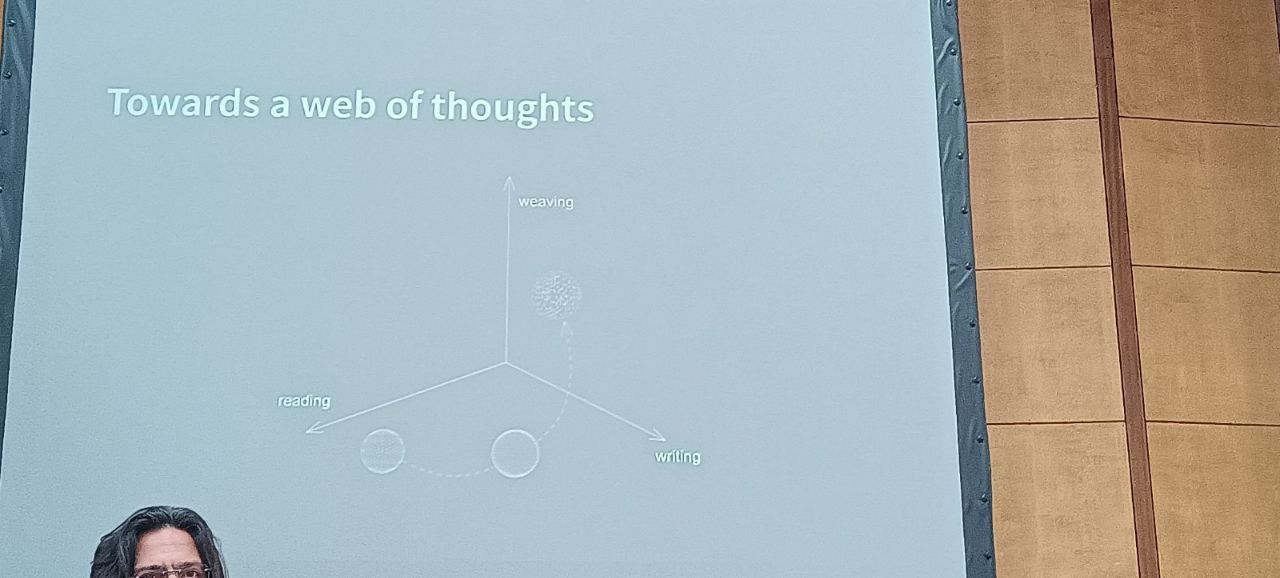
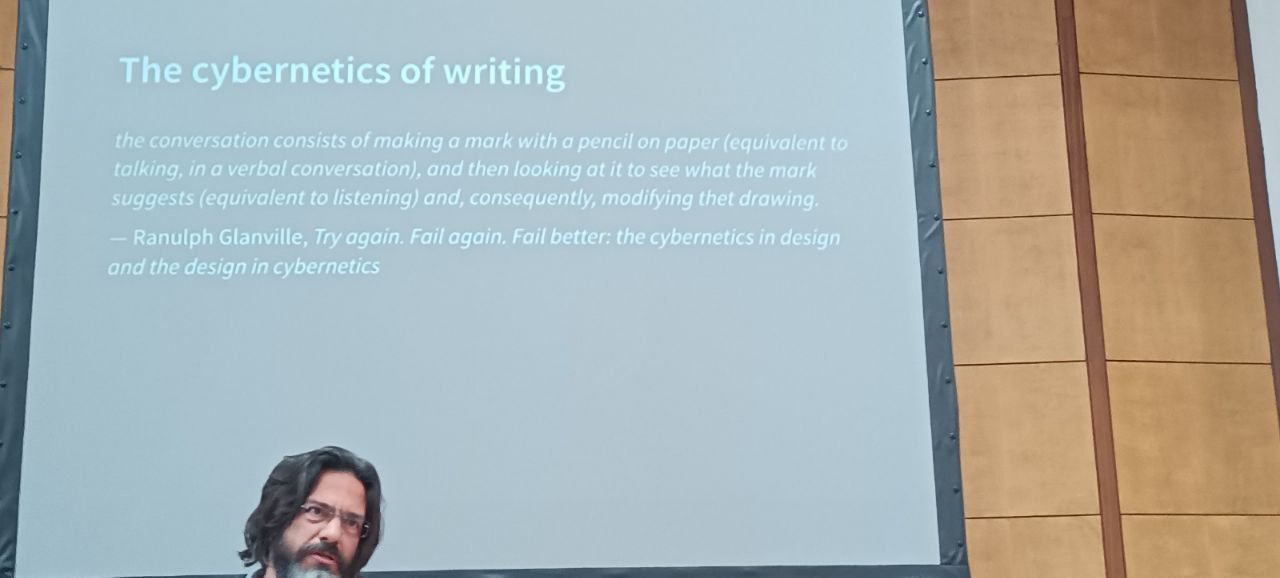
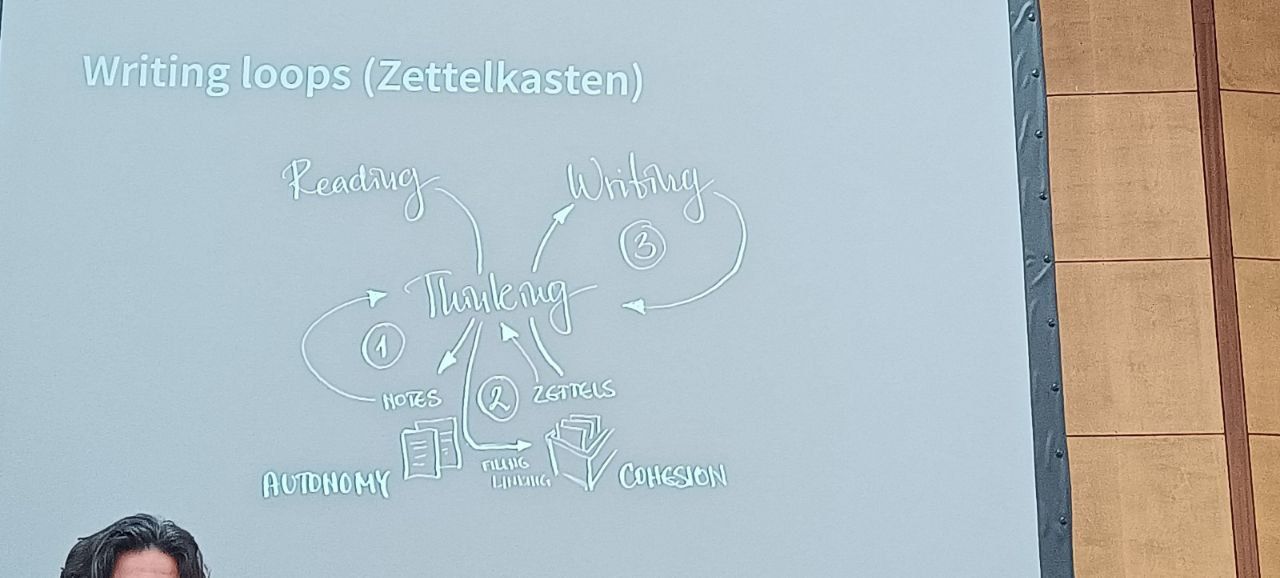
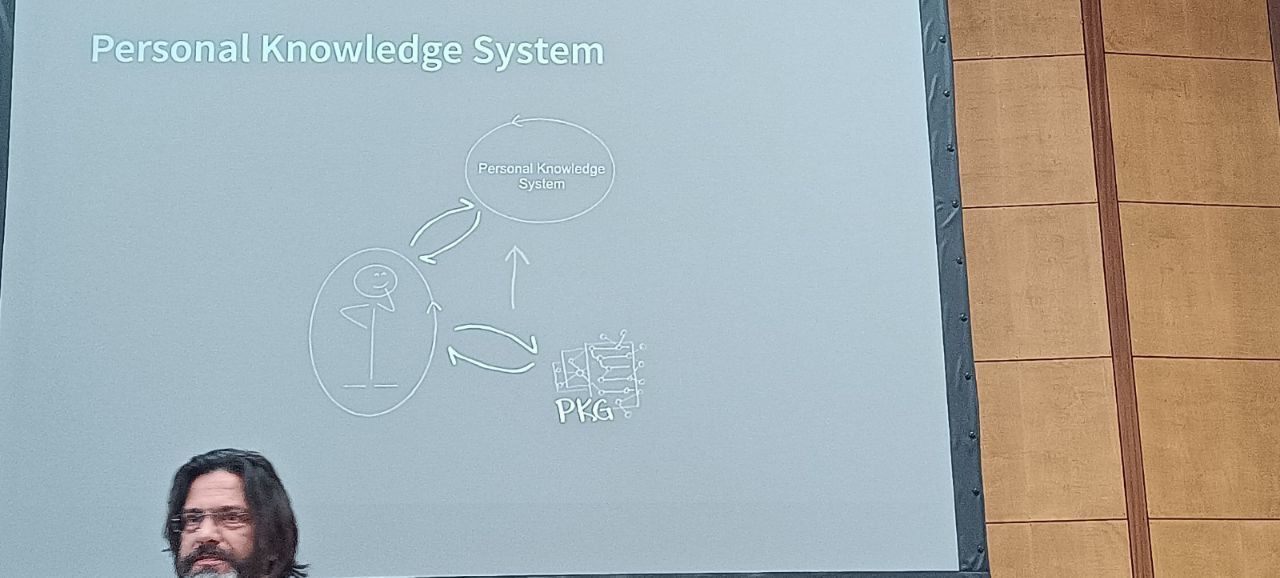
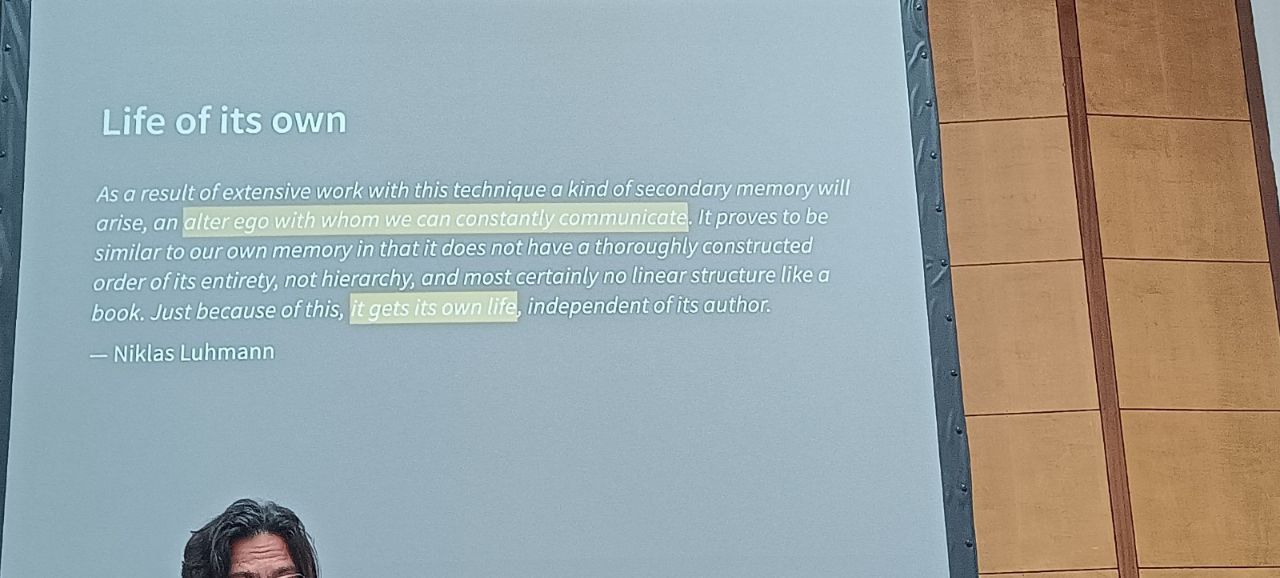
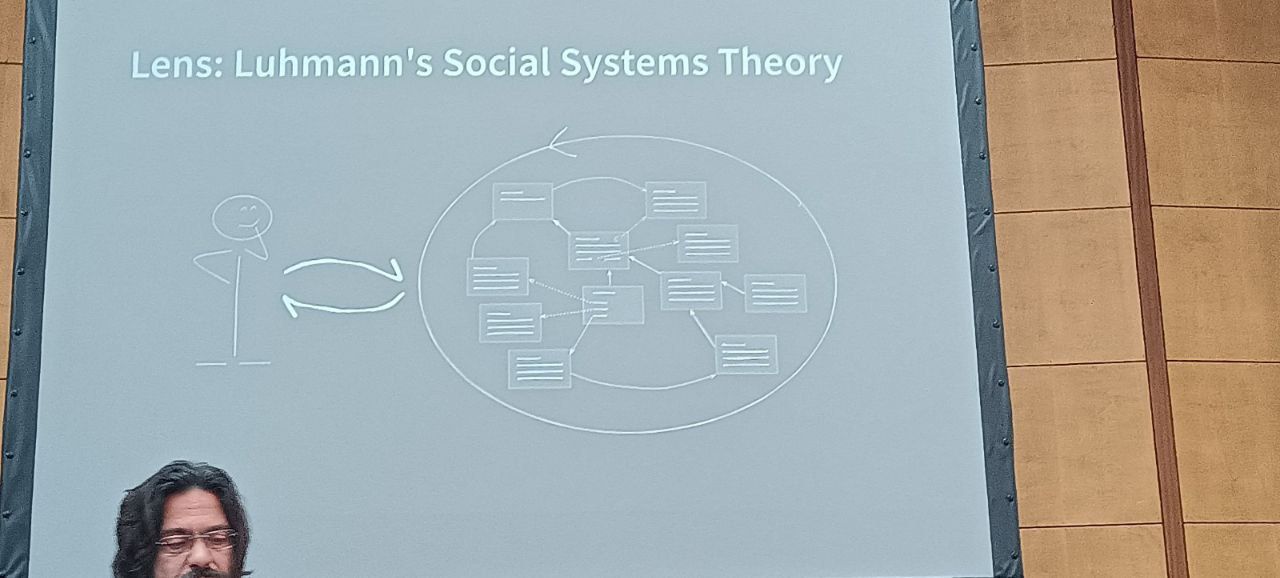

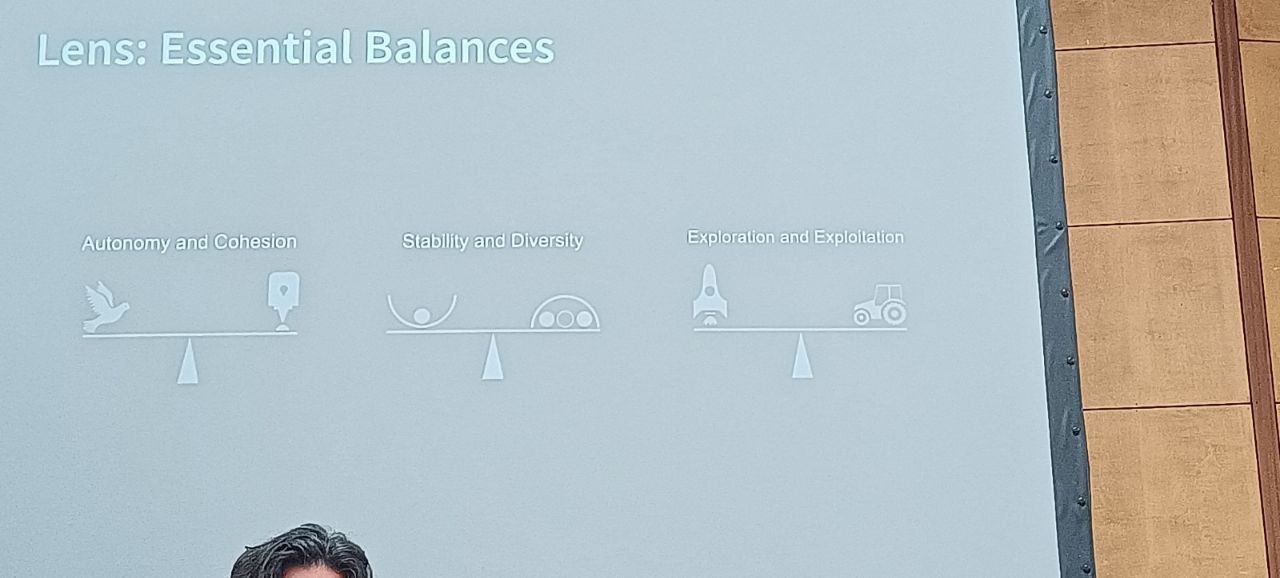
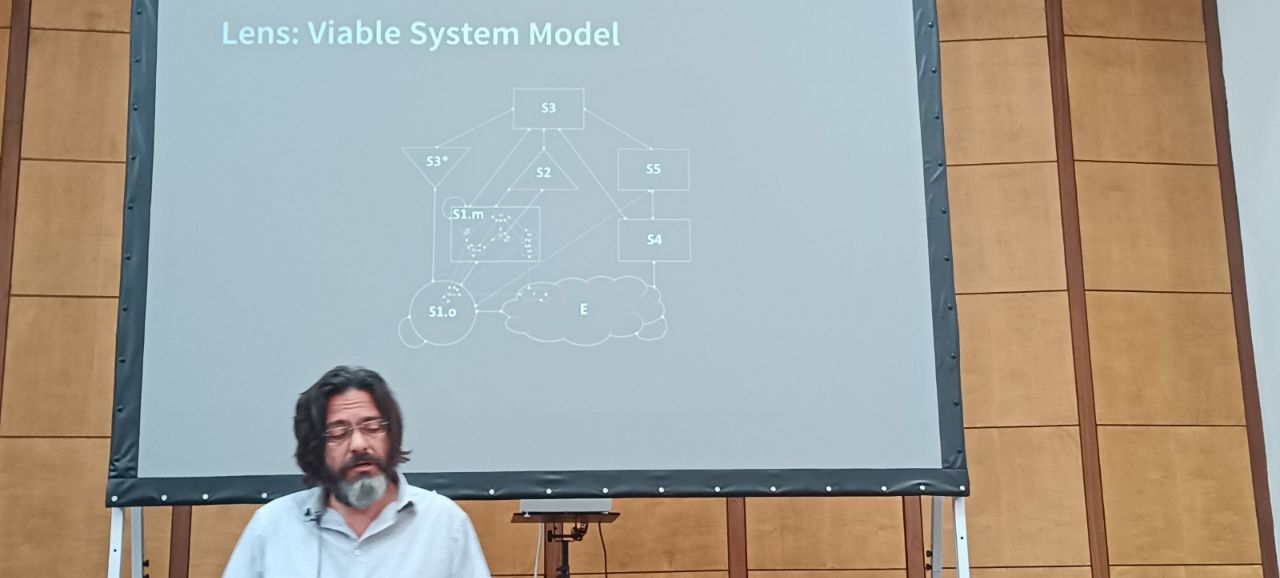
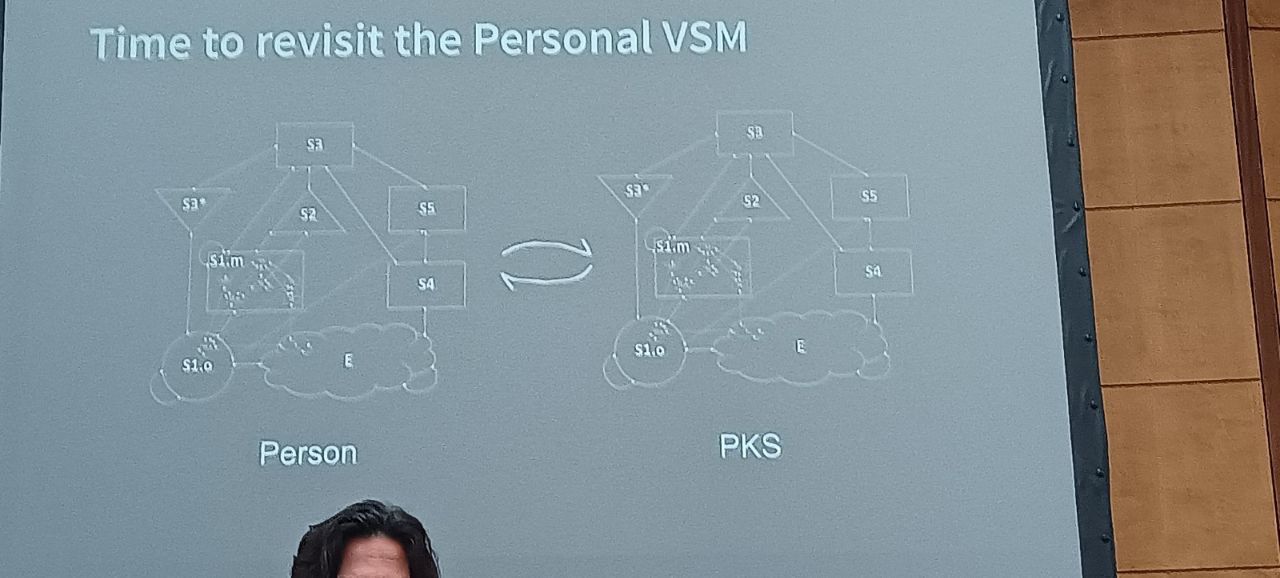
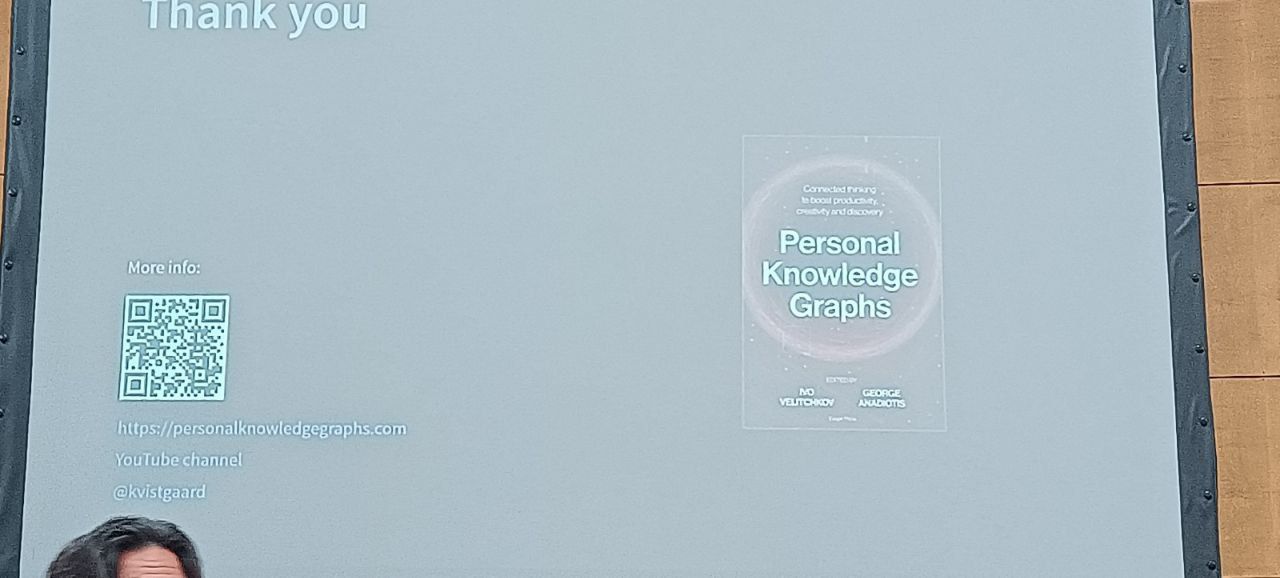
Next up to bat is Peter Kawalek on "Designing data freedom: Stafford Beer’s work applied to civil rights and criminal justice" - which was rebranded to the more apt name of "security cybernetics". Unexpectedly Peters presentation shed some light on what the operational arm of government (the cops and law enforcement) were actually dealing with in this day and age; oh my god - the poor bastards is all I can really say.
Through his presentation it becomes increasingly clear that the variety of the criminal landscape is way beyond anything that our legal system is able to cope with. Due to this the algodonic channels are frigging screaming; not only are the cop tired but the whole legal system gets backed up with data vs data arguments, putting juries and judges to sleep.
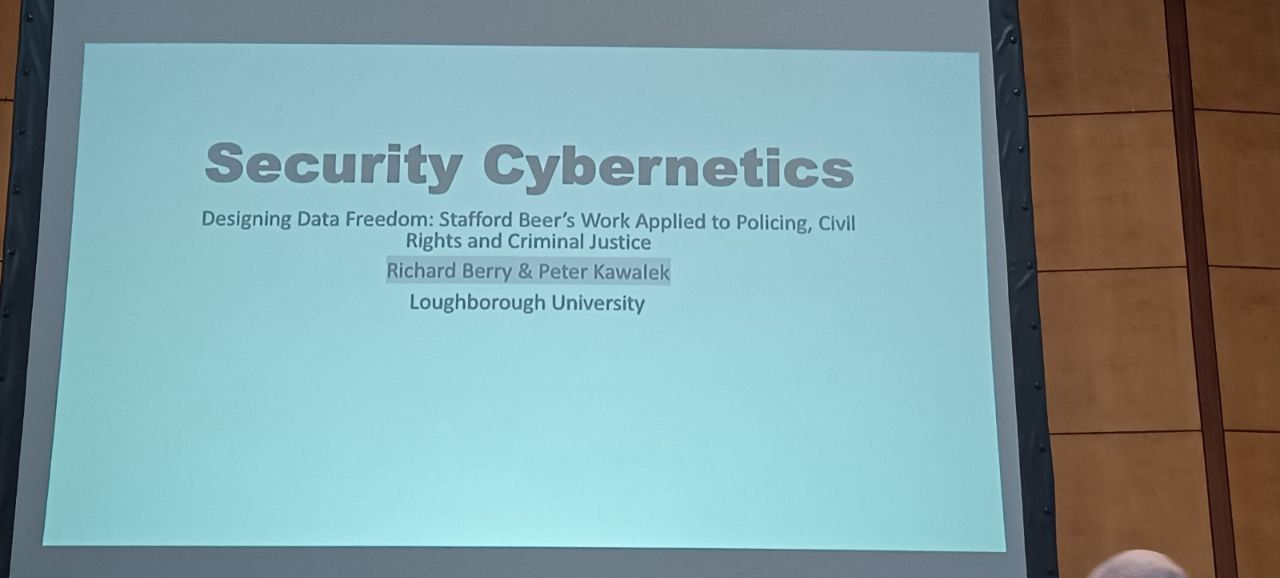
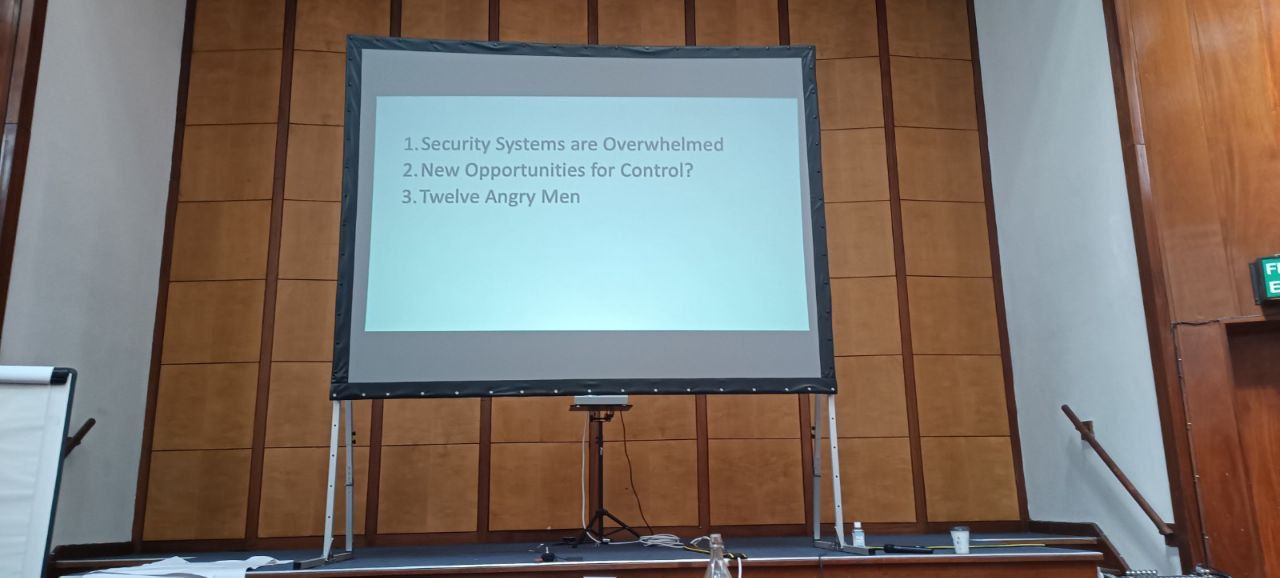
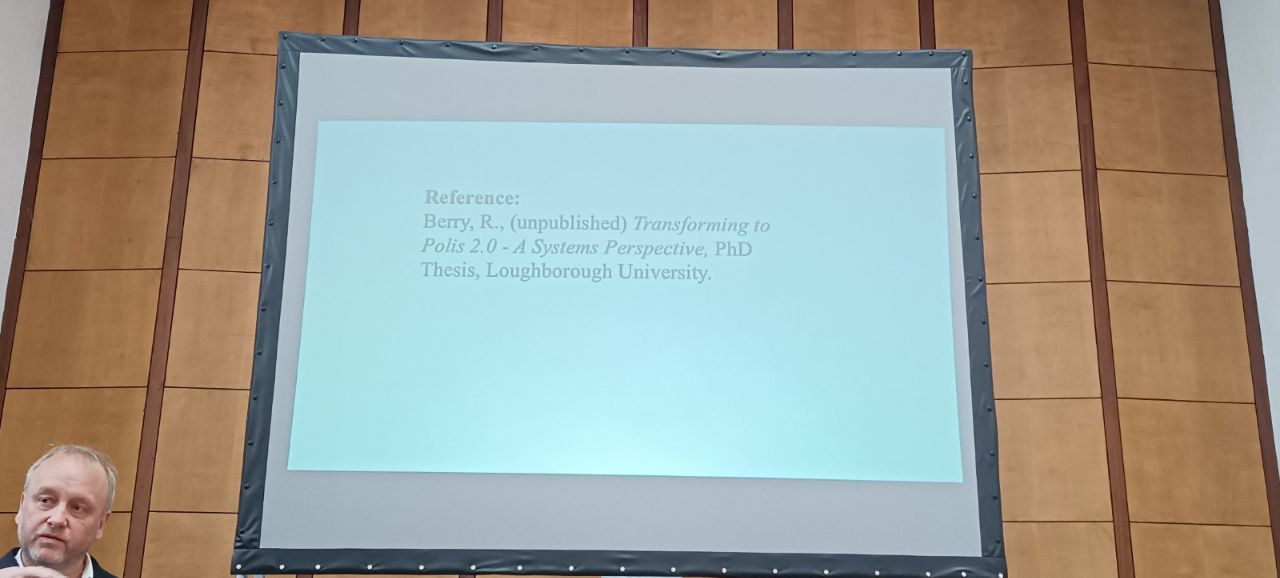
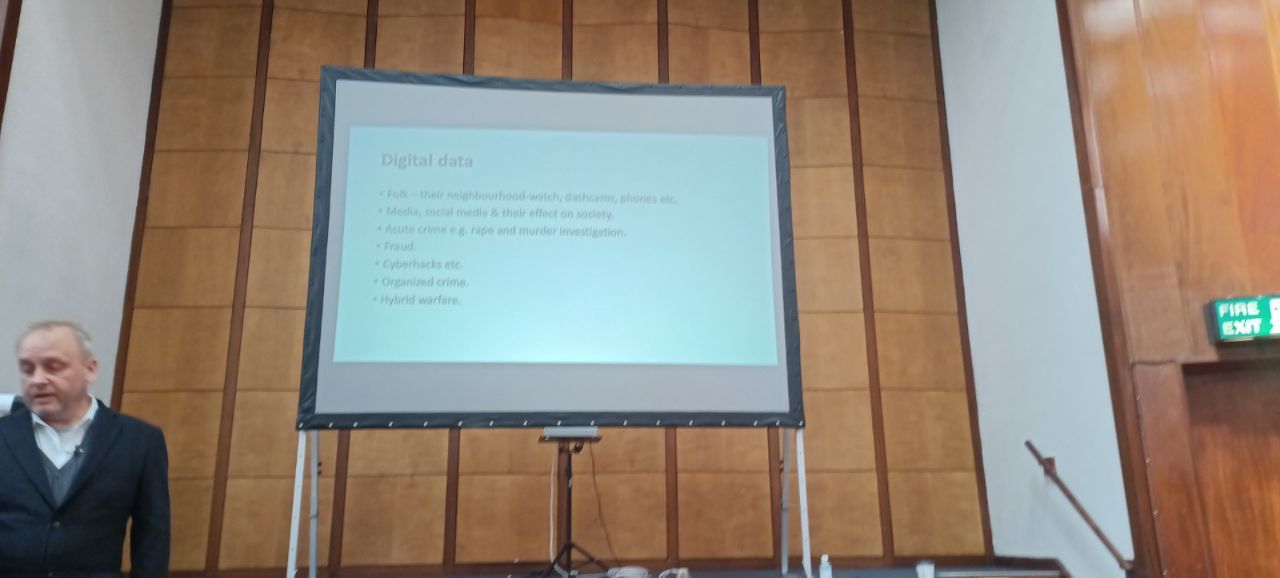
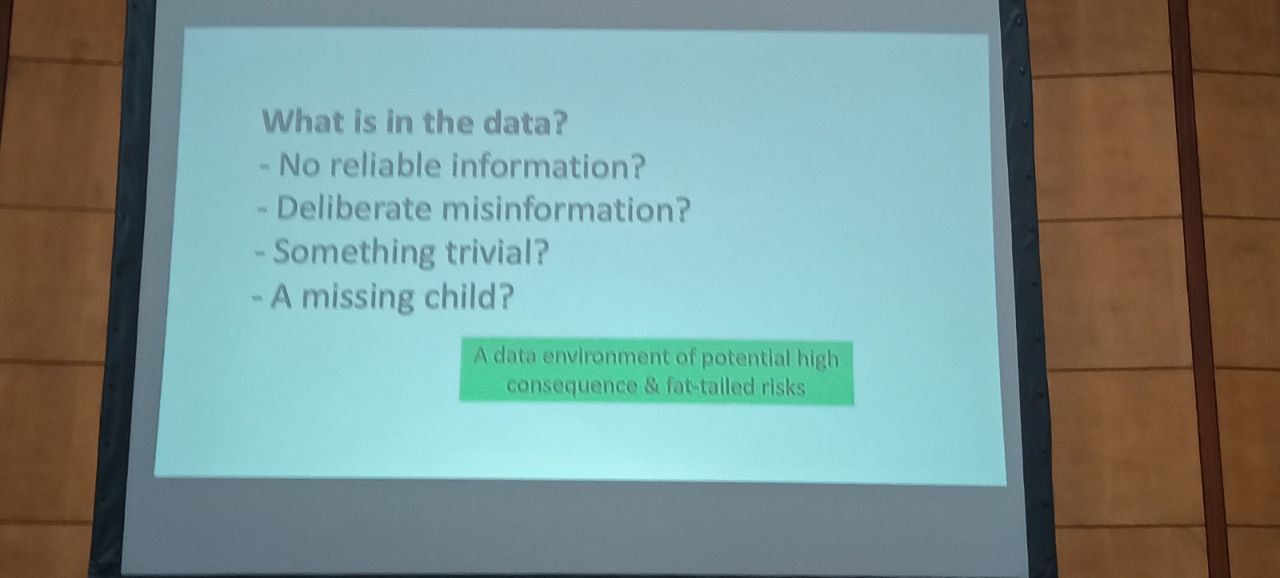
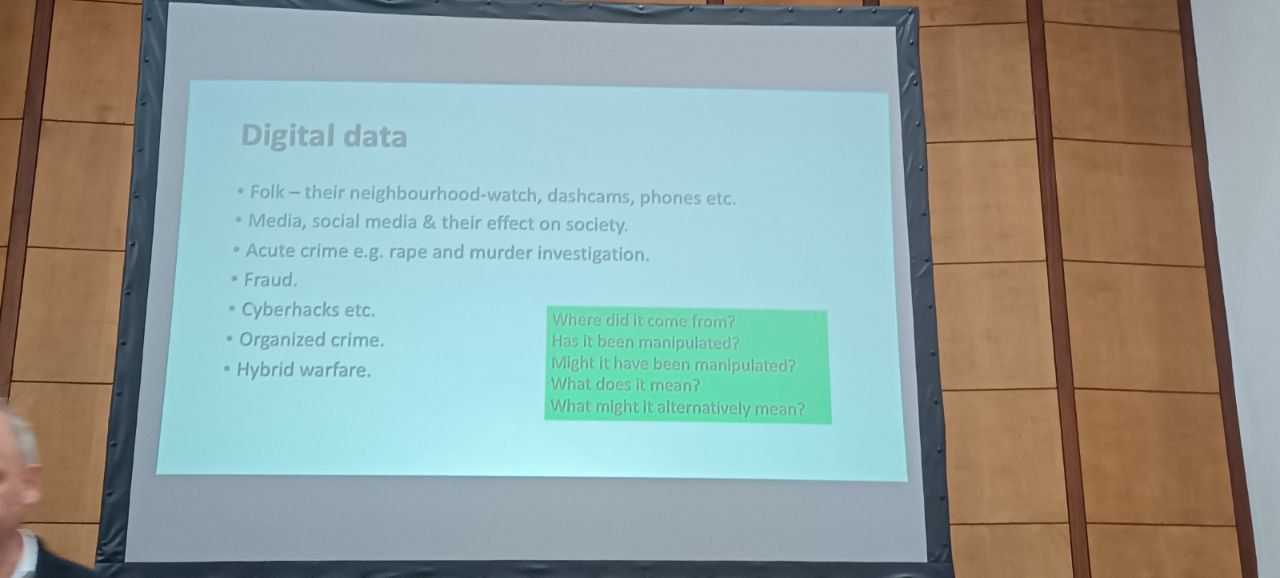
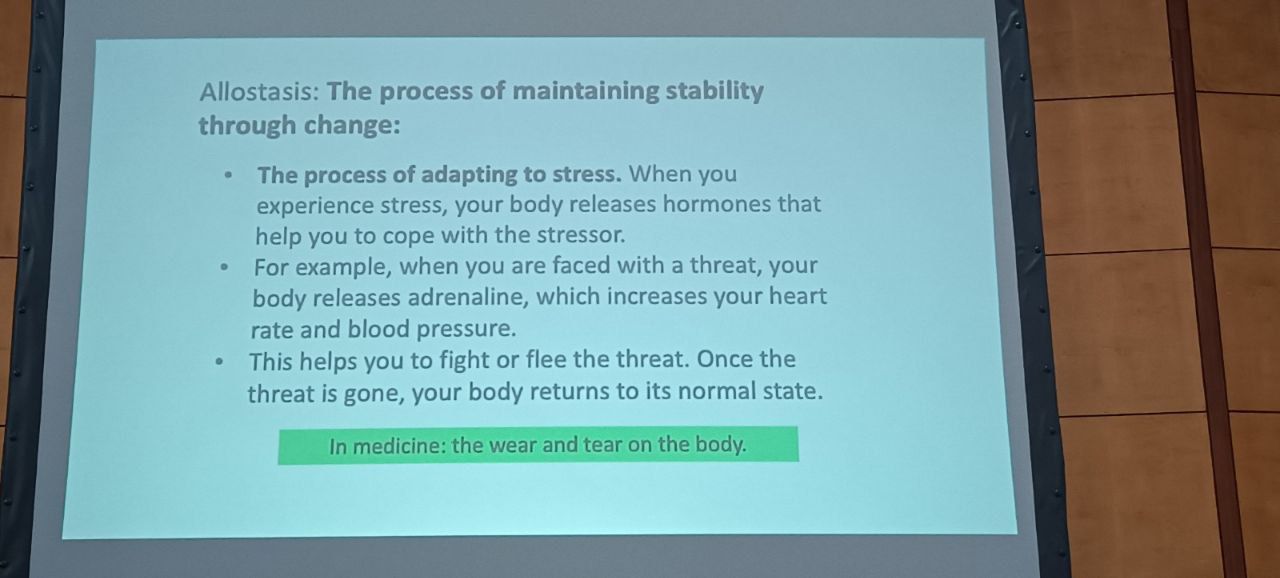
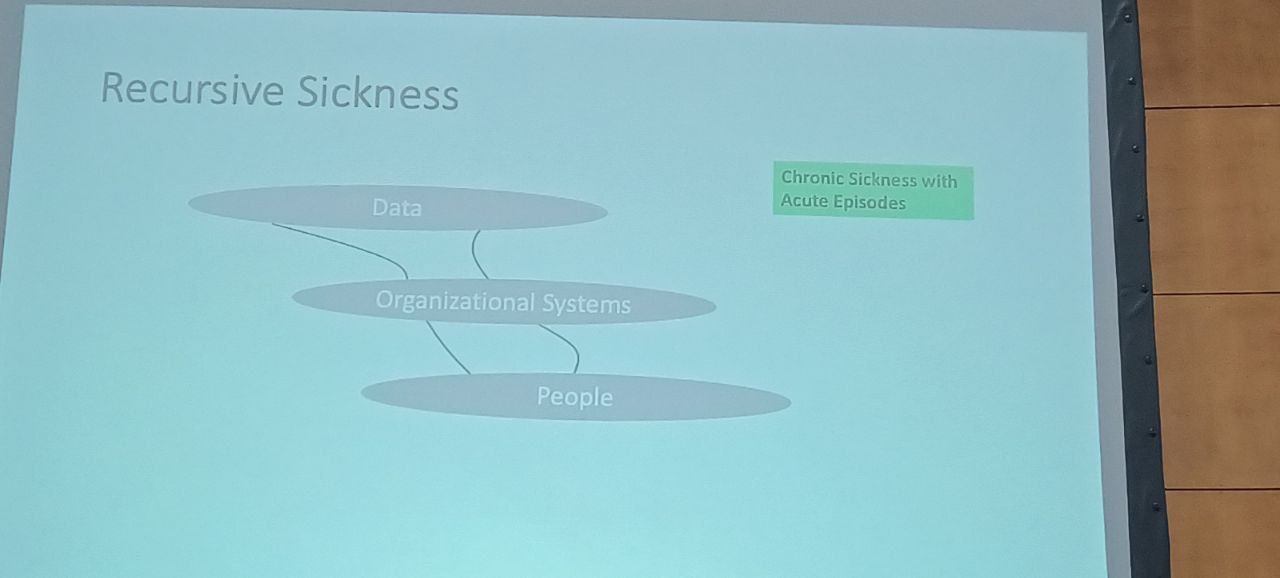
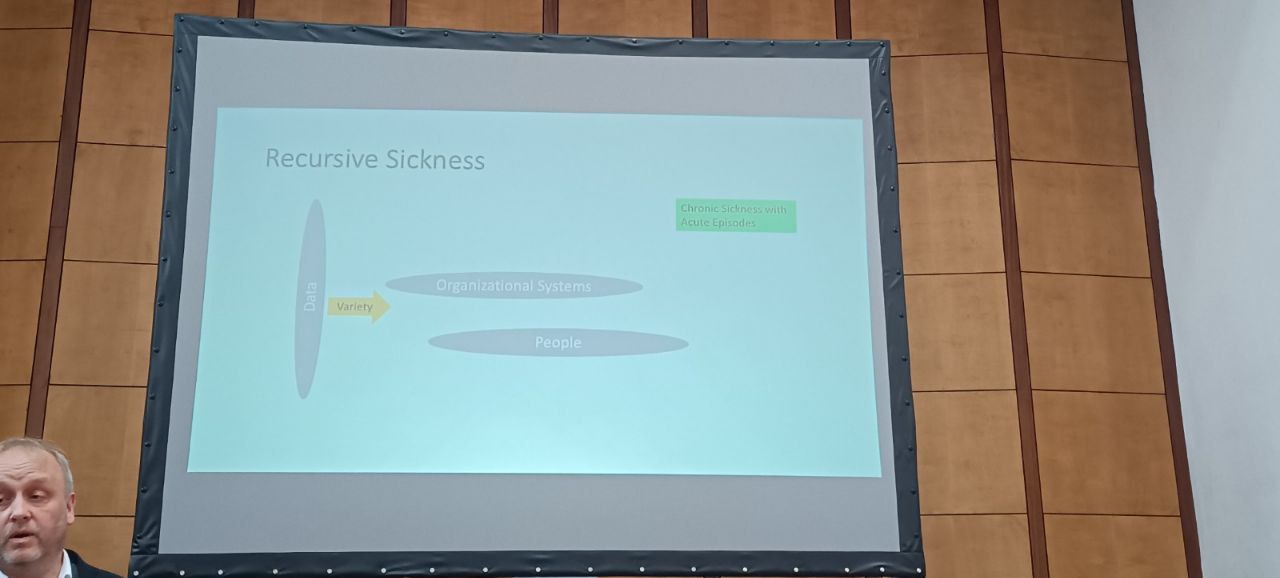
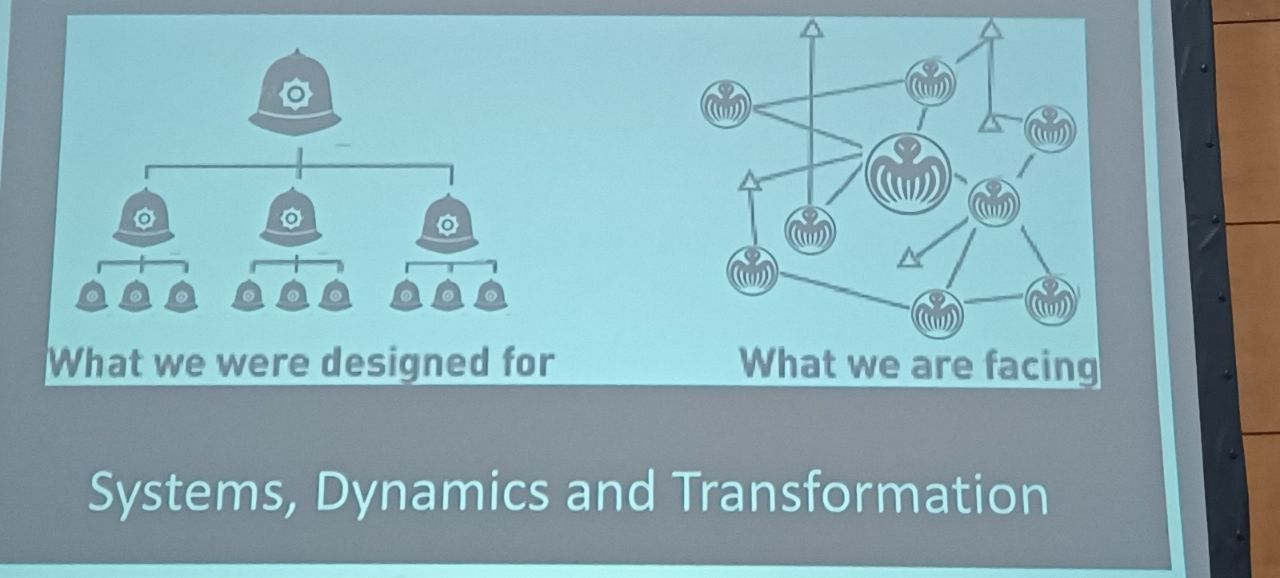
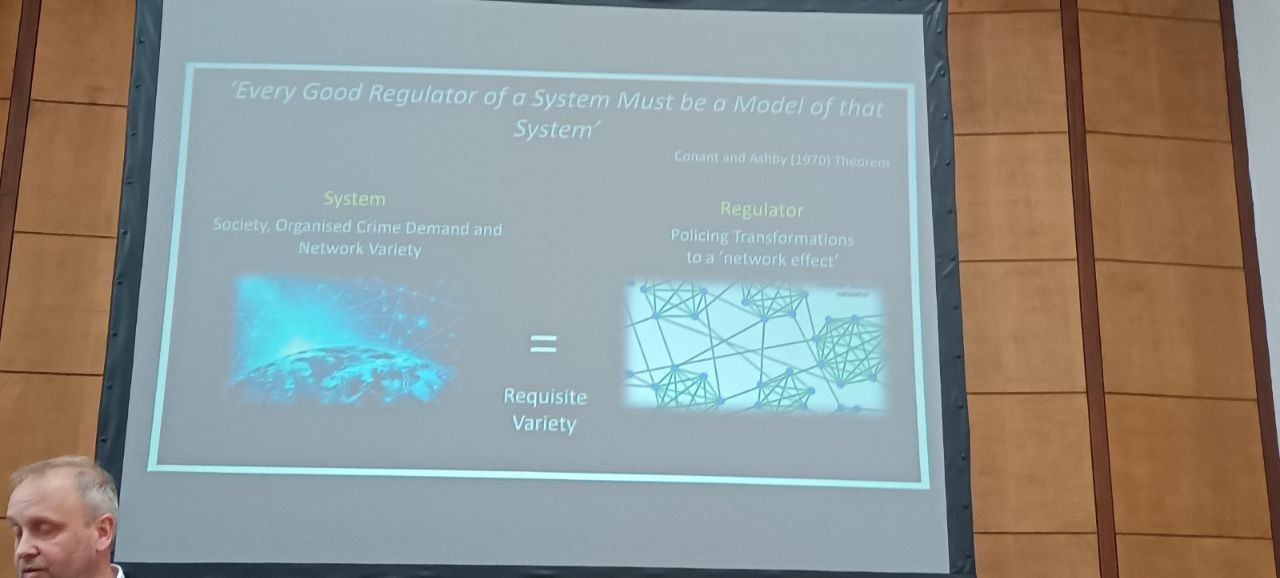
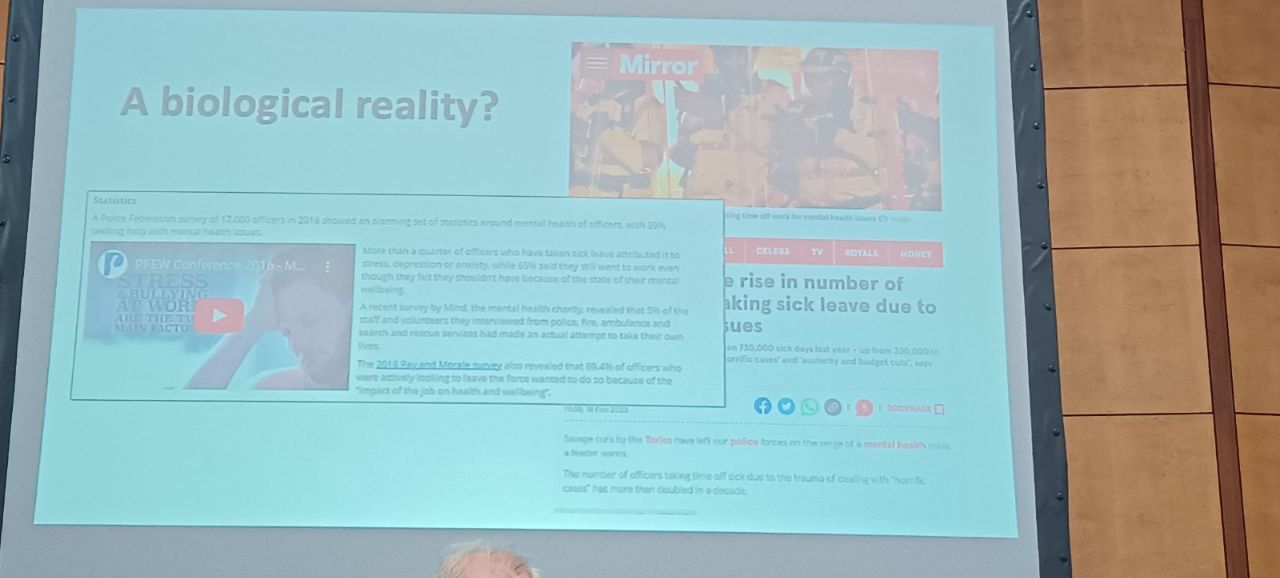
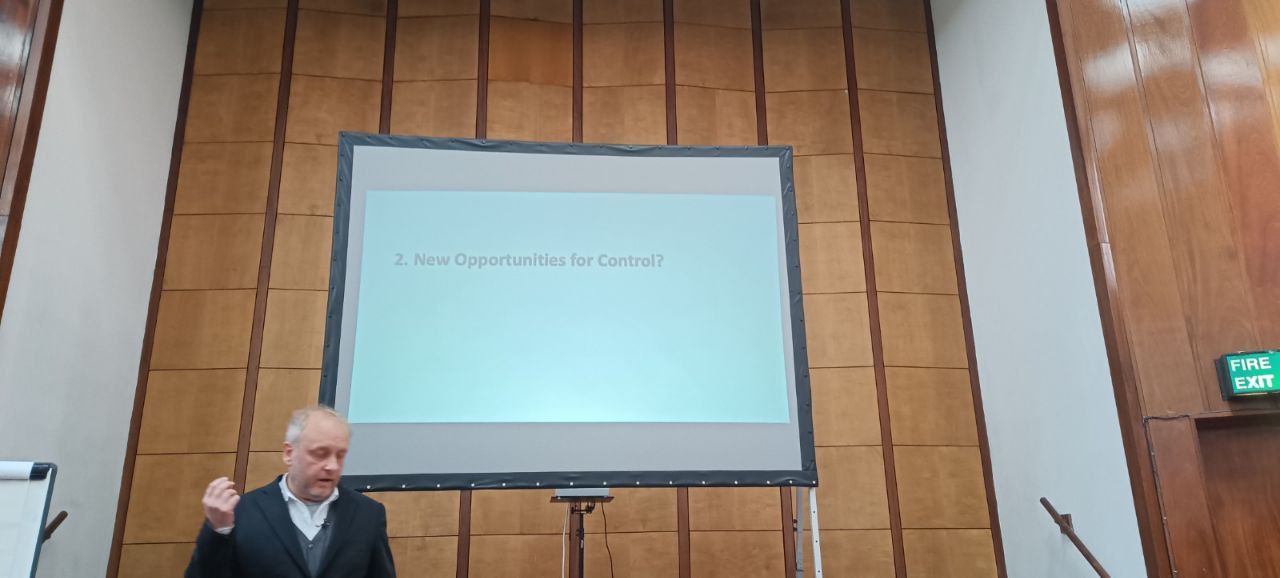
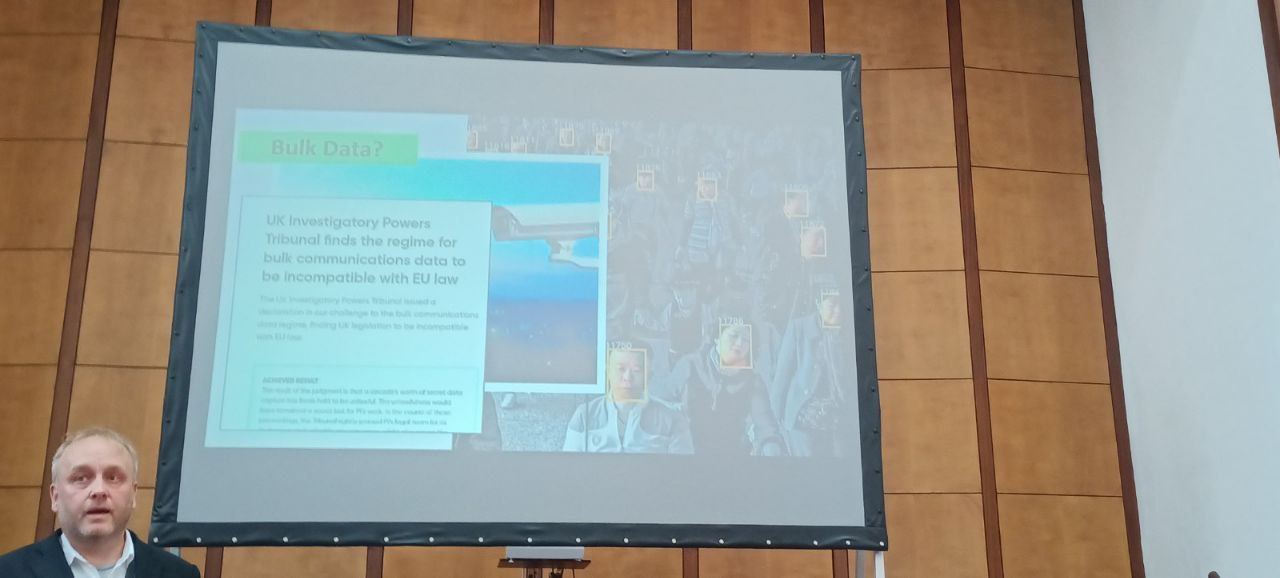
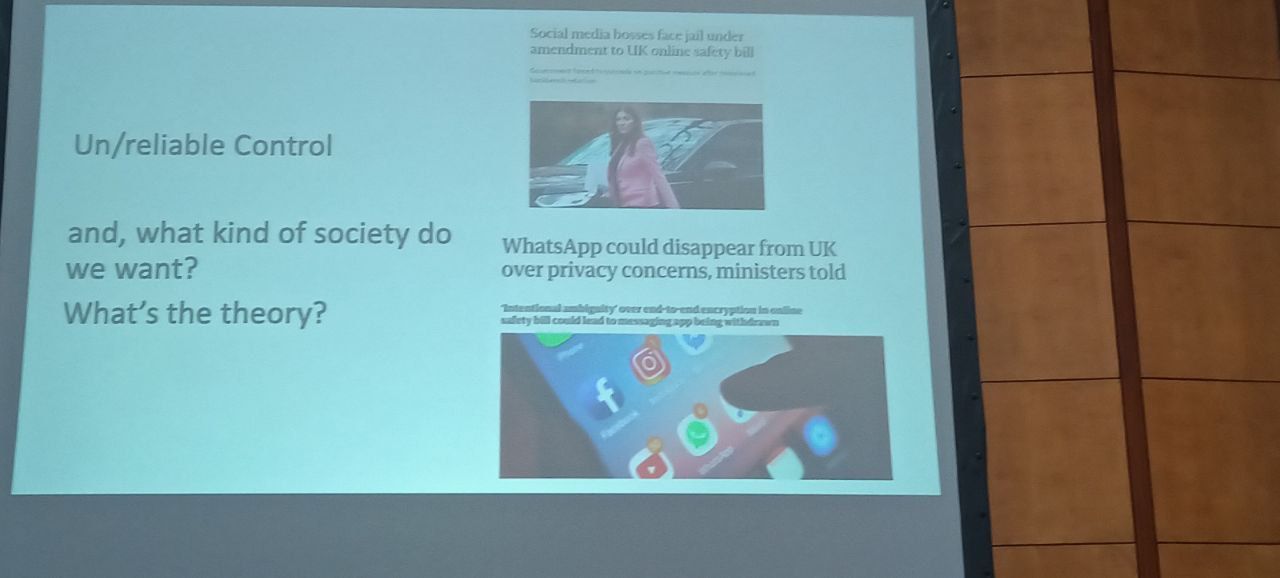
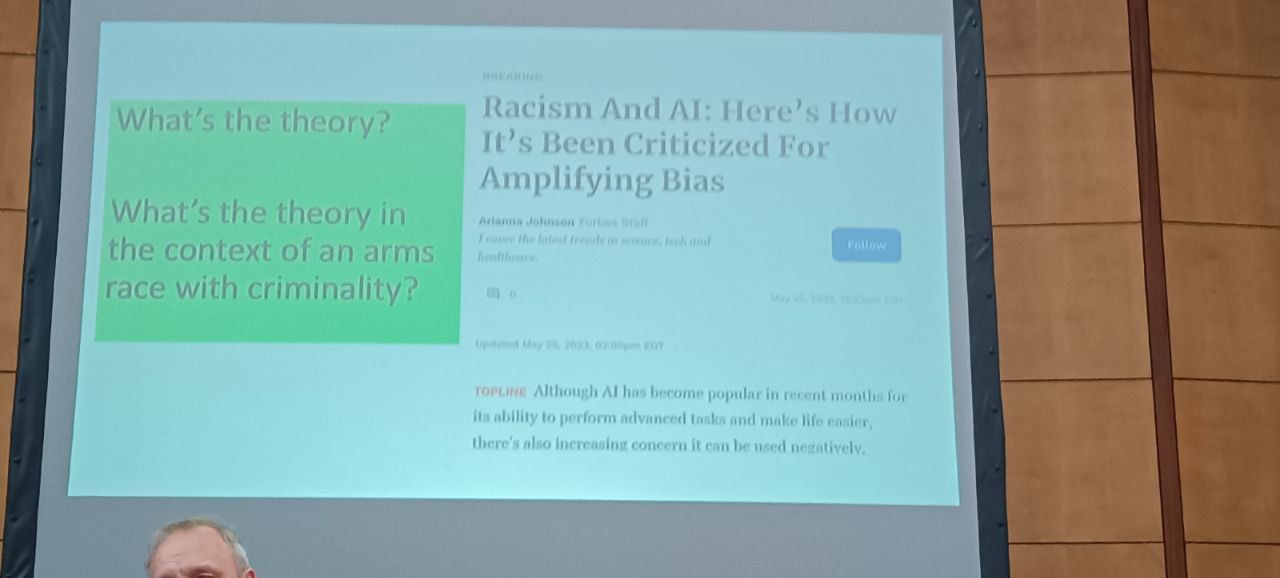

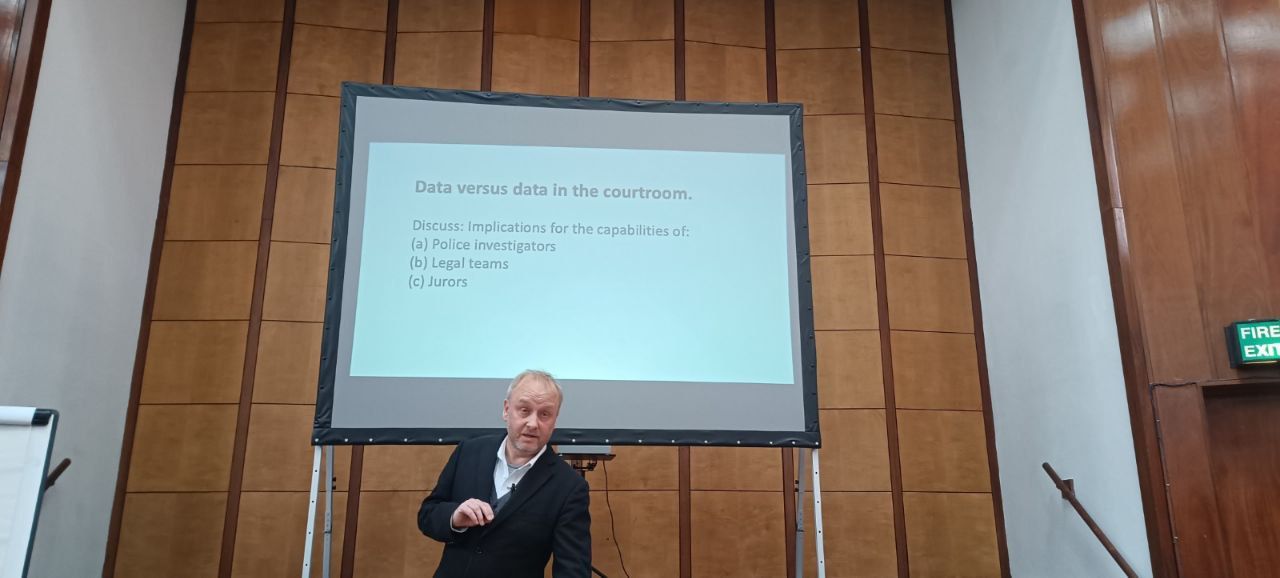
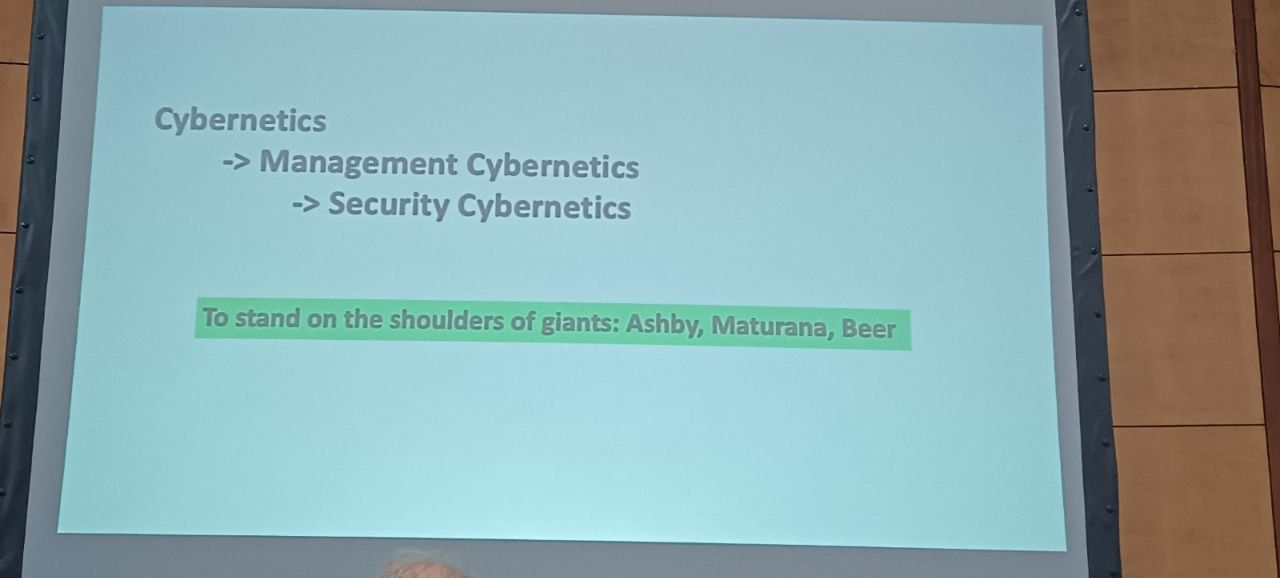
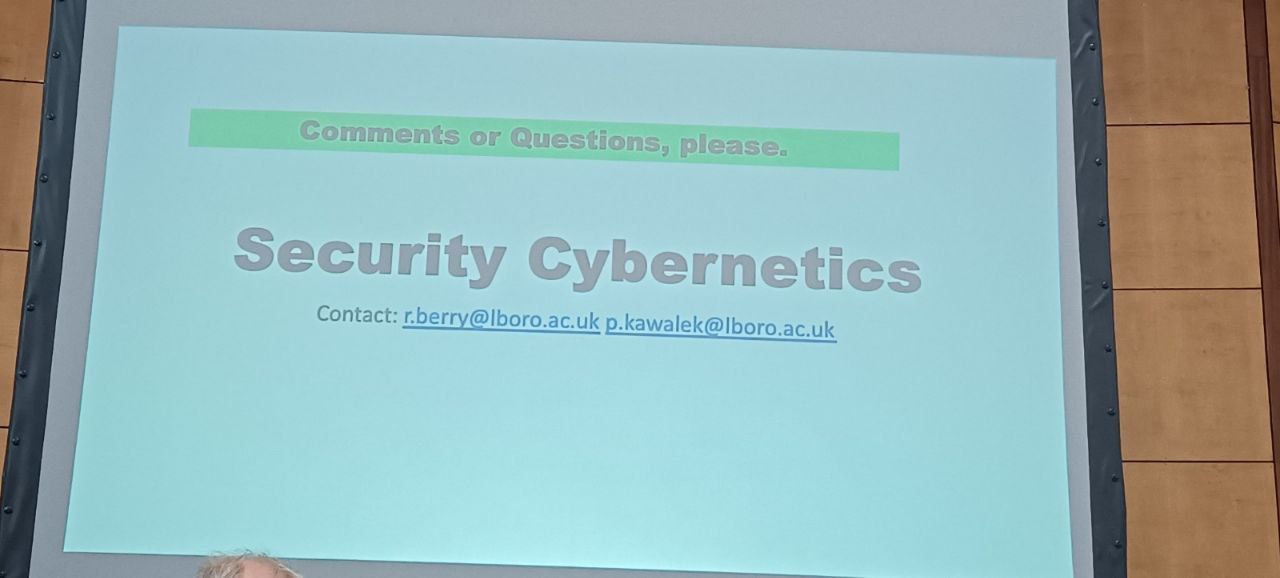
At this juncture I was uncertain what to pursue so stepped into Michael Wards PHD presentation "From reductionism to systems thinking: a complementary approach to emancipatory change" which pointed to a number of interesting leads and a key insight that emancipation is the reconciler of theory and practice. Sounds legit.
Mingling through a lunch break we come back into session for Czeslaw Mesjasz's "Complex systems management and the traps of sustainability and corporate sustainability as polysemic notions" - which is admittedly a bit of a mouthful!
Czeslaw was an interesting chap though; extremely animated and unconcerned with his audience in the slightest while covering a lot of ground in a short space of time. His message was pretty simple; meaning is messy!
The notion of Polysemics was also new and novel concept for me and essentially treats language as semiotic impulses that can be interpreted through many lens... my own preference being Bennetts qualitative geometries of course!
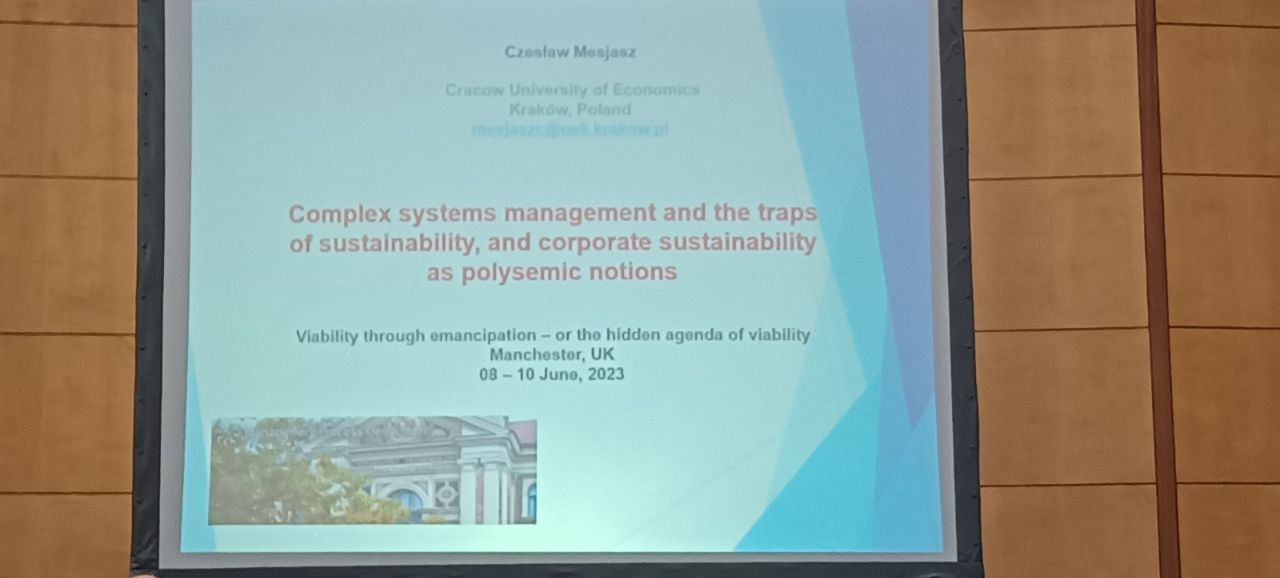
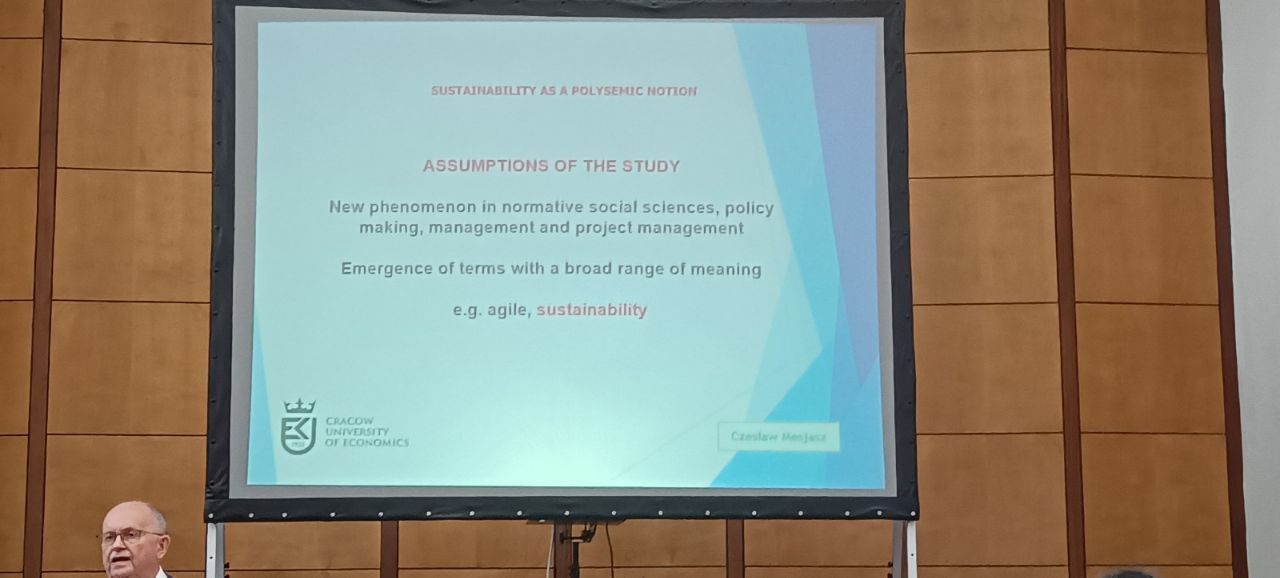
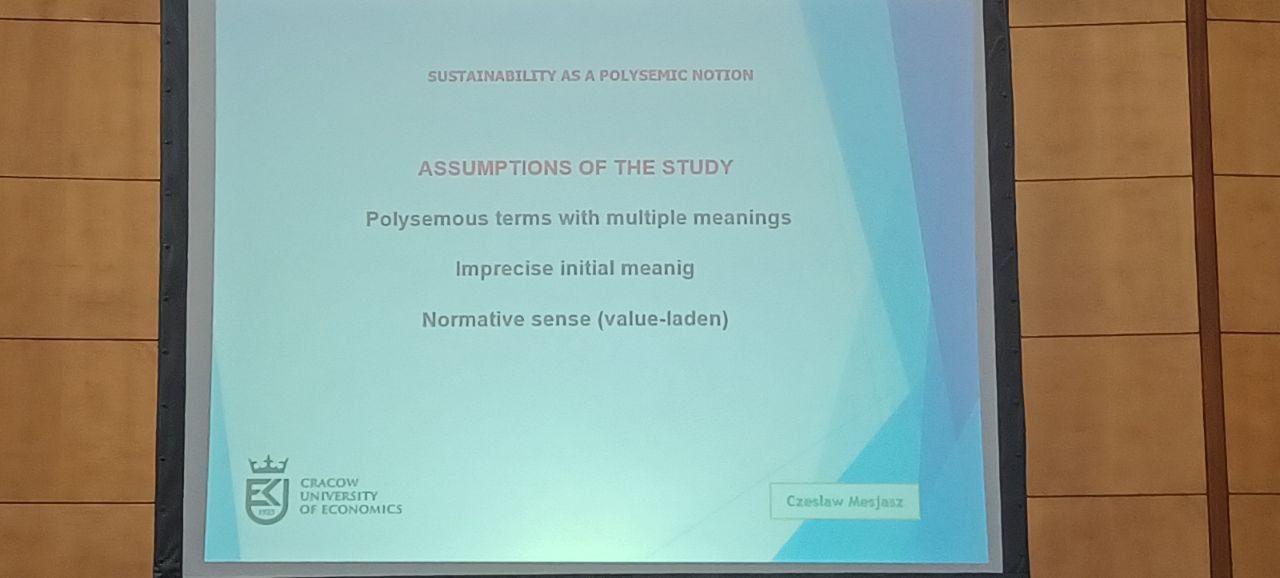
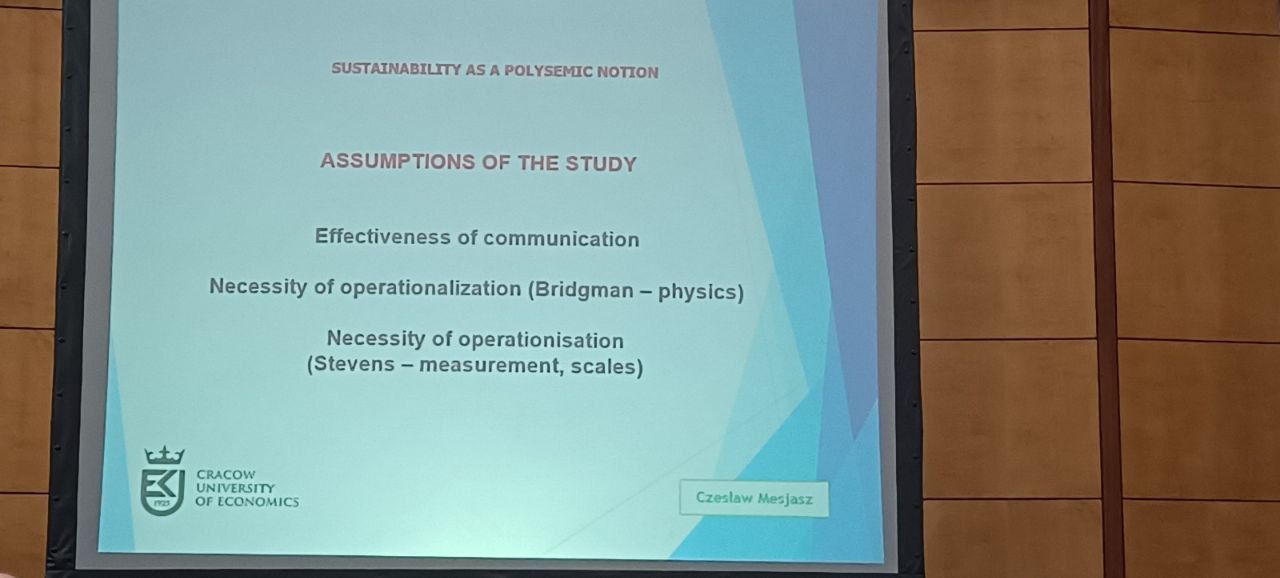
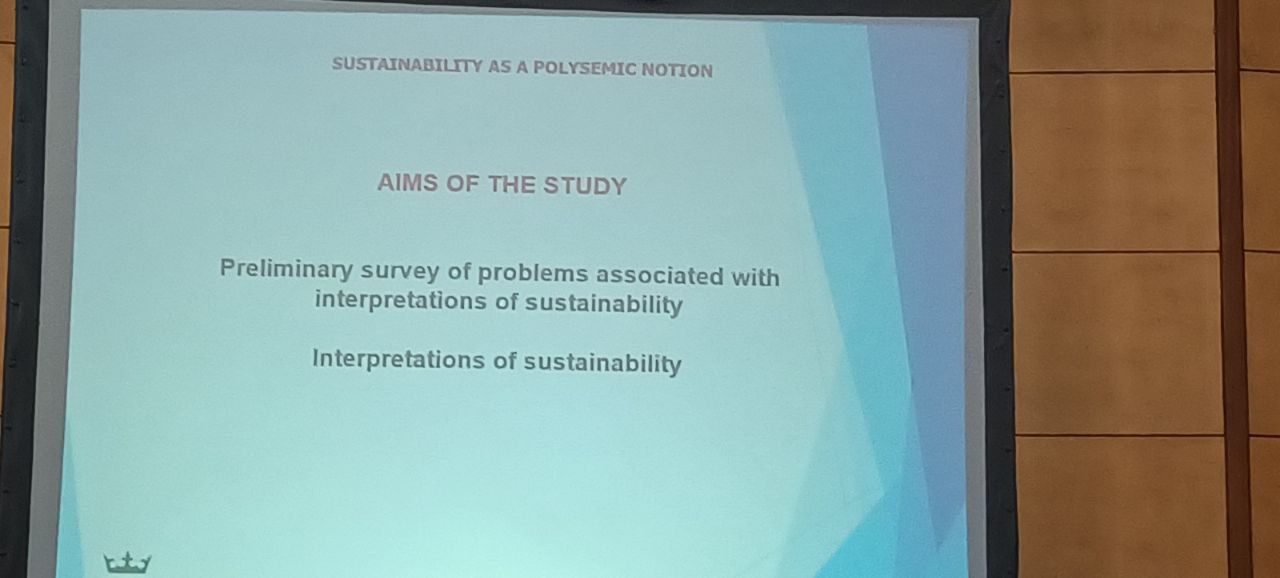
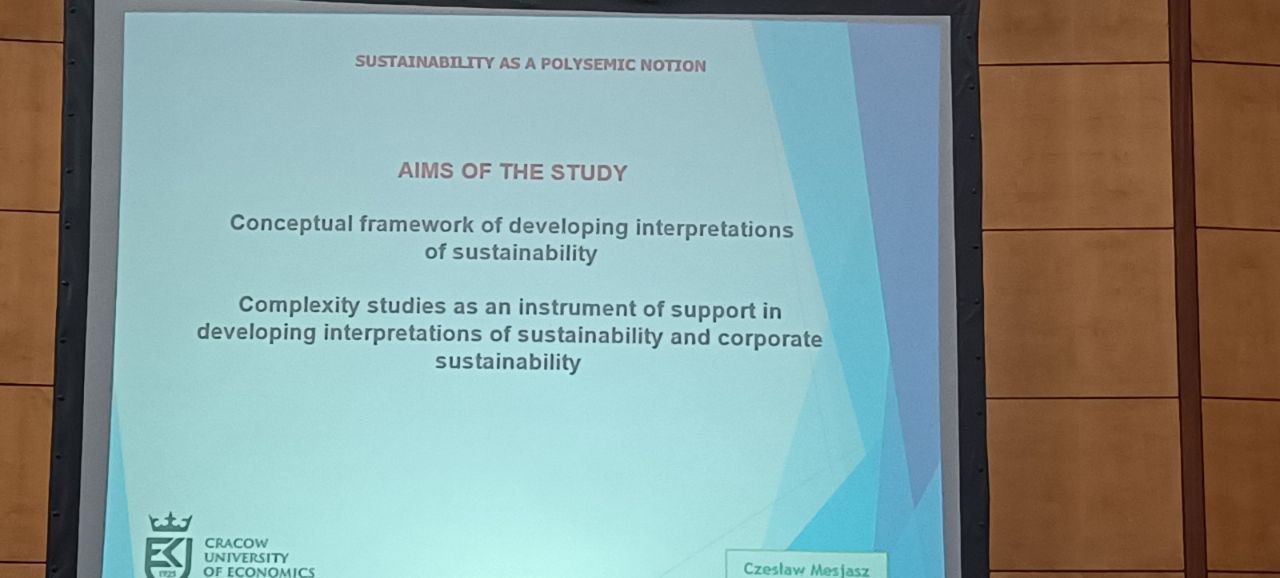
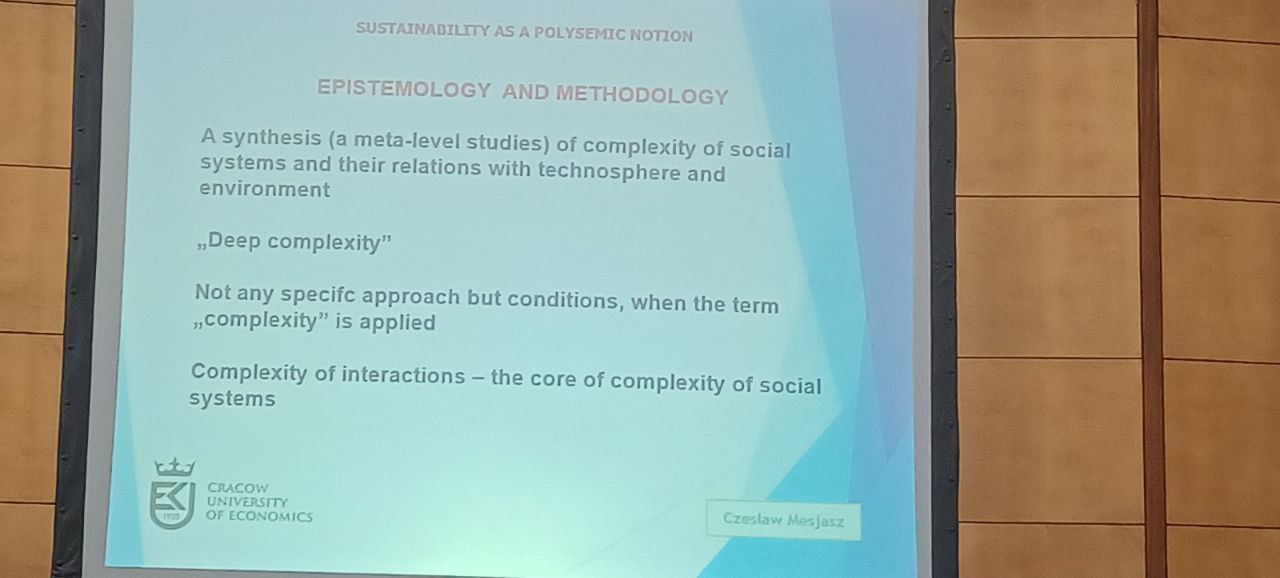
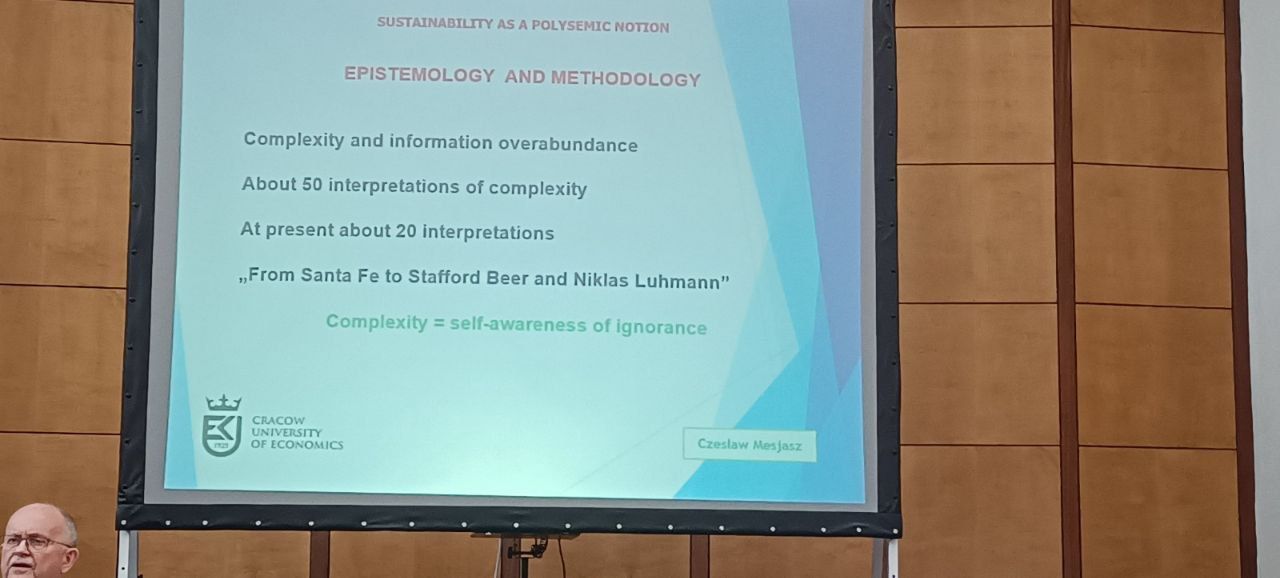
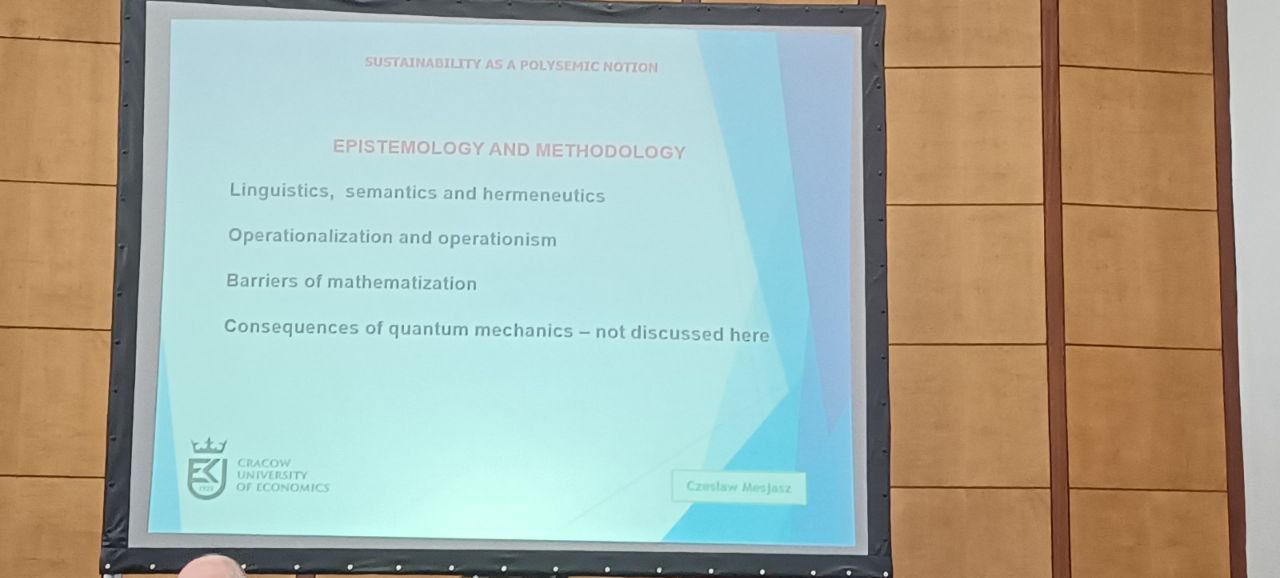
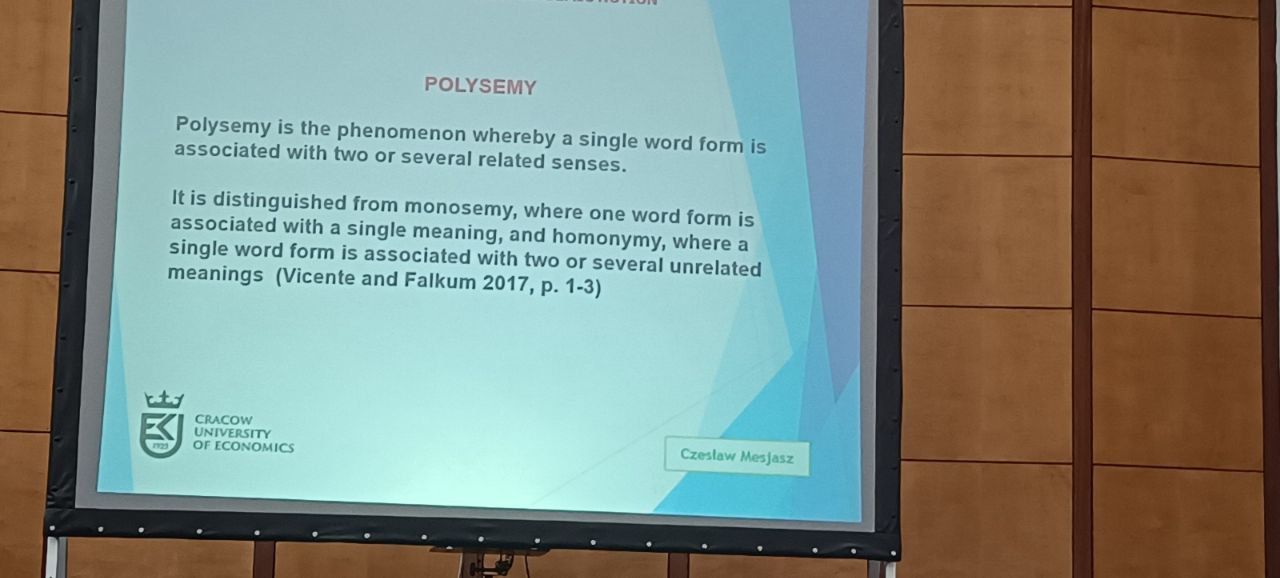
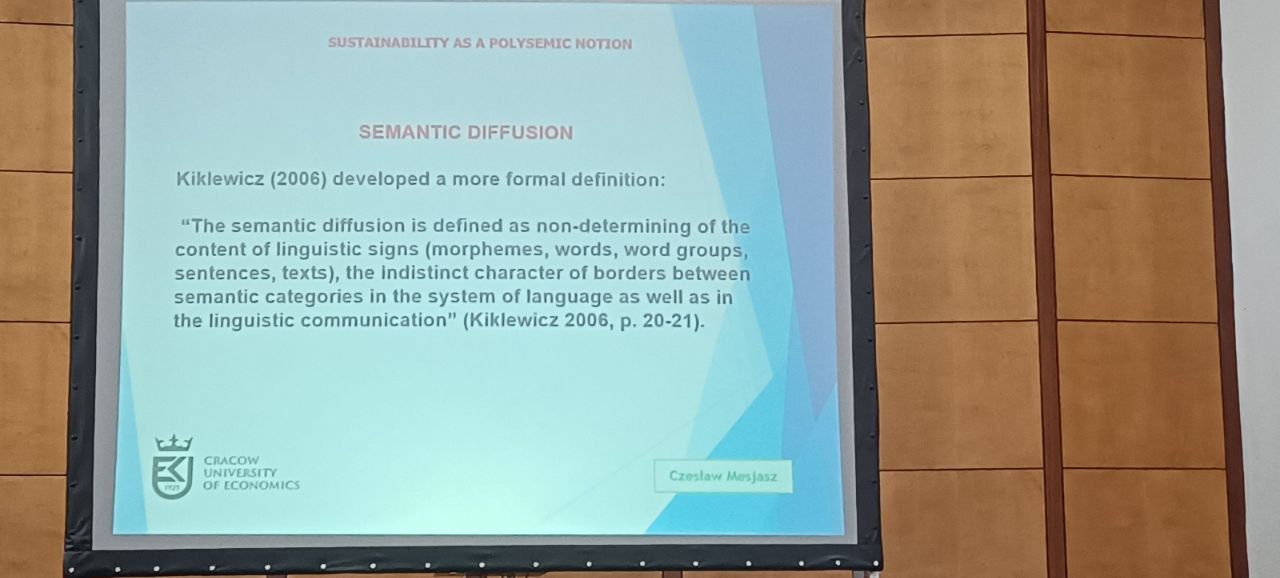

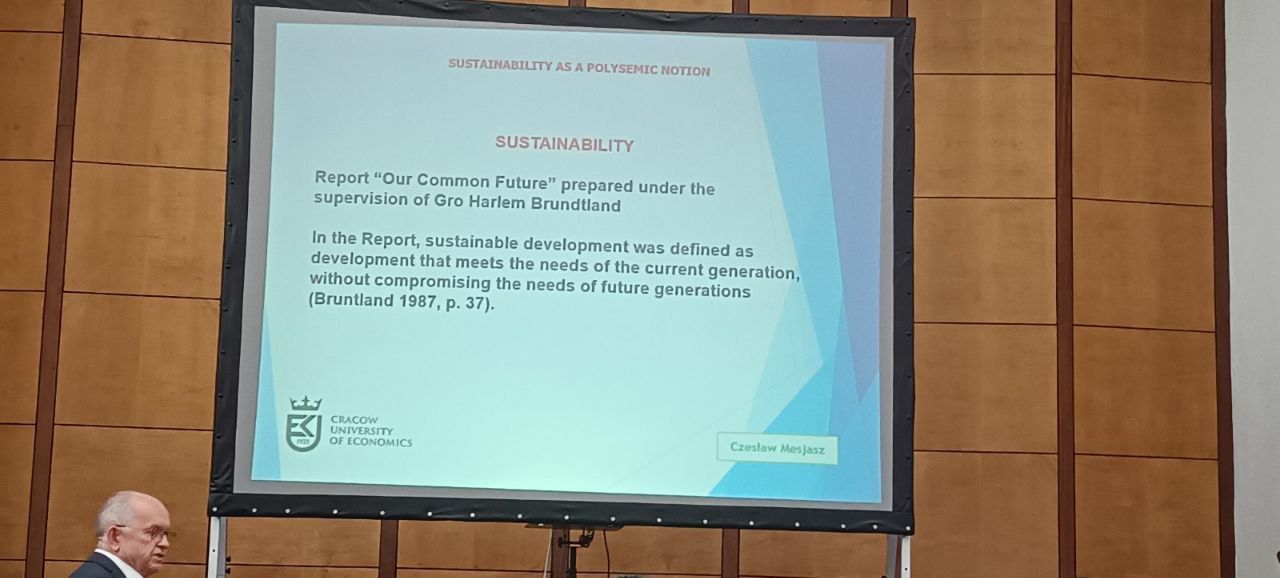
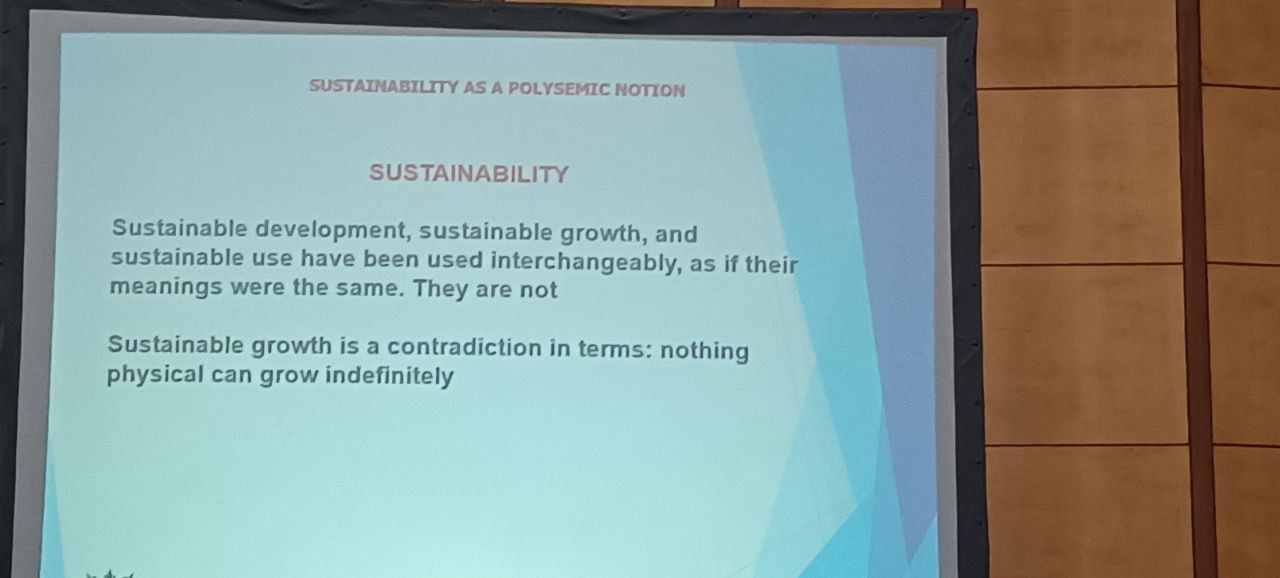
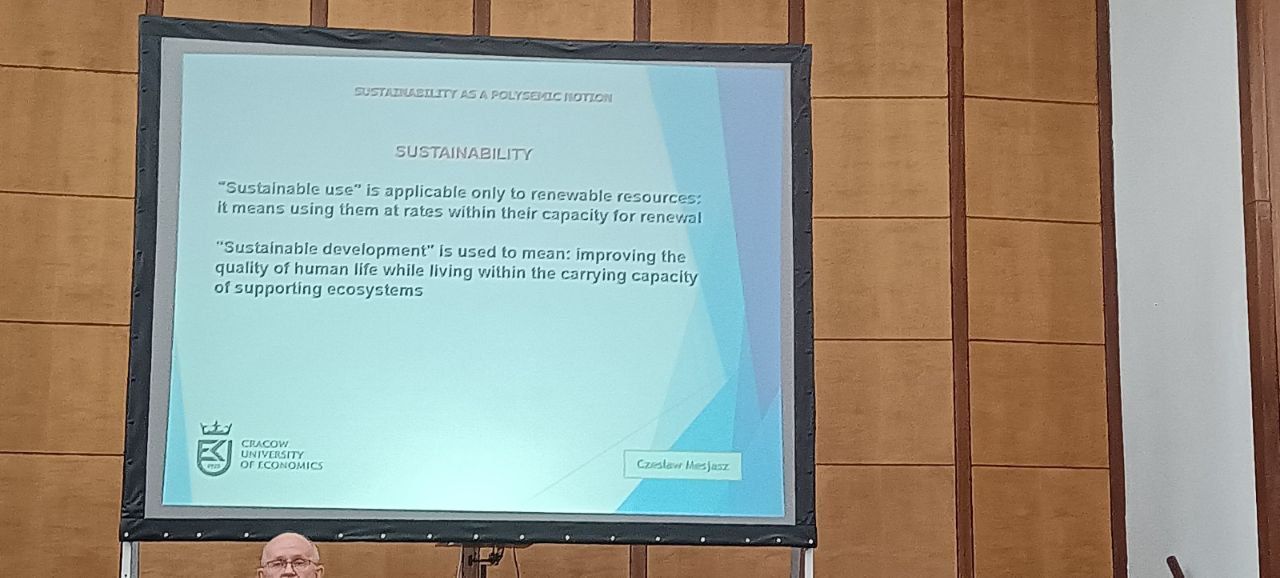
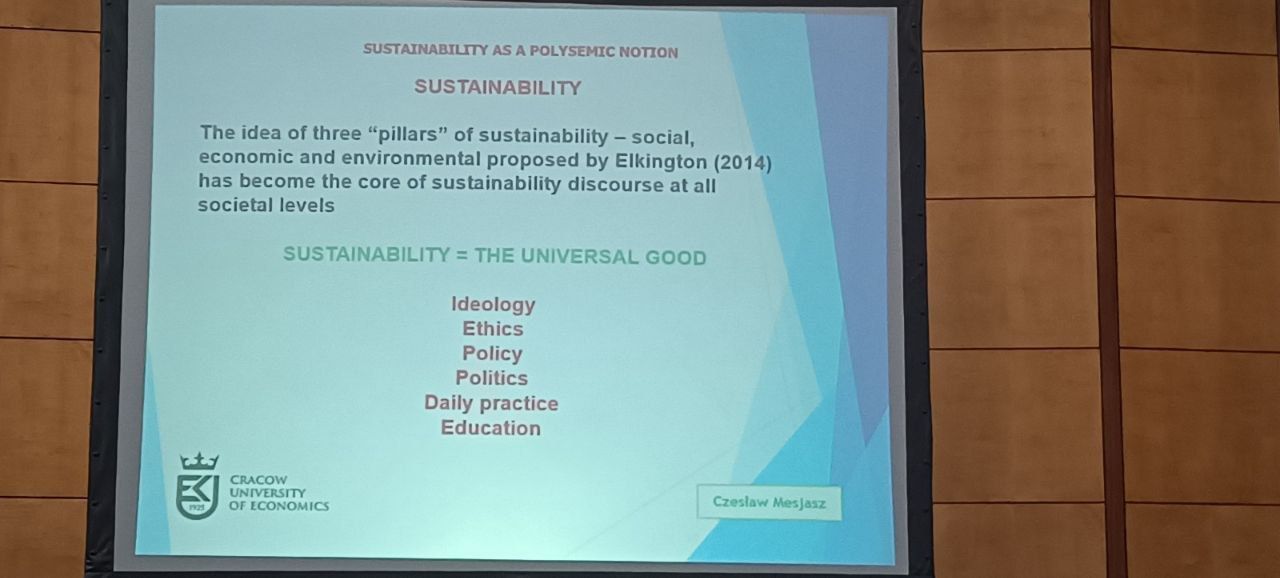
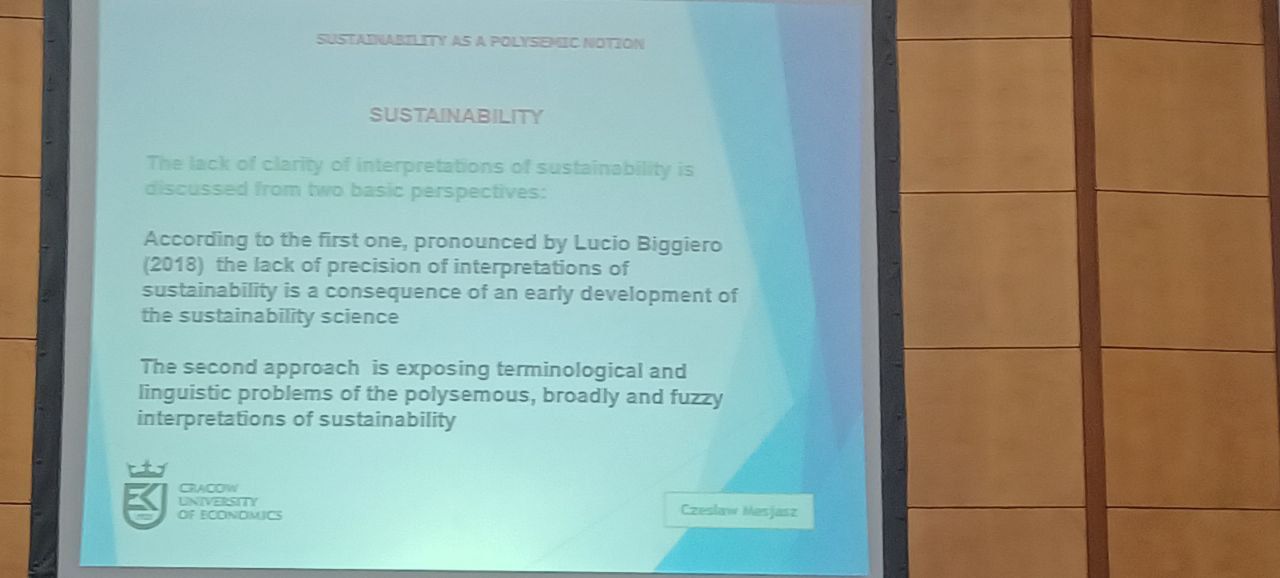
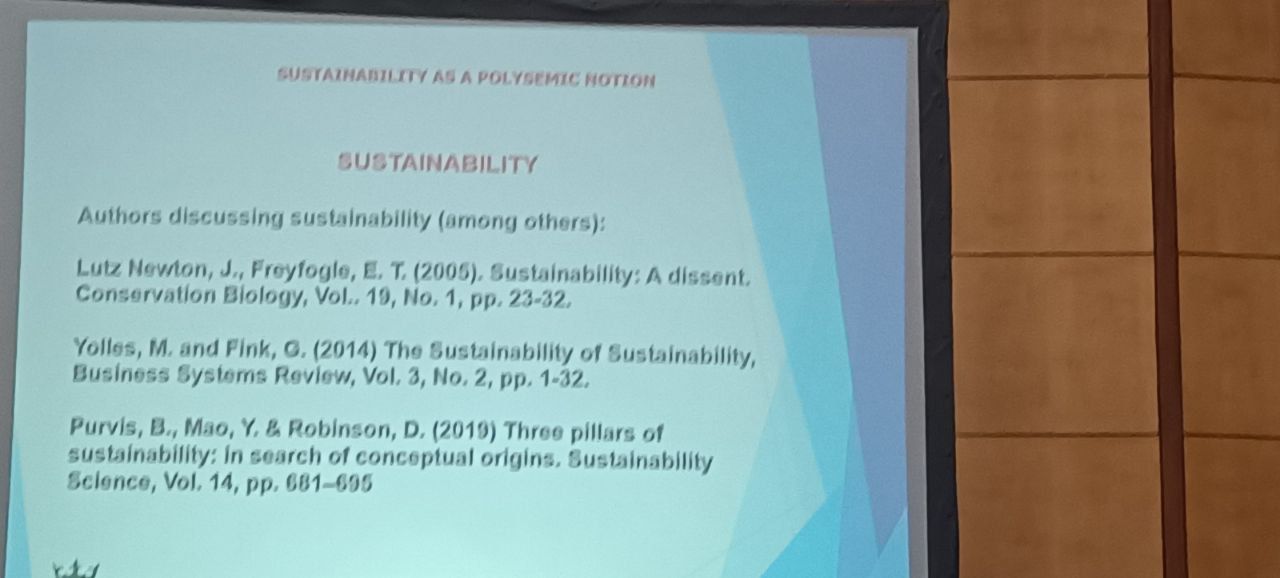
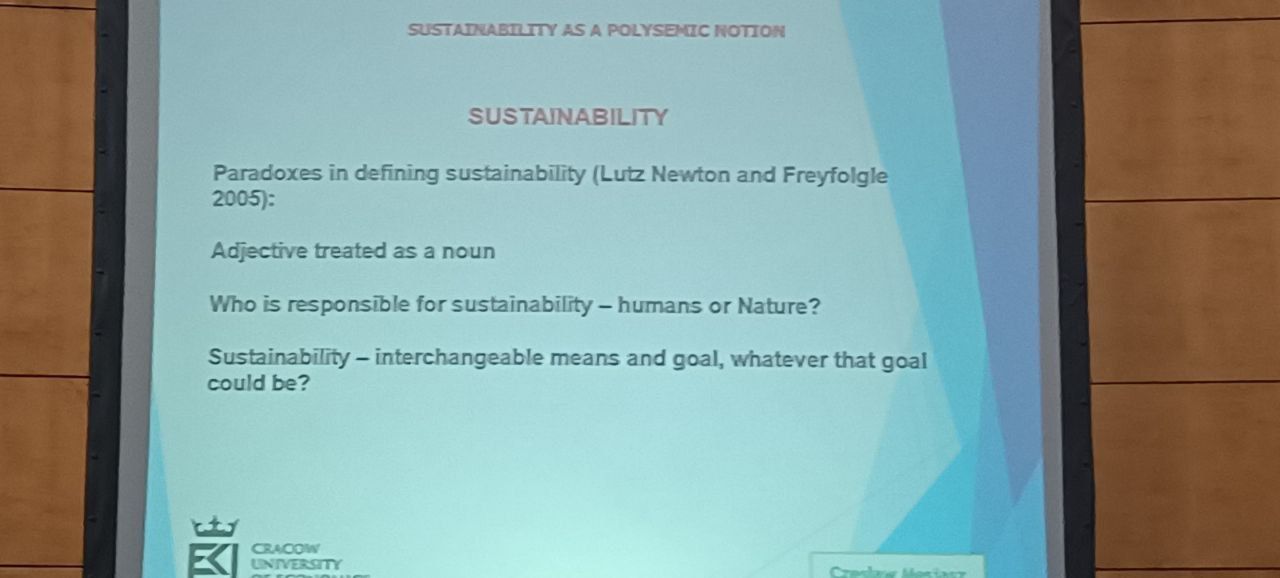
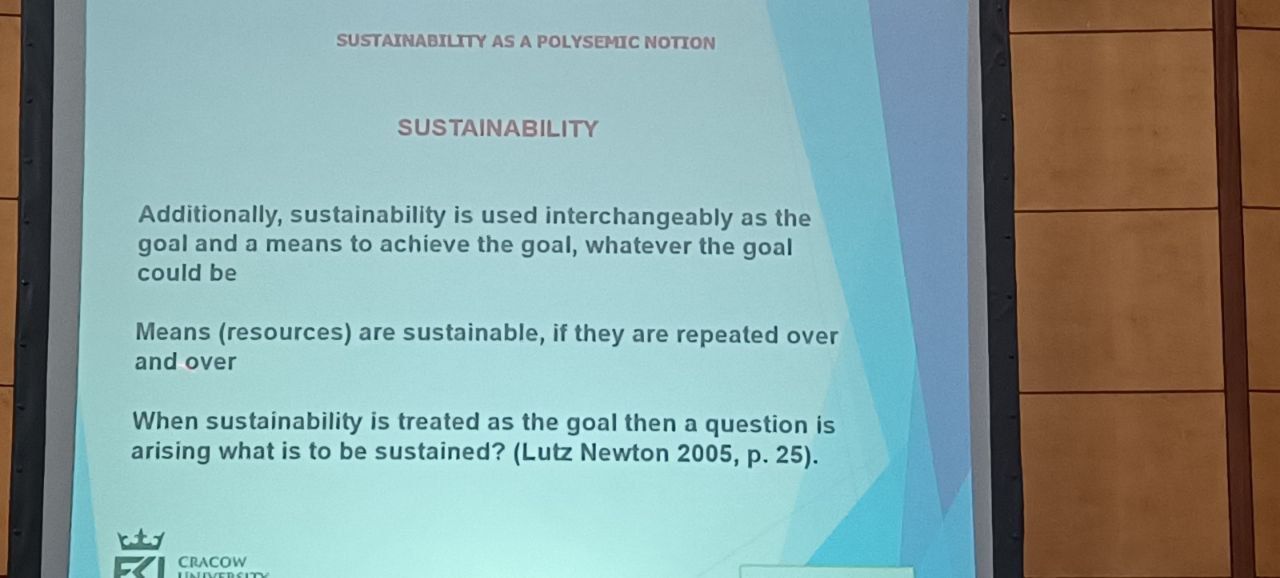
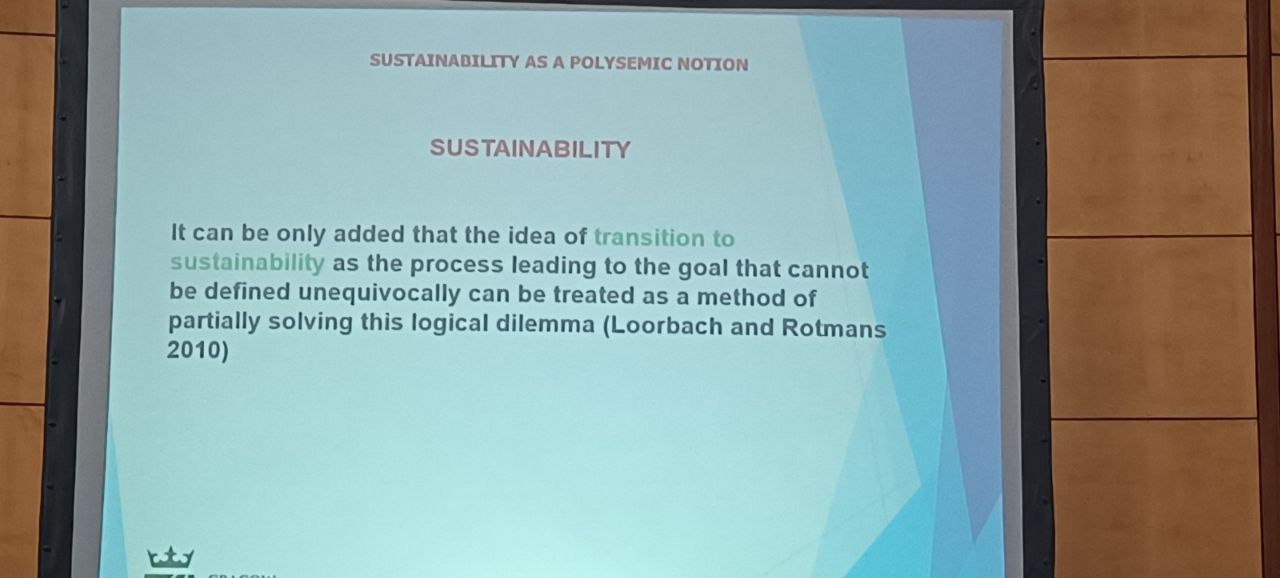
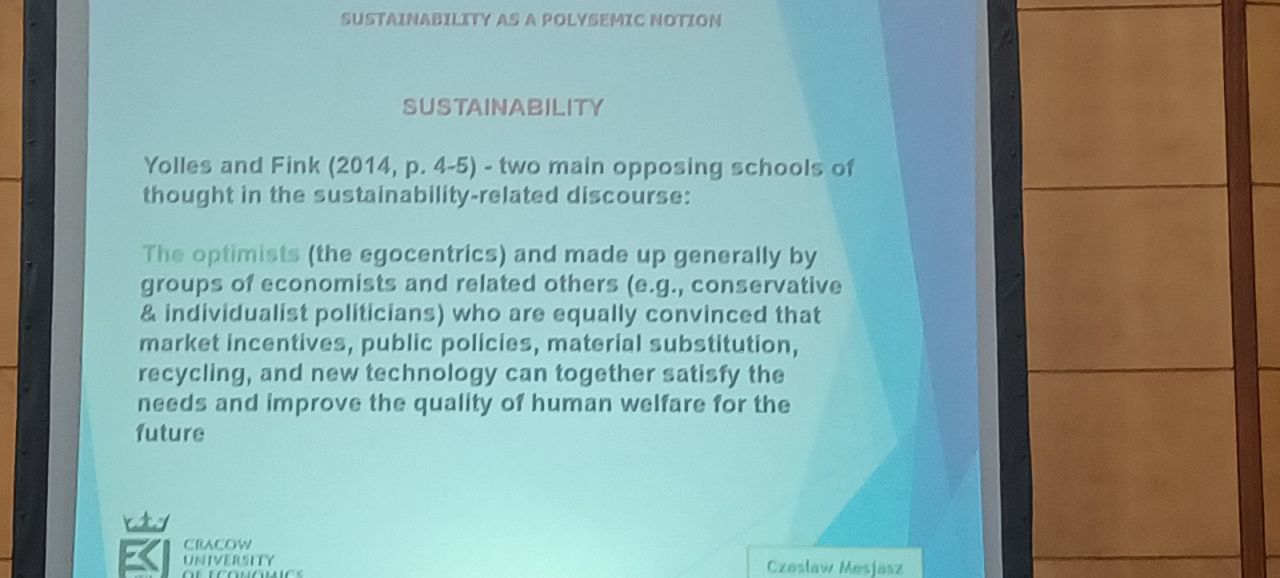
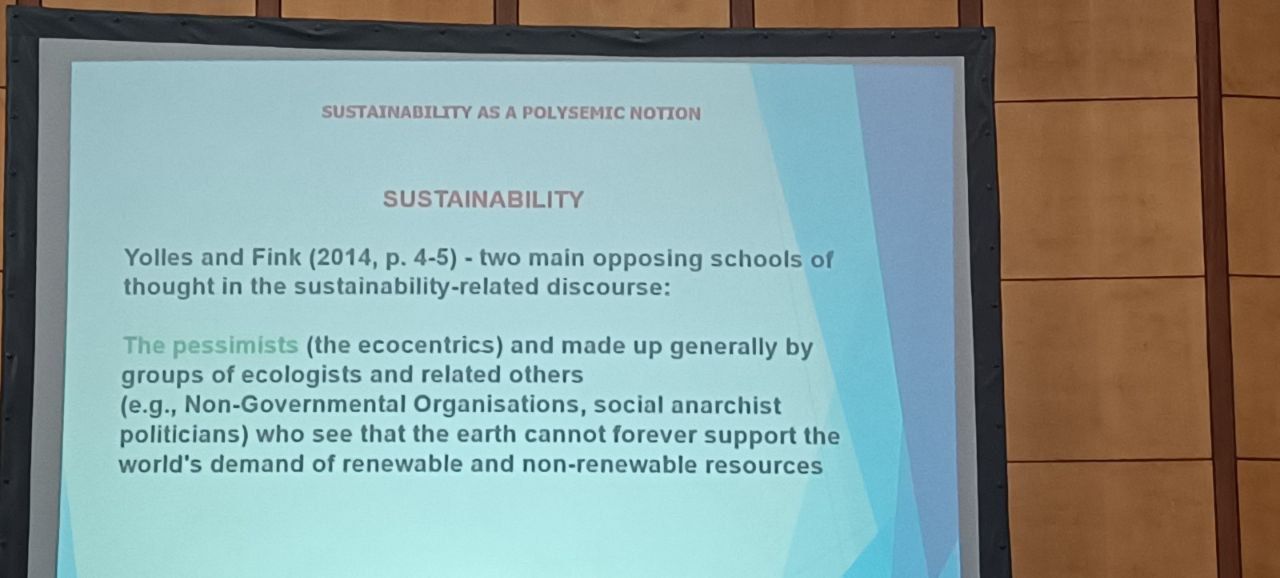
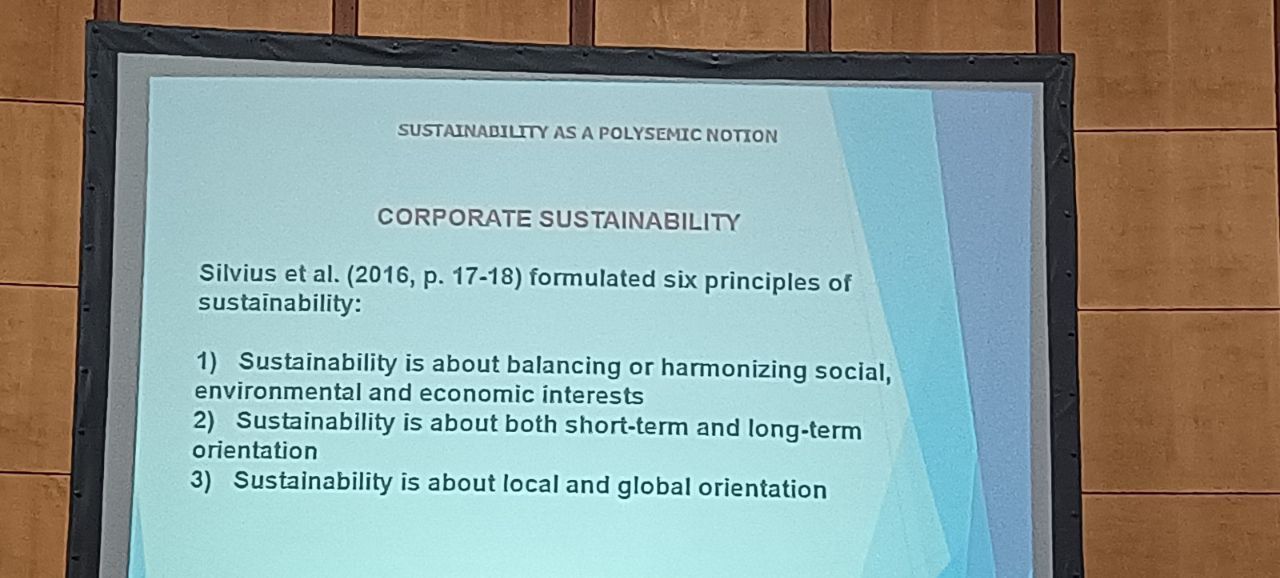
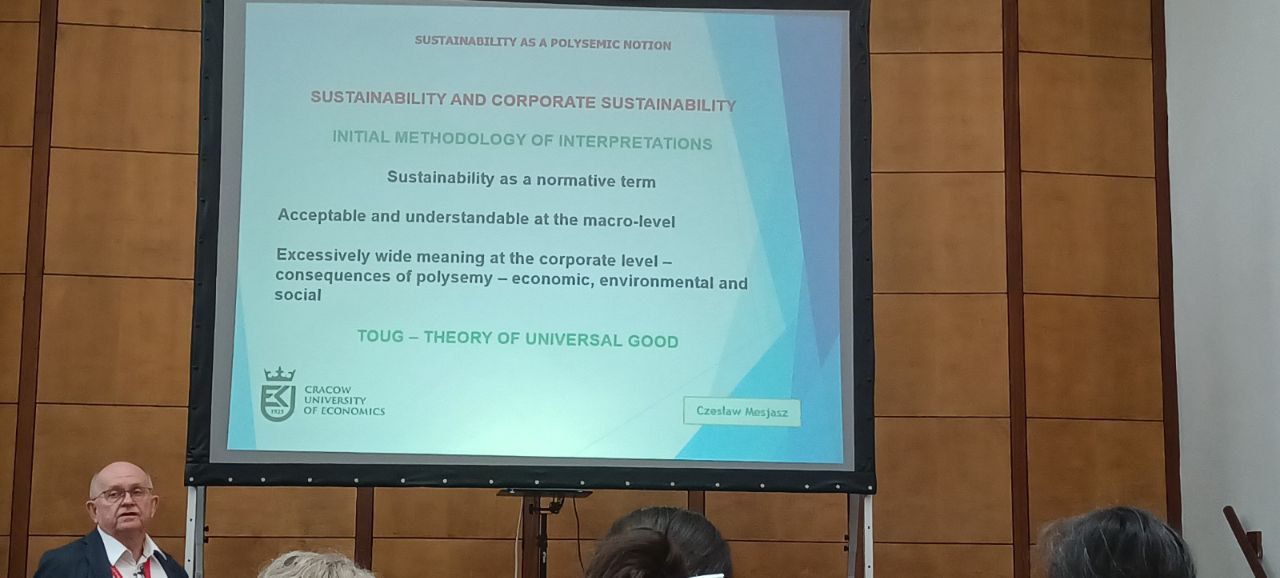
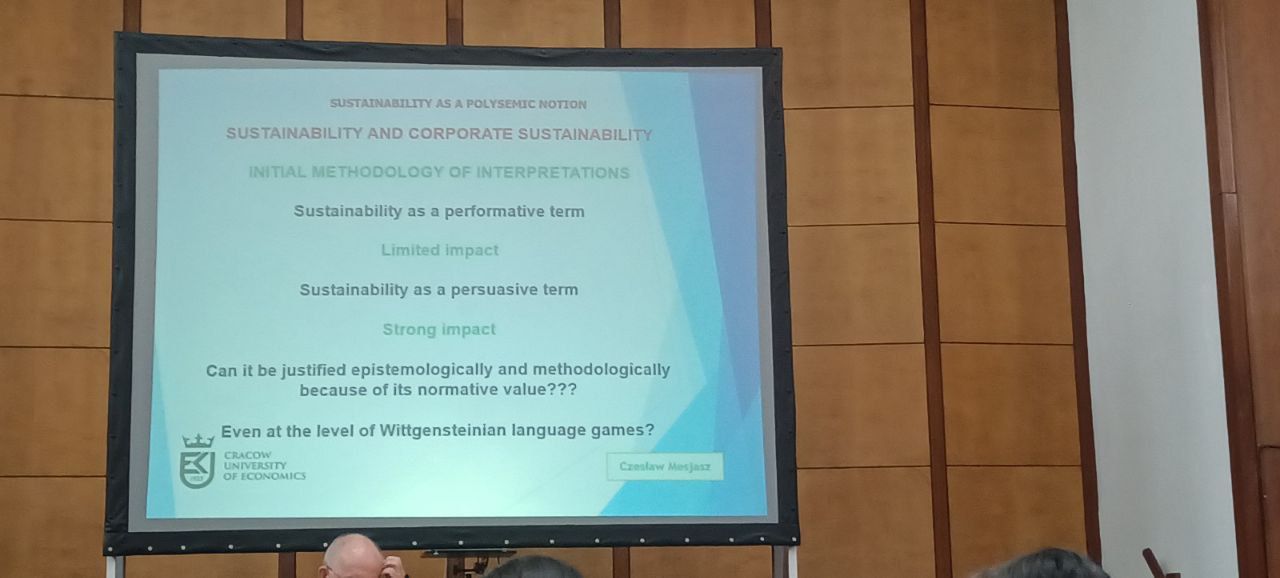
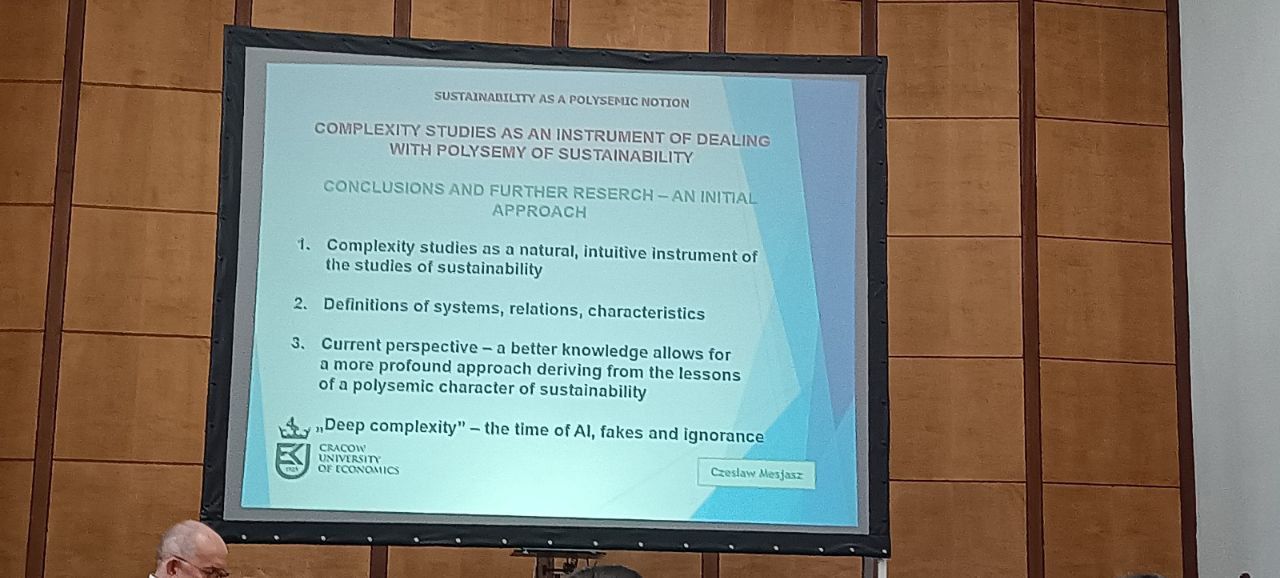
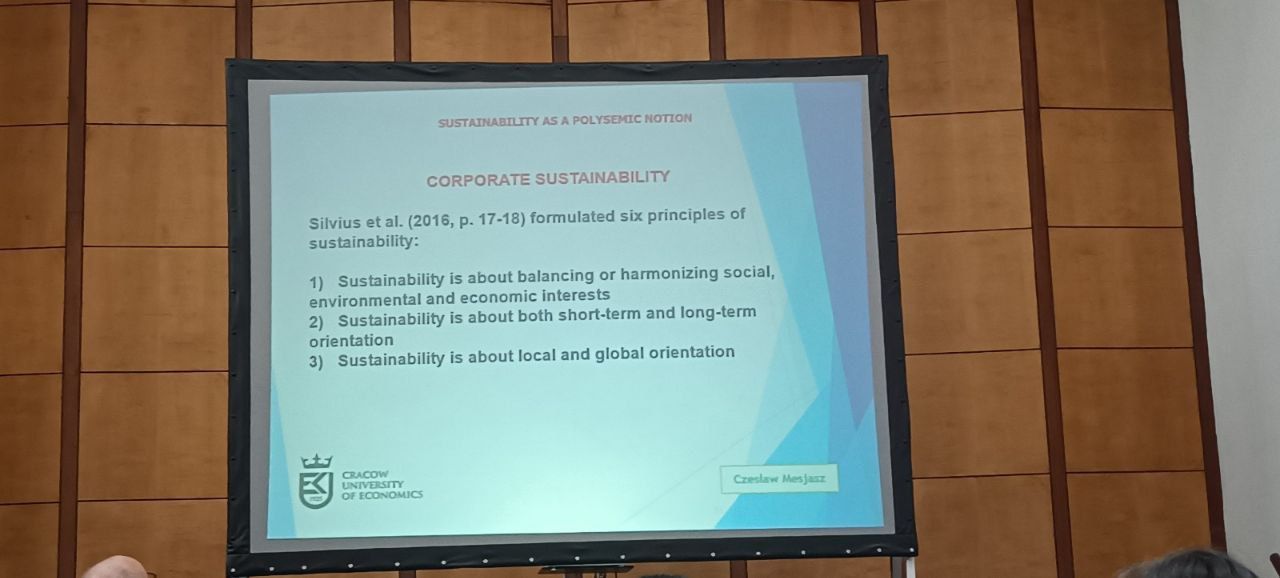
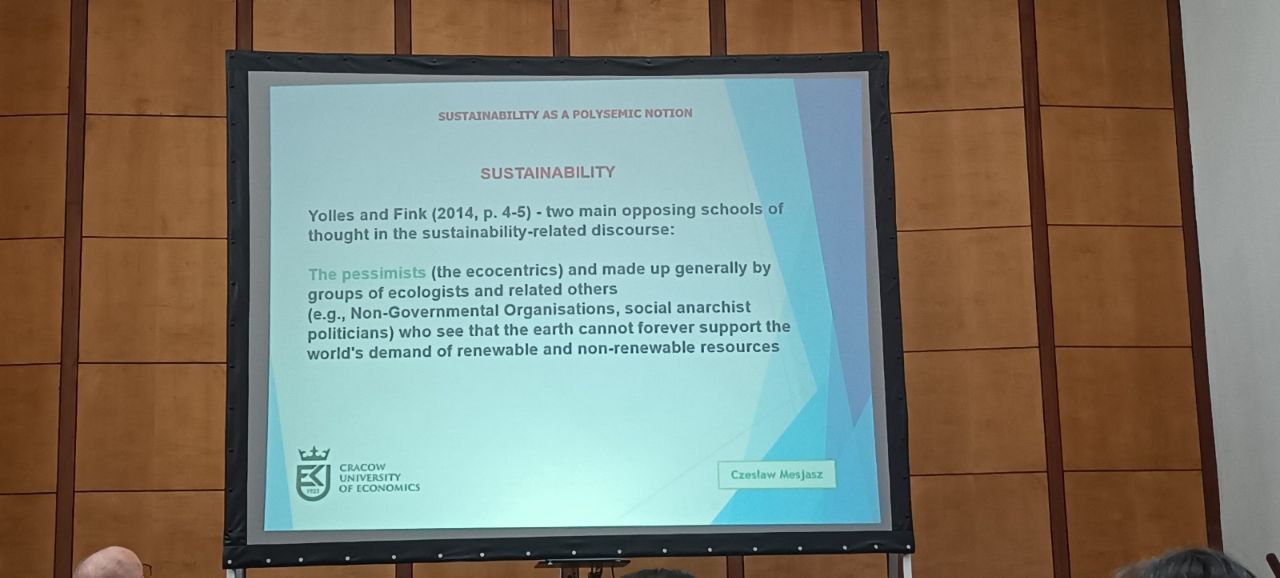
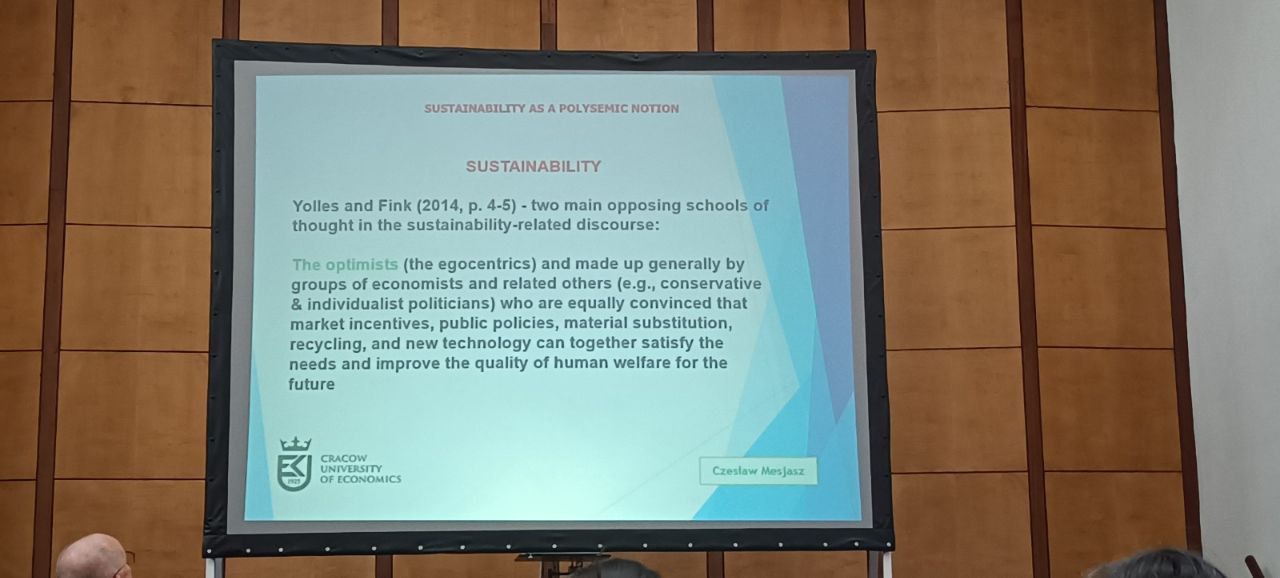
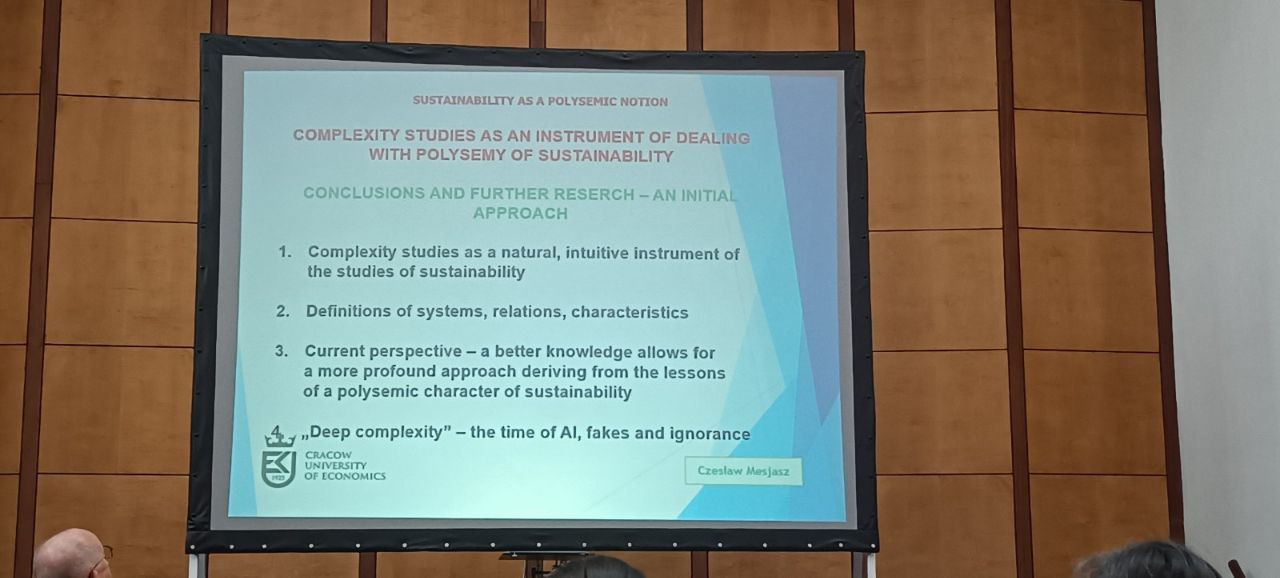
Following the Czeslaw assimilation came Benjamin Taylor - the gentleman that I'd discussed AI DAOs with earlier during the GPT workshop. He presented "The Viable System Model and Human System Dynamics through the lens of Barry Oshry’s Organic Systems Model" inclusive of some rather psychedelic history about the "Power lab" which was an experimental testing grounds for the examination of power dynamics - but starting with the metaphor of the blue dot!
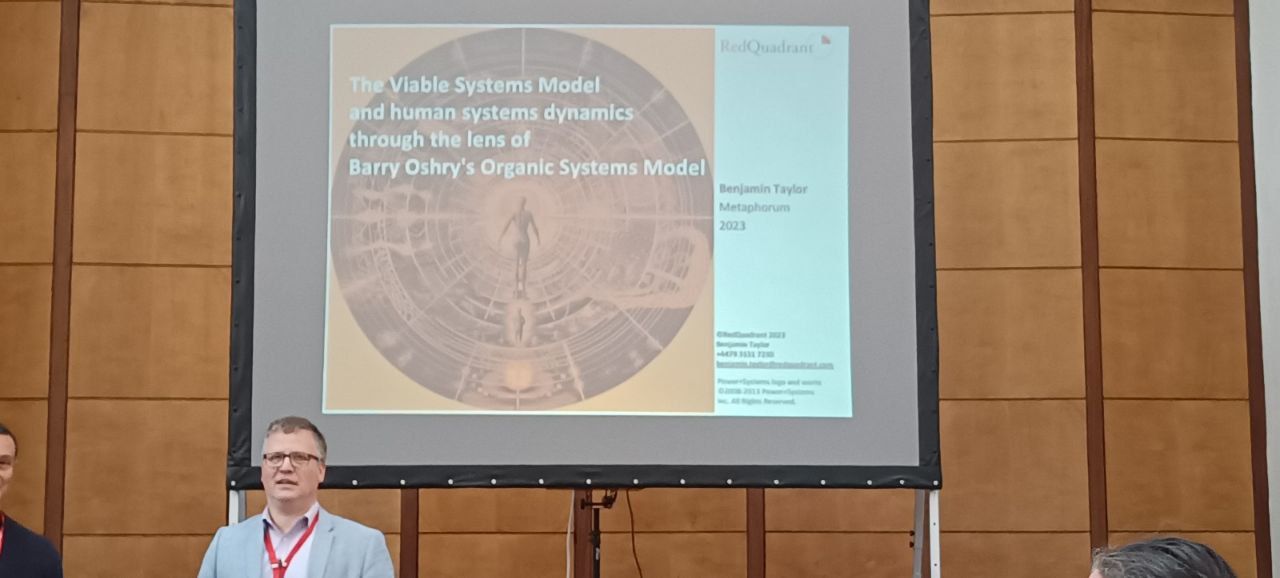
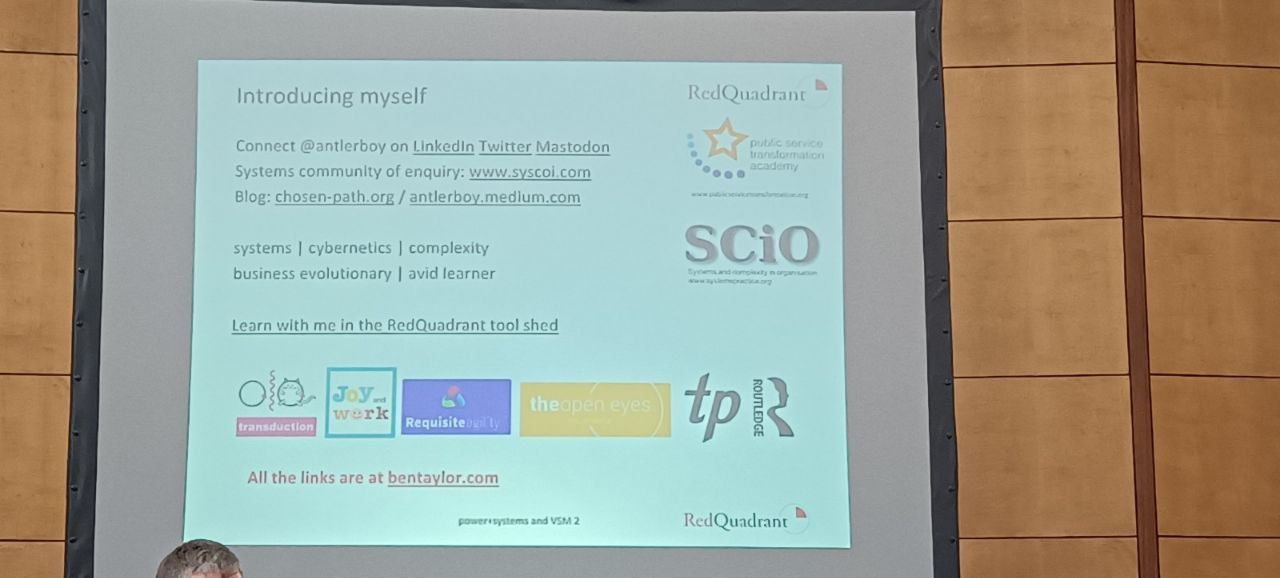
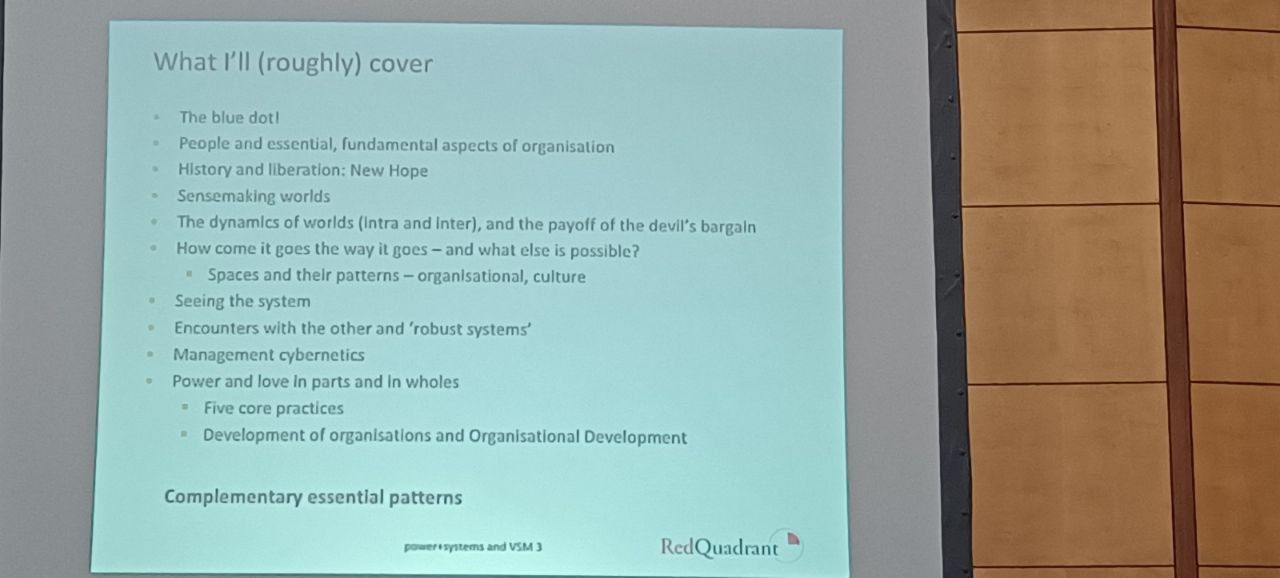
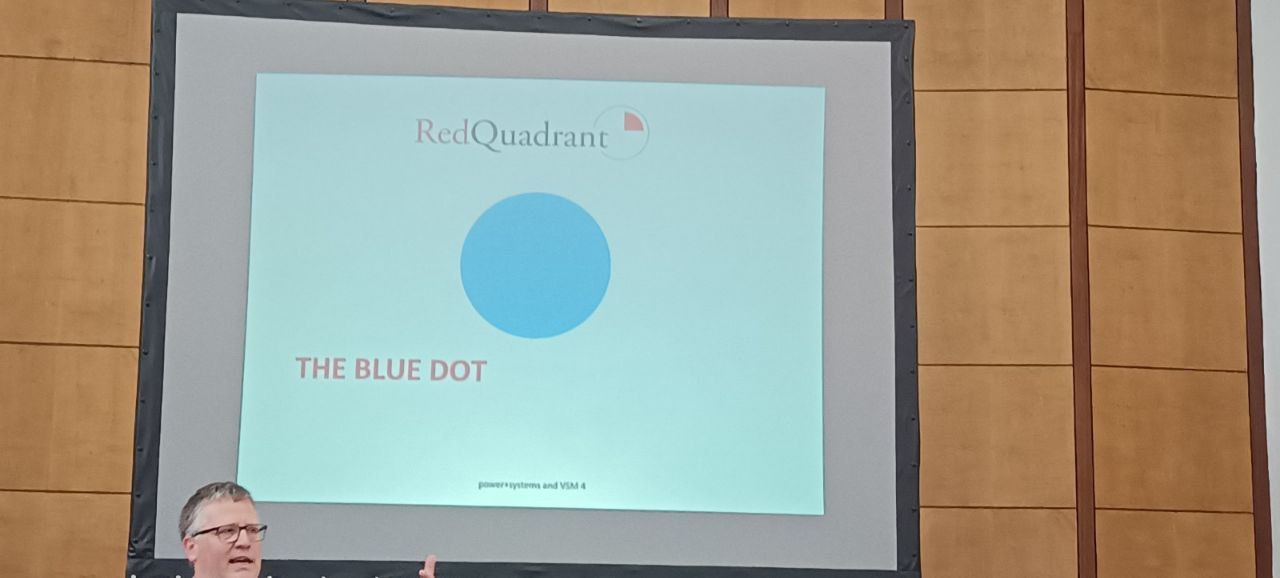
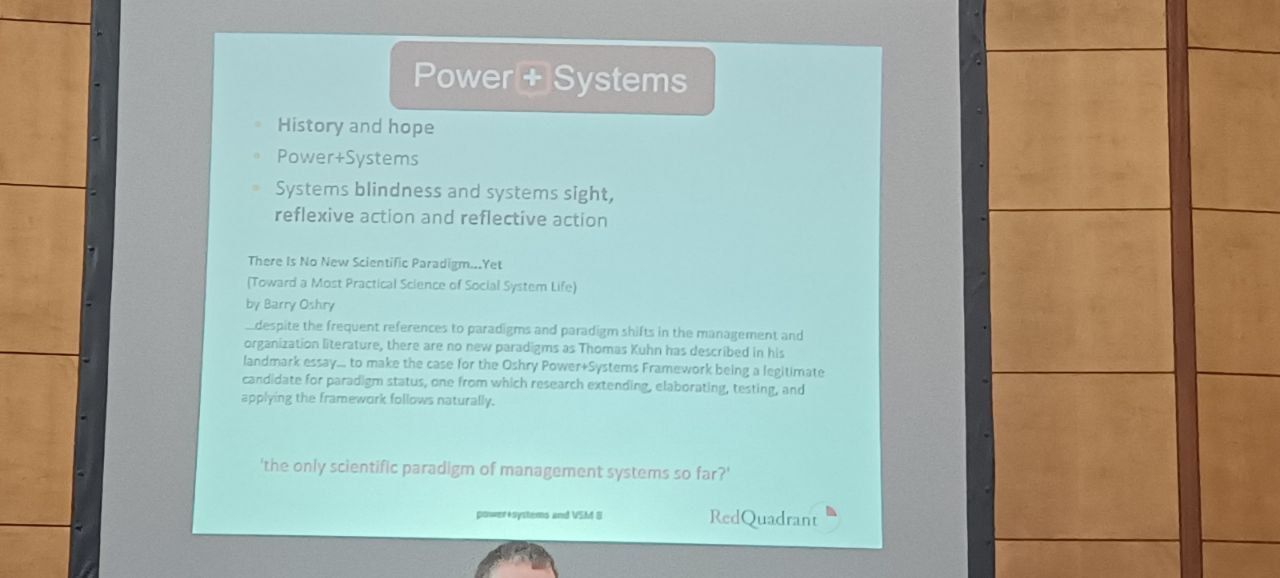
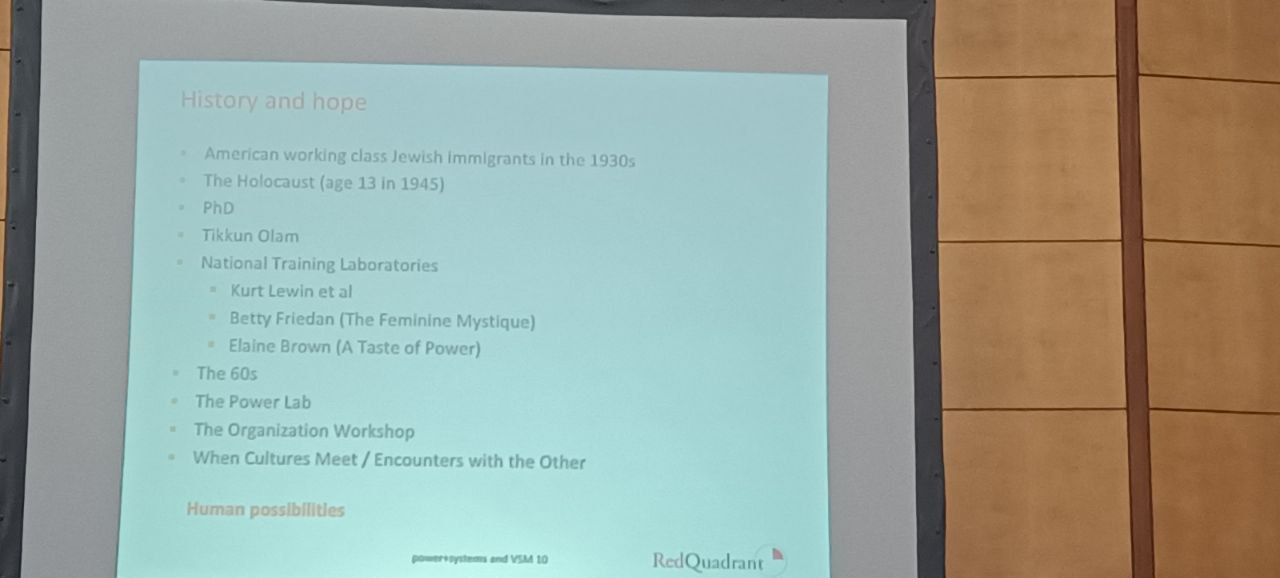
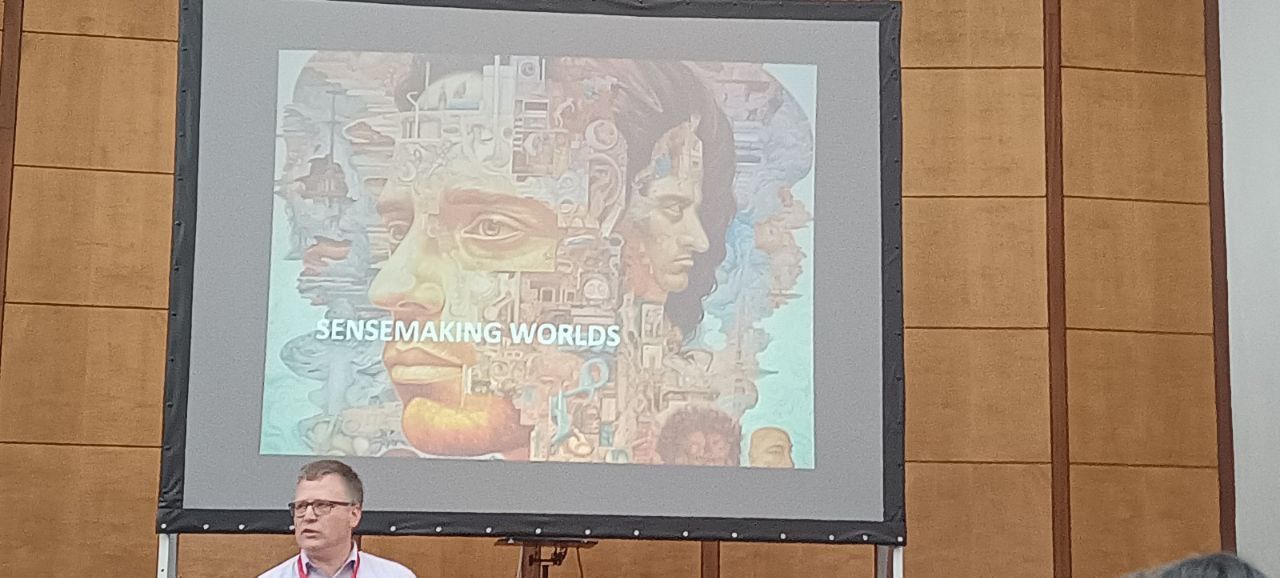
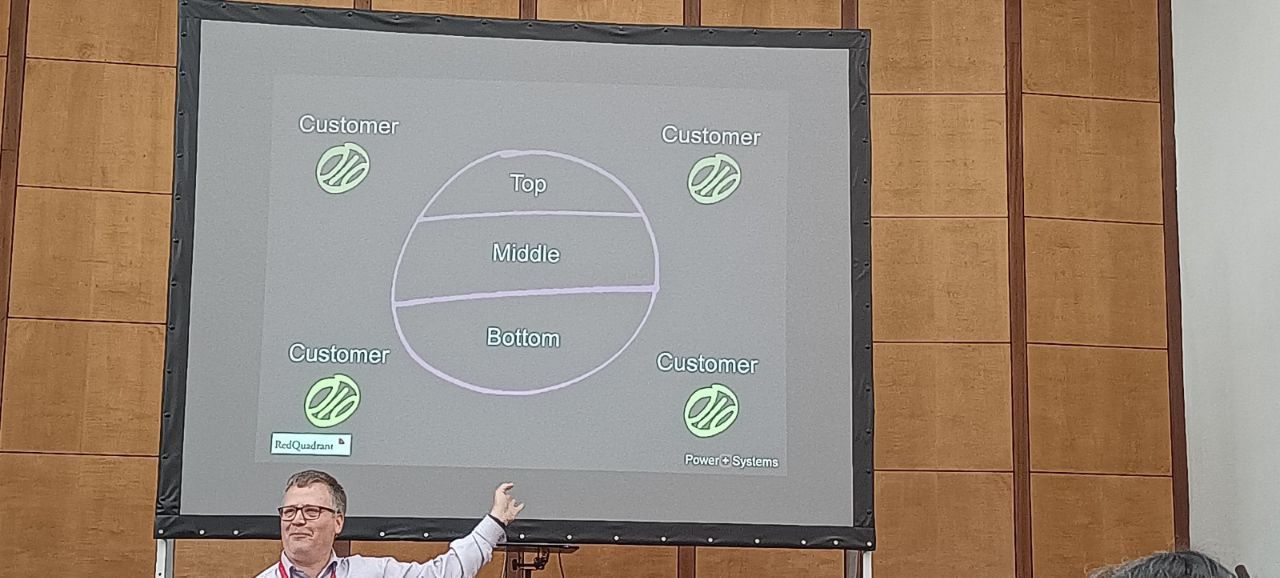
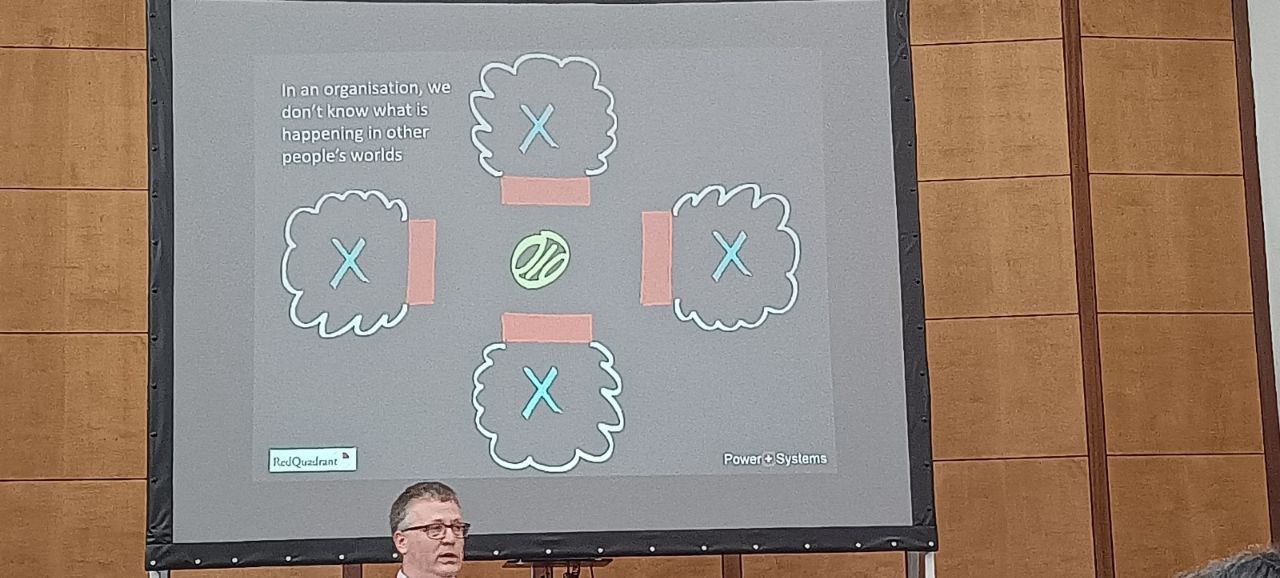
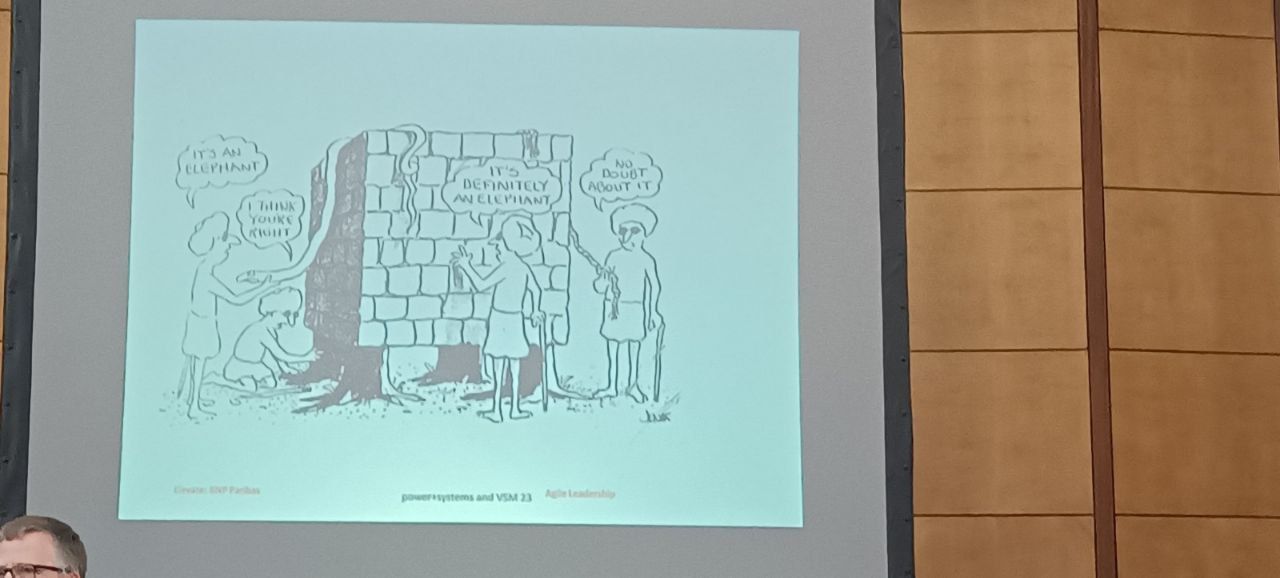
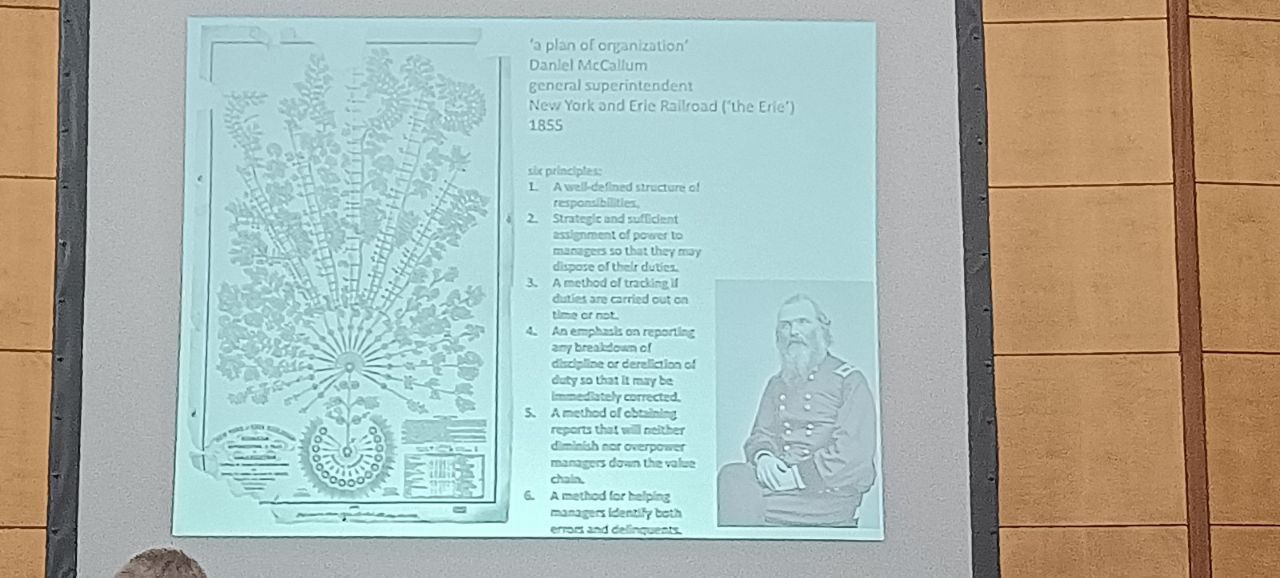
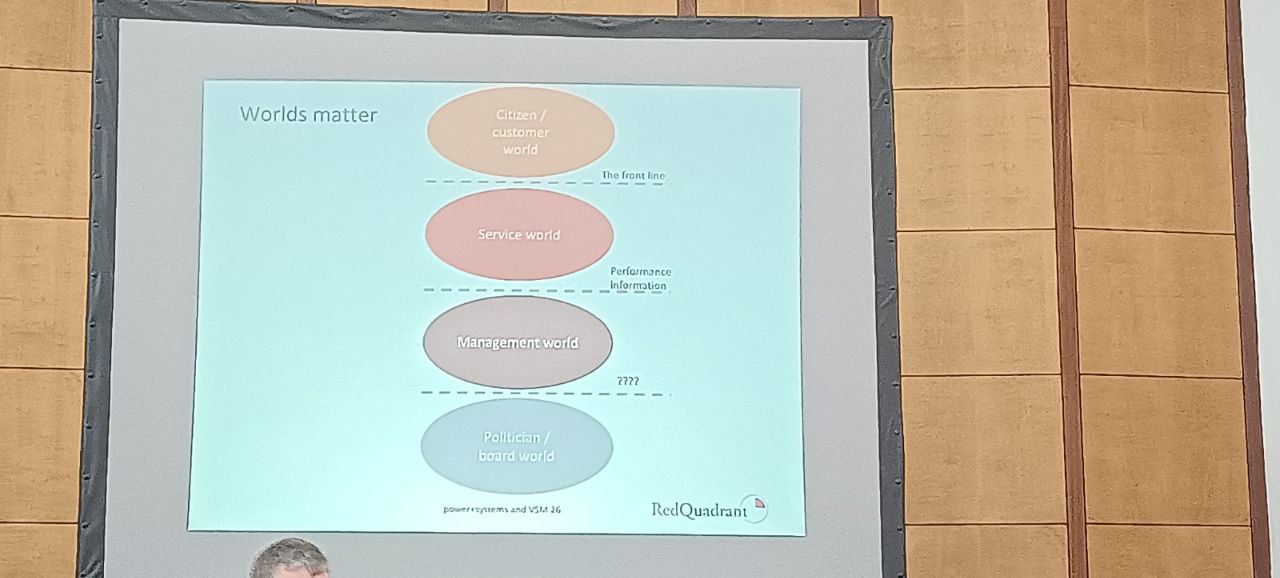
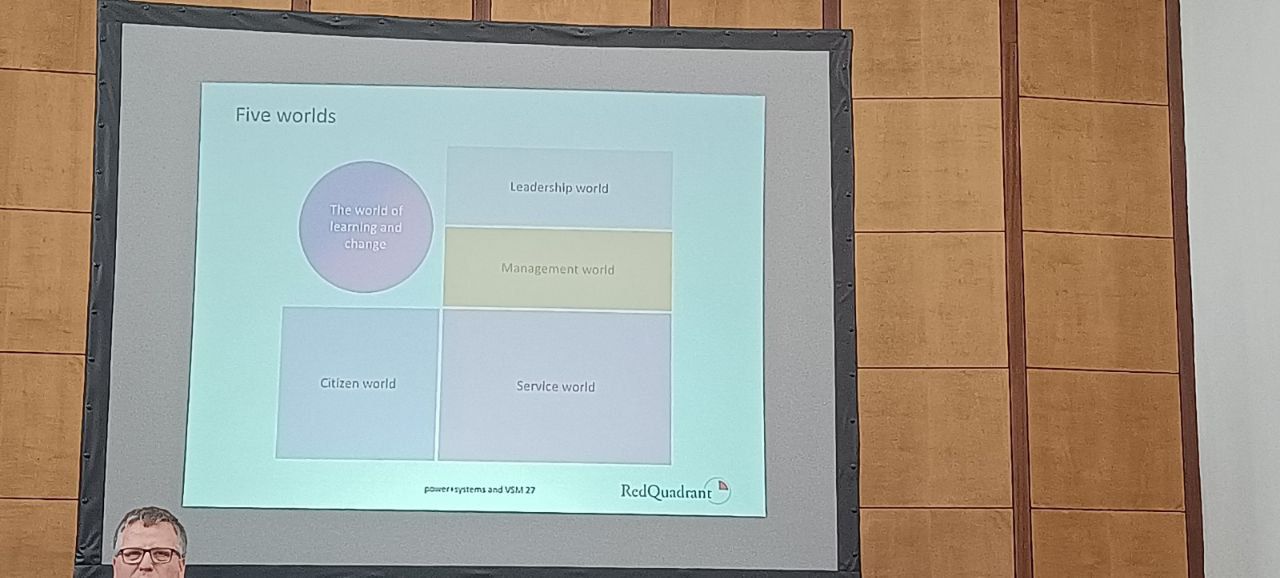
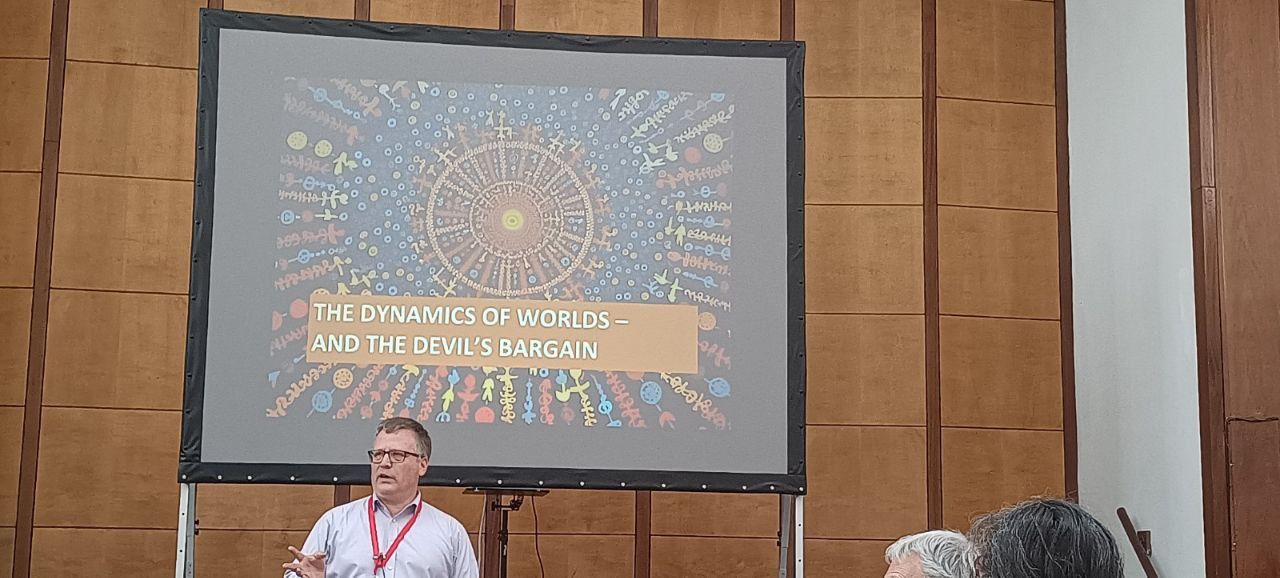
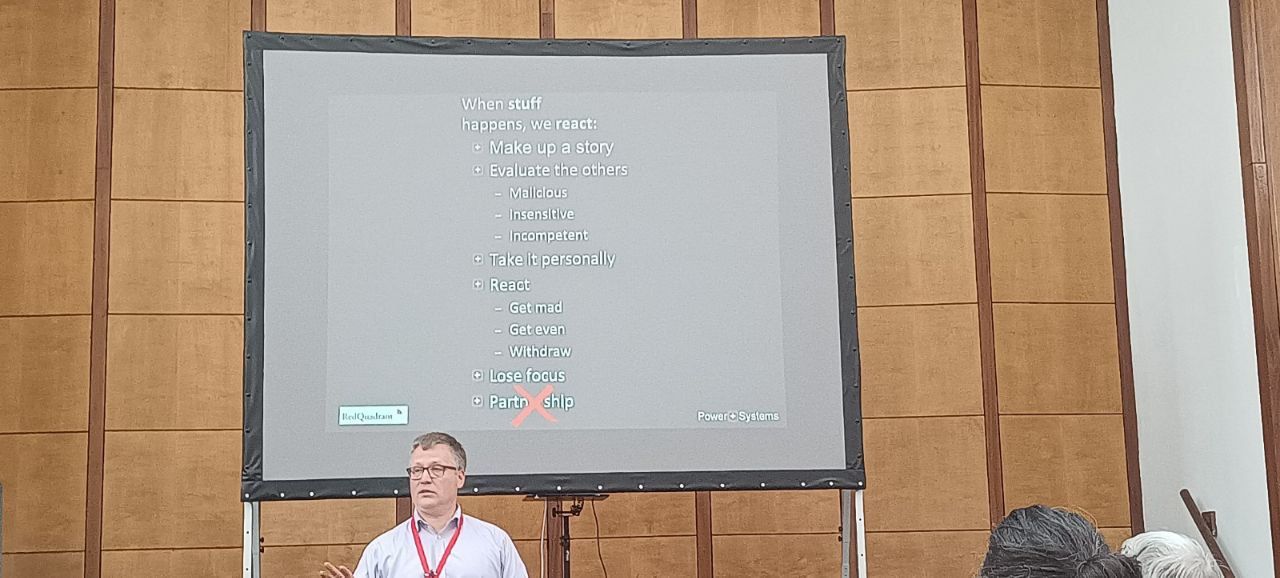
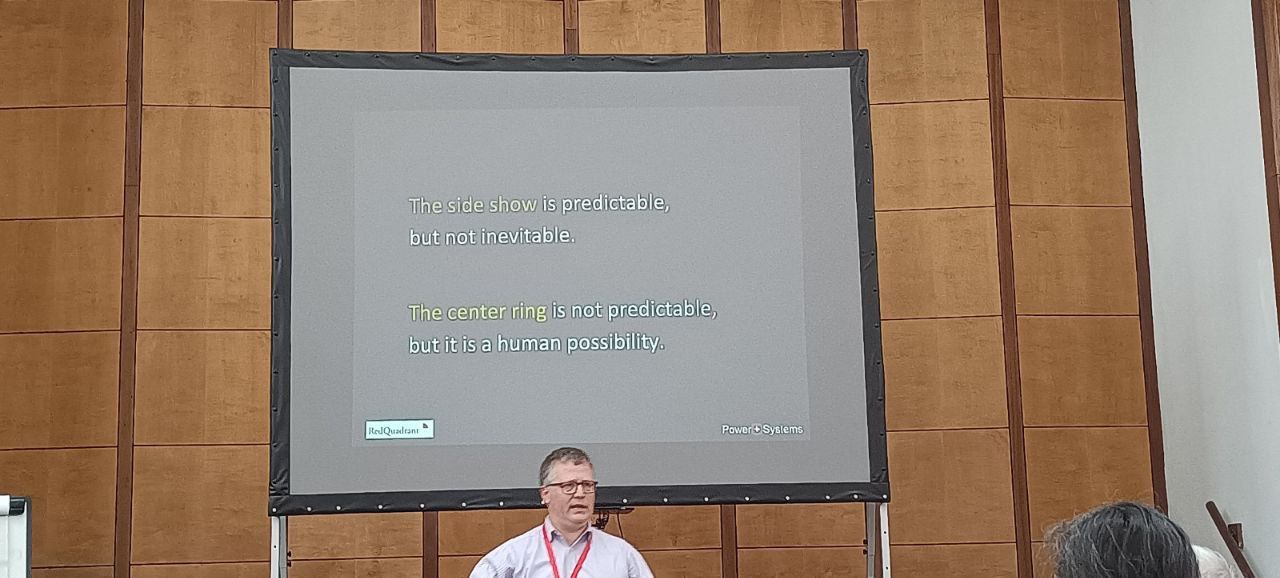
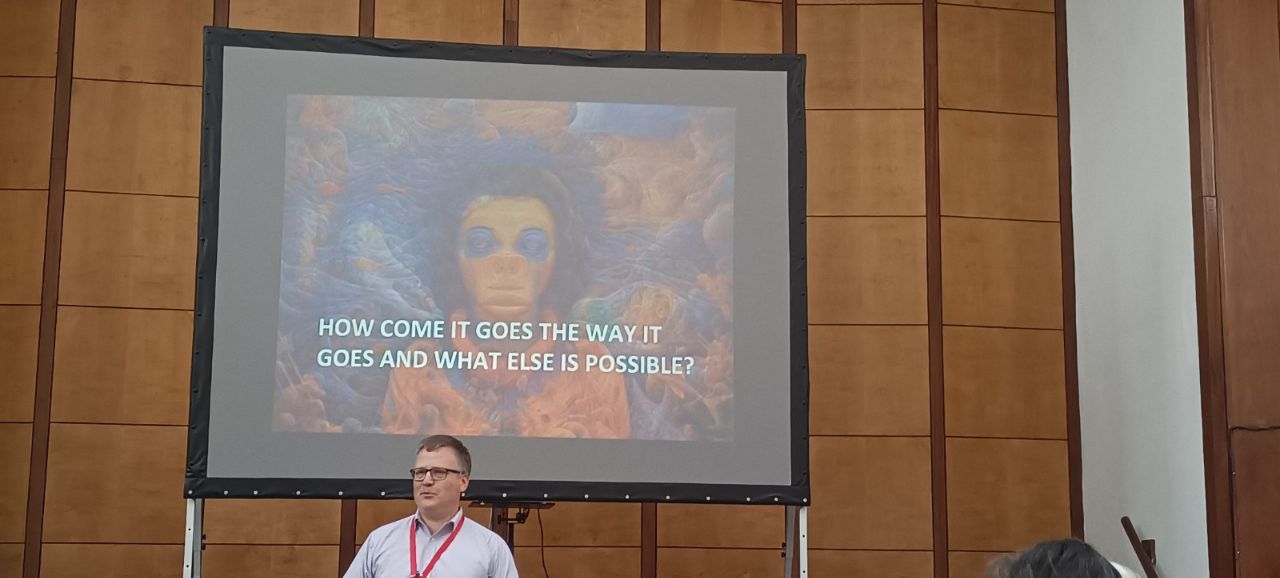
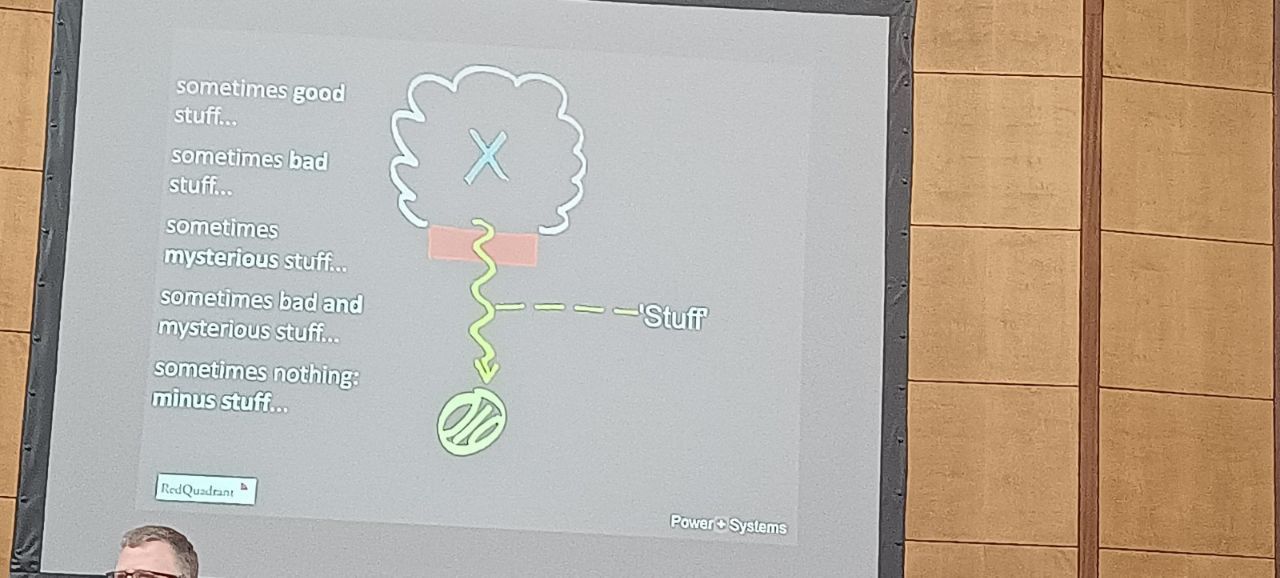

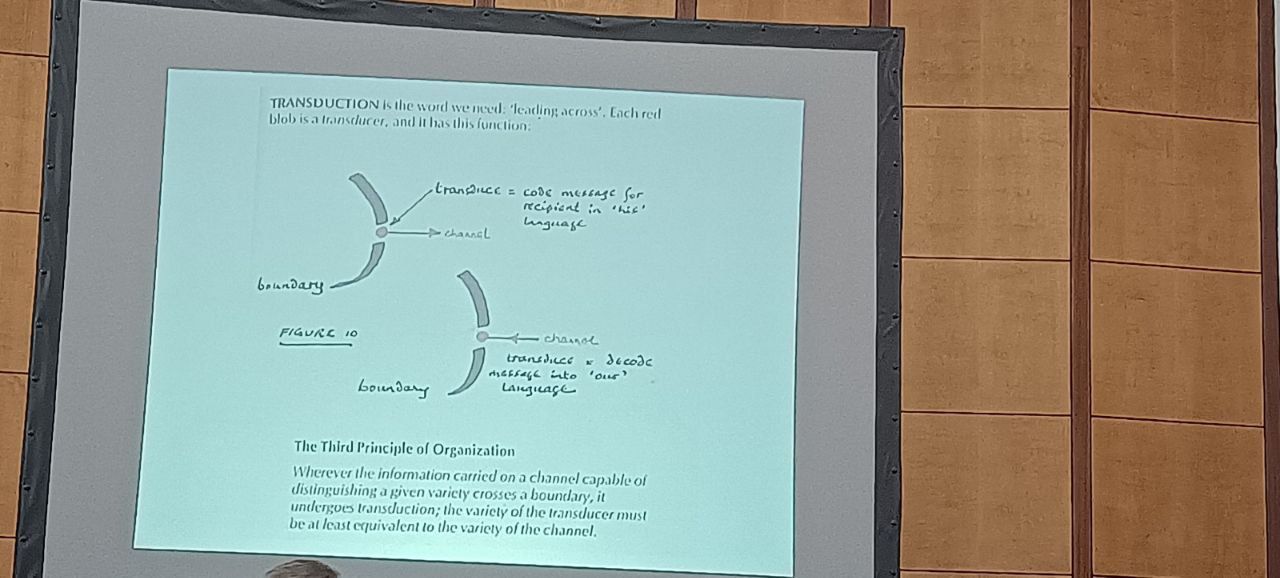
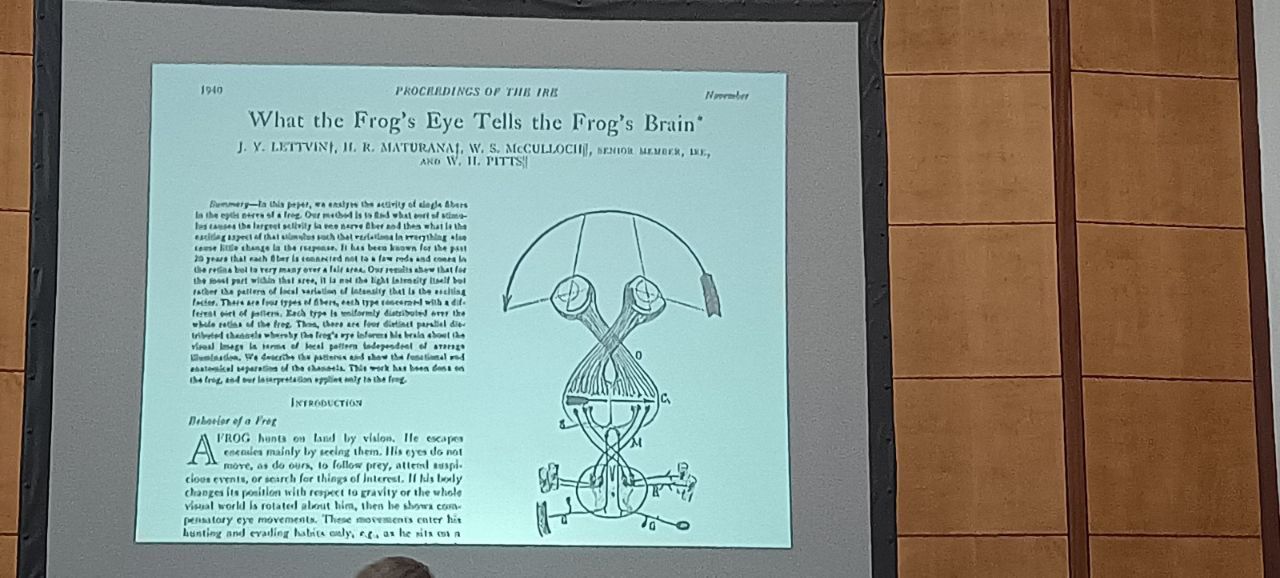
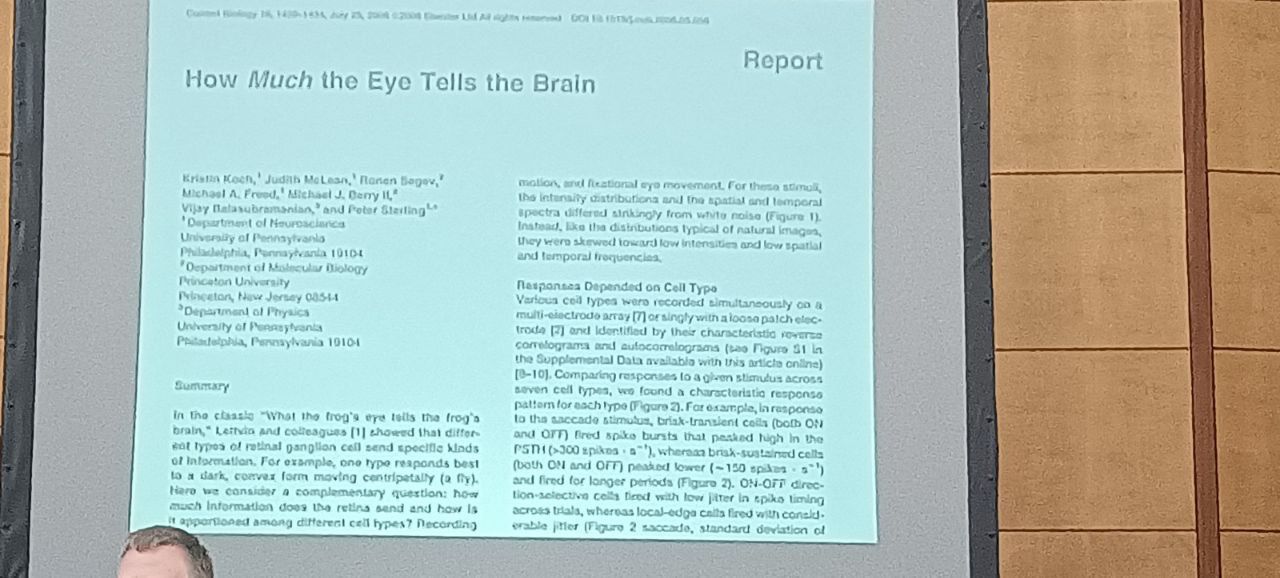
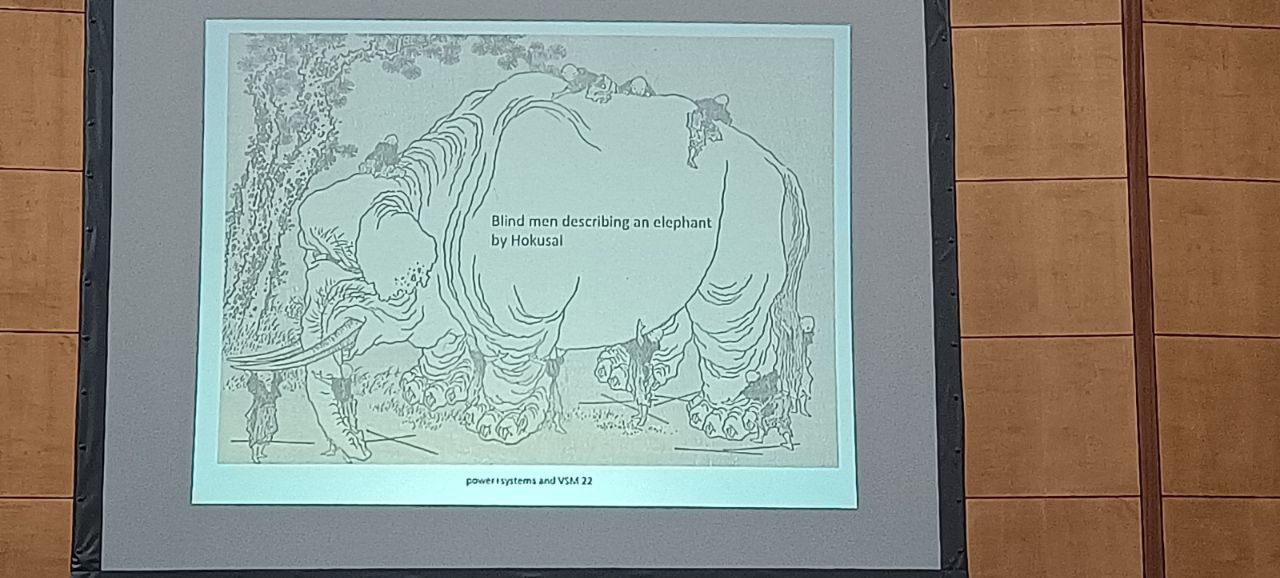
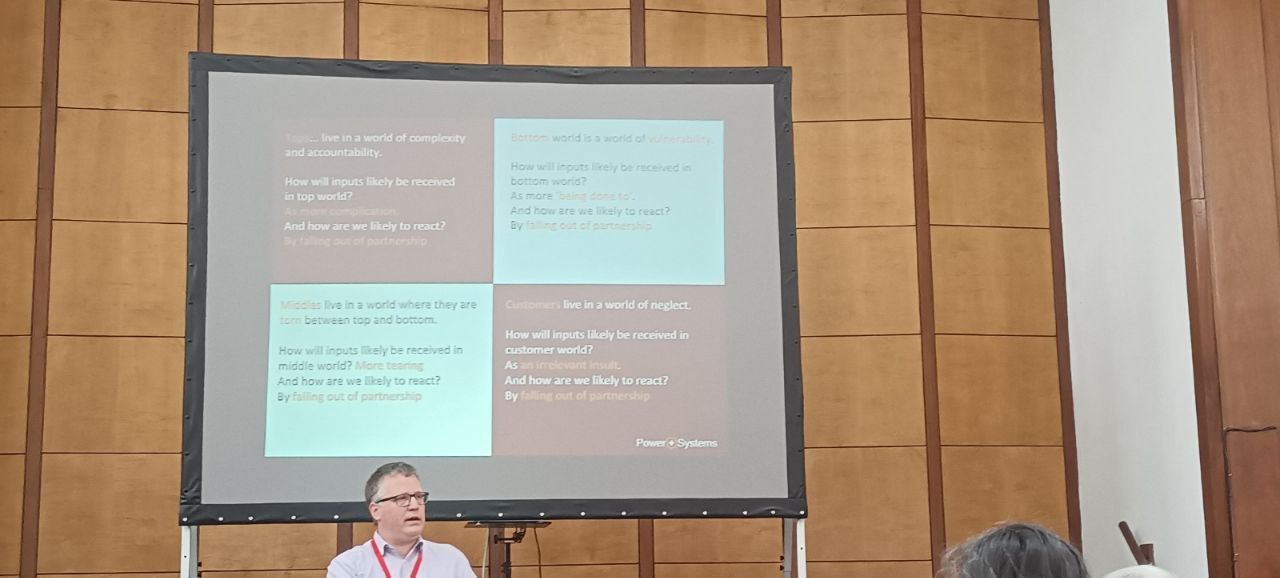
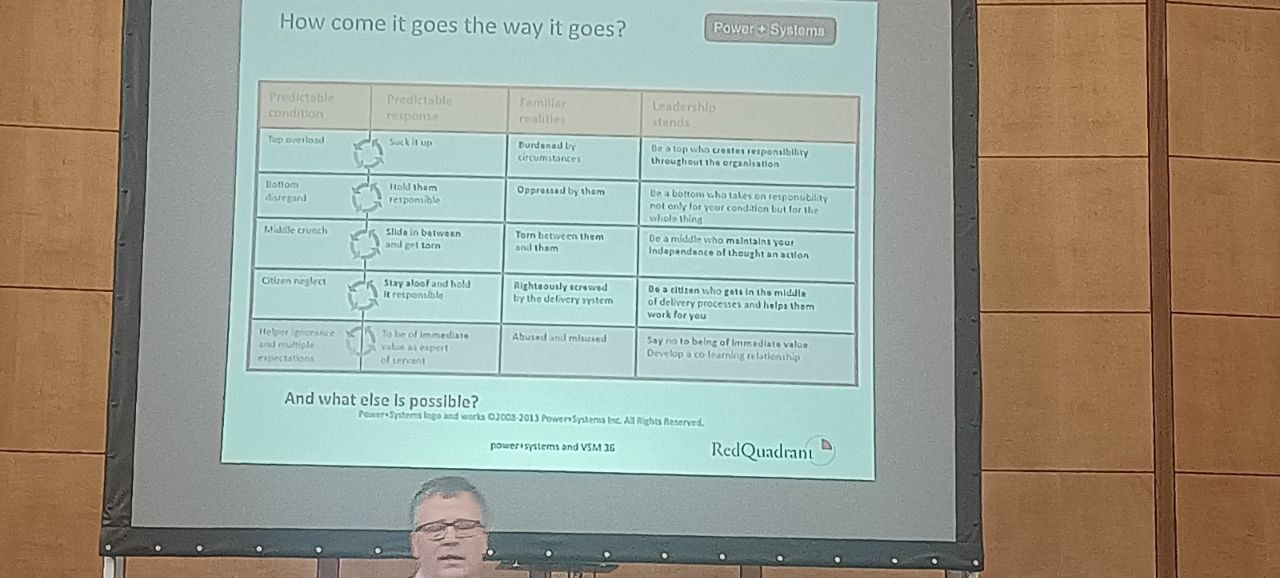
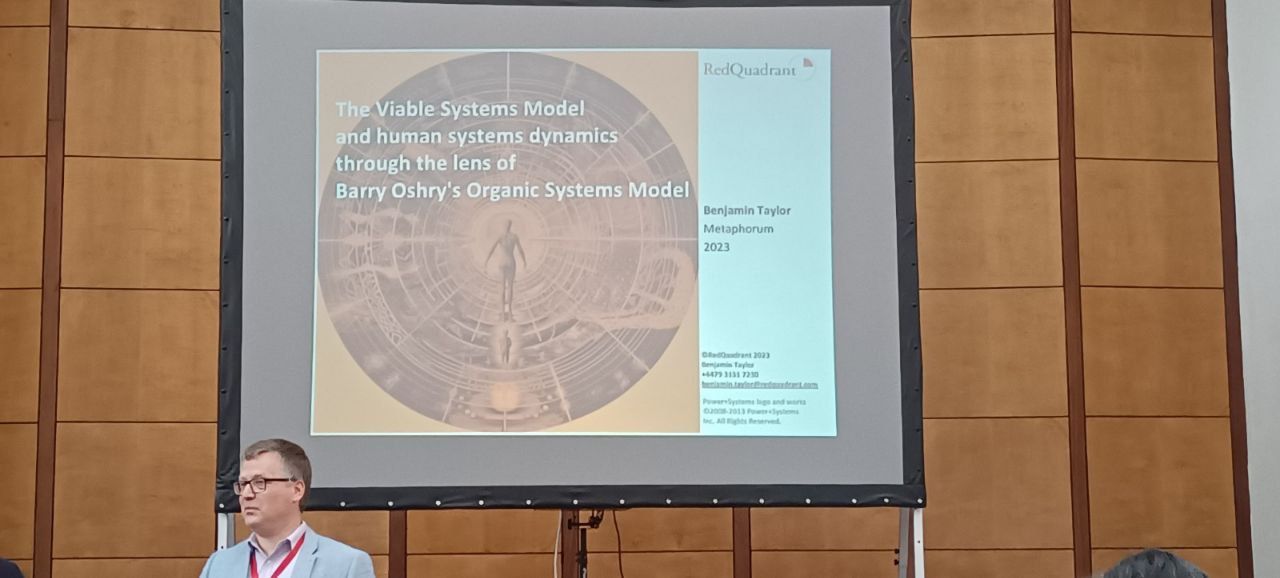
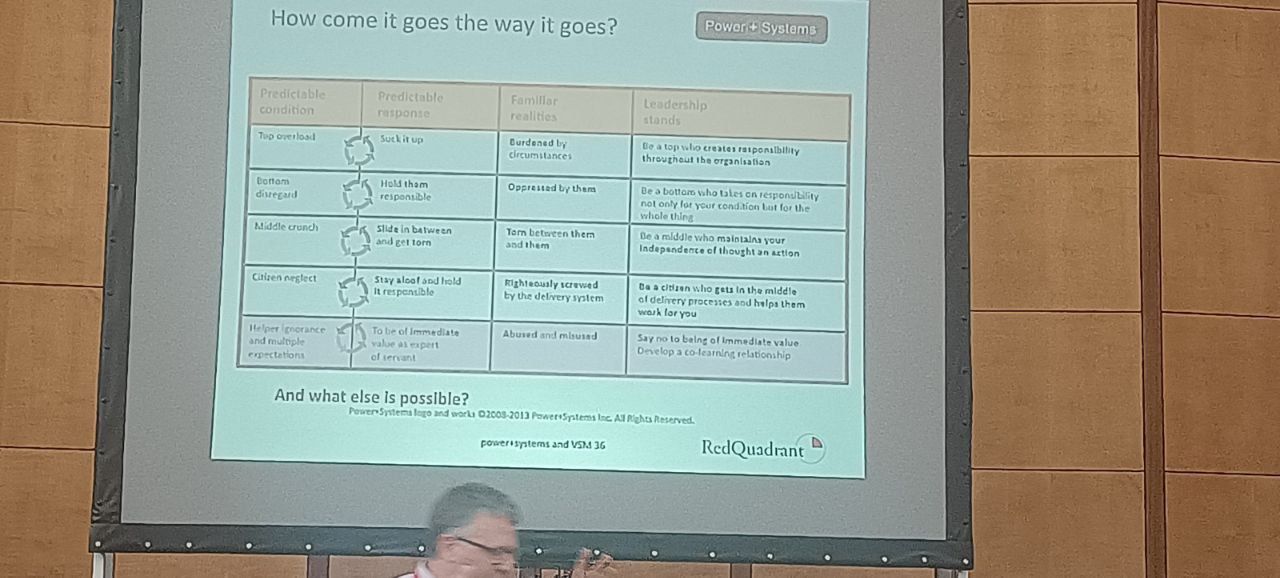

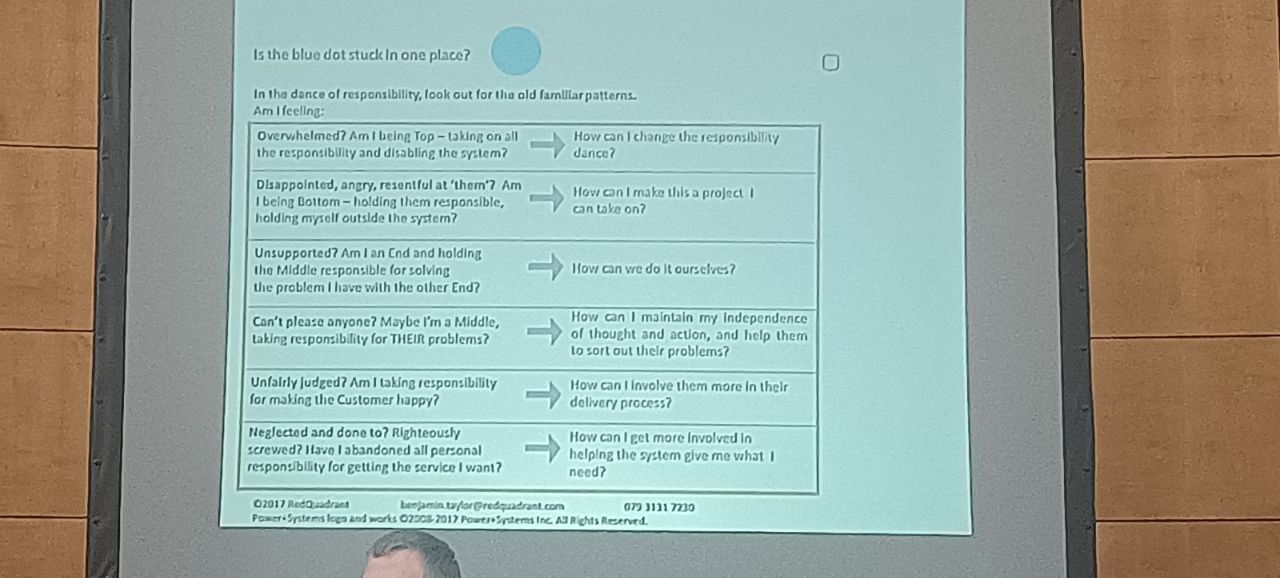
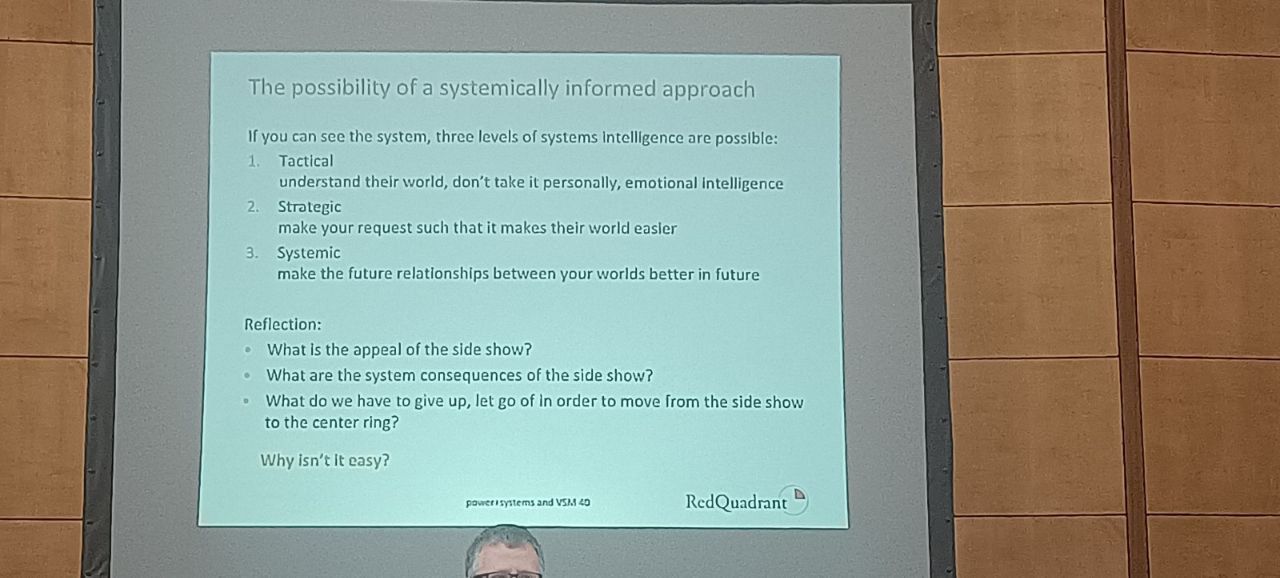
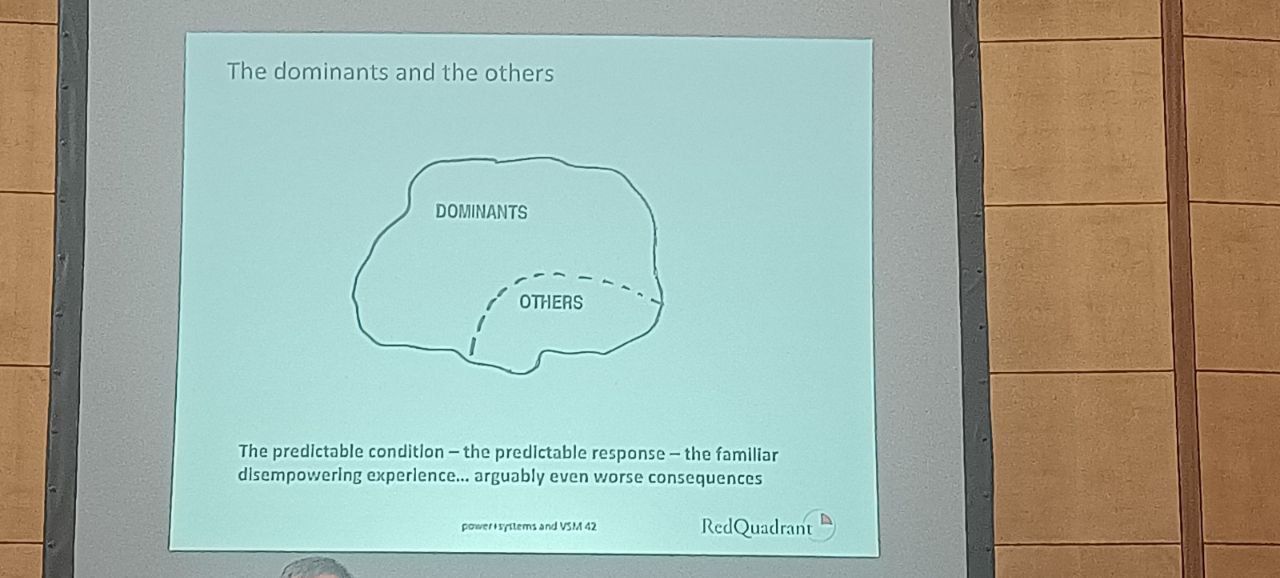
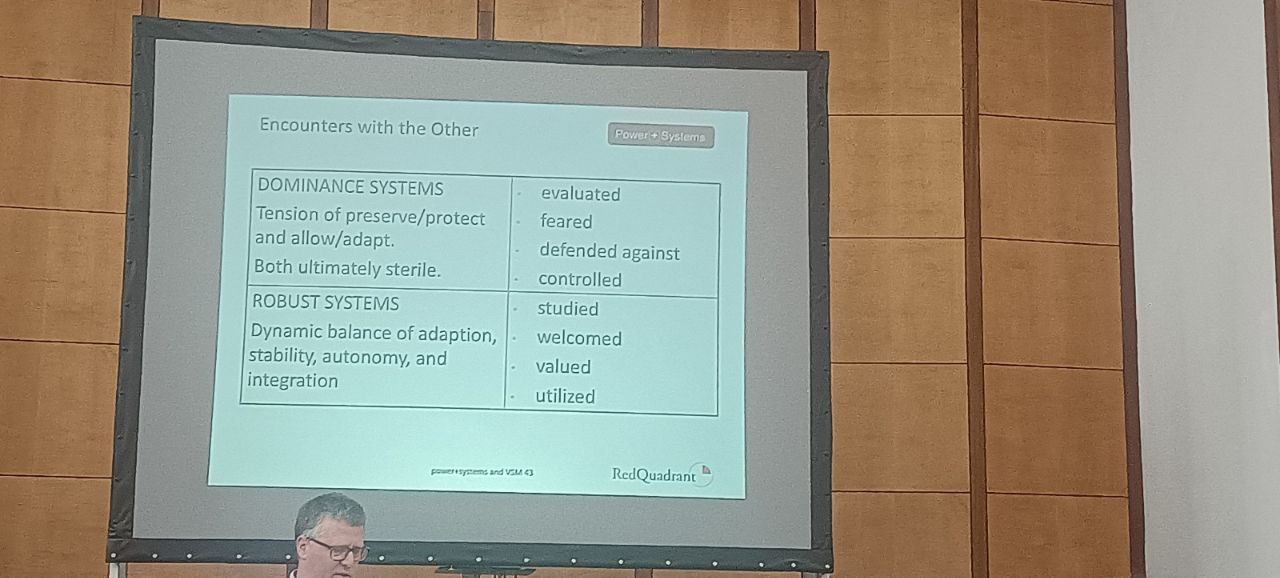
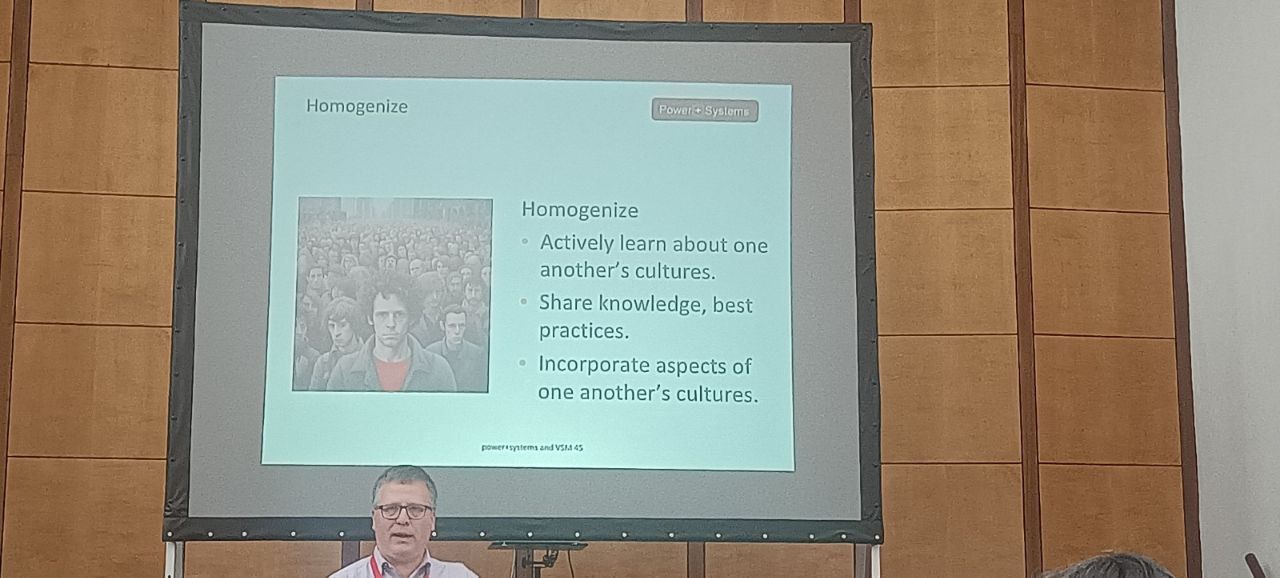
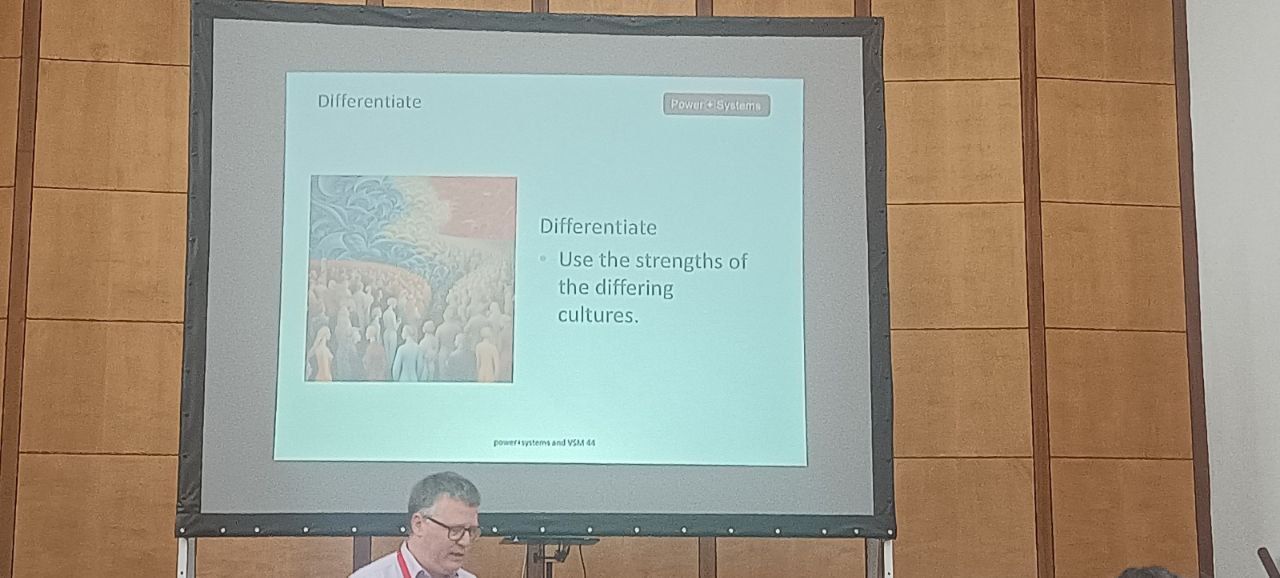
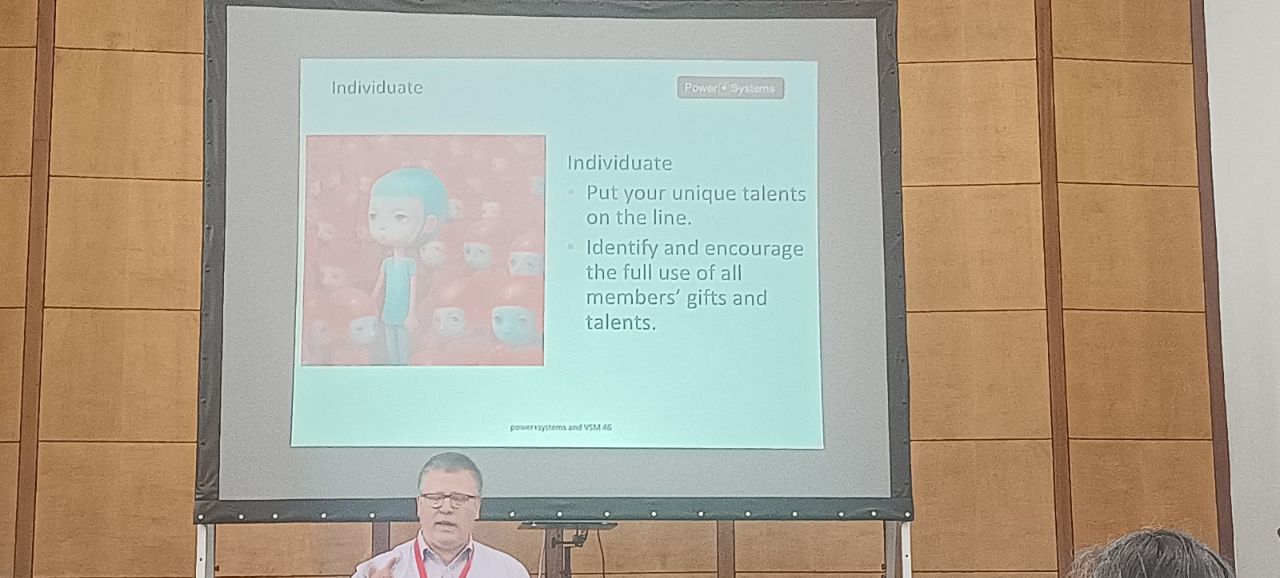
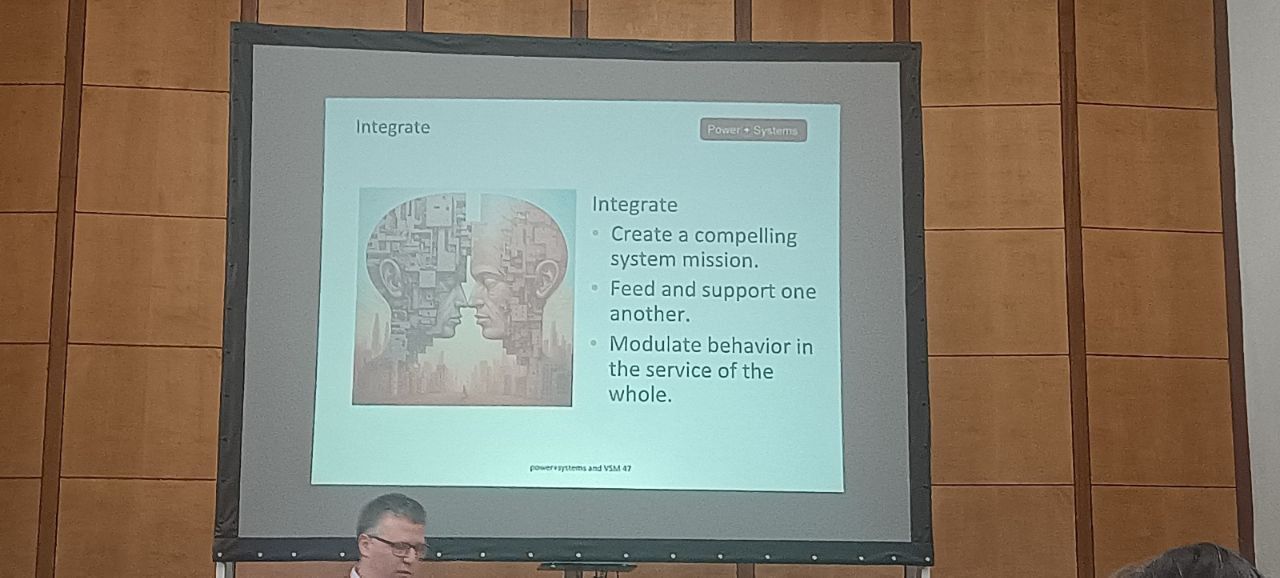
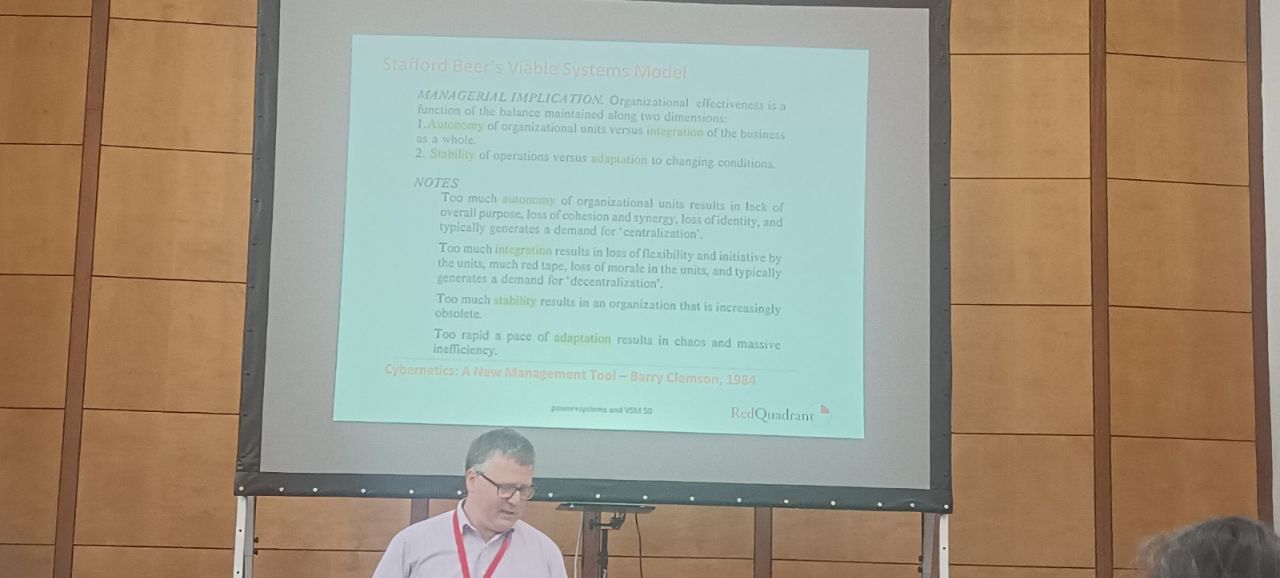
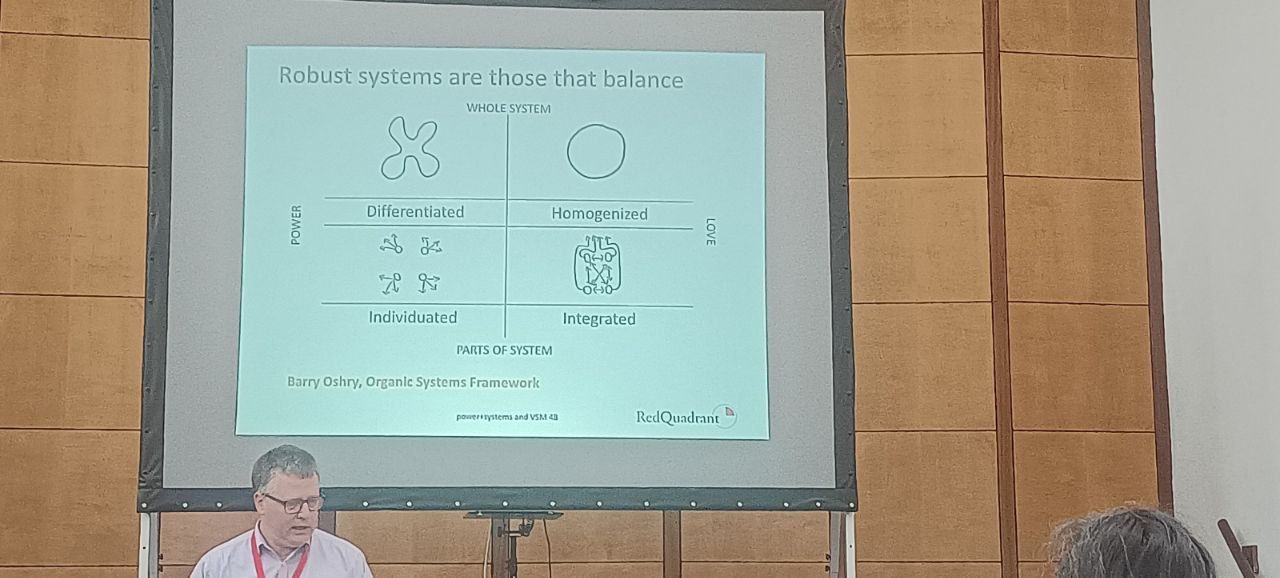
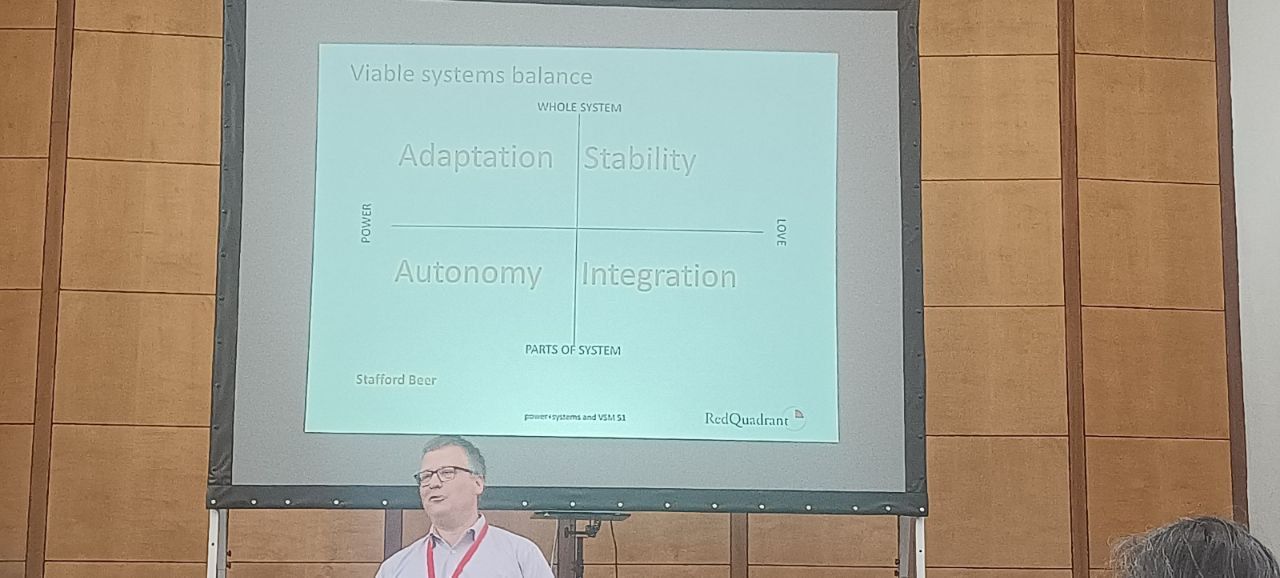
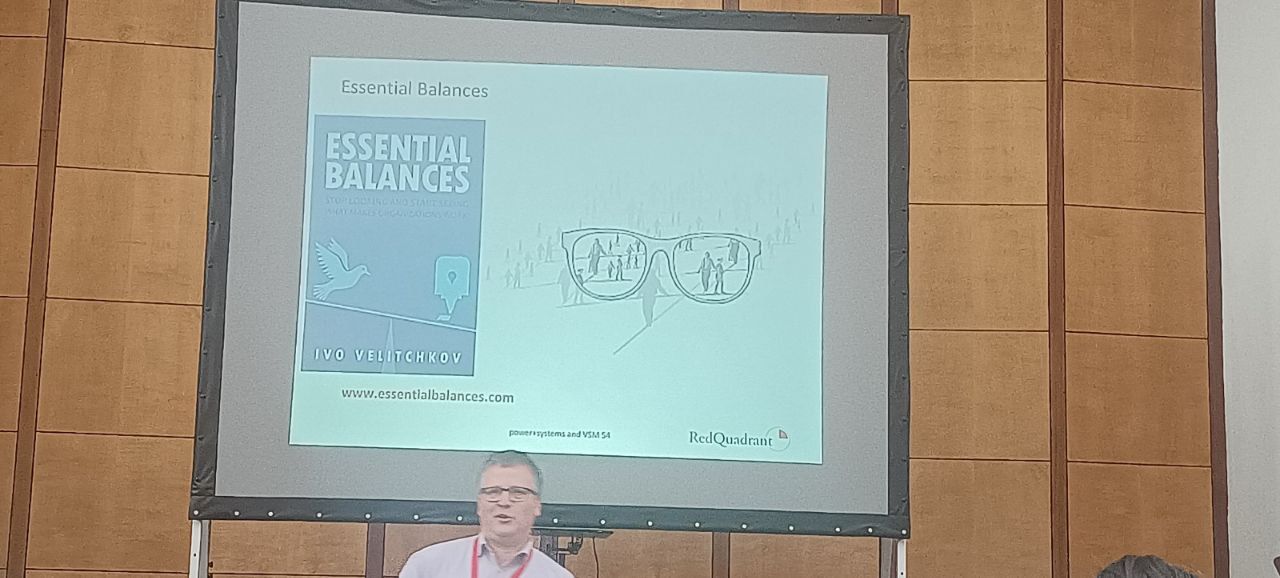
The blue dot symbolic points to roles and responsibilities and how they get distributed. He also covered some of the paradoxs organisations face when trying to evenly distribute their load; a story of how "stuff happens" and how pressure builds up in the system. The presentation included a number of 'essential balances' - prescriptive words and wisdom worth sharing:
Viable systems balance the forces of love and power alongside the part and whole. Robust systems balance the forces of differentiation and homogenisation, with individuation and integration. This can be stacked in a 2x2 matrix where:
- Differentiation leads to increased adaptability = Power for the Whole
- Individuation leads to increased autonomy = Power for the Part
- Homogenisation leads to stability = Love for the Whole
- Support leads to Integration = Love for the Part
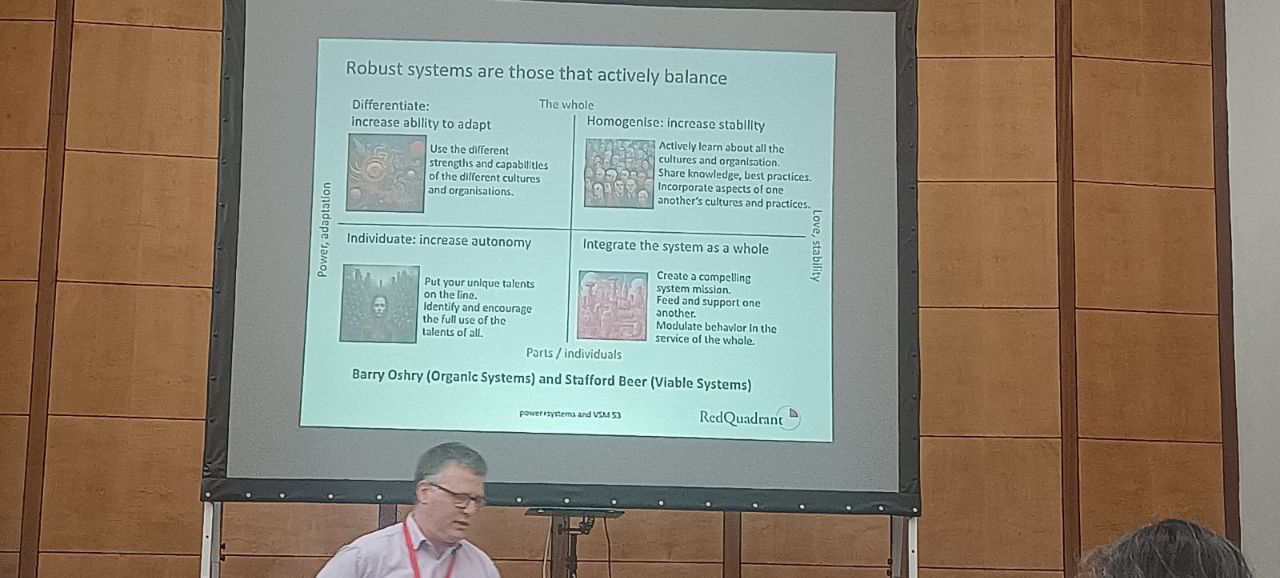
Besides this 2x2 matrix there was some good advice on resolving some org pressures by "being a middle who maintains independence of thought and action":
- Be the top when you can
- Be the bottom when you should
- Be a coach
- Be a facilitator
- When they're fighting, just stay out of it.
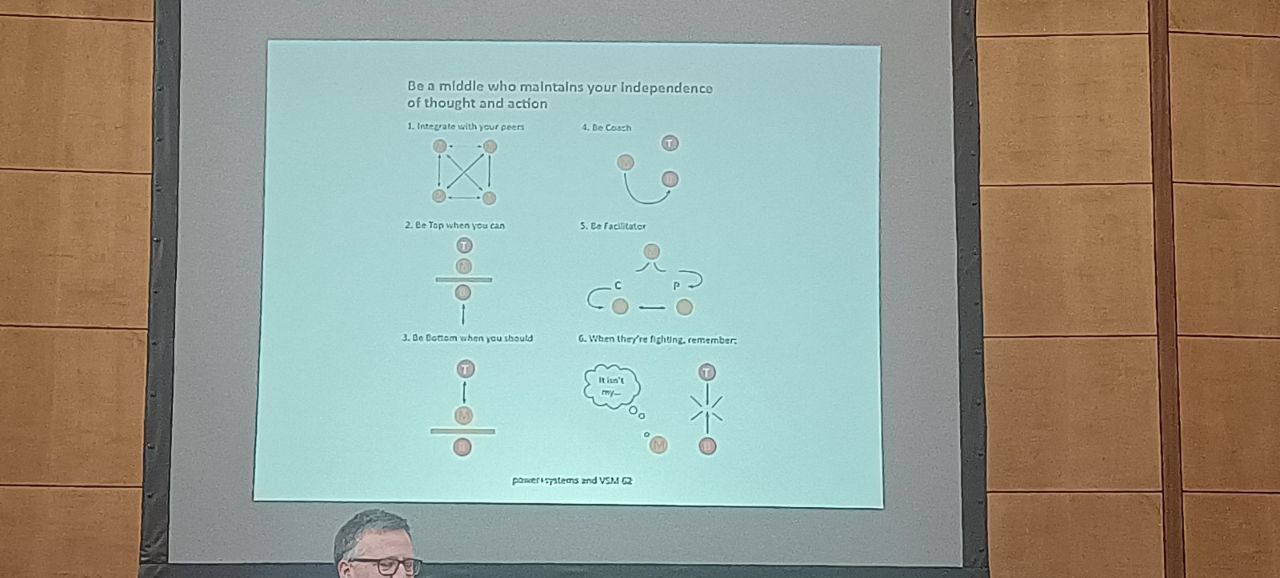
At this point the day has ended - so as is Metaphorum tradition we retire to the bar for further conversation. This time I've bunked out a little early to spend time with Trevor and share my Pillar back story with him as he had a bloody hilarious encounter with Dave Siegel who turning up to Liverpool street and told a bunch of bankers that their offices would be empty in five years - yep, sounds like Dave's style of controversy. Trevor was looking to hook David Atkins (from Holochain) up with him but upon conferral decided he might be a little difficult so sent him towards Art and Eric instead - the rest is history...
At some point in the middle of this story we end up discussing enneagrams and Trevor conveys a backstory about Idrid Shah; the guy that took over Sherbourne House from Bennett before selling it... wow, lots of historical enrichment with the story of how Bennet met Gurdjieff and Opensky while working border control for the British government and was apparently the guy who granted them both visas.
Grudjieff apparently found the UK a little oriental for his tastes and departed for Paris while Opensky stayed put. At the time of Openskys death his widow tells Bennet that Gurdjieff is still alive and in Paris, which was rather unsuspected for Bennett but apparently less so by Gurdjieff, who inherits and uses the proceeds of Openskys will towards repaying some relatively large debts he'd accrued - "what a bloody operator" Trevor chuckles!
At this point Marcus, a friend / mentee of Trevors working on a startup for Island energy arrives as we continue into the discussion; bringing us to encounters with Stafford in the 90's. At this point in time Staffords apparently uninterested in discussing the VSM but took special interested in the meaning of the enneagram or at least the page Shah left behind in his book that Trevor stumbled into. Faxing this page to Stafford certainly got his attention as he was over to the pub with Trevor the next day!
At this point Trevor kindly offers to take us both for a meal so we decide to leave the pub and continue the history lesson over Pizza. At this point we end up talking about other mutual acquaintances that pop their heads up in the crypto tech scene and then disappear and resurface due to controversy, contingency and gossip - it's fun to compare perspectives from the sidelines; really weird stuff seems to happen. I'm gonna suggest that we go around binding time with words or writing narratives and then get caught in the mess, which subsequently needs to be snipped or unravelled in order to relieve the pressures - schism etc.
DAY 3
The last day is upon us and for me its another lateish rise again meaning I miss Mark and Kellys workshop but am just in time to receive the handout and notice the SoFI VSM diagram that looks like a kaballah with extra nodes.
Man all these high level consultants like Stafford and Bennet were frigging mystics I swear! Funny thing is I've seen this mandala before in the Regenerative Tech Community Discord as my friend Chris was sharing it; oh, haha small world - he's been talking to Marc already and were just used as an example in the talk I just missed...
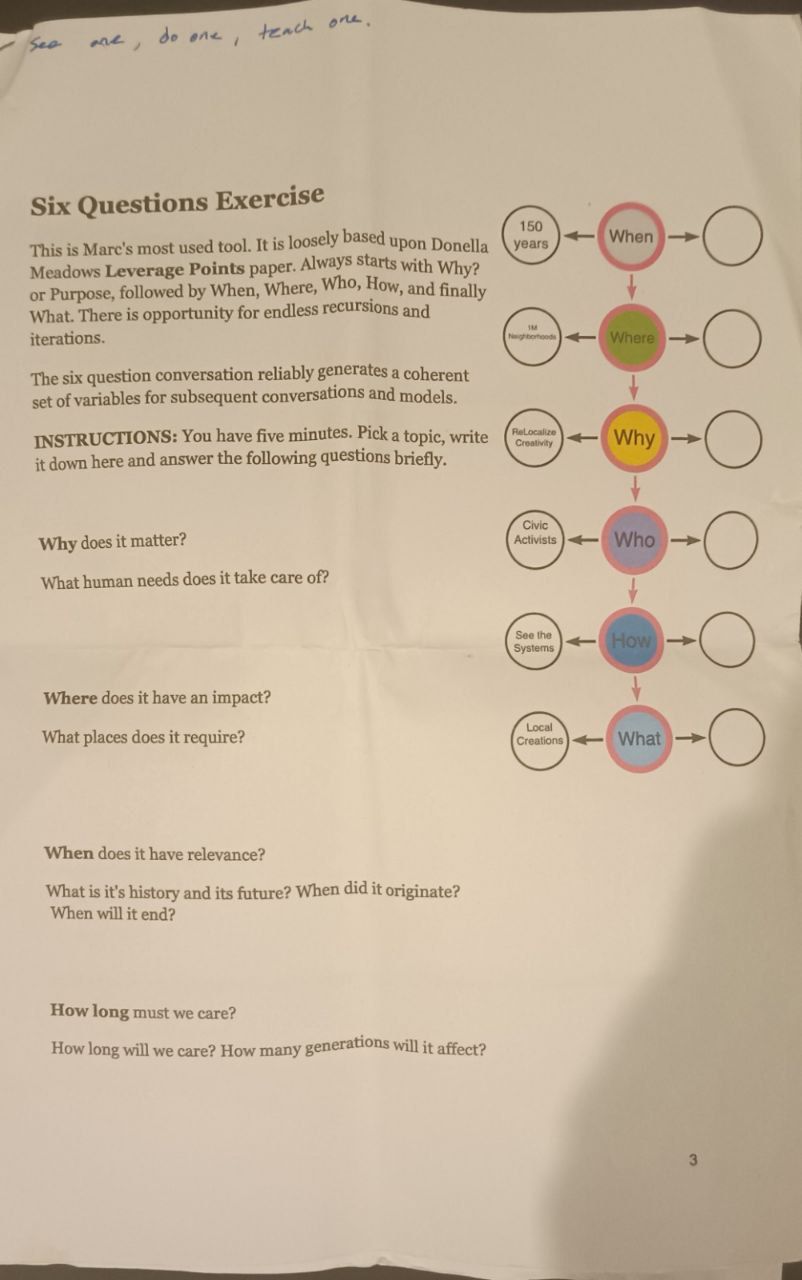
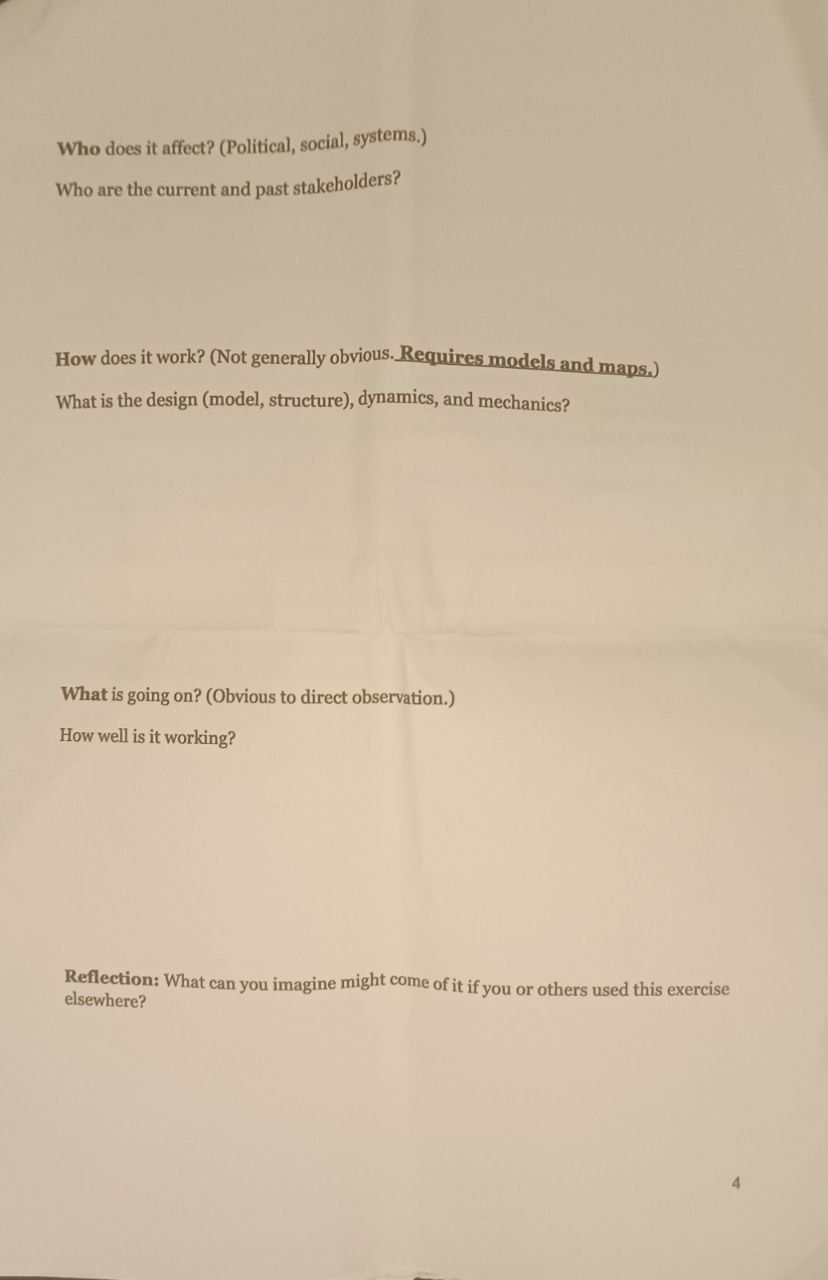


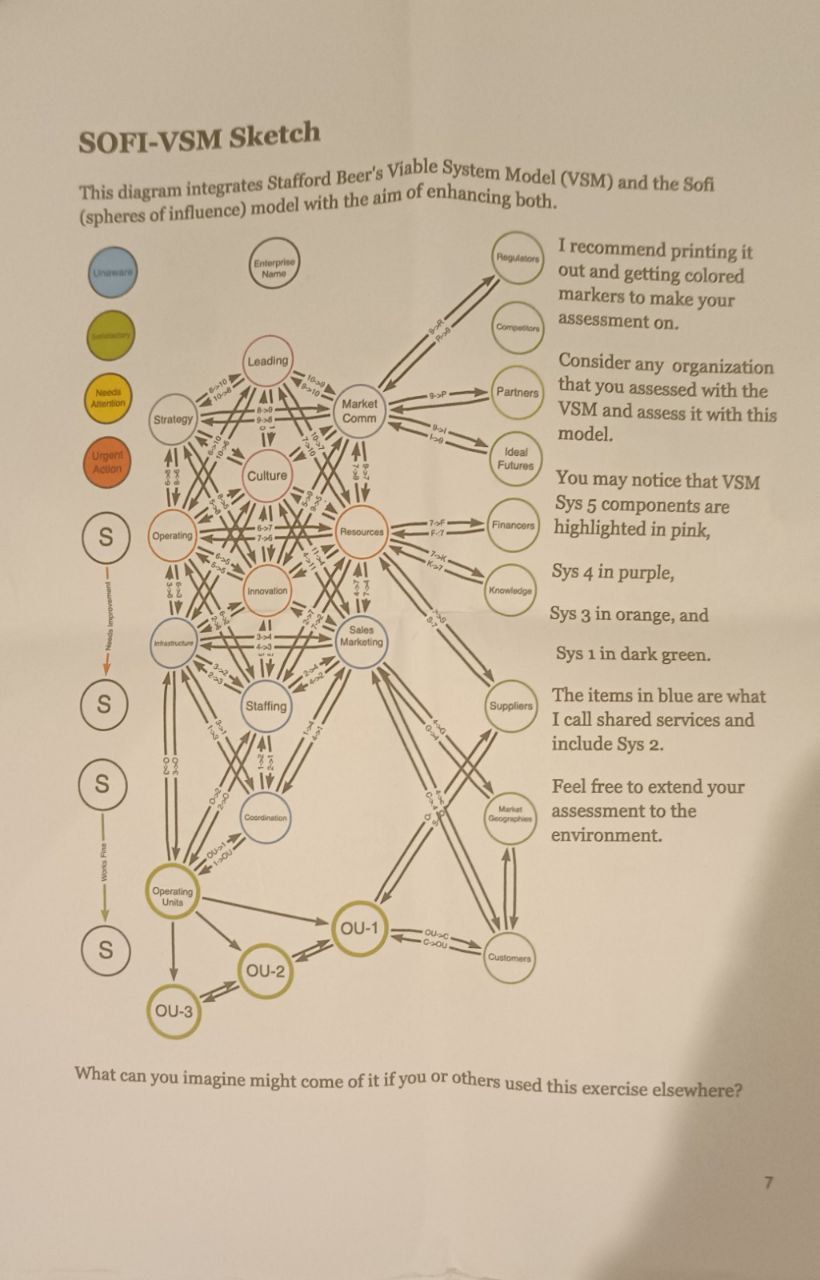

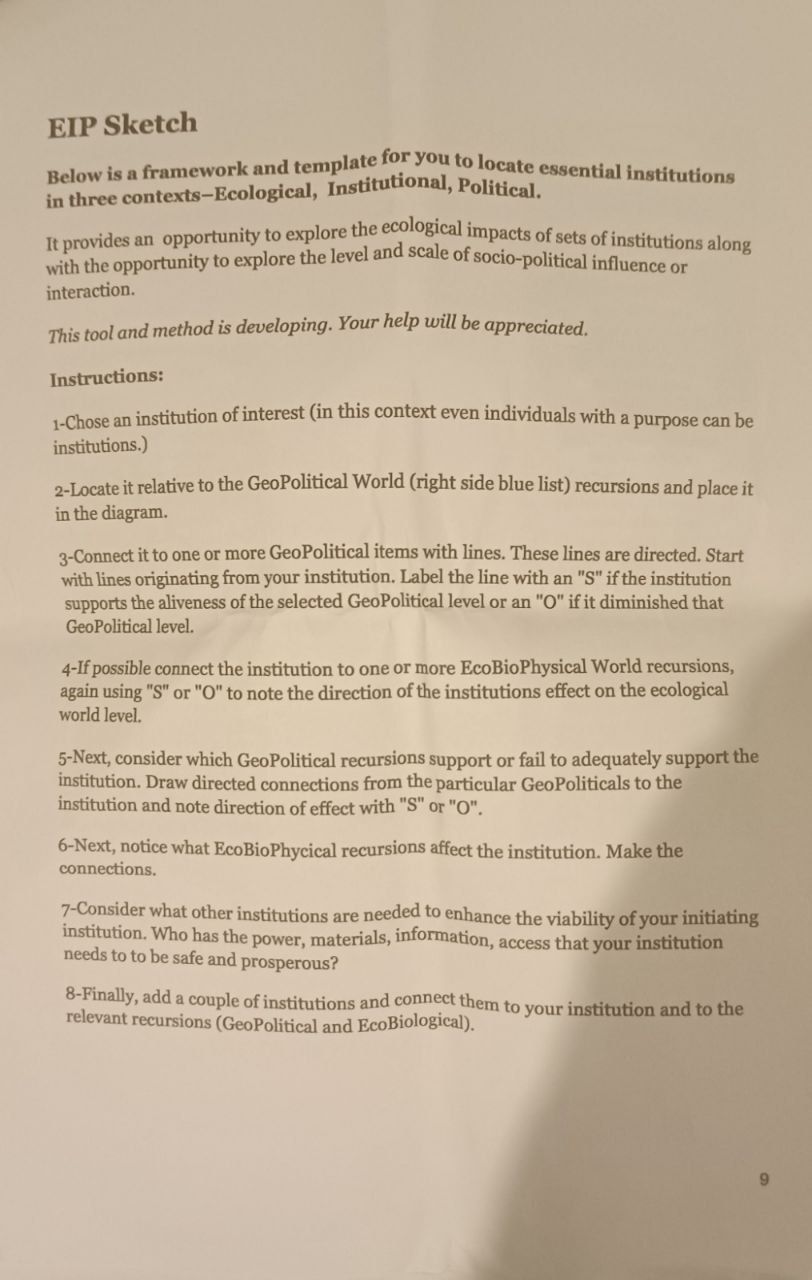
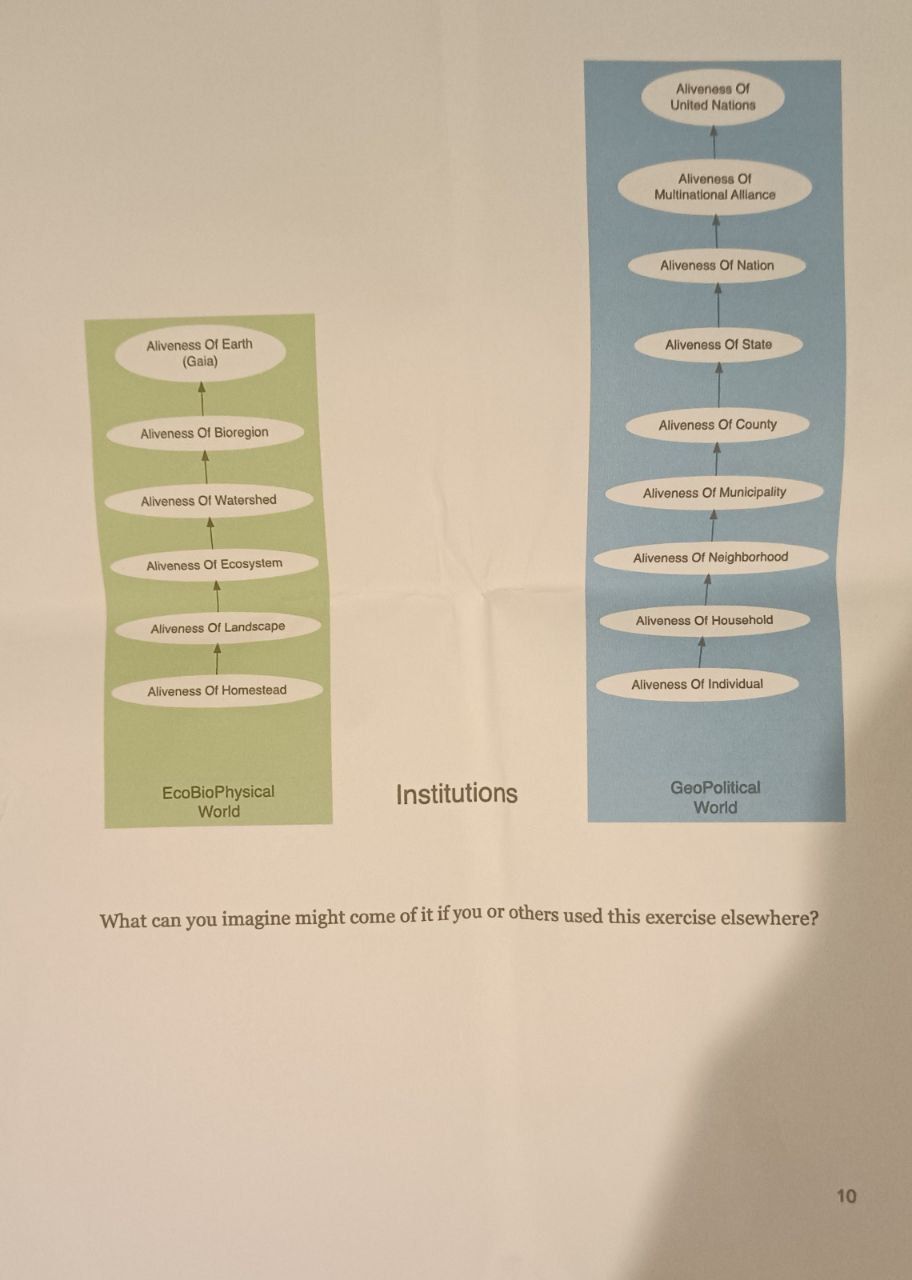
We then have a presentation/workshop on "Viability and Sustainable water management" in the Amazon to work through some of the issues of a real use case. I was hoping that this might inform an octadic mandala I'm working on with Atlantis DAO but the context was perhaps too desperate to compare across.
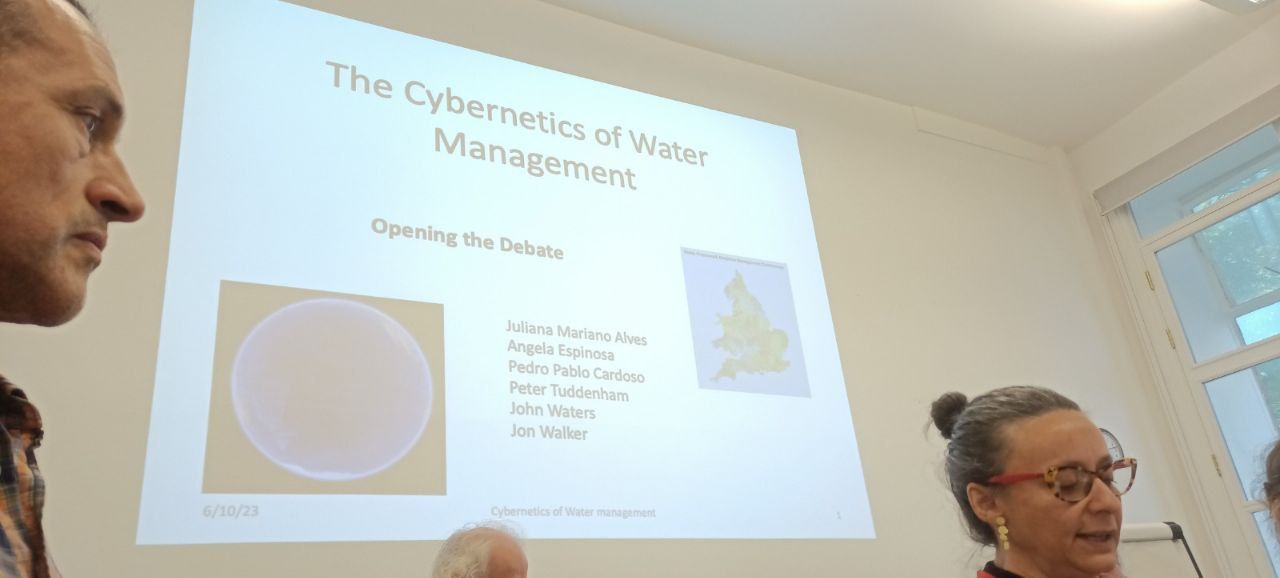
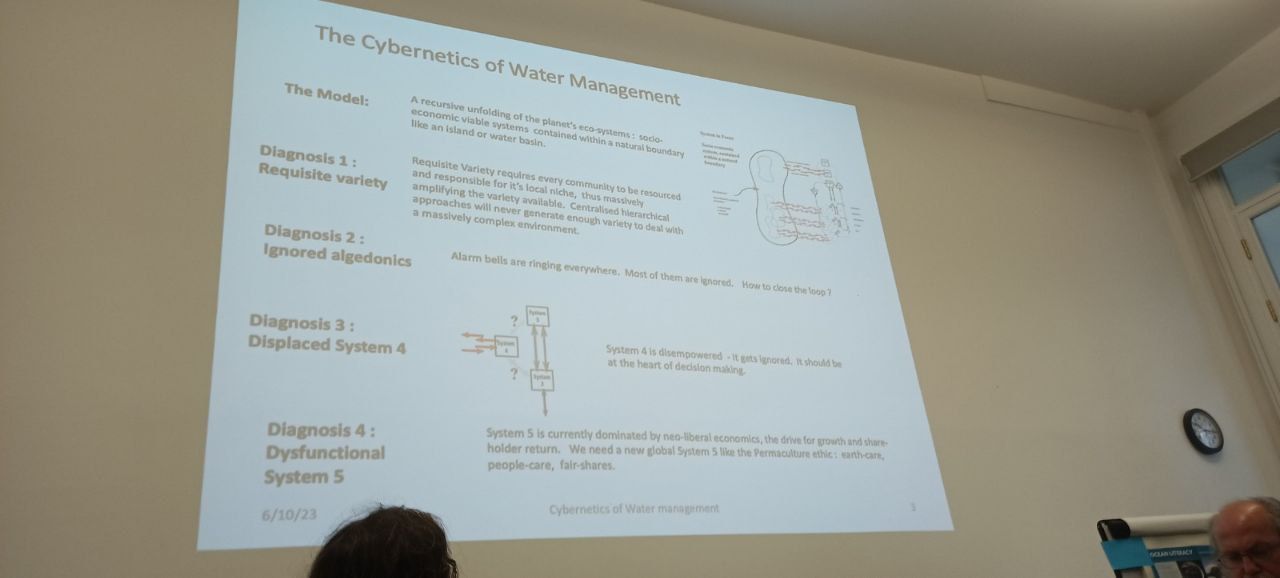
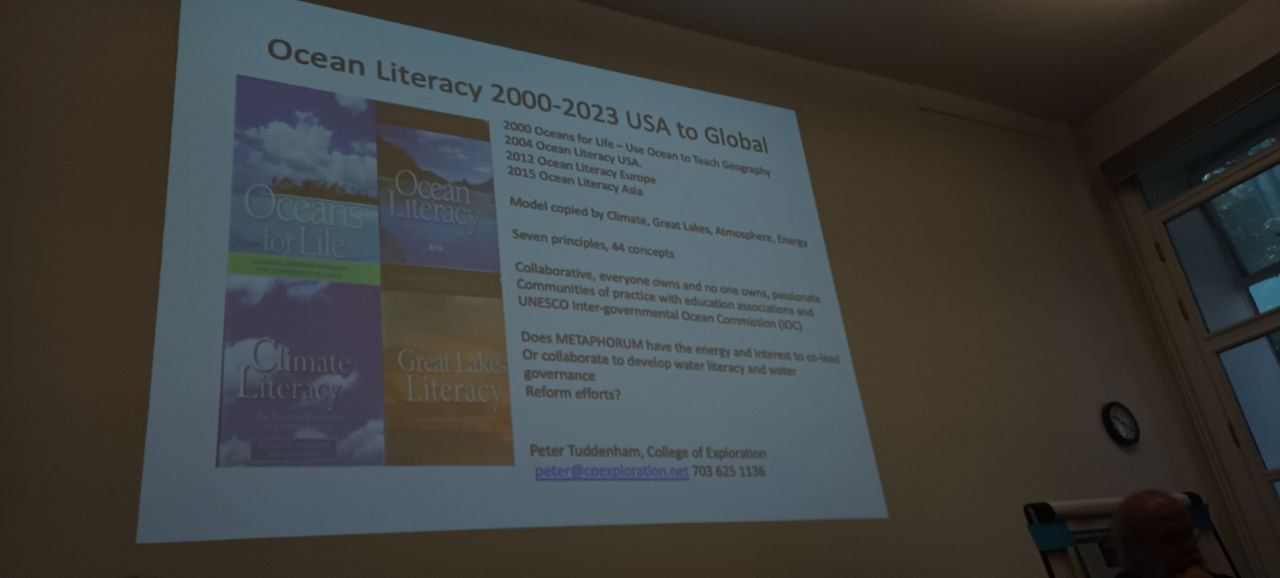
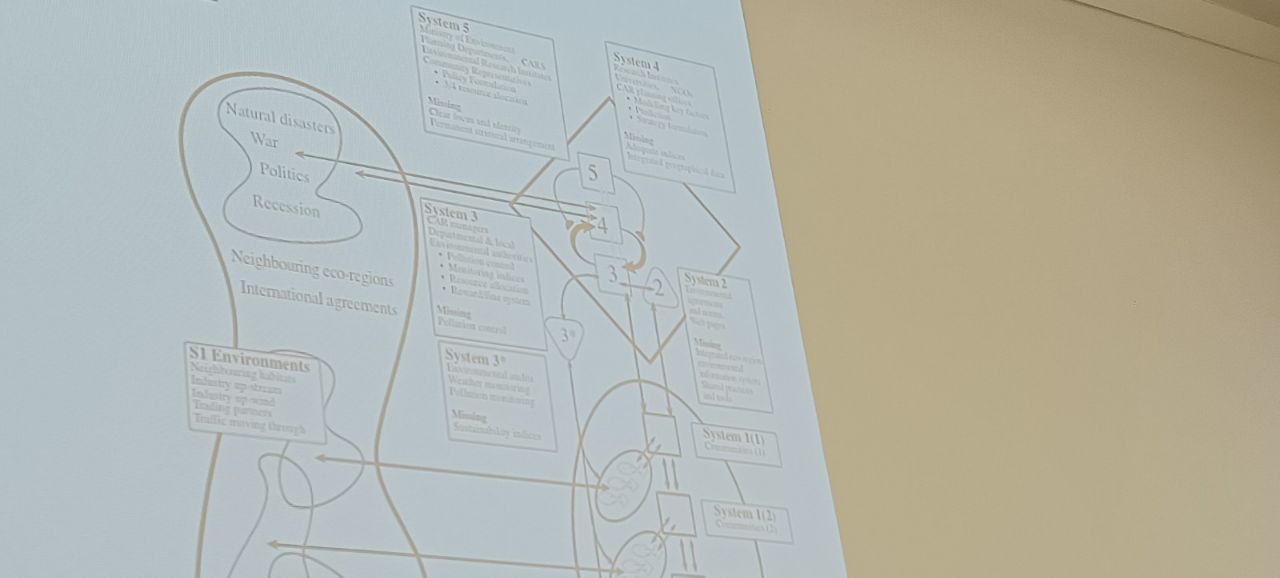
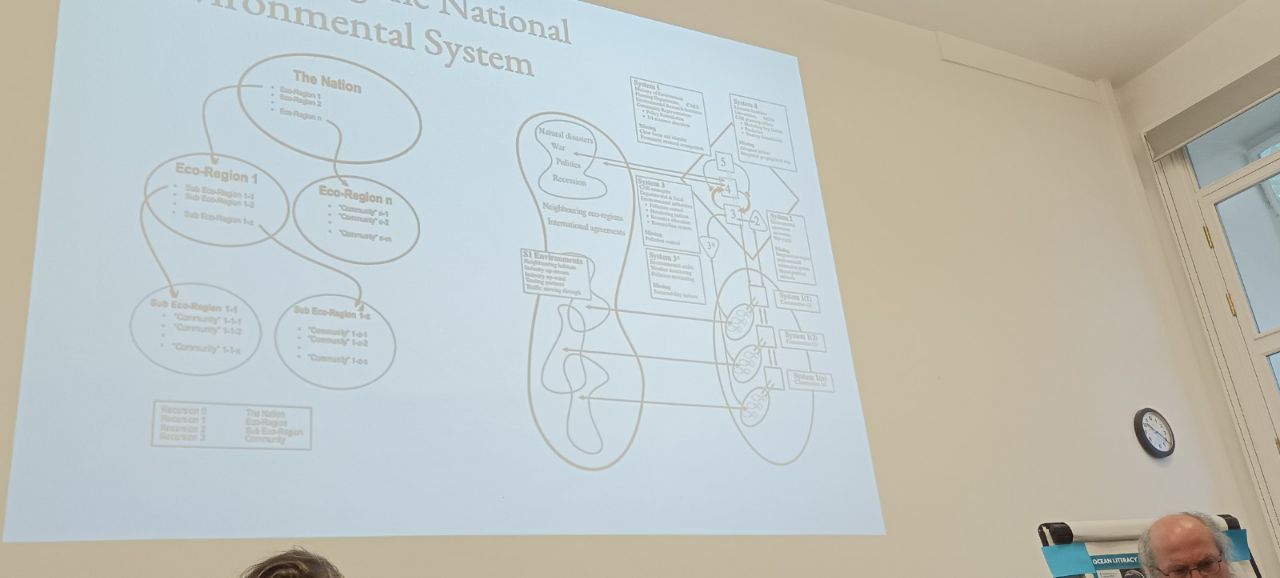
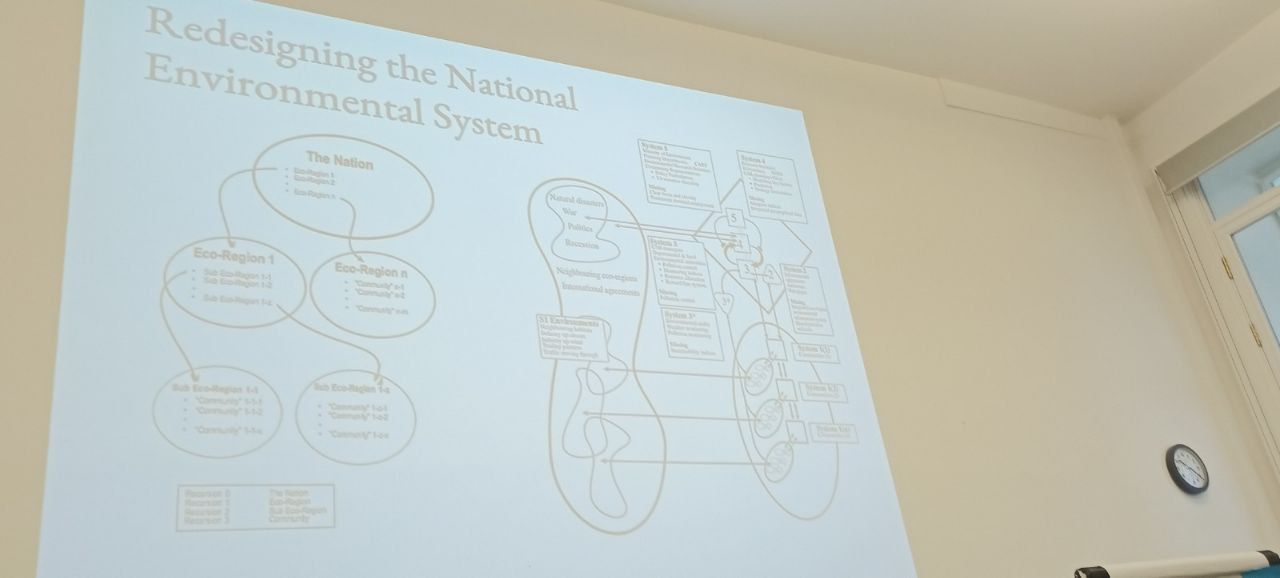
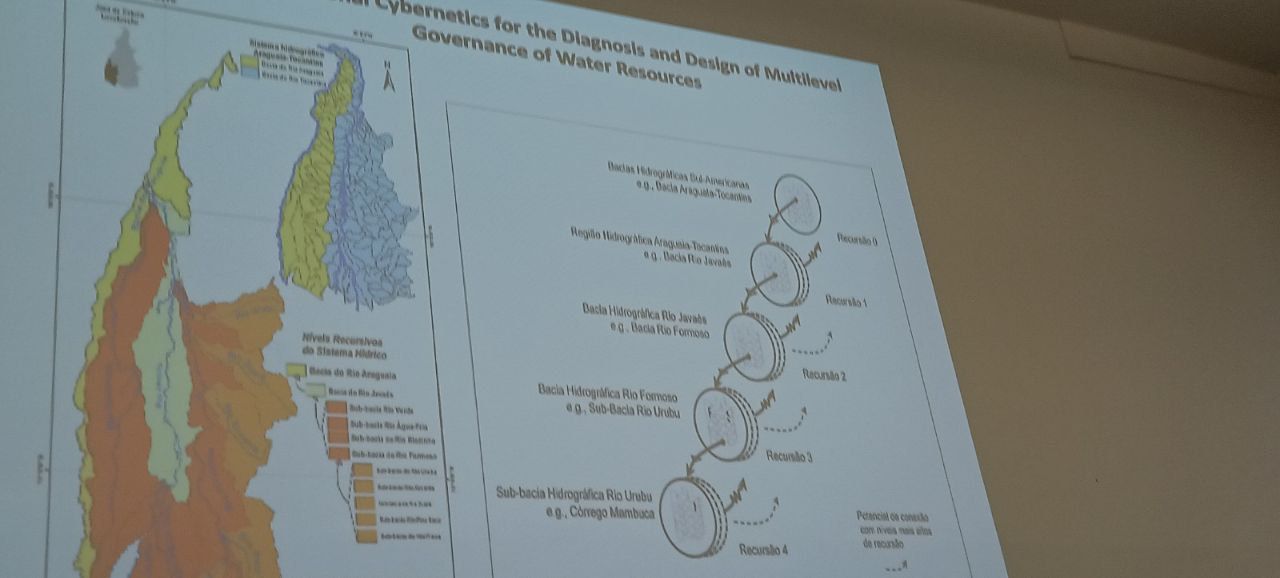
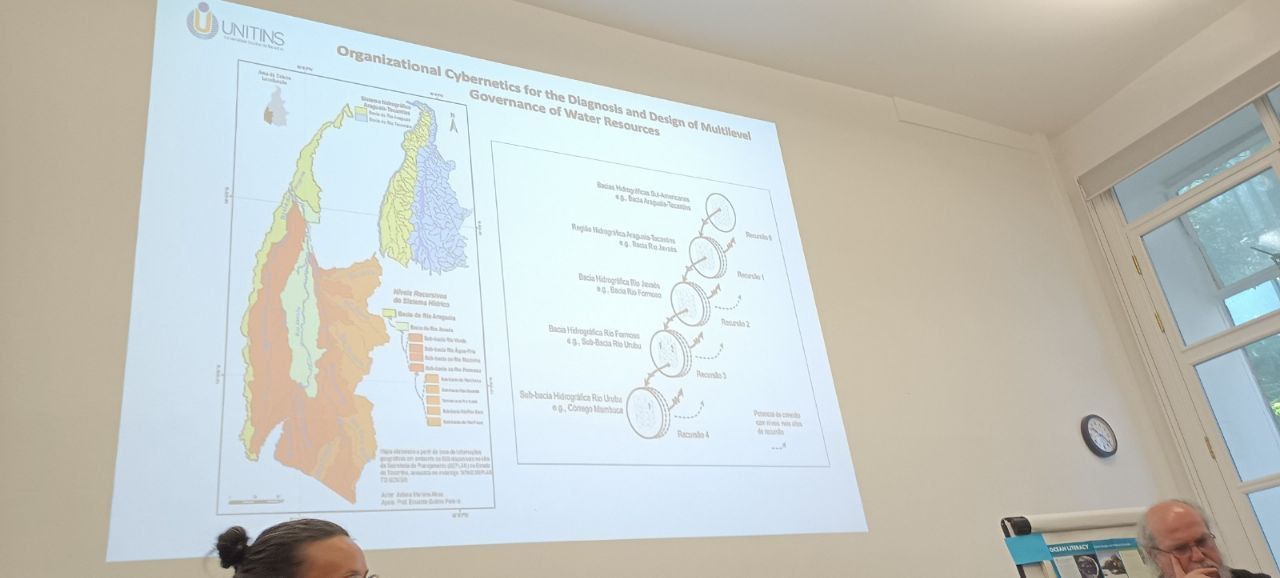
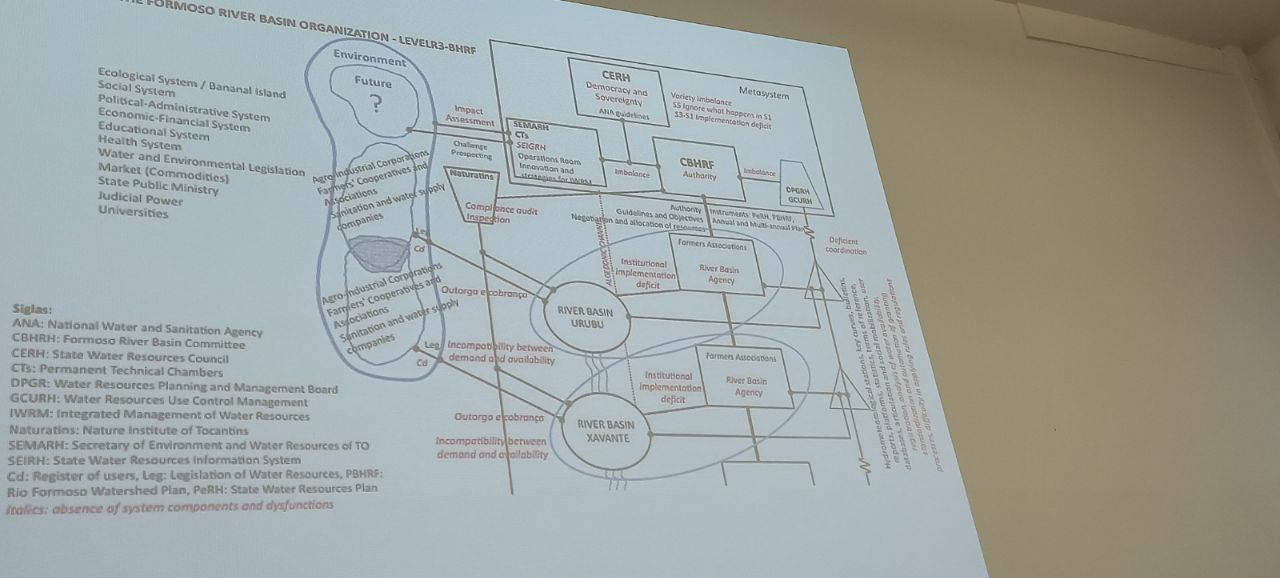
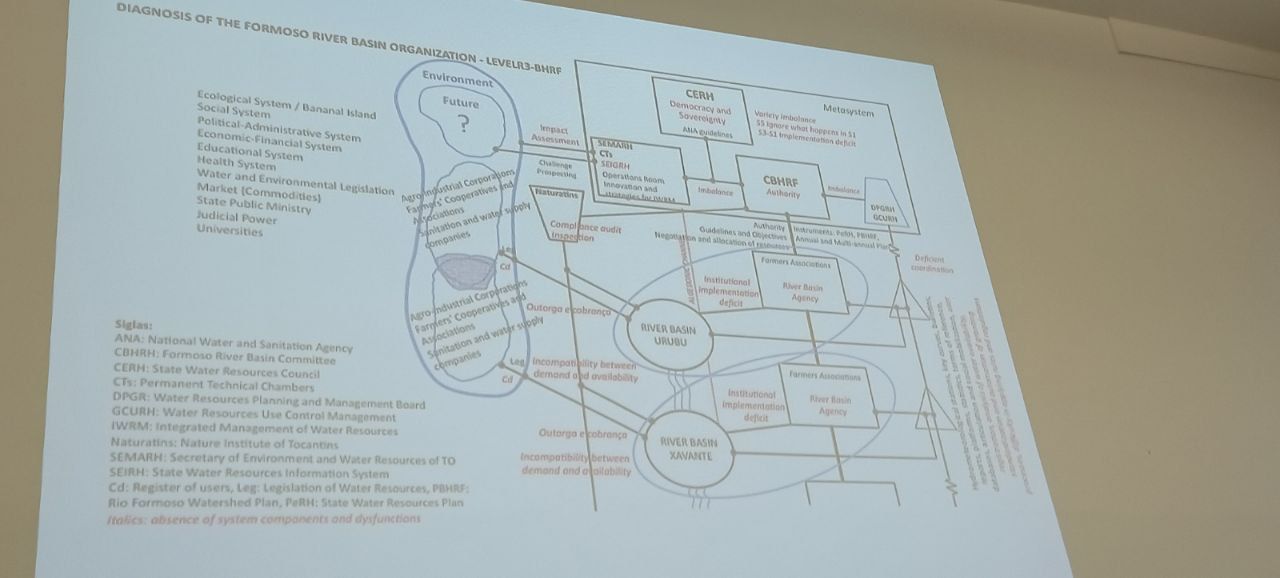
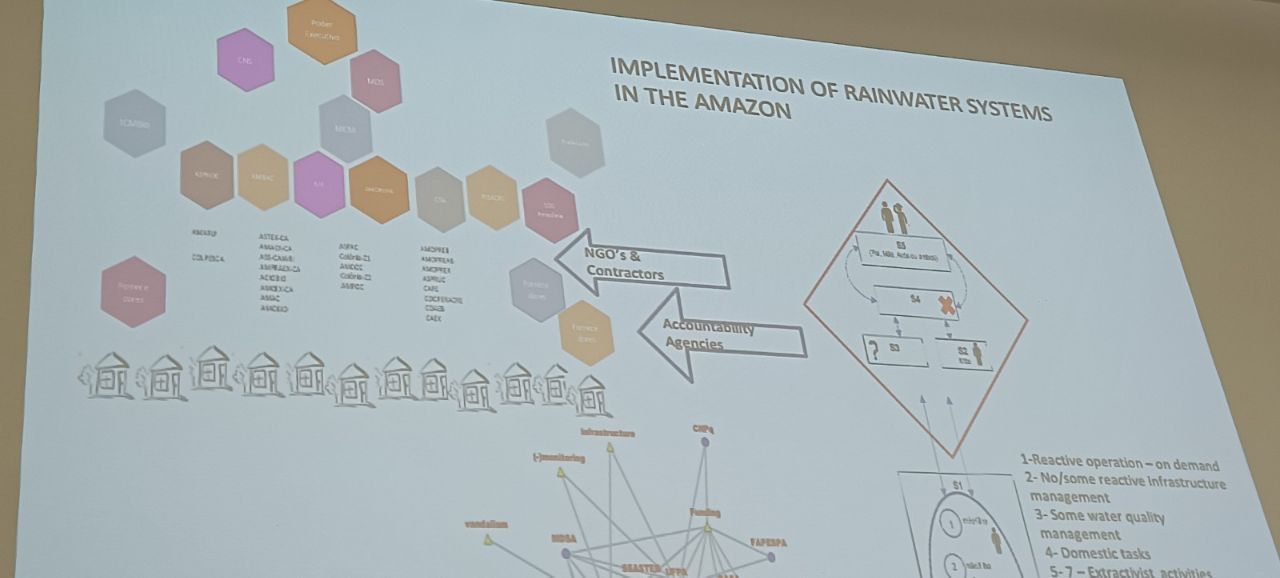
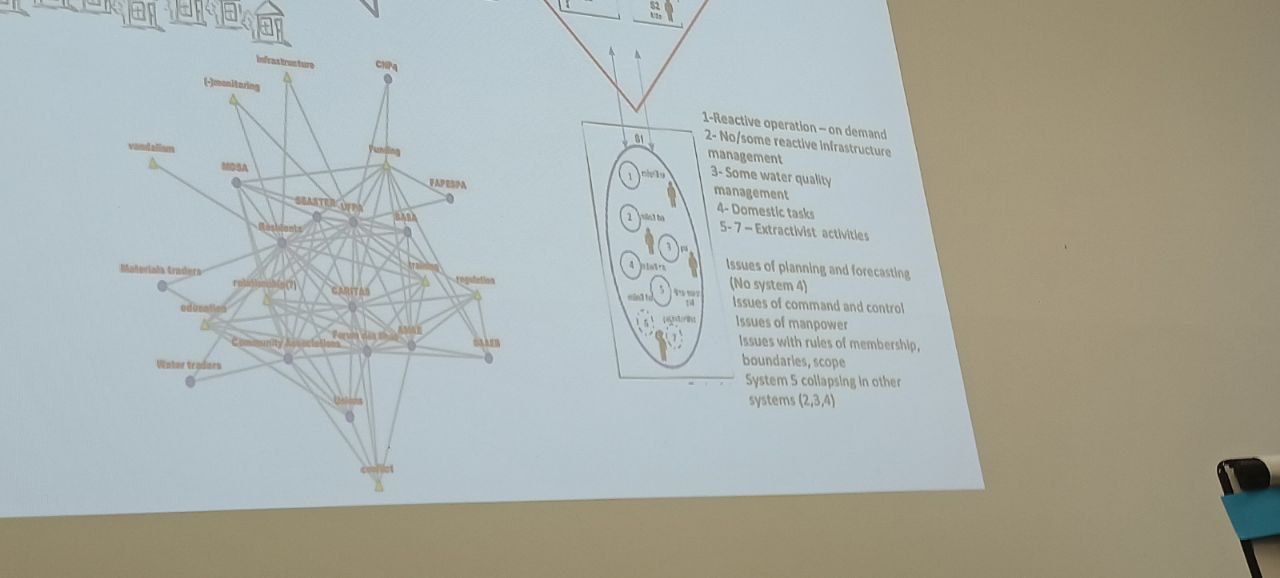

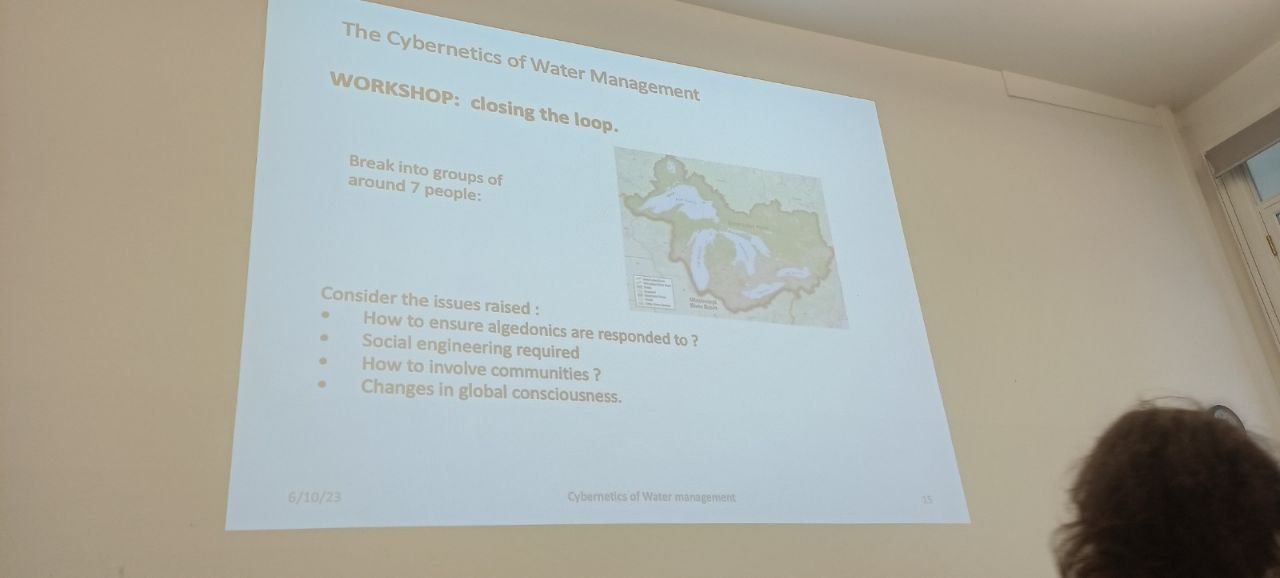
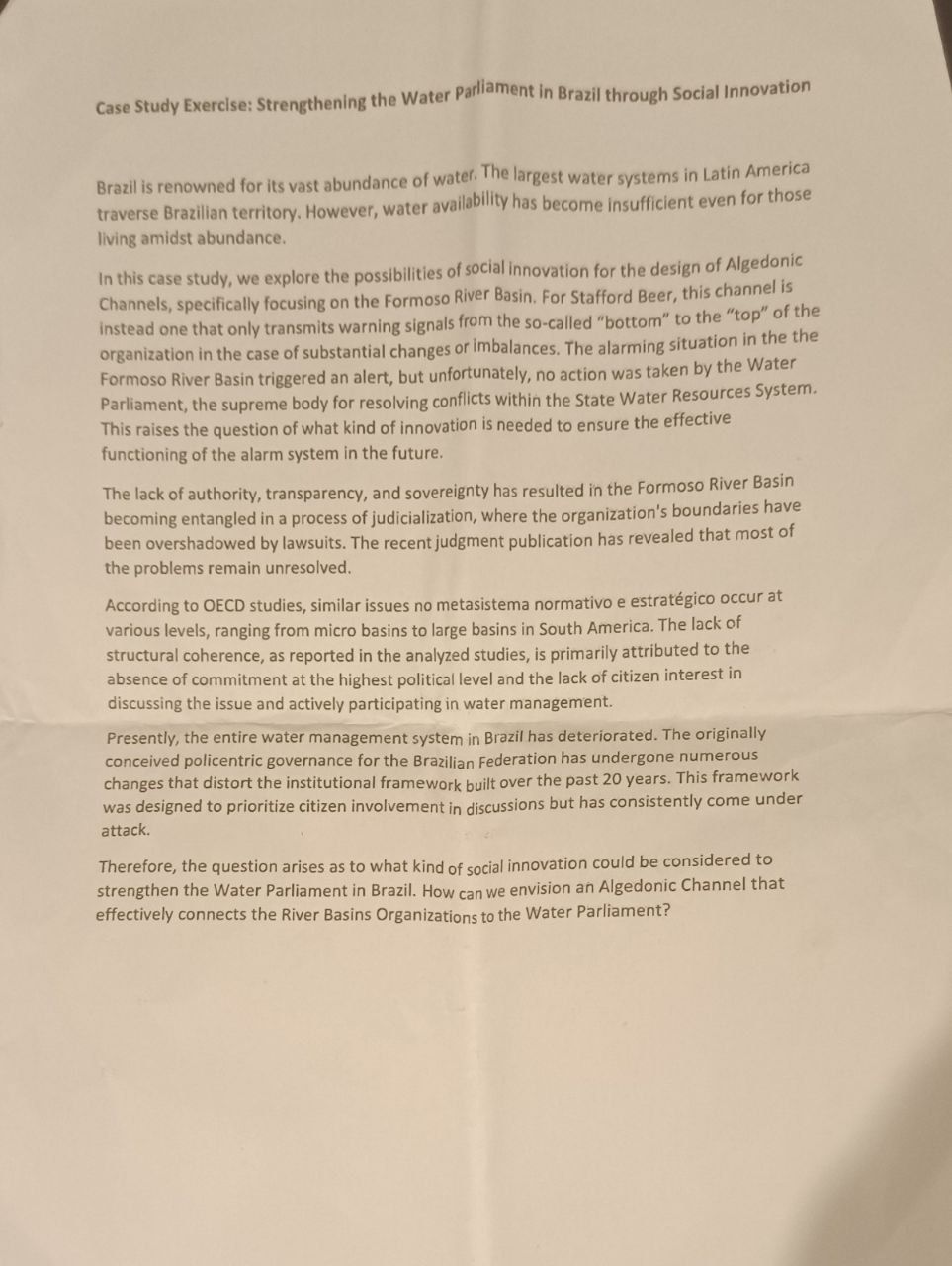
After a short break were presented a video from a college that couldn't make the event on "VSM application insights and questions from our VSM application research group". Interestingly this opens up some opportunities to expand the models thinking by asking question like where does marketing fit? This is quite refreshing as it takes us out of silver bullet territory treating the model as a useful tool; thankfully many of the participants despite being well versed didn't treat the model as a doctrine - which often happens with favourite reality models (I'm a sinner too!).
John Waters, my friend from the pub was up next to share the architecture of the software he was working on with his presentation "Applying some cybernetic concepts to planetary viability – a skeleton on which to build." The root ontology seemed to be based on the permaculture triple of "earth care, people care, fair share" and seemed like a pretty interesting project that had a number of similarities to other systems I've encountered; what I liked about John's initiative was his pragmatic sense of imperative and building for now.
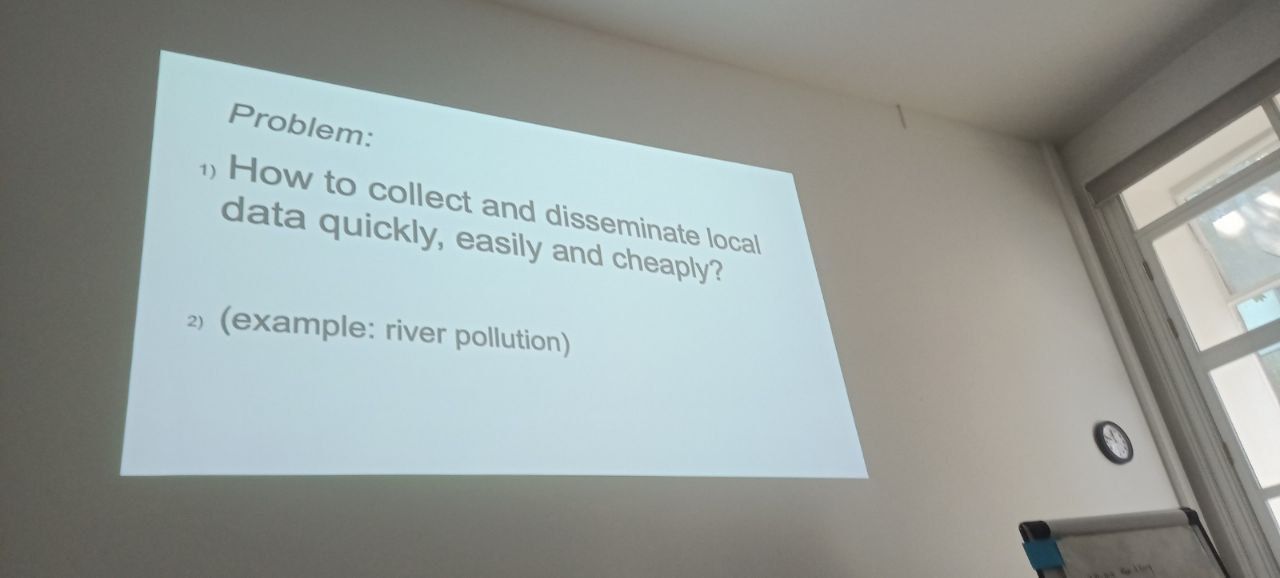
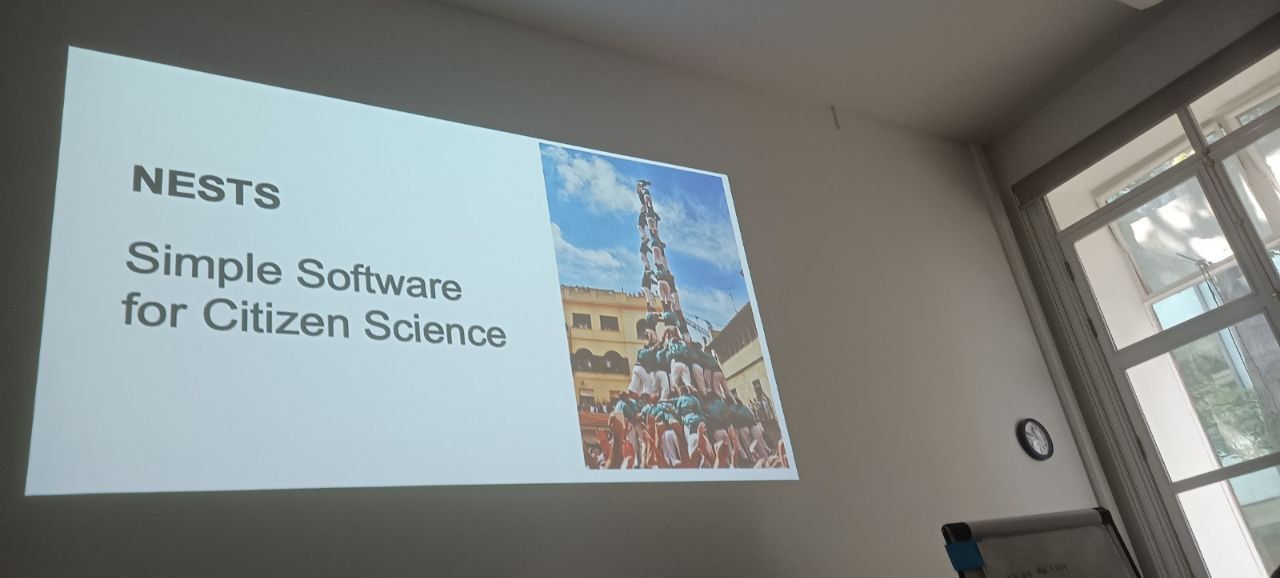
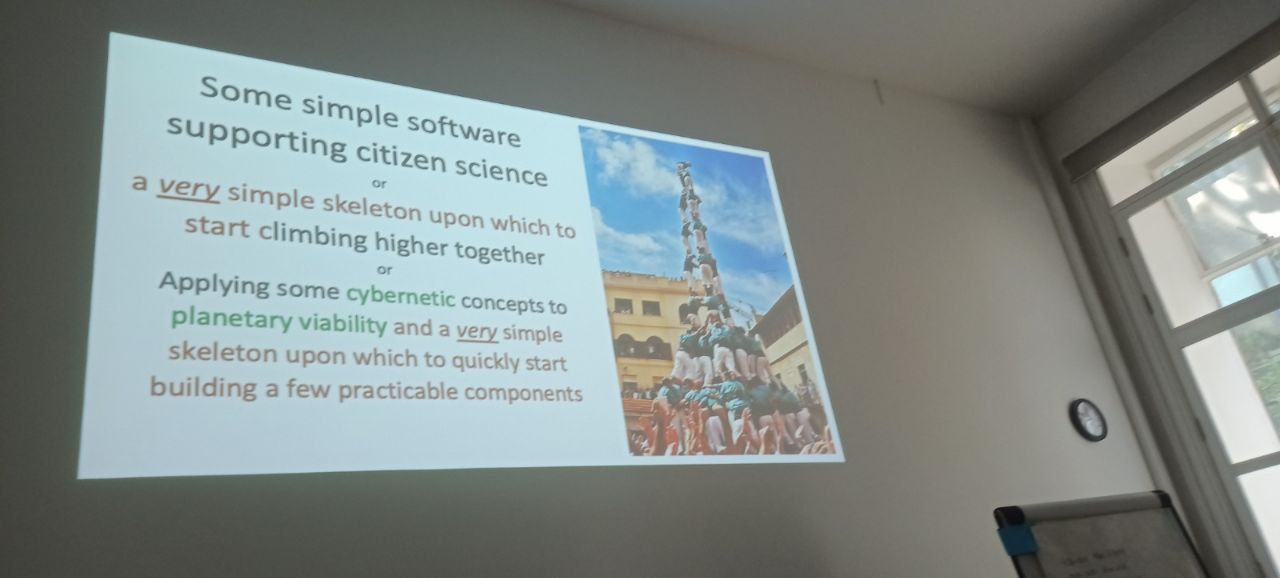
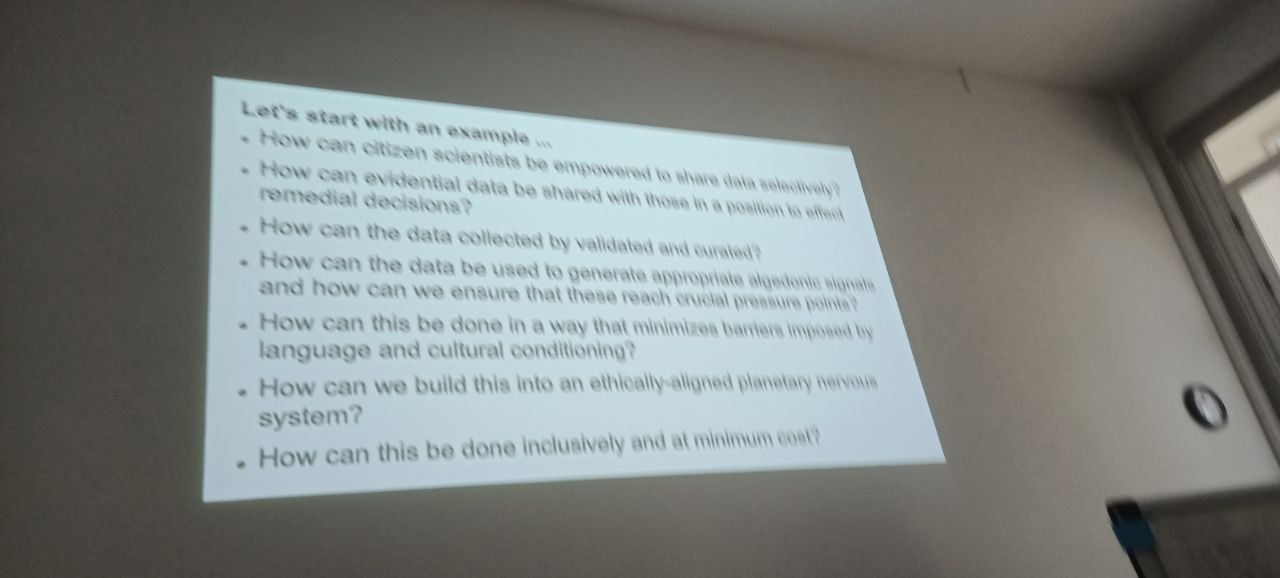
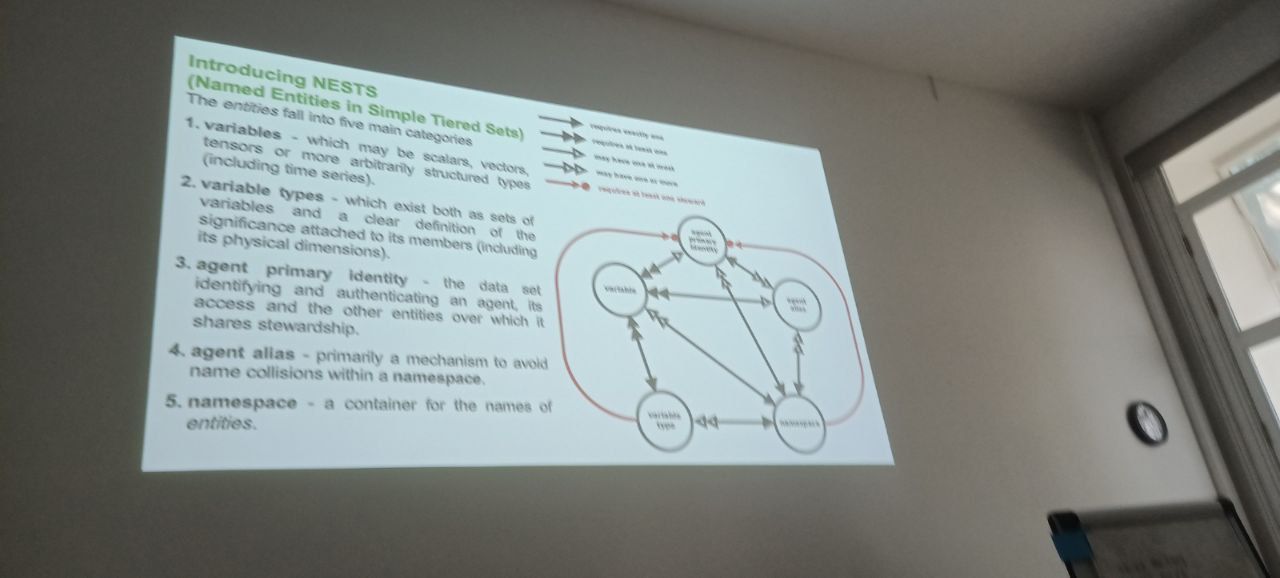
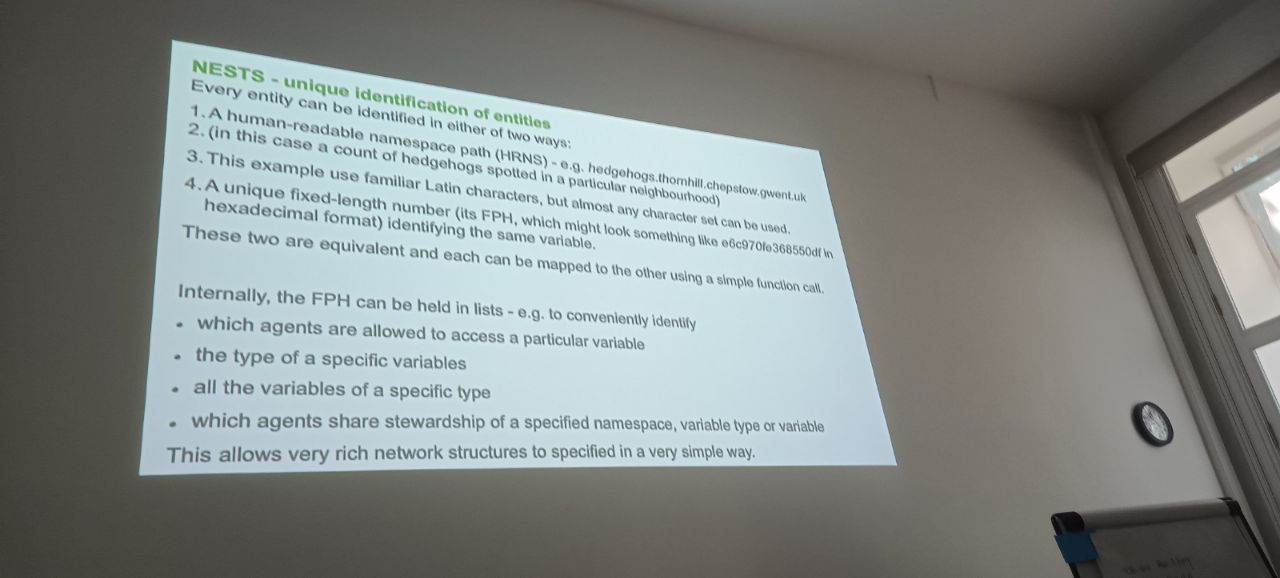
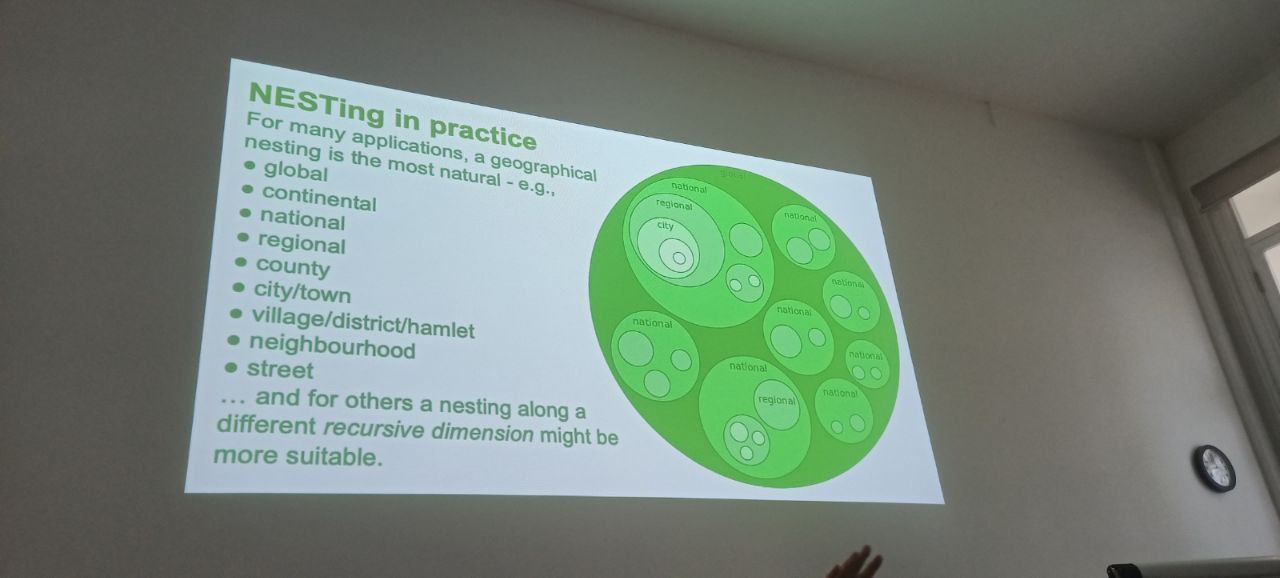
Last up for the day was a fella called Gary Alexander with his presentation "A new common sense or VSM for all". He shows a video he made with some others a couple of years back when he had no beard - "OH I remember you" I find myself blurting - "we met in 2018 at the Holochain London meetup". This small world keeps getting smaller and he shows the activity he's been up to at the local level with bringing the model to the community near him while reframing the language to be more accessible!
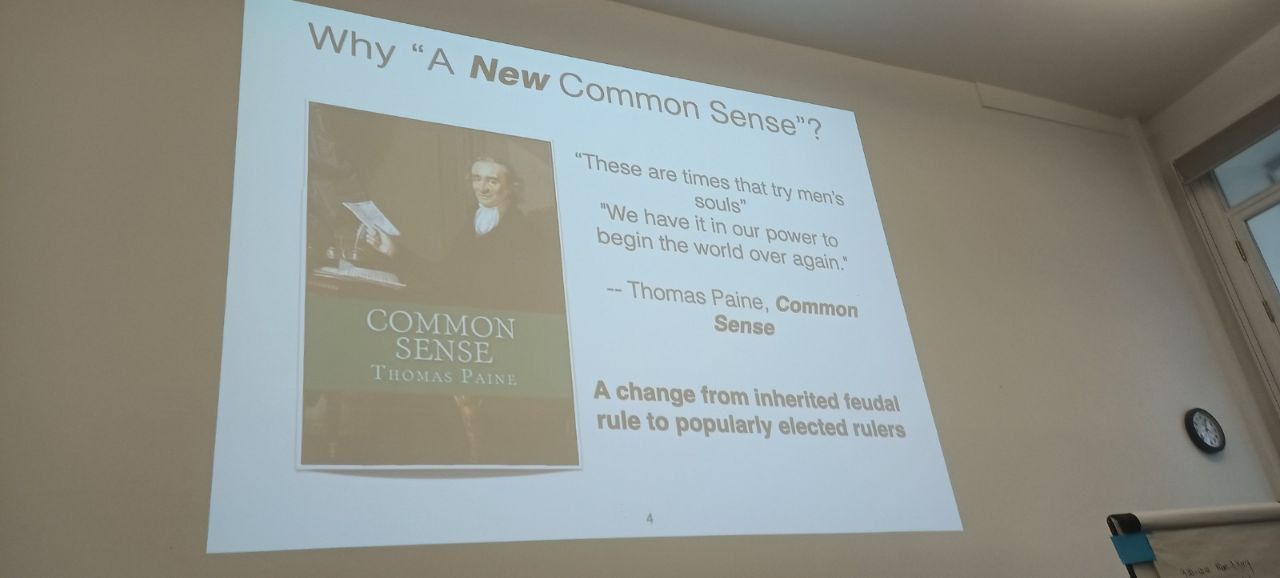
At this point we drop into open space mode and signal our interests sitting with each other to discuss pathways forward in a kind of offers and needs market. Beyond this the organising comittee and guests share a vision for Metaphorum 2 and the potential futures for realisation.
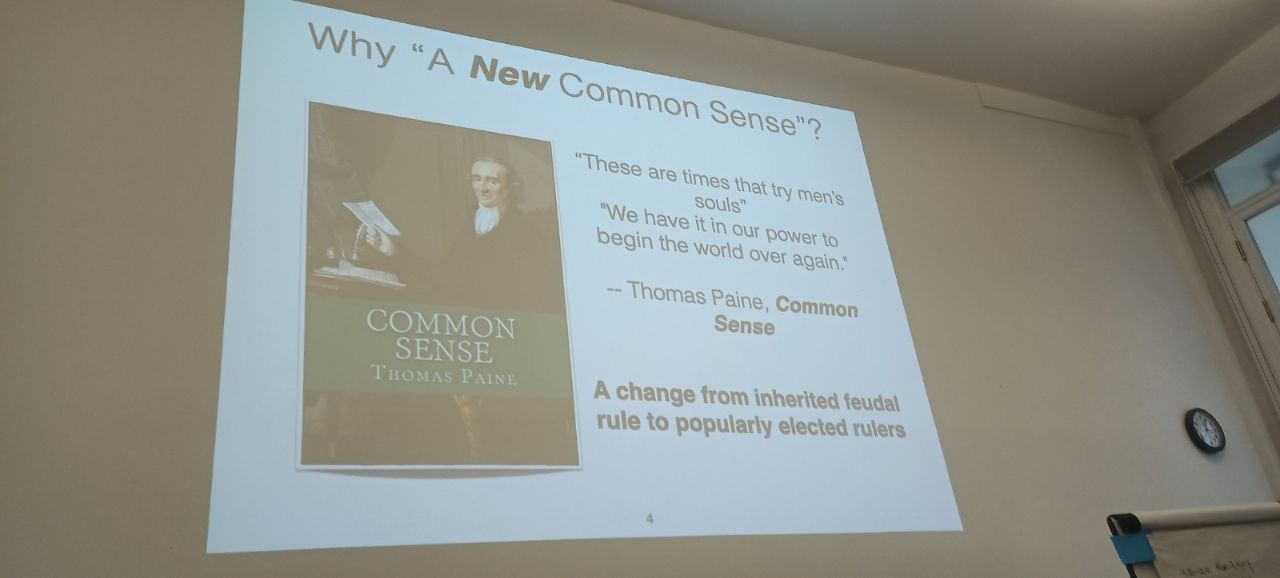

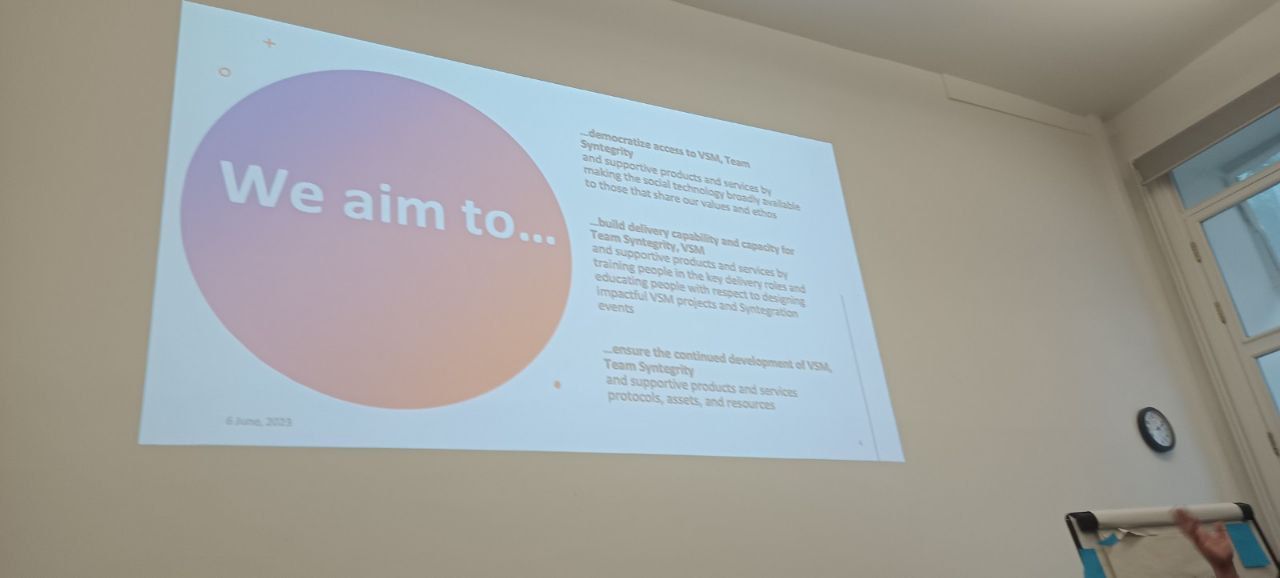
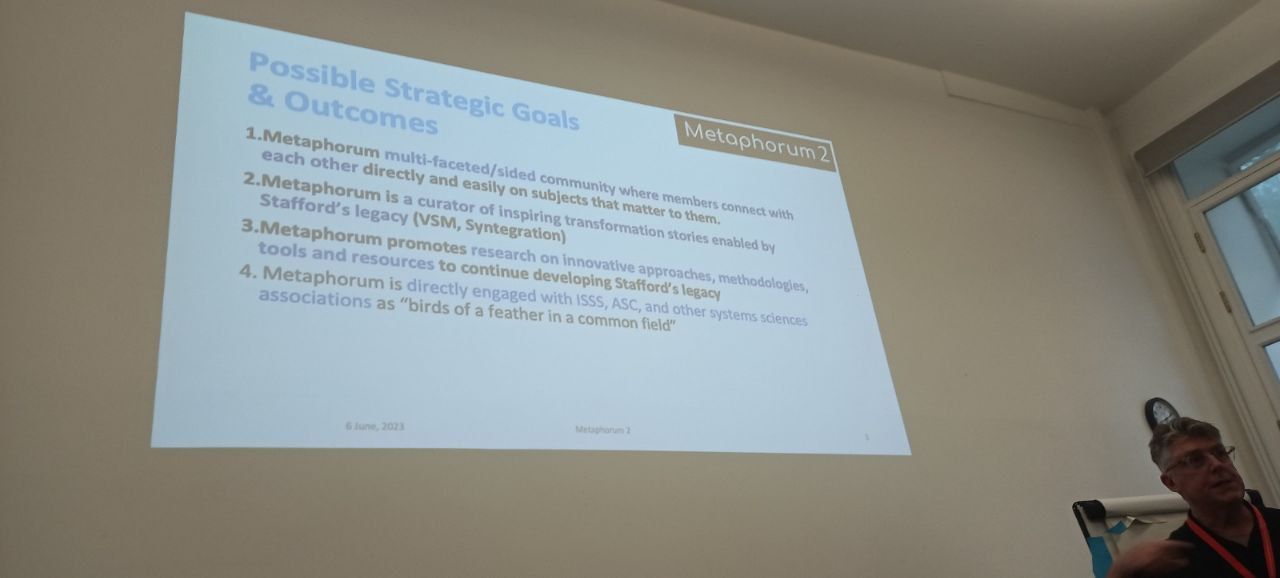
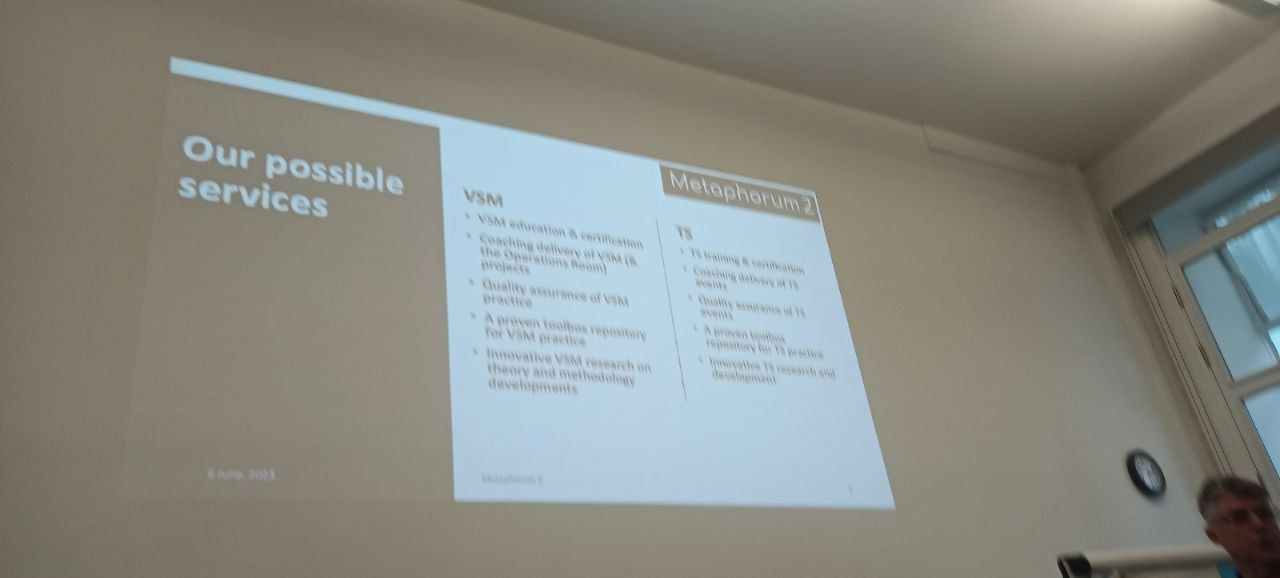
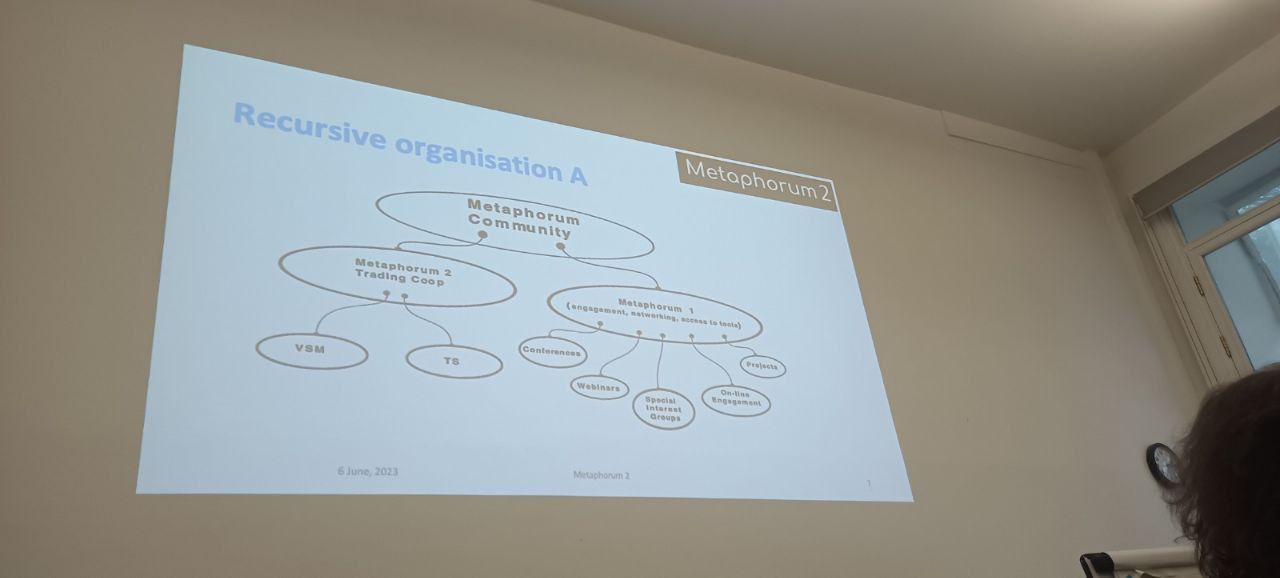

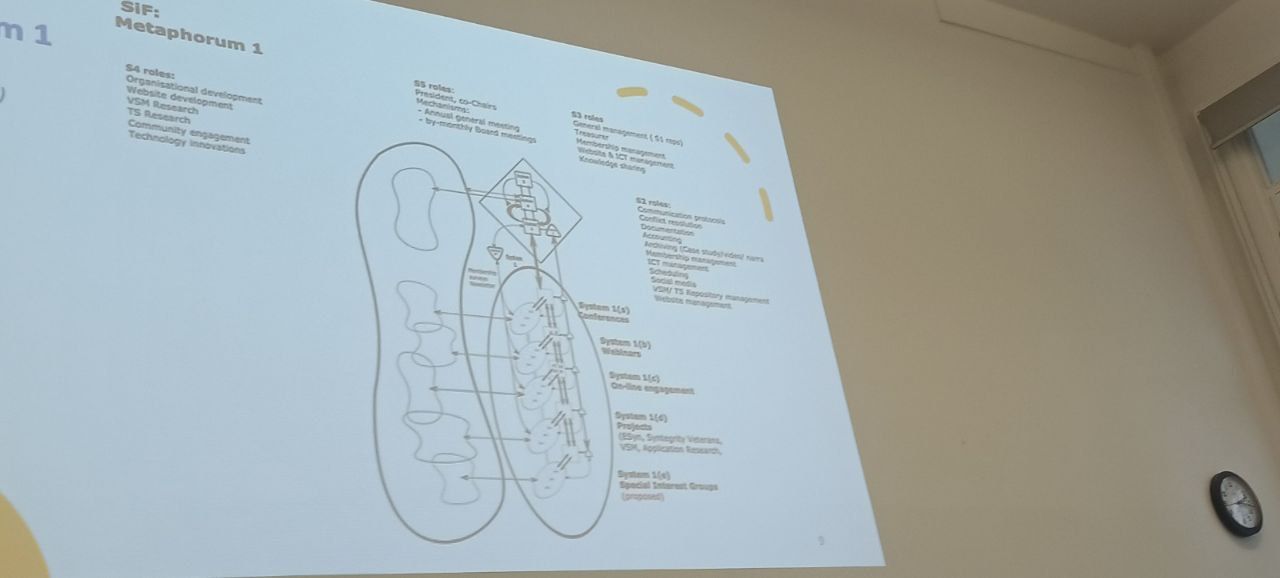

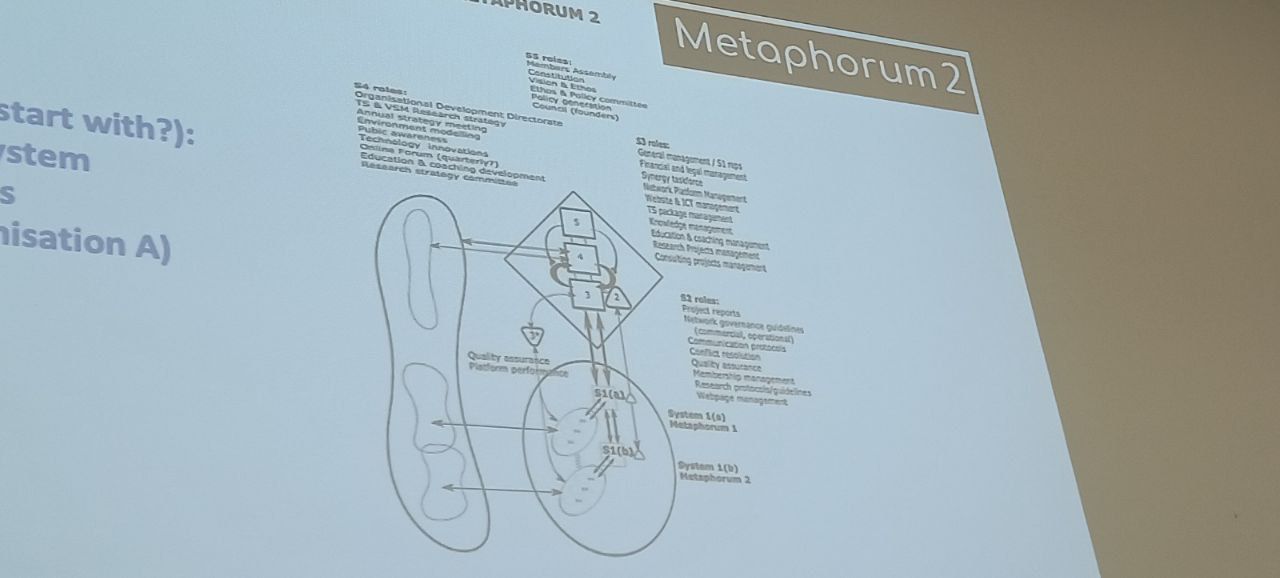
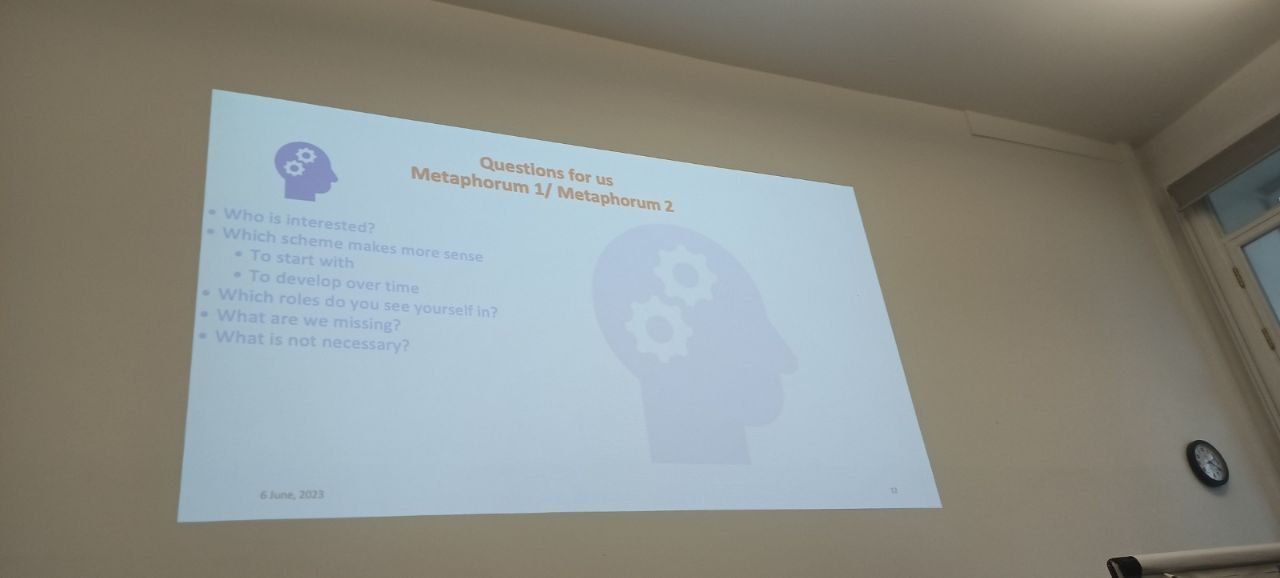
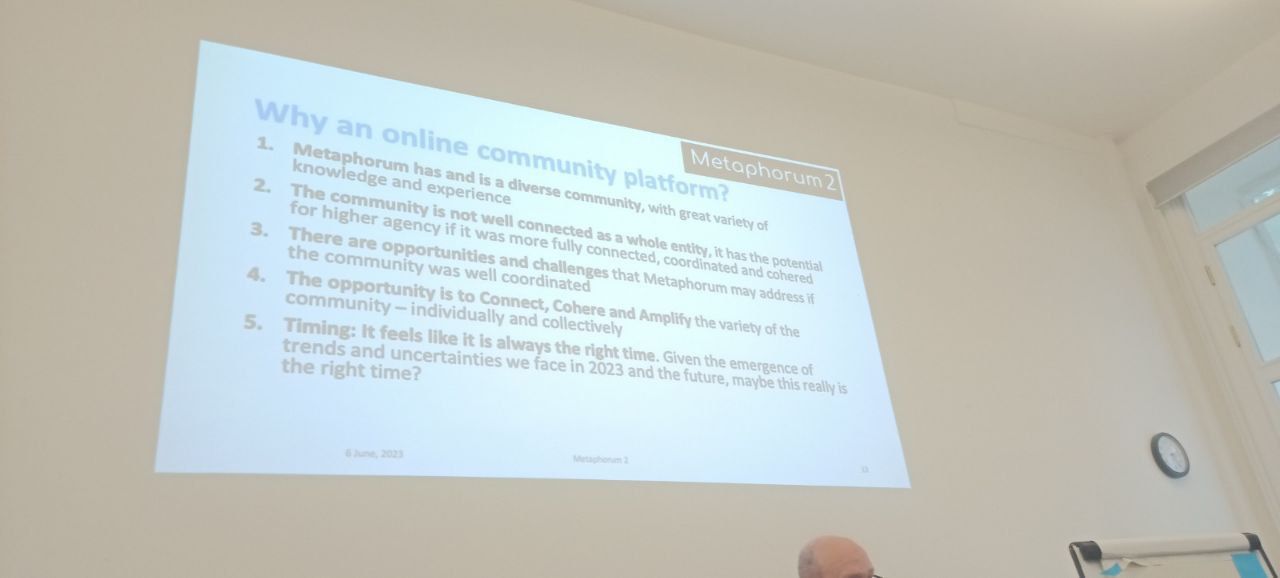
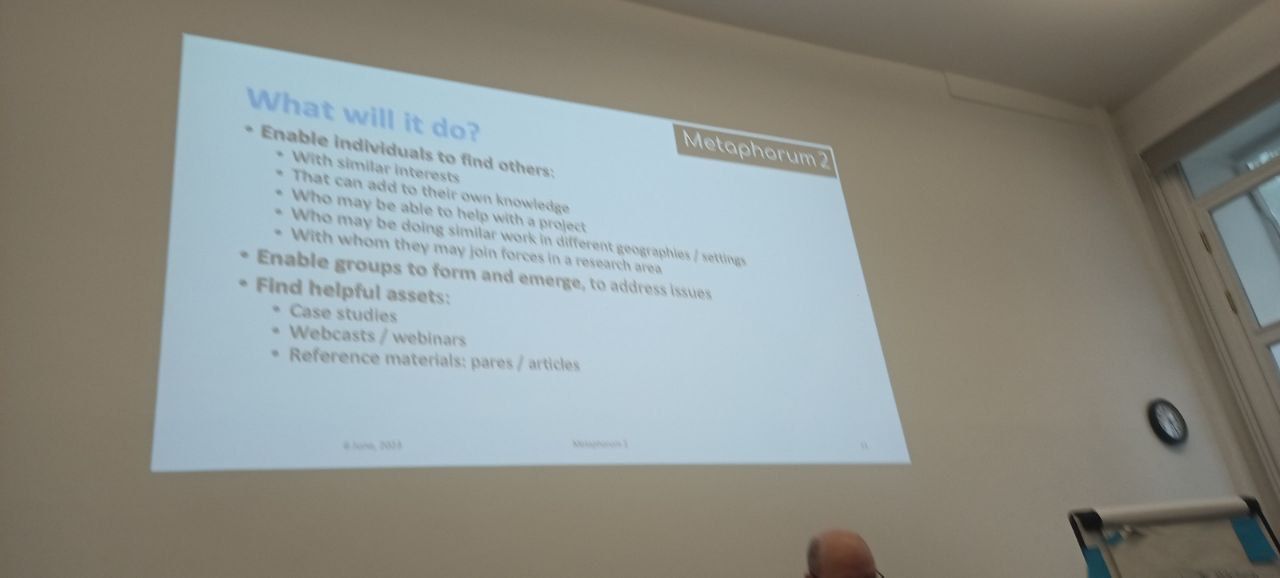
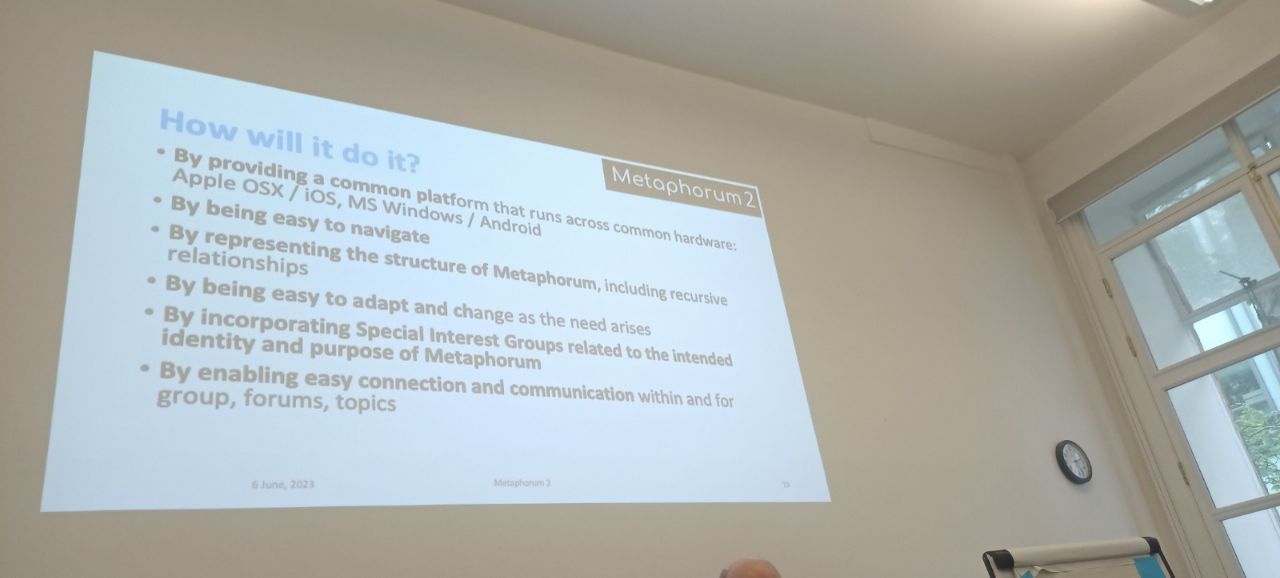
After all this, things move into an AGM and I duck out to the pub with Trevor again before he catches his train and then return to hang with Ian again after the meeting. Boy oh boy has he had his work cut out but a bloody excellent job he's done with the other organisers; a beautiful three days that has been hella informative - thank you dear organisers for an incredible event 🙏🙏🙏
Ad Astra ✨